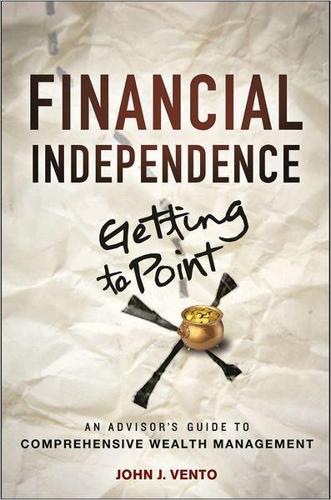
Financial Independence
by
John J. Vento
Published 31 Mar 2013
All of these subjects are addressed in detail in subsequent chapters of this book. The Power of This Book Becoming financially independent is not something that happens by chance; it requires focus, discipline, determination, sacrifice, and a lot of hard work. If you are serious about achieving financial independence and are willing to make the commitment to do what it takes, then this book will provide you with the necessary tools to pursue your financial goals. In short, I will guide you toward reaching your own personal point X, financial independence. Using financial planning strategies––the 10 key issues to comprehensive wealth management––and many real-life (though anonymous) client stories––I show how to navigate through the most critical factors that affect you and your family’s financial life.
…
The following are the four major rating services for insurance companies, which can assist you in determining their financial strength; check with these rating agencies before entering into an insurance contract: • • • • AM Best: www.ambest.com Moody’s: www.moodys.com Standard & Poor’s: www.standardandpoors.com Duff and Phelps: www.duffllc.com Before you buy an insurance policy from any company, please be sure the company carries at least all of the following ratings: • • • • AM Best: A– or better Moody’s: AA or better Standard & Poor’s: AA or better Duff and Phelps; AA or better Throughout your journey to financial independence, you never know what unexpected problems may happen. Being prepared for the unexpected is precisely what insuring your health and life is all about. There are major family risk management issues that we all need to be concerned about. Obtaining the proper health insurance, disability insurance, long-term care insurance, and life insurance can provide you with peace of mind. Being unprepared for the unexpected can rob you and your family of your pursuit to financial independence. c05.indd 129 26/02/13 11:09 AM 130 Financial Independence (Getting to Point X ) $ TAX FACTS AND STRATEGIES2 FOR INSURING YOUR HEALTH AND LIFE • Take full advantage of medical insurance premiums paid by your employer on your behalf.
…
They stayed very disciplined throughout the past 25 years and focused on buying quality investments, were properly diversified, patiently held on to their investments even during down markets, and rebalanced their portfolio annually.1 Today, the Richmans have more than $1.7 million in retirement savings, have paid off their home mortgage five years early after taking advantage of falling interest rates, and have also set aside sufficient funds to get their son and daughter through four years of state college. From early on in their relationship, even before they were married, they had a clear plan for a comfortable retirement and a strategy for achieving financial independence. Everyone has the ability to achieve financial independence. If you are an able-bodied individual with a job, you can also achieve financial independence, by simply paying yourself first, and then living within the budget of whatever is left over. It really is that simple. If my parents were able to do it as Italian immigrants working for modest wages, so can you!
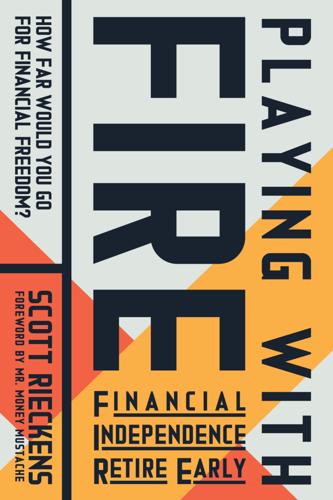
Playing With FIRE (Financial Independence Retire Early): How Far Would You Go for Financial Freedom?
by
Scott Rieckens
and
Mr. Money Mustache
Published 1 Jan 2019
PLAYING WITH FIRE Chapter 6: Goodbye, Coronado Page 78, a thread on Reddit titled “Documentaries relevant to FIRE”: “Documentaries Relevant to FIRE,” Reddit (r/financial independence), accessed August 29, 2018, https://www.reddit.com/r/financial independence/comments/80a2p7/documentaries_relevant_to_fire. Page 78, Mr. Money Mustache had reached more than twenty-three million people: Tim Ferriss, “Mr. Mustache — Living Beautifully on $25–27K Per Year,” The Tim Ferriss Show, accessed August 29, 2018, https://tim.blog/2017/02/13/mr-money-mustache. Page 78, there are nearly 400,000 people on the Financial Independence subreddit: “Initial Financial Independence Survey Results Are Here!,” Reddit (r/financial independence), accessed August 29, 2018, https://www.reddit.com/r/financialindependence.
…
See also Barrett, Brad; Mendonsa, Jonathan Christmas gifts, 142–44, 150, 152–53 Chucky (author’s cousin), 139–41, 148, 183 club memberships, 15, 52, 61–62, 74 Coach Carson (blog), 109 coffee, 55–56, 163 college funds, 146 college savings accounts, 146 Collins, JL, 101, 109, 110–11, 114, 148 community, 121 commuting, 51 comparisons, 134 compound interest, 115–16, 145 compromise, 179 Confucius, 2 consumerism, 20, 84–85, 183–84 consumption, minimization of, 169 control, 120–21 Coronado (CA), 14; author’s departure from, 74, 82–85, 86–88, 137, 144; author’s extravagant lifestyle in, 12–18; author’s house hunt in, 160; author’s net worth in, 179–80; author’s relocation to, 14; author’s residence in, 75, 131; cost of living in, 75, 77, 79, 126, 131, 162; Taylor’s Take on leaving, 87–88 Costco, 55, 56 Craigslist, 74, 158 credit card debt, 133 credit card rewards, 51 Dallas (TX), 124–25 dating, 133, 173 debt, 7–8, 9, 45–46, 189 depreciation, 158 Deschutes National Forest, 157 dining out, 9, 12–13, 50, 52, 57–58, 144, 150, 168 Early Retirement Extreme (blog), 25, 26 eBay, 74 eco-friendliness, 68 economic recession (2008), 7, 69, 70 Ecuador FIRE retreat: author’s experience, 109–11, 116, 117–22; in author’s travel plan, 83; FIRE community at, 109, 117–19, 124, 171; frugality and attendance at, 119–20 Effective Altruism, 26 employment, choice of, 70 Encinitas (CA), 75 entertainment, 9, 50–51, 52, 53–54 entrepreneurs, 118–19 Eric (author’s childhood friend), 137, 138 expense cutting: author’s experience, 5–6, 183–84; author’s ten-step plan for, 50–51; cars, 60–61, 126, 129–30, 169, 188–89; club memberships, 61–62; daily expenses, 188; food expenses, 55–58, 150, 188–89; geo-arbitrage for, 93, 94; holiday gifts and, 142–44, 150, 152–53; housing, 126, 188–89; “sunk cost fallacy” and, 62–63 expenses: “Big Three,” 50; financial independence and, 149; “fun,” 50; keeping less than earnings, 126–29; “lifestyle creep” and, 9; medical, 45–46; retirement calculator using, 39–41; tracking, 51–55, 102, 188 extra-income opportunities, 51 families: large, and financial independence, 45–47; living with, 81, 92, 93 Ferriss, Tim, 18–21, 94, 142 1500 Days to Freedom (blog), 125 financial advisers, 114–15 financial independence, 146; FIRE Stories, 45–47; as self-defined, 149 “Financially Independent Retired Early: Flaws with the Philosophy?” (article), 145 Financial Mentor, 56 FinCon (Dallas, TX), 124–25 FIRE (financial independence retire early): alternative to, 7–8; author’s disenchantment with, 144–48; author’s experience, 2, 4–6, 9–10, 19–21, 27–31, 183–85; benefits of, 26–27, 30, 82, 120; blogs/podcasts about, 19–21, 25–26, 119–20; defined, 2–3; emotions/psychology behind, 151; expense cutting for, 62, 63 (see also expense cutting); flexibility of, 4, 149, 179; formulas for, 3–4, 21–22, 28, 50, 126; friends’ reactions to, 84; income level required for, 6–7; investing basics in, 111–16, 126; as lifestyle choice, 122, 125, 147–48, 152; mission statements for, 151–52; as movement, 24–26 (see also FIRE community); obsessing over, 148–49, 150; INDEX dinner, 56, 57–58 Dog Fancy (magazine), 156 dollar cost averaging (DCA), 128 Dominguez, Joe, 99 down payments, 81, 127 203 PLAYING WITH FIRE 204 FIRE (financial independence retire early) (continued ) residence location and, 77; Robin’s advice for, 99; Seven Steps to, 187–89; spousal discussions about, 34; spread of, 183; Taylor’s decision to pursue, 43–44; vehicle purchase guide, 68 FIRE community: author’s research on, 6; character traits of, 174–76; as cult-like, 94, 119; diversity of, 8, 172–73, 175; at Ecuador retreat, 109; at FinCon, 125; finding, 189; high-profile members of, 20; income levels of, 102; lifestyle hacks developed by, 4; literature of, 97–98; Mustachians, 168–76; openness of, 8; Playing with FIRE documentary and, 85, 86; retirement as viewed by, 3 FIRE Stories: about, 6; Hannah (Denver, CO), 164–66; Jillian (Kalispell, MT), 45–47; Kalen & Kyle (Evans, CO), 101–3; Sylvia (Seattle, WA), 132–34; Todd (New York, NY), 69–71 Fiske, Jacob Lund, 25 food, 50, 55–58 Fort Collins (CO), 81, 83, 91 foster children, 46, 47 4-Hour Workweek, The (Ferriss), 18 4 Percent Rule, 21–22 401k retirement accounts, 16, 102, 129, 133–34 freelancing, 81 friends: FIRE as viewed by, 84; living with, 81 friendships, 47 frugality, 5; author’s experience, 27, 30, 58; balance needed in, 150– 53, 163; blogs/podcasts about, 25, 34; entrepreneurship and, 118, 119; FIRE and, 38–39; happiness and, 148–49, 150; holiday gifts and, 142–44, 150; international FIRE retreats and, 119–20; Mustachians and, 169; reasons for, 38 Frugalwoods (blog), 25, 26, 31, 55, 77, 78, 125 Ganch, Brandon: attempts to persuade spouse about FIRE, 34; career background of, 25; at Ecuador retreat, 109; at FinCon, 125–31; on FIRE anxieties, 148–50, 163; investment advice of, 111, 125–31.
…
Dozens of bloggers were chronicling their journeys to financial independence. Some remained anonymous to protect their corporate careers; some were already “retired”; some were financially independent but had decided to keep working; and some were planning to quit their jobs as soon as possible, in weeks or even days. Many of these blogs are still going strong (these are listed in the boxed text on page 26, and more resources are available at playingwithfire.co). Jacob Lund Fiske from Early Retirement Extreme is a physicist who became financially independent through extreme frugality and managed to live off of $7,000 a year in the San Francisco Bay Area by living in his RV and wearing the same clothes for ten-plus years.
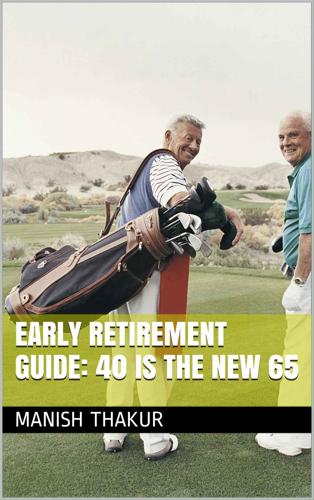
Early Retirement Guide: 40 is the new 65
by
Manish Thakur
Published 20 Dec 2015
In this book, I've laid out practical steps with just a little bit of the philosophy and a lot of data to help make each step easy to take and clear. Mindset of Financial Independence Before we begin learning about the steps to reach financial independence, it's important to understand some key concepts that clarify and guide our decisions towards becoming F.I. (Financially Independent). From all the articles and books about people who have chosen to pursue financial independence, the biggest indicator of how successful they are is their mindset on life decisions. A majority of them approach spending from a holistic perspective, thinking about the consequences, alternatives, and the value major purchases will bring.
…
FAQ on Early Retirement If we address the three biggest expenses of housing, transportation, and food, it will most likely get you a majority of the way to significantly reducing your expenses and getting you to financial independence. There are a lot of extra steps you can take to save a few more dollars here and there, such as couponing or making your own detergent, but in my opinion, they're not worth the extra time for the small effect they have. With any lifestyle, there's certain risks and benefits. It would be ridiculous to talk about all the benefits of financial independence without examining some of the risks that come along with it and how to handle them. What happens if I want to have kids? Kids certainly add a new aspect to being financial independent. There are new costs that have to be added to a budget like school supplies, diapers, and new clothes every time they go through a growth spurt.
…
The goal of this book is to act as a practical guide for taking the initial steps to reaching financial independence and freedom significantly earlier than 65. It is a long road that, although challenging to start, becomes easier with every step. Everyone has different life goals, obstacles, and benefits, making the advice and information in this book a starting point, rather than absolute rules to follow. You will have to decide what your path will look like for yourself. The Fundamentals of Early Retirement If you're the type of person to skim read looking for the highlights, I'll save you some trouble. The way to reach financial independence and decouple your time from your money is: 1.
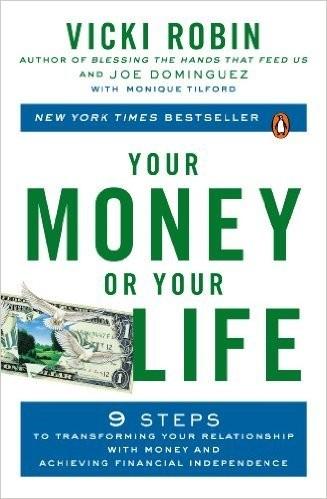
Your Money or Your Life: 9 Steps to Transforming Your Relationship With Money and Achieving Financial Independence: Revised and Updated for the 21st Century
by
Vicki Robin
,
Joe Dominguez
and
Monique Tilford
Published 31 Aug 1992
After all, is there any “thing” more vital to you than your life energy? A FIRST LOOK AT “FINANCIAL INDEPENDENCE” As we said in the prologue, one purpose of this book is to increase your Financial Independence. By following the steps, you will move inexorably toward Financial Integrity and Financial Intelligence and will one day (we hope before you die) arrive at Financial Independence. In showing you how this is possible, however, we must first show you what Financial Independence isn’t. Let’s begin by exploring what images the phrase “Financial Independence” conjures up for you. Making a killing? Inheriting a fortune?
…
It is at the helicopter perspective of money, in the realm of personal responsibility, where we find our first definition of true Financial Independence. Our definition of Financial Independence cuts through the Gordian knot of not knowing what rich is. Financial Independence has nothing to do with rich. Financial Independence is the experience of having enough—and then some. Enough, you will remember, is found at the peak of the Fulfillment Curve. It is quantifiable, and you will define it for yourself as you work with the steps of this program. The old notion of Financial Independence as being rich forever is not achievable. Enough is. Enough for you may be different from enough for your neighbor—but it will be a figure that is real for you and within your reach.
…
If you follow the program presented in this book, it will lead inexorably to Financial Integrity. Financial Independence Financial Independence is the by-product of diligently following all the steps of the program outlined in this book. It is defined as having an income sufficient for your basic needs and comforts from a source other than paid employment. While Financial Independence may not be one of your current goals, it is, eventually, in everybody’s future. Think about it. Financial Independence is the totally natural, and inescapable, by-product of life. After a certain point you will no longer need to earn a living.
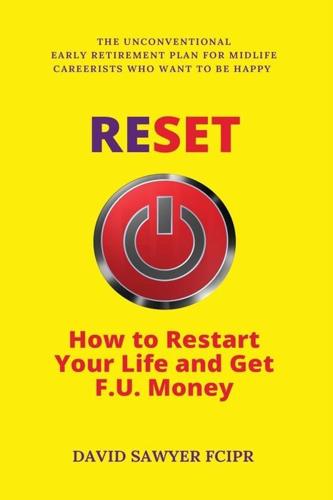
Reset: How to Restart Your Life and Get F.U. Money: The Unconventional Early Retirement Plan for Midlife Careerists Who Want to Be Happy
by
David Sawyer
Published 17 Aug 2018
If you reach ten years of financial independence with half or more of your stash intact you’re in clover. No one can predict how those first ten years are going to pan out and I feel sure that when the time comes, you’ll be right across “sequence of return risk[338]” (those first ten years of FI). For now until you near financial independence, all you need to know is that it exists. Religiously relying on your SWR once you gain financial independence assumes you’re an idiot with no control over anything post-FIRE. In practice, you’re a hyper-efficient financial independent who reset their life all those years ago – after reading that book – and never looked back.
…
They become millionaires by budgeting and watching what they spend[238]. In short, Danko and Stanley found: “Building wealth takes discipline, sacrifice, and hard work[239].” Are you up for that? Chapter 21 Financial Independence and F.U. Money LET’S GET A COUPLE of definitions out of the way. F.U. and FI are like the yang and yin[240] of FIRE (Financial Independence Retire Early). Financial independence (FI) is the positive yang: having enough money that you can live off the income from your assets and never have to work again. F.U. Money (the menacing yin), as we’ve discovered, is having enough money that you never have to do anything you don’t want to for money ever again.
…
Money is about pride. Together the yin and yang of FIRE are a powerful motivating force. A brief history of FI The chances are you’ve never heard of financial independence until now, which is why RESET’s front cover centres on the phrase early retirement. Early retirement means never working again. Financial independence means never having to work again. (Loads of FIers have jobs, but jobs they want to do, not ones they have to do.) Financial independence is an unconventional, underground cult, without the messianic ruler. Powered by the internet, the FIRE community has mushroomed as bloggers such as Pete Adeney and JL Collins have taken on the mantle of early pioneers such as Joe Dominguez and Jacob Lund Fisker, leading hundreds of thousands of (largely US) people to transform their lives.
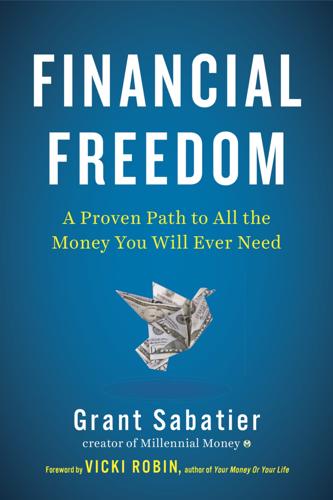
Financial Freedom: A Proven Path to All the Money You Will Ever Need
by
Grant Sabatier
Published 5 Feb 2019
Although this is difficult to do, there are incredible stories of teachers, janitors, public service officials, and others who super-saved their way to early financial independence. Literally every 1 percent more you save will decrease the amount of time you’ll need to work to reach financial independence. Remember that retiring any time before sixty-two (the traditional retirement age) is early retirement, so cutting one, two, five, or ten years off your retirement is an incredible accomplishment. Let’s see how increasing your savings rate on different income levels impacts how quickly you can reach financial independence. For this example, we’ll use my target number of $1,250,000 and an expected annual investment compounding rate of 7 percent.
…
If you live in an expensive place or make less than $25,000 per year, it could take you longer, but no matter where you live, the more money you make and save, the faster you can make work optional. I know you can make it happen. Once I reached financial independence at thirty and came up for air, I started searching for other people who’d also reached financial independence before the age of thirty-five. I was delighted to find a small but growing group of people I’m now happy to call my friends. Here are some of their stories and how they felt after reaching financial independence. Steve spent his twelve-year career working in IT at a job he just never really liked. But his aha moment came when he got married and realized how much money he and his wife, Courtney, could save with two incomes.
…
If you really commit and are willing to make the trade-offs, you can realistically reach financial independence in ten years or less. If you really hustle and get lucky, you might even be able to do it in five years or less. I’ll be the first to admit that it was lucky I started investing before a big bull market, but if I hadn’t made and invested as much money as I could, then I wouldn’t have been able to take advantage of it. While you can’t rely on luck, you can rely on the proven path in this book to help you whether luck comes along or not. No matter what, reaching financial independence in ten, fifteen, or twenty years is a lot faster than forty years—or never!
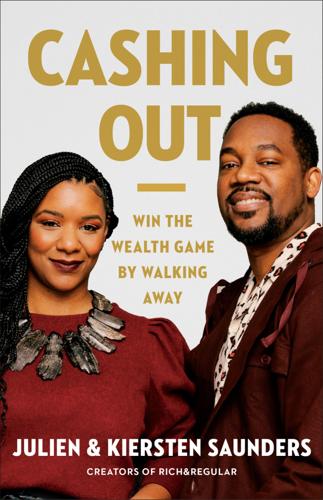
Cashing Out: Win the Wealth Game by Walking Away
by
Julien Saunders
and
Kiersten Saunders
Published 13 Jun 2022
Today, our version of being rich isn’t just about having nice things; it’s about living a life aligned with our values devoid of a constant goose chase after money. And that’s precisely what we want for you. We’ve seen firsthand what the pursuit and achievement of financial independence can do to a family. We’ve seen the compounding effect of this newfound freedom on extended families, local communities, organizations, and small businesses. We firmly believe that a world with more financially independent people will lead to broader improvements in society because once money isn’t the primary focus in your life, other priorities will take its place. Three Principles of Cashing Out I love America more than any other country in the world, and, exactly for this reason, I insist on the right to criticize her perpetually.
…
Because developing your financial plan with these principles at the heart of your decision-making requires you to believe that you deserve better than the status quo. 1 | Stealth Wealth We were attending CampFI when we heard a term we’d never heard before: “stealth wealth.” At that point, it had been four years since our wake-up call in South Africa. We’d been interested in financial freedom for several years and were gaining traction on our financial independence journey. CampFI is exactly what it sounds like—a camp for people interested in the financial independence lifestyle. Of the thirty attendees, we were two of the five people of color. We were admittedly cautious because the campsite required us to drive through the backwoods of south Georgia and northern Florida: known hotbeds of racism. Thankfully, we arrived safely without any hiccups and were immediately welcomed by the camp’s attendees.
…
Regardless of whether they were Black, white, Asian, or Hispanic, they chose to part ways with their money to advance a cause. To us, that simple and generous act is motivation enough to pursue a financially independent lifestyle. Many people feel silenced by their jobs and are afraid to speak out about the causes they believe in because they fear doing so could jeopardize their employment. But when you become financially independent, you can more closely align how you spend your time and money with your values. You don’t have to worry about anyone taking away your livelihood because you stood up for what you believe in.
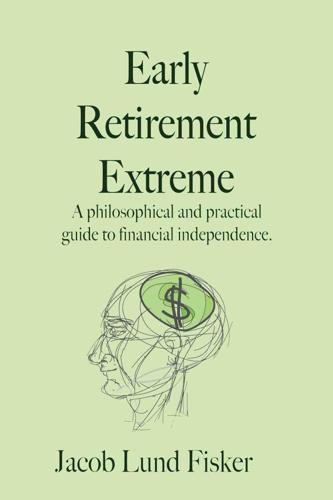
Early Retirement Extreme
by
Jacob Lund Fisker
Published 30 Sep 2010
No business, not any that lives long, would obtain long-term debt that exceeds 50% of their equity and spend it all on nonproductive overhead, yet homeowners consider debts exceeding their nonproductive equity by 400%, conservative. Hence, a trophy house, or a trophy anything for that matter, is not very compatible with financial independence. Giving up the trophy house in exchange for financial independence can result in alienation from those who are heavily socialized to middle-class status symbols. However, there are significant subcultures in which you can easily find friends and partners who put less importance on curb appeal and one-hour commutes. Therefore, there is a deliberate choice to make between financial independence and the standard house engineered to give the appearance of enhanced "socioeconomic status."
…
In other words, living in something significantly more economically efficient, smaller and more conveniently located than what your peers are living in is key to financial independence. For most people a home is basically only a place to sleep, eat, shower, and keep stuff (see Things). Realize that you could choose between having an extra bedroom and having an extra $200 per month.68 It's quite possible that the marginal utility (see Building blocks and Sigmoids, logistic curves, and the maximum power principle) of $200 is higher elsewhere in the budget. To become financially independent of a $200/month expense requires investments between $60,000 and $80,000 (see Financial independence and investing). This is the so-called latté effect on a large scale, except that instead of a daily superfluous cup of luxury coffee, we are talking about a superfluous bed or bathroom that is rarely used.
…
Hopefully, we both consider this a good deal; I know I do. Financially independent and working. Since these savings flow into a nonretirement account, money immediately flows out. In a free country, roles are chosen, not assigned. Most people choose to become debtors and borrow money so they can increase their spending, possibly due to a lack of knowledge or maybe simply due to the barrage of advertising that says spending money will result in happiness. However, it's possible to choose the creditor side and save money, eventually buying financial independence. Such financial independence comes from investing in income-generating assets until the cash flow from the assets completely cover all spending on stuff.
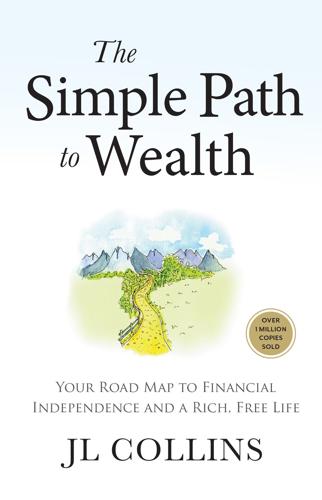
The Simple Path to Wealth (Revised & Expanded 2025 Edition): Your Road Map to Financial Independence and a Rich, Free Life
by
JL Collins
• Sometime in your early to mid-thirties (or ten to fifteen years after you start), two things will happen: Your career will be hitting its strongest surge, and you will be closing in on financial independence. • Once 4% of your assets can cover your expenses, consider yourself financially independent. • Put another way, financial independence = twenty-five times your annual expenses. • That is, if you are living on $60,000, you have reached financial independence with $1,500,000 invested. • If, like our friend Mike Tyson used to, you are living on $400,000 a month / $4.8 million a year, you’re going to need $120 million. • As you can see, being financially independent is every bit as much about controlling your needs as it is about building your assets
…
It has less to do with how much you earn—high-income earners often go broke, while low-income earners get there—than what you value. Money can buy many things, none of which is more important than your financial independence. Here’s the simple formula: Spend less than you earn—Invest the surplus—Avoid debt. As we already discussed, do only this and you’ll wind up rich, not just in money. But if your lifestyle matches or exceeds your income, you forfeit your hopes of financial independence. Let’s consider an example. Suppose you make $50,000 per year and you decide you want to be financially independent. Using some of the lifestyle tips from the blogs mentioned earlier, you’d want to organize your life in such a fashion as to live on $25,000 annually.
…
The truth is, this path is not for everyone. Most people are likely going to say, “Being financially independent is great, but I’m still going to buy the fancy car I deserve and the biggest house the bank is willing to finance.” I call this the tyranny of must-haves. I must have this car, this house, this private school, this wardrobe, this vacation, this . . . well, the list is endless. The more must-haves in your life, the less likely you are to reach financial independence. Indeed, unless financial independence is your number-one must-have, this path will be longer, more difficult, and maybe not for you.
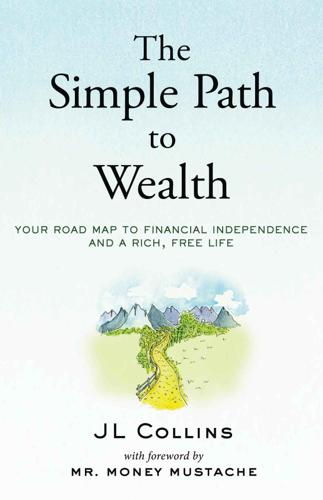
The Simple Path to Wealth: Your Road Map to Financial Independence and a Rich, Free Life
by
J L Collins
Published 17 Jun 2016
Sometime in your early to mid-thirties (or 10-15 years after you start) two things will happen: Your career will be hitting its strongest surge and you will be closing in on financial independence. Once 4% of your assets can cover your expenses, consider yourself financially independent. Put another way, financial independence = 25x your annual expenses. That is, if you are living on $20,000 you have reached financial independence with $500,000 invested. If, like our friend Mike Tyson used to, you are living on $400,000 a month/$4.8 million a year, you’re going to need $120 million. As you can see, being financially independent is every bit as much about controlling your needs as it is about building your assets.
…
It has less to do with how much you earn—high-income earners often go broke while low-income earners get there—than what you value. Money can buy many things, none of which is more important than your financial independence. Here’s the simple formula: Spend less than you earn—invest the surplus—avoid debt As we discussed in the introduction, do only this and you’ll wind up rich. Not just in money. But if your lifestyle matches or exceeds your income, you forfeit your hopes of financial independence. Let’s consider an example. Suppose you make $25,000 per year and you decide you want to be financially independent. Using some of the lifestyle tips from the blogs above, you’d want to organize your life in such a fashion as to live on $12,500 annually.
…
When she’s not in the lab lighting things on fire or blowing them up, Kelly, her husband, and their cat Apollo write about their own journey to financial independence at www.frugalparadise.com. Rich Carey is a Lieutenant Colonel in the United States Air Force so, of course, I told him he didn’t rank highly enough for this task.He has spent most of his 16-year military career overseas. In this time, he has worked with NATO, the United Nations, various foreign militaries and law enforcement organizations, and has even been involved in international peace negotiations. He is fluent in Chinese and also speaks Japanese. More importantly, for my purposes, he is a native English speaker. His avocation is financial independence and his approach has allowed him to pay off his D.C. townhouse and student loans in six years.
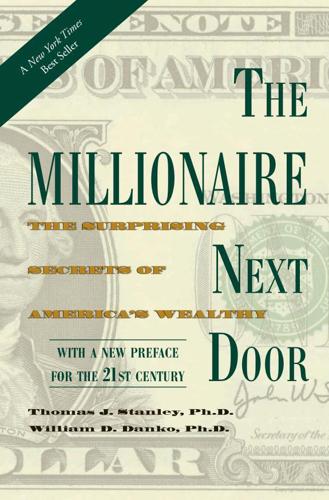
The Millionaire Next Door: The Surprising Secrets of America's Wealthy
by
Thomas Stanley
and
William Danko
Published 15 Nov 2010
What should I do? This is not a fun situation. How can well-educated, high-income people be so naive about money? Because being a well-educated, high-income earner does not automatically translate into financial independence. It takes planning and sacrificing. What if your goal is to become financially independent? Your plan should be to sacrifice high consumption today for financial independence tomorrow. Every dollar you earn to spend is first discounted by the tax man. Earning $100,000 may be required to purchase a $68,000 boat, for example. Millionaires tend to think this way. That’s why only a minority own boats.
…
What have we discovered in all of our research? Mainly, that building wealth takes discipline, sacrifice, and hard work. Do you really want to become financially independent? Are you and your family willing to reorient your lifestyle to achieve this goal? Many will likely conclude they are not. If you are willing to make the necessary trade-offs of your time, energy, and consumption habits, however, you can begin building wealth and achieving financial independence. The Millionaire Next Door will start you on this journey. * * * * For details on how we targeted respondents for our survey, see Appendix 1.
…
They need a CPA who has considerable experience in changing his clients’ orientations, one who will help them change their household environment from one of chaos and hyperconsumption to one of goal-oriented planning, budgeting, and controlling. Will they then be happy? We don’t know, but we can tell you this: Financially independent people are happier than those in their same income/age cohort who are not financially secure. Financially independent people seem to be better able to visualize the future benefits of defining their goals. Mrs. Rule, for instance, visualizes all her grandchildren graduating from college. She visualizes their success after college. She never sees herself being financially dependent on others, even if she is disabled in the future.
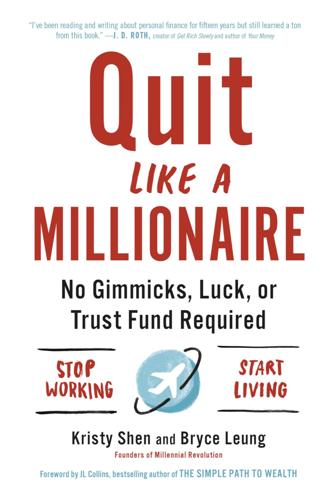
Quit Like a Millionaire: No Gimmicks, Luck, or Trust Fund Required
by
Kristy Shen
and
Bryce Leung
Published 8 Jul 2019
With your expenses covered, you can keep failing and learning without worrying about losing your shirt. Lose one identity, build a better one. Becoming financially independent doesn’t have to be about quitting your hateful job and traveling the world. It’s about having choices. If you love your work, by all means, keep working. “FIRE” stands for “Financial Independence Retire Early,” but the “RE” part is optional. Only the “FI” part is necessary to forge the armor that will keep you protected if a job you love goes away or turns bad. FI means you always have choices. Becoming financially independent is about designing the life you want. Once you’ve built a portfolio large enough that 4 percent of it covers your expenses each year, work is an option, not a mandate.
…
Bryce and I were newly minted authors and there was a whole line of people waiting for a signed copy of Little Miss Evil, our children’s novel. Remember how I said in chapter 4, “Don’t follow your passion (yet)”? Well, I’ve been saving that “yet” for now. Once you’ve become financially independent, you are finally free to follow your passion, whatever that may be. Achieving your dream is the greatest feeling in the world—when you don’t have to worry about surviving on cans of cat food. Because that’s exactly what would’ve happened if I had pursued my passion before becoming financially independent. Get rich, then follow your dreams. Get the order wrong and you’re in big trouble. How do I know this? Because even though there was a long line of people at my book signing, the check that I received for seven years of struggle and rejection was a few thousand bucks.
…
But what if you don’t want to wait fifteen to thirty years? There are a few ways to get there sooner than expected, some of which may sound familiar: SideFIRE, PartialFI, and geographic arbitrage. SIDEFIRE Financial independence is a suit of armor: by shielding you from running out of money, it allows you to fearlessly follow your dreams. That shield is useful even if you’re not 100 percent financially independent. For example, if you’ve always dreamed of becoming a writer but couldn’t support yourself on a writer’s salary (which is pretty common), by making $20,000 per year as a freelance writer, you’ve reduced your required portfolio size by $20,000 × 25 = $500,000.

Meet the Frugalwoods: Achieving Financial Independence Through Simple Living
by
Elizabeth Willard Thames
Published 6 Mar 2018
There wasn’t anything left to innovate with our savings; it was simply a matter of depositing money into our accounts every month and waiting for the totals to reach the number that would equal our financial independence. The phrase “financial independence” is a bit problematic in its vagueness, and there are many different interpretations of what exactly it entails. I view financial independence as the point at which you no longer have to earn money in order to live. In other words, your assets are such that you can live off of them without the influx of a monthly paycheck. If you want to work you can, but you don’t have to in order to pay your bills and feed your family. You are freed from the need to earn money; ergo, you are financially independent. This is what Nate and I were working toward.
…
There are a number of different formulas that people use to determine how much money they’ll need in order to reach financial independence, but at the most basic level, it’s a question of how much money you need to live on every year. In light of that, there are actually only three variables in the financial independence equation: income, expenses, and time. The less you spend, the more you save, the faster you save it, and the less money you need overall. Considered in this context, frugality is a compounding proposition and one of the fastest ways to reach financial independence. A high salary alone is meaningless if you don’t save any of it. The more distance you can put between your earnings and your expenses, the faster you’ll reach any financial goal you set.
…
I’m not pinching pennies in order to eat. I’m not a missed paycheck away from bankruptcy. I choose to be frugal and I choose to live a lifestyle that has granted me financial independence. But it’s no more due to my own aptitude than the fact that I can read and write. Sure, I had to work hard to learn to read and write, but I also had parents and teachers helping me out at every turn. I wish I could say that if everyone followed my advice, they too could reach financial independence, but that’s simply not the case. There are too many layers of institutional privilege enabling my story for it to be replicable for everyone.
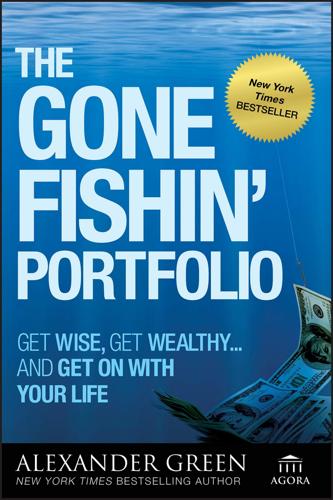
The Gone Fishin' Portfolio: Get Wise, Get Wealthy...and Get on With Your Life
by
Alexander Green
Published 15 Sep 2008
Helier, New Jersey PREFACE In July 2001, I retired from the securities industry at the ripe old age of 43. After 16 years as an investment advisor, research analyst, and portfolio manager, I had gone from a net worth of approximately zero to financial independence. I was now free to do whatever I wanted, wherever I wanted, with whomever I wanted. It’s called total financial freedom. And I can tell you from experience, it’s a great feeling. Unfortunately, many of my clients had not become financially independent. This was not because I advised them poorly. As an investment advisor, I dealt with my clients honestly and gave them the best advice and service I could. Yet, in many ways, they operated at a disadvantage.
…
How much you save, how long your money compounds, and whether you rebalance regularly are the key factors. 2. The quest for financial independence begins with having a clear, specific vision—with realistic expectations—of where you are trying to go. You’re much more likely to achieve your goal once you know exactly how much is needed to retire comfortably. 3. Only you can determine how much money you’ll need to achieve your dream retirement. But the more affluent your lifestyle, the harder it is to save money, which impedes the ultimate goal of financial independence. 4. Once you are retired, use 4% as a conservative estimate of how much you can draw down your retirement portfolio each year.
…
If so, I beg to differ. Investing can be made endlessly complicated, or breathtakingly simple. If you’re willing to keep things simple, you’re perfectly qualified to manage your money yourself—and in a highly sophisticated way. As an investor, your overriding goal is to achieve and maintain financial independence. Your savings are the fuel. The Gone Fishin’ Portfolio is the vehicle to get you there. Let’s get started. ACKNOWLEDGMENTS Many of the lessons in this book came with a knock to the head. Still, I did learn. So I’m grateful for those who gave me that opportunity. Diego Veitia hired me to become a registered representative back before I knew a stock from a bond.
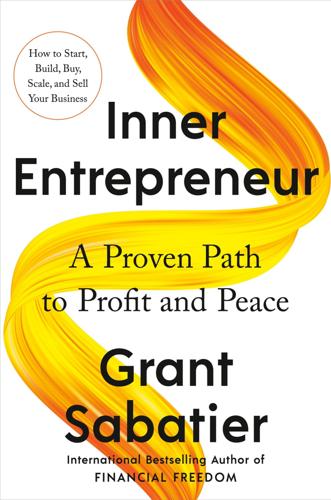
Inner Entrepreneur: A Proven Path to Profit and Peace
by
Grant Sabatier
Published 10 Mar 2025
Since we’ve already covered Phases 1 and 2 earlier in the book, let’s examine the last three phases in more detail: Phase 3: Cash-Flow Financial Independence Live off your profit and maximize your freedom. At this stage your business is generating enough revenue to cover your personal living expenses. I reached financial independence by saving $1.25 million in an investment portfolio so I could live off the income my investments generated. But a faster way to reach financial independence is to live off the income you generate from your business. If you’re generating enough revenue to consistently cover all your personal living expenses—rent/mortgage, car/insurance payments, food, clothing, etc.
…
However, it came with a cost; the work was time-consuming and stressful, and I didn’t care about it. Fortunately, the wake-up call at my doctor’s office made me realize that I didn’t have to do it anymore. I had already reached financial independence, but it was only then that I decided to take advantage of it. As a passion project, I had started Millennial Money, a website and community where I shared my story to help others achieve financial independence. By the time I left the consulting world, the site was getting a few hundred visitors a month, but it wasn’t a business. I hadn’t set out to make it a business. Using the new space I had created in my life by leaving my job, I decided to lean into Millennial Money while working to regain my health.
…
I hated telling clients the same things week after week. While I could smile and deliver great results for my clients, I wasn’t passionate about growing MBA programs. I had all the money I needed. Now I needed something more. Sure, I could quit. The whole point of reaching financial independence was so I wouldn’t have to work anymore if I didn’t want to. But ever since I’d started my financial independence journey, I had become so excited about all the opportunities to create businesses and build wealth that I couldn’t stop. Just because I didn’t have to work doesn’t mean I didn’t want to work. Crappy jobs suck joy and energy from your life, but worthwhile work provides meaning and creates energy.
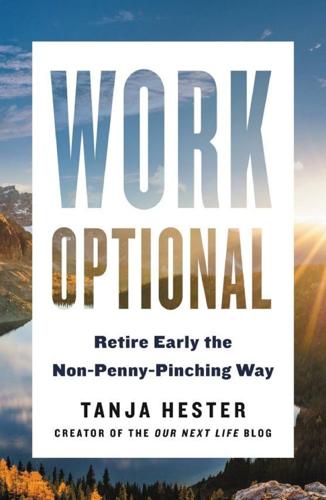
Work Optional: Retire Early the Non-Penny-Pinching Way
by
Tanja Hester
Published 12 Feb 2019
Don’t let the fact that most other commenters are bloggers stop you—if you express genuine interest in blogs you connect with, and then maybe progress to emailing directly or connecting on social media, you may find that you have some very real friendships in your life in no time. Another avenue to explore is local financial independence meetups, which are starting to pop up all over the world. Search for groups focused on early retirement; financial independence (FI); and financial independence, retire early (FIRE). • Keep your eyes on the prize: If all else fails and people in your life are pressuring you to spend money on their priorities instead of your own, remind yourself as often as you need to why you’re doing all of this.
…
Since retiring early from formal employment at the age of 38 along with her husband, Mark Bunge, she devotes all her time to fun and purpose: writing her award-winning financial independence blog Our Next Life, podcasting on The Fairer Cents and Adventures in Early Retirement, volunteering in her community, traveling the world, and skiing, hiking, biking, paddling, and climbing around her home in Lake Tahoe, California. Tanja has researched and explored every aspect of early retirement, from the best strategies for saving to redefining your identity without a career, and applies those lessons every day in her work-optional life, and as host of the Cents Positive retreat for women interested in financial independence. She has a regular column on MarketWatch, she’s spoken at Google and at conferences around the US, and she has been featured in the New York Times, Time, Money Magazine, Vice Media, Yahoo!
…
All too often we chase external measures of success without thinking about what we truly want from life. In Work Optional, Hester gives us a road map for a less-traveled path: living a more purpose-driven life through financial independence.” —Kristin Wong, author of Get Money: Live the Life You Want, Not Just the Life You Can Afford “Tanja Hester and her partner achieved early financial independence, and in these pages she takes you on her journey. Learn why so many are firing their bosses and searching for meaning and purpose beyond cubicles and 24/7 jobs.” —Vicki Robin, New York Times bestselling coauthor of Your Money or Your Life “This isn’t just a book about how to retire early.
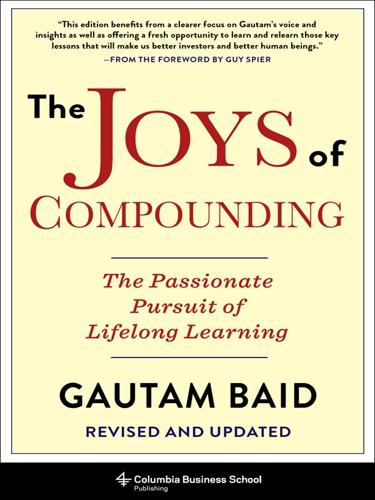
The Joys of Compounding: The Passionate Pursuit of Lifelong Learning, Revised and Updated
by
Gautam Baid
Published 1 Jun 2020
Once you achieve this state, it changes everything. It enables you to look at reality in a truly unbiased manner. Aim to achieve financial independence at the earliest time. That is when you will start seeing the world as it really is. It is difficult to think and act long term unless you are financially independent. Financial independence doesn’t mean you don’t work, just that you don’t need to. It removes the internal distraction of unpredictable employment. The goal of financial independence is to stop depending on others (bosses, clients, a schedule, a paycheck). True wealth is measured in terms of personal liberty and freedom, not monetary currency.
…
It doesn’t take a lot of money to have a truly wealthy life, but it does take financial independence, which gives us control over our time. This is the important topic that we will address in the next chapter. CHAPTER 9 ACHIEVING FINANCIAL INDEPENDENCE It is difficult to get a man to understand something, when his salary depends on his not understanding it. —Upton Sinclair Whose bread I eat, his song I sing. —Charlie Munger Truth is hard to assimilate when it is opposed by interest. You cannot really understand how the world truly works unless you have financial independence. Once you achieve this state, it changes everything.
…
“Our National Predicament: Excerpts from Seth Klarman’s 2010 Letter,” Mungerisms, March 2, 2011, http://myinvestingnotebook.blogspot.com/2011/03/our-national-predicament-excerpts-from.html. 9. Achieving Financial Independence 1. Charles Dickens, David Copperfield (London: Penguin Classics, 2004). 2. Peter Lynch, Learn to Earn: A Beginner’s Guide to the Basics of Investing and Business (New York: Simon and Schuster, 1996). 3. Brian Portnoy, The Geometry of Wealth: How to Shape a Life of Money and Meaning (Hampshire, UK: Harriman House, 2018). 4. Paraphrased from Jonathan Ping, “Charlie Munger’s Life as a Financial Independence Blueprint,” My Money (blog), January 18, 2018, http://www.mymoneyblog.com/charlie-munger-financial-independence-blueprint.html. 5. Michael J.
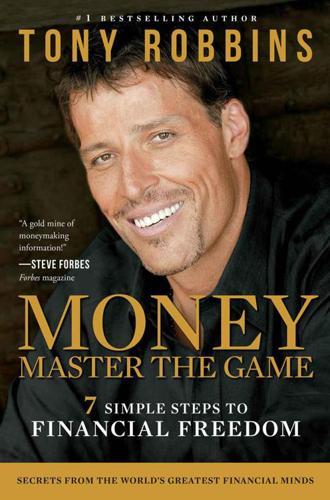
MONEY Master the Game: 7 Simple Steps to Financial Freedom
by
Tony Robbins
Published 18 Nov 2014
Now multiply that by 12 and you’ll have the annual amount you need for financial vitality: $____ × 12 = __________ per year Again, just type in these figures, and all of this math will be done for you on the app. DREAM 3: FINANCIAL INDEPENDENCE Pop the champagne, because when you’ve reached Financial Independence, you no longer have to work to have the same lifestyle you have today! The annual interest earned on the return from your savings and investments (your Freedom Fund) will provide you with the income that you need—while you sleep. You are now truly financially independent; that is, independent of work. How amazing would that feel? What kind of peace of mind would that bring you and your family? Financial Independence means that money is now your slave—you are not the slave to money.
…
Once Angela realized financial security was in view, she took that emotion, that excitement, that momentum, and she said, “Hey, let’s kick it up a notch. If I can get to Financial Security by sixty-two, let’s take a look at Financial Independence. I’m going to figure out a way to become financially independent, not in my seventies or eighties but in my sixties!” And her number to reach Financial Independence? It was $50,000—only $16,000 more a year in income than she’d need for Financial Security. Angela took one more step. After reading chapter 3.6, “Get Better Returns and Speed Your Way to Victory,” she found yet another way to accelerate her plan.
…
Or sometimes more than they earn! If you made $100,000 and you spent $100,000 that year (including paying your taxes) just to maintain your lifestyle, your financial independence is $100,000. If you spend less than you earn, congratulations! Unfortunately, you are the exception, not the rule. So if it costs you only $80,000 to live, on a $100,000 salary, then $80,000 a year is what you need to be independent. So what’s your Financial Independence number? Go to the app or write it here now: $_______. Remember, clarity is power. When your brain knows a real number, your conscious mind will figure out a way to get there.
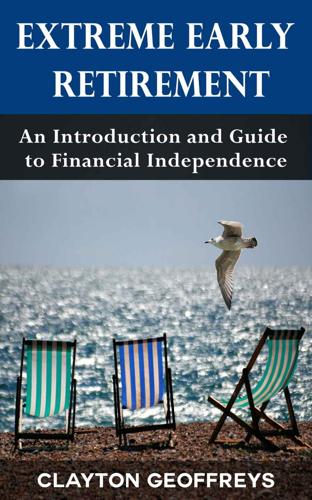
Extreme Early Retirement: An Introduction and Guide to Financial Independence (Retirement Books)
by
Clayton Geoffreys
Published 16 May 2015
Reserve Two Weekends a Month for Family and Relatives Conclusion Final Word/About the Author Foreword A lot of times people believe they need to work until they are well into their 60s in order to achieve financial independence and to retire safely. In today’s day and age, the old model towards retirement is antiquated. Early extreme retirement is now more possible than ever, as long as you as much within the 4% rule as possible (which states that if you withdraw at a rate of four percent of your retirement portfolio, you can sustain your current lifestyle while accounting for inflation). Hopefully from reading Extreme Early Retirement: An Introduction and Guide to Financial Independence, I can provide you with a basic understanding of how many people today are retiring earlier and enjoying life on their terms due to their adoption of this philosophy.
…
Extreme Early Retirement: An Introduction and Guide to Financial Independence Copyright © 2015 by Clayton Geoffreys All rights reserved. Neither this book nor any portion thereof may be reproduced or used in any manner whatsoever without the express written permission. Published in the United States of America. Cover photo by Steve Bidmead is licensed under CC BY 2.0 / modified from original Table of Contents Foreword What is Extreme Early Retirement? Adopting the Philosophy 5 Reasons You Should Consider Extreme Early Retirement 1. You Will Have More Time Enjoying the Goodness in Life 2.
…
Write down your annual fixed and living expenses or simply use a calculator, then multiply that by 25 or 30. Of course, if you are planning on extreme early retirement, then you should have a relatively small amount written down for your annual fixed and living expenses. The final amount you see on your calculator is what you need to set aside for investments. Basically, you need to be financially independent because that is the whole idea of getting retired early. Your passive income is going to act as a source for replenishing your funds from which you gain the momentum to invest again. Keep in mind that money can easily run out if you are not watchful of your expenses. In some cases, life could unexpectedly take a complete turn and your finances begin to deplete from then on.
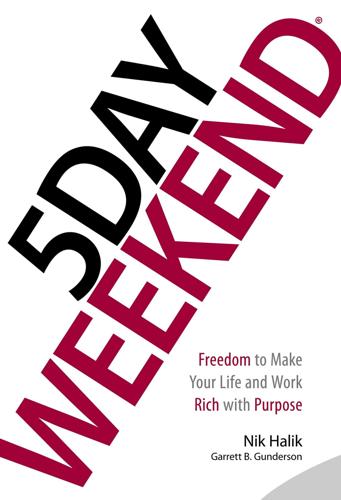
5 Day Weekend: Freedom to Make Your Life and Work Rich With Purpose
by
Nik Halik
and
Garrett B. Gunderson
Published 5 Mar 2018
The truth is that being an employee and being controlled by market forces, your company, and your boss is far riskier. Employers are not in the business of providing guaranteed contracts of employment. Employees can only hope their employer has enough money in the bank to pay them at the end of the week. People like guarantees, but the best guarantee of a forty-hour workweek is that you’ll never become financially independent. And if you do, it will be so late in life that you’ll have already forfeited much of your freedom anyway. “The most dangerous risk of all is postponing your dreams and betting you will have the time or freedom to do it later.” —RANDY KOMISAR The risks of employment are becoming more and more evident as conventional retirement plans fail, inflation continues to rise, and markets become riskier as everything moves faster.
…
Or, you can keep the job and start investing 100 percent of your active income into passive income investments to continue scaling up your PIR. “Rich people choose to get paid based on results. Poor people choose to get paid based on time.” —T. HARV EKER Once you’re at a 2:1 ratio, you keep growing that to hit a progressively higher ratio. My definition of financial independence is having a 5:1 PIR, and I define sustainable financial wealth as having a 10:1 PIR. Assuming monthly expenses of $5,000, a 5:1 PIR equals $25,000 and a 10:1 PIR equals $50,000 in monthly passive income. The Active Income Trap Enhanced lifestyle is, of course, the aim and benefit of increasing income.
…
Your Goals When do you want to achieve your 1:1 Passive Income Ratio (earning enough passive income to cover your monthly expenses)? Target date? What is your goal for achieving a 2:1 Passive Income Ratio (earning twice as much passive income to cover your expenses)? Target date? What is your goal for achieving financial independence with a 5:1 Passive Income Ratio? Target date? What is your goal for achieving sustainable financial wealth with a 10:1 Passive Income Ratio? Target date? Go to our website to download and print this worksheet at 5DayWeekend.com. Code: P2 “If you see it in your mind, you will hold it in your hand.”
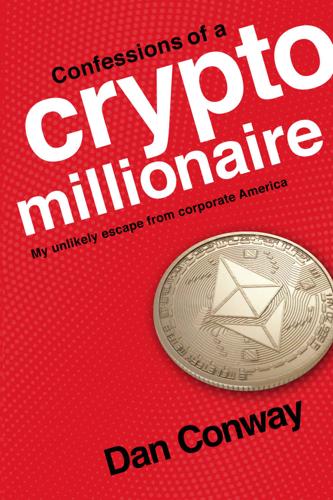
Confessions of a Crypto Millionaire: My Unlikely Escape From Corporate America
by
Dan Conway
Published 8 Sep 2019
It was an existential crisis, at a time when I could still afford to have one. I read the book Your Money or Your Life and was inspired by it. Co-author Joe Dominguez explained the idea, which was to establish financial independence over time by burning both ends of the candle, reducing all spending drastically, as if your life depended on it (it does, he implores) and making as much money as you could, saving nearly all of it. I decided to save all of my treasure and build up enough money to win early financial independence. I’d live a simple but free life. Another book inspired me back then: Into the Wild by Jon Krakauer. It details the story of Chris McCandless, a young man who rejects society, gives up his possessions and hitchhikes across the country to the wild Alaskan outback to make it on his own.
…
I wasn’t willing to give up dreams of an extraordinary life. That was the American Way, as I saw it. But I had to be careful to modulate it and not go off the deep end. My mind kept circling back to financial independence, a way to get free and clear of corporate America. I didn’t have any path to make that happen. Despite that indisputable fact, in my spare time I began listening to financial podcasts and started reading any blogs I could find on early retirement. In particular, the Reddit Financial Independence subreddit was inspiring. It was filled with people who had made enough money to live without income, as long as they budgeted and invested wisely.
…
The room fell silent. Eileen was looking at me, actually leaning in my direction. She said, “But Dan, isn’t that the point?” And like that, I’d been outplayed. The point was to become financially independent and keep a meaningful amount of ETH for the long term. I’d made that clear. As risky a play as that had been, at least it was a measurable goal. And we had basically achieved it. We could walk away right now with financial independence and at least a thousand ETH. But I seemed to be moving the goalposts, and I couldn’t or wouldn’t articulate why. “Ok, let’s continue, and we will have to think about all of this,” I said.
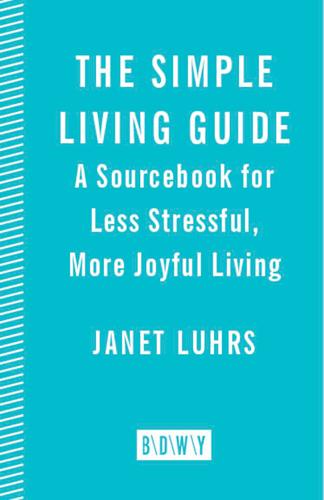
The Simple Living Guide
by
Janet Luhrs
Published 1 Apr 2014
On the other hand, if you don’t pay your card in full every month, then your interest charges, plus the annual fee, would cost you as much as a ticket. Only you know how diligent you are. Pay Yourself First Once you are out of debt, the most important secret to attaining financial independence is this: Pay yourself first. Financial independence means you don’t need to work for a living anymore; interest paid on money you have invested generates enough income for you to live on comfortably. There are other ways to attain financial independence, but they involve another kind of work. An example is real estate investments that require you to work as a landlord. You need to be aware of the trade-offs in any plan you choose.
…
She looked at her dad’s compound interest chart and saw that if she saved $125 a month, she could be a millionaire by retirement age. “That was the first trigger that I could be financially independent through systematic savings and investments,” she says. At age 25, Barbara got a job as a stockbroker and learned the mechanics of investing. She was trained to understand her clients’ goals, such as college, retirement, or financial independence. “They teach you to determine what for you would be financial independence. One client might need $5 million and another $100,000. It is a very individual calculation that depends on the rate at which you consume, how many years you have left to live, plus assumptions about inflation and interest rates.
…
You feel so good with this new way of living that shopping less becomes automatic. You haven’t turned into a no-spending maniac or crabby miser; you simply feel good spending less. While this process has been occurring, your savings also have been growing. You are on your way to achieving financial independence. I refer you again to the book Your Money or Your Life, which details the path to financial independence. In general, part of the plan is to get yourself a sheet of butcher-type paper and put it on your wall in a prominent place. (You can get the end rolls of newsprint from your local newspaper for free.) Write down the months in a year across the top of the paper.
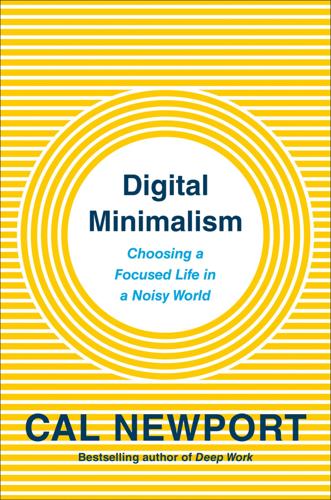
Digital Minimalism: Choosing a Focused Life in a Noisy World
by
Cal Newport
Published 5 Feb 2019
This combination of abundant free time and commitment to intentional living makes this group an ideal source of insight into effective leisure. Let’s start this search for insight by interrogating the habits of the informal leader of the FI 2.0 movement: a former engineer named Pete Adeney, who became financially independent in his early thirties and now blogs about his life under the purposefully self-deprecating moniker Mr. Money Mustache. When Pete became financially independent, he didn’t fill his life with the types of passive leisure activities we often associate with young men relaxing—playing video games, watching sports, web surfing, long evenings at the bar—he instead leveraged his freedom to become even more active.
…
These are followed by a discussion of the somewhat paradoxical role new technology plays in these activities, and then a collection of concrete practices that can help you get started cultivating these high-quality pursuits. THE BENNETT PRINCIPLE A useful place to start investigating high-quality leisure is within the so-called FI community. For those who are unfamiliar with this trend, the acronym FI stands for financial independence, which refers to the pecuniary state in which your assets produce enough income to cover your living expenses. Many people think of FI as a goal you reach around retirement age, or perhaps after receiving a large inheritance, but in recent years the internet helped fuel a newly resurgent FI community that consists mainly of young people who are finding shortcuts to this freedom through extreme frugality.
…
Many people think of FI as a goal you reach around retirement age, or perhaps after receiving a large inheritance, but in recent years the internet helped fuel a newly resurgent FI community that consists mainly of young people who are finding shortcuts to this freedom through extreme frugality. Most of the attention on the FI 2.0 movement focuses on its underlying financial insights,* but these details are not relevant for our purposes. What does matter is the fact that these financially independent young people provide particularly good case studies for exploring high-quality leisure. There are two reasons for this claim. First, and perhaps most obvious, when you achieve FI, you suddenly have many more leisure hours to fill than the average person. The second reason is that the subversive decision to pursue FI at a young age, which typically leads to radical lifestyle decisions, self-selects for individuals who are unusually intentional about how they live their lives.
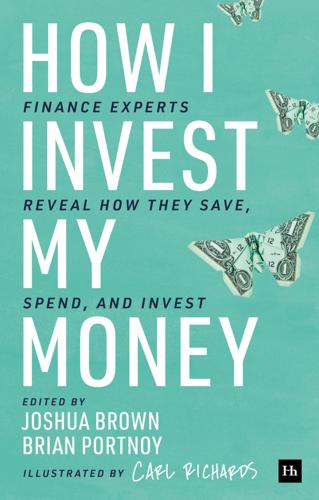
How I Invest My Money: Finance Experts Reveal How They Save, Spend, and Invest
by
Brian Portnoy
and
Joshua Brown
Published 17 Nov 2020
All the advisors we interviewed were only interested in investments and sold high-priced products. They didn’t do real financial planning. It was then I went back to school for fun to learn about financial planning and fell in love with it. A nice side effect? I learned the most important determinant of financial independence was not how much you save—it is how much you spend. In 2002, I cut my medical practice to part-time to learn more about financial planning and explore it as a career. My husband and I also cut out all the wasteful spending and we easily lived on my part-time income and kept his pot of money intact.
…
My mortgage is less than I would pay in rent and I have participated in the booming Denver real estate market for the last 13 years. I view my home as an investment in sacred family time and my sanctuary away from the rest of the world. Taking advantage of financial opportunities when they present themselves, in this case with low interest rates for both my home and education, has been at the core of building my financial independence. I have a Roth IRA where I invest in individual equities. I typically buy companies I understand and use in my own life. I am part of a powerful demographic: the working mother. You can bet that working moms have found the longest lasting, most efficient products out there. I choose to own individual equities in this account because the potential upside will never be taxed.
…
But with my success, over a decade later, that perceived liability is now an asset and a source of inspiration to other young women professionals in the financial planning field. As young women, they still often hear the message that money is a man’s responsibility. That idea paves the way for women not to worry as much about what would happen if they needed to take on multiple caregiver roles and/or be financially independent. Financial equality and independence are just as important for women. And for those women looking to seek a life of prosperity and build wealth, having the right investing skills is the key. It is very important for women, regardless of their marital status—single, divorced, widowed or married—to take a much more active role in their financial lives.
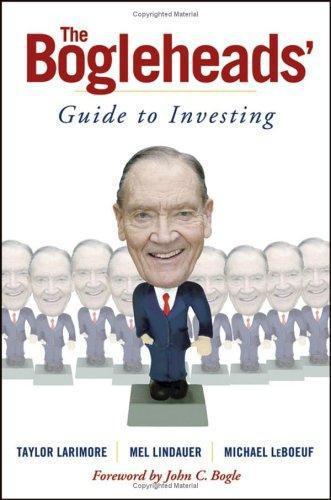
The Bogleheads' Guide to Investing
by
Taylor Larimore
,
Michael Leboeuf
and
Mel Lindauer
Published 1 Jan 2006
Taylor Larimore Mel Lindauer Michael LeBoeuf The Guide to Investing PART I ESSENTIALS OF SUCCESSFUL INVESTING CHAPTER ONE Choose a Sound Financial Lifestyle Drive-in banks were established so most of the cars today could see their real owners. -E. Joseph Grossman is an old statistic that has held very consistent over time. Take 100 young Americans starting out at age 25. By age 65, one will be rich and four will be financially independent. The remaining 95 will reach the traditional retirement age unable to self-sustain the lifestyle to which they have become accustomed. Without assistance from government programs such as Social Security, Medicare, and Medicaid, many would literally starve. And if you are harboring dreams of the government providing you with a full and prosperous retirement, it's time to wake up.
…
A lifestyle totally based on government handouts has always been uncomfortable at best. With 76 million baby boomers approaching retirement, and with increasing life expectancies, it could get a whole lot worse. We live in the richest country in world history. Our wealth is enormous and growing. Yet only 5 percent of us manage to become financially independent by age 65. Why is this? More often than not, the answer lies in what we choose to do with the money that comes into our lives. WHAT'S YOUR FINANCIAL LIFESTYLE? Although you might not be aware of it, you have chosen the financial lifestyle that you currently live. For purposes of simplicity, let's look at three common financial lifestyles lived by three different couples.
…
About the only good thing you can say for the Consumers' financial lifestyle is that it's better than the Borrowers'. Although Chad and Cathy believe they own their lifestyle, the truth is that they are just renting it. Like the Borrowers, a job loss, accident, or illness could hold dire financial consequences. Without a cash cushion and a long-term plan for achieving financial independence, they will continue to live a rented lifestyle until they choose to retire, or can no longer work. From then on, they will live a very spartan financial lifestyle dictated to them by a government bureaucracy. The Keepers While most Americans go through life with a credit card or paycheck mentality, a third, very wise group has a different financial mindset.
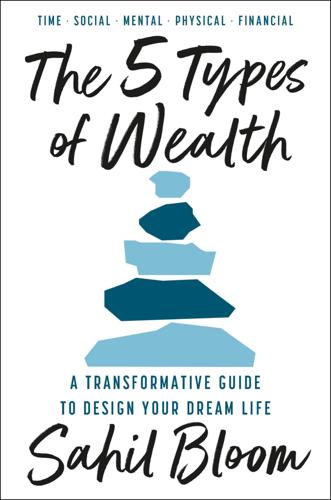
The 5 Types of Wealth: A Transformative Guide to Design Your Dream Life
by
Sahil Bloom
Published 4 Feb 2025
Asset accumulation accelerates, and assets begin to generate passive income to cover some lifestyle expenses. This is the level of moderate financial independence, as you can reduce your active income and continue to live the same lifestyle. Level 5: All pleasures are available. Asset accumulation reaches escape velocity, and assets generate passive income in excess of all lifestyle expenses. This is the level of complete financial independence, as you can remove all active income and continue to live the same lifestyle. Each person begins the journey at a different starting point, but any path upward through the levels requires a disciplined focus on the three pillars of income generation, expense management, and long-term investment.
…
Unfortunately, while the options are seemingly endless, many of the fancy investments and financial instruments are singing a siren song and luring you into danger. You walk around the amusement park and hear the subtle, devious drone from its attendants: “My course on flipping houses is the key to your financial independence.” “This cryptocurrency is going to fly.” “That passive real estate investment is a sure thing.” “These NFTs and fractionalized trading cards look like a steal.” “If you miss out on this opportunity, you’ll regret it the rest of your life.”
…
By developing an understanding of these pillars and the high-leverage systems that affect them, you can begin to create the right outcomes. Income Generation and Expense Management: Creating the Gap The gap between your income and your expenses is the most important tool in your financial independence tool kit—and it’s a tool that you get to create. Income is the cash inflow from primary employment, secondary employment, or passive income streams (rental properties, dividend stocks, et cetera). Expenses are the cash outflows of day-to-day life (food, shelter, transportation, et cetera), debt service (interest and principal payments on outstanding loans), experiences (vacations and events), taxes (if not automatically deducted out of income), and luxuries (material purchases, gifts, et cetera).
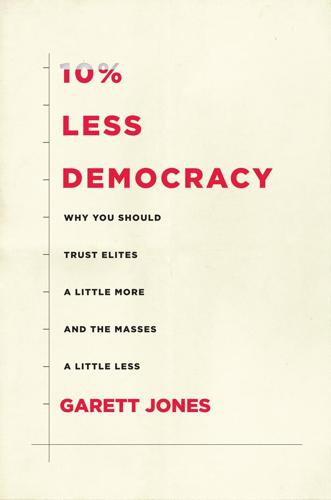
10% Less Democracy: Why You Should Trust Elites a Little More and the Masses a Little Less
by
Garett Jones
Published 4 Feb 2020
In the United States, according to Lisa Schultz Bressman and Robert Thompson, both of Vanderbilt, “several of the [finance-oriented] independent agencies have funding sources, usually from users and industry, which frees them from dependence on congressional appropriations and annual budgets developed by the executive branch.”²⁵ Regulatory agencies are just like Regency romance novels: to feel a certain personal independence, it’s important to have a clear financial independence. The power of the purse is something that regulators respect. The most famous case of financial independence in the United States is that of the Federal Reserve, which has total discretion in how it spends the interest on the investments it holds and how it spends the money it earns from the fees it receives for clearing millions of checks every day.
…
I’ve been fortunate enough to eat at various Federal Reserve banks when attending research conferences, and I can tell you that they aren’t spending the money on the food and wine, or if they are, they’re wildly overpaying. And in fact, the Fed returns the overwhelming majority of the fees and interest they earn each year. So whatever price we’re paying to let my fellow economists run the Federal Reserve System, it’s likely worth it as long as we’re getting low and stable inflation. The case for financially independent regulatory agencies is just a matter of applying to regulators the intuition that America’s founders had about judges: Article III of the U.S. Constitution states, “The Judges, both of the supreme and inferior Courts, shall . . . at stated Times, receive for their Services, a Compensation, which shall not be diminished during their Continuance in Office.”
…
, 63–64, 92; on tax policy, 61, 92–94, 143 bliss points, 19–20, 21–22 Bó, Ernesto Dal: on term lengths of politicians in Argentina, 37–38 bondholders: attitudes regarding governments, 118–19, 123–24, 131–32; and conditions on loans, 125–26, 133–34; defined, 118; Hamilton on, 119, 121, 177–78; as having explicit, advisory role in governance, 11, 119, 126–27, 133, 134–36; and inflation during 1970s, 122–23; vs. shareholders, 134–35; and state sovereignty, 127–28, 179 bond prices, 120–21, 122 bond rating agencies, 121, 122, 123–24, 136 Botswana: foreign judges in, 71–72 Bouazizi, Mohamed, 144–45 Bowie, David: bonds sold by, 120 Brennan, Jason, 6; Against Democracy, 103; on epistocracy, 103; on right to competent government, 103, 104 Bressman, Lisa Schultz: on financially independent agencies, 90 British common law, 75 Buchanan, James: Calculus of Consent, 161; on decision-making costs, 161; on majority rule, 161–62; on public choice theory, 28; on side payments, 162; on unanimous agreement, 160–62 Buckley, William F., 115 buffet syndrome, 20 Bureau of Justice Statistics (BJS), 108–9 Bush, George H.
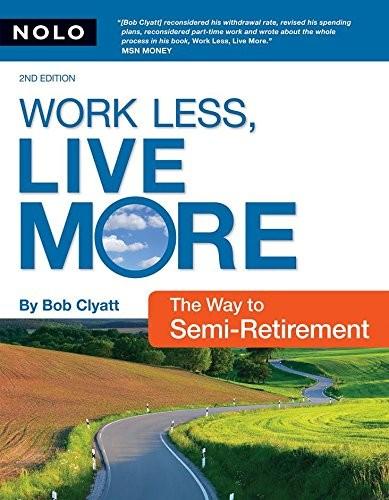
Work Less, Live More: The Way to Semi-Retirement
by
Robert Clyatt
Published 28 Sep 2007
Bob has already picked up a few paid writing projects and is enjoying having plenty of free time. Bob believes that a low tolerance for BS at work is often the trigger that gets the semi-retiree to start planning an early exit, but the ones who actually make it tend to be creative, self-sufficient, intelligent—and completely committed to financial independence. The Half-Millionaires in the Next Apartment These semi-retirees have taken frugality to the farthest comfortable limits. They live, perhaps singly or as a couple, on about $25,000 a year, usually with no kids. Renting an apartment can help keep more money free to invest. Their budget secrets: Drive an old car, eat simply, keep the heat turned down.
…
Fortunately, there are plenty of resources available to help. While semiretirement offers one powerful way to reduce stress over the long run, it may not be an option that is available for you just yet. Don’t despair. Many of those on the road to semi-retirement, living frugally and saving money, begin to feel a glow as they move toward financial independence and the knowledge that they are beginning to work by choice and not by necessity. If a job becomes too stressful, they can walk. Just knowing this can take a huge weight off. Many simple but powerful techniques, from yogic breathing and stretching, to mental timeouts, to simply turning off the cell phone, can get you started on a saner way of life right away.
…
This lets you model the impact, for instance, of receiving an inheritance or buying a second home, as well as make alterations in your income or spending from, for example, pensions, Social Security, or children leaving home. 110 | Work Less, Live More Resource Look to FIRECalc at www.firecalc.com. FIRE stands for Financial Independence, Retire Early. FIRECalc, developed by semi-retiree Bill Sholar, is free, but you are asked to make a voluntary contribution if you find the tool useful. It uses long-term historical data for testing your retirement finance strategies and has been recently updated to include the 95% Rule and Safe Withdrawal Method discussed in this book.

The new village green: living light, living local, living large
by
Stephen Morris
Published 1 Sep 2007
Not being that interested in investing in the federal government, and not trusting its security, I invest in Vermont bonds – those that finance schools, hospitals, and housing. They’re tax free, too. Educate yourself about investments. There are many good books on the subject. Talk to others about their choices, and invest your money wisely. It’s still your life energy, and now it can give you Financial Independence. The NEW VILLAGE GREEN 251 Financial Independence gives my family the option to do paid work that we love (if we choose), volunteer in our community, and have plenty of time for family, friends, and avocations. It’s a good life, it’s a balanced life, and it’s available to anybody – just follow the nine steps. Sea-jelly European peasants of the 1700s would attach braids of garlic to the entrance of their homes to assure evil would not enter.
…
(Eben Fodor) ...................................................................187 Green Weddings (Tracy Fernandez Rysavy) .....................................191 Safe Substitutes: Non-toxic Household Products (Davis & Turner)..196 8 : The Good Life Sun, Fun, and Diversion (Sam Wilder) ..............................................213 Jason and the Laundronauts (Jason Wentworth)..............................217 Gardening When it Counts (Steve Solomon) ...................................221 Beyond Organic: Investing In Local Food (George Schenk) ............223 Timber Framing (Rob Roy) ..............................................................227 The Plowboy Interview: Euell Gibbons ...........................................229 The Bonds that Tie (Dan Chiras)......................................................246 Financial Independence – For Us Common Folk (Jane Dwinell).....249 Colophon (Michael Potts)................................................................255 How The New Village Green was created .......................................261 People Index....................................................................................262 About Green Living Journal .............................................................265 contents To Donella Meadows, who took complex ideas and gave them a human face, and it was a face with a smile acknowledgments The New Village Green is a unique intersection of many places and communities.
…
Along with ceremonial magic, herbal remedies were linked to good spirits. Garlic, with its antibiotic properties, was often the remedy of choice. Because it was frequently successful in healing, garlic was considered the ideal weapon to battle the dark forces. 248 chapter 8 : The Good Life Financial Independence – For Us Common Folk W by Jane Dwinel hat would you do with your life if you didn’t have to work for money? I faced this compelling question 13 years ago. I didn’t have an answer. Sure, it would be nice to travel, spend more time with the family, and all that, but what would I do – actually do with my time – if I didn’t have to work for money?
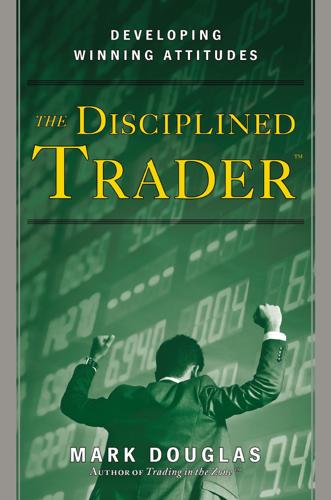
The Disciplined Trader: Developing Winning Attitudes
by
Mark Douglas
Published 1 Jan 1990
In addition to the negative psychological implications that accompany these decisions, you must be aware that even if you make the minimum financial commitment of one contract per trade (as in the futures market), there is an unlimited potential for profit as well as an unlimited potential for loss. From a psychological perspective, this means that each trade has the possibility of fulfilling your wildest dreams of financial independence, and simultaneously presents you with the risk of losing everything you own. The constantly changing price movement makes it extremely easy for you to ignore the risk and tempt yourself into believing you don't have to follow your own rules, this time. Here is an environment that offers complete freedom of expression combined with unlimited possibilities and unlimited risk.
…
As my financial problems grew, so did my desperation. And I certainly wasn't comforted by anything I saw going on around me. But I still held on to the belief that I could trade out of these difficulties. That is until March 1982; by then it was all over. A mere eight months after moving to Chicago to pursue my dreams of financial independence, I had nothing left except my job, apartment, clothes, a television, and a bed. Practically overnight, almost all the symbols that validated my identity were gone. What I mean is, a big part of my self-concept was made up of my possessions like my house, my car, and especially my credit. Maintaining flawless credit was something I had always been proud of.
…
Not only can the markets destroy a person's sense of security by forcing the trader to confront, on a moment-to-moment basis, his lack of acceptance of change, but they also produce an emotional environment of considerable competitiveness and stress. There's the compulsive need to win millions, with the simultaneous fear of financial devastation. The markets 25 tease a trader with the very real possibility of fulfilling his grandest dreams of financial independence and at the same time stand ready and willing to take away everything he owns—and more. Furthermore, the principles of time, effort, and reward associated with most job situations simply do not apply with the markets. For example, many jobs offer an unchanging reward, regardless of effort, because of hourly wages or yearly salaries.
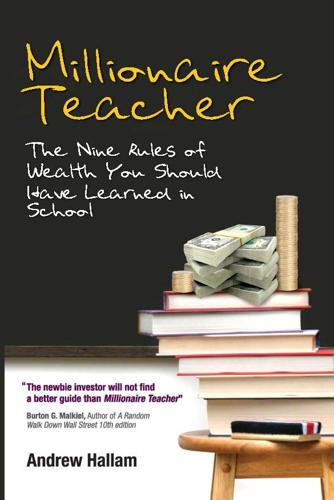
Millionaire Teacher: The Nine Rules of Wealth You Should Have Learned in School
by
Andrew Hallam
Published 1 Nov 2011
Kirk, The Kirk Report Unlike most investment book authors, Andrew Hallam has become a millionaire by living frugally and investing HIS OWN MONEY successfully. His book is a great guide for the average person seeking financial independence. Michael B. O’Higgins O’Higgins Asset Management, Inc., Author, Beating the Dow, Beating the Dow with Bonds Andrew Hallam is proof that you don’t need a high salary, complex stock trading system or even a financial adviser to achieve financial independence. You can get rich by living within your means and using simple wealth-building tools such as low-cost index funds. Millionaire Teacher is a sensible and highly readable guide to investing that packs a lot of wisdom into its nine simple rules.
…
According to a 2008 Toronto Star article, a NBA Players’ Association representative visiting the Toronto Raptors team once warned the players to temper their spending by reminding them that 60 percent of retired NBA players go broke five years after they stop collecting their enormous NBA paychecks.6 How can that happen? Sadly, the average NBA basketball player has very little (if any) financial common sense. Why would he? High schools don’t prepare us for the financial world. By following the concepts of wealth in this book, you can work your way toward financial independence. With a strong commitment to the rules, you could even grow wealthy—truly wealthy. This starts by following the first of my nine wealth rules: spend like you want to be rich. By minimizing the purchases that you don’t really need, you can maximize your money for investment purposes. Of course, that’s often easier said than done when you see so many others purchasing things that you would like to have as well.
…
Paying more for a car than a decamillionaire In 2006, Warren Buffett, one of the three richest men in the world bought the most expensive car he has ever owned: a $55,000 Cadillac.9 The average decamillionaire—a person with a net worth of more than $10 million—paid $41,997 for his or her latest car.10 If you find yourself at an upscale mall, check out the parking lot and you’ll see many vehicles worth more than $41,997. Some will even be worth more than Warren Buffett’s car. But how many of the car owners do you think have $10 million or more? If your answer is “probably none” then you’re catching on fast. Many have jeopardized their own pursuit of wealth or financial independence for the allusion of looking wealthy instead of being wealthy. Whatever money you save on a car (not to mention the savings from interest payments if you can’t buy the car outright) can go toward wealth-building investments. Cars aren’t investments. Unlike long-term assets such as real estate, stocks, and bonds, cars depreciate in value with each passing year.
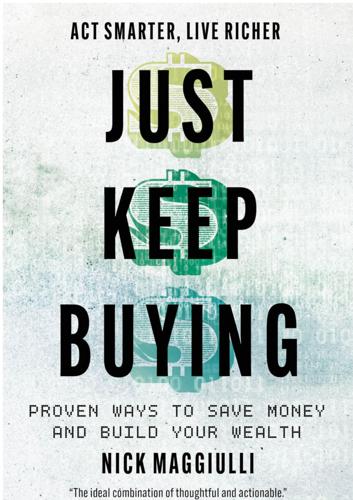
Just Keep Buying: Proven Ways to Save Money and Build Your Wealth
by
Nick Maggiulli
Published 15 May 2022
In the book Your Money or Your Life by Vicki Robin and Joe Dominguez, this is called the Crossover Point.⁵⁴ It’s called the Crossover Point because this is the point when your monthly income crosses over your monthly expenses to grant you financial freedom. This is important because the Crossover Point Rule can be used as a proxy for financial independence at any age. For example, if your monthly expenses are $4,000, once your investments can pay you more than $4,000 a month, then you have reached your Crossover Point. How do you find the amount of money needed to exceed your Crossover Point? We will call this amount your crossover assets.
…
Indeed, physical well-being, mental well-being, and solid social support play bigger roles than financial status for most retirees.”⁵⁵ Zelinski’s book suggests that it is not a financial crisis you need to worry about in retirement, but an existential one. I have heard similar messages from others who reached financial independence early and hated it. For example, consider what Kevin O’Leary, a.k.a. Mr. Wonderful from Shark Tank, said about retirement after selling his first company at age 36: “I retired for three years. I was bored out of my mind. Working is not just about money. People don’t understand this very often until they stop working.
…
Otherwise, you may be setting yourself up for a future of disappointment and failure. Because as much as I want you to succeed financially, that won’t matter if you don’t succeed mentally, emotionally, and physically as well. This is one of the reasons why I am not a big fan of the FIRE (financial independence retire early) movement. Though some people can leave the rat race at 35 and enjoy their lives, others find it much more difficult (and not for financial reasons). For example, after having a discussion about the FIRE movement online, a man named Terrence (not his real name) reached out to me on Twitter to describe his experience as a FIRE nomad.
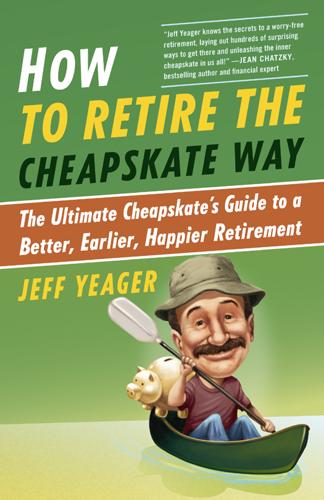
How to Retire the Cheapskate Way
by
Jeff Yeager
Published 1 Jan 2013
After you’ve finished, sit back and take a careful look at the whole list. It should tell you a lot about how much money you’re really going to need to enjoy retirement. Who knows, you may even discover that there are not that many items on your list with dollar signs next to them, and that you may already be a lot closer to the level of financial independence you need to retire. That’s what Bruce Jackson discovered when he made his list … and decided that he could happily retire at the ripe old age of thirty-nine. KELLY AND JON NOWAK Newlyweds, but Not Newly Frugal Married for a mere eight weeks at the time I interviewed them, newlyweds Kelly and Jon Nowak were quick to confess that retirement and retirement planning were not top-of-mind issues for them at that precise moment.
…
What’s compelling about the Cedotals’ story—and why I wanted to interview them—is where they are in their financial lives compared with many similar families, and how they got there. While traditional, full-time retirement may or may not be something they’ll ever decide they want in life, the important thing is that the young couple are already well on their way to achieving a level of financial independence that will give them the flexibility to choose as they please in the years ahead. Today, the couple live entirely debt-free, with the exception of their home mortgage, which they have been paying down at a breakneck pace and plan to have fully paid off before either hits age forty. At this point in life, the Cedotals are fortunate to have a healthy income by national standards, and even more so by Mississippi standards, which in recent years has had the lowest median household income of any state in the union, according to the US Census Bureau.
…
“It wasn’t until I entered the workforce that I realized that retirement wasn’t something that was automatically handed to you just because you managed to survive until your golden years,” she says, reflecting on her first civilian job after serving for a year in the navy and her brief marriage ending in divorce. At that time, she had just started working as a buyer for a chain of salon spas in the Midwest, and the future looked pretty bright. “I realized that retirement had to be earned. Since retirement had always been my dream job, I decided to be vigilant in my quest for financial independence. “I began contributing the maximum amount I could towards my 401(k) right from the start … not an easy thing to do for a young single mom who wasn’t making very much money at the time. I was really, really careful with my money, watching every penny I spent and saving everything I could,” she says with a rightful sense of pride and accomplishment.
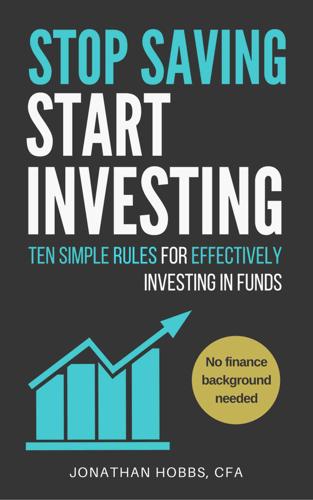
Stop Saving Start Investing: Ten Simple Rules for Effectively Investing in Funds
by
Jonathan Hobbs
Published 5 Apr 2017
Source: https://www.ons.gov.uk/economy/inflationandpriceindices 6 Your bank balance will go up if you save more money, but because the yearly return on your savings is lower than the inflation rate, that money will be able to buy you less ‘stuff’ each year. Chapter summary Saving your money will not make you wealthy. In fact, you could be losing wealth each year by saving if the interest rate you earn on your savings is lower than the inflation rate. Working for money will not make you wealthy. To achieve financial independence, your money needs to work for you. A good investment strategy can earn you around 10% in average investment returns per year. This isn’t as difficult to achieve as you may think. Investing pays off over time. The sooner you start investing, the better off you’ll be. CHAPTER 2 THE POWER OF COMPOUNDED INVESTMENT RETURNS “Compound interest is the eighth wonder of the world.
…
It won’t always be a smooth ride, but after many years of sensible investing you’ll be in a far better position financially than if you had saved that money in your bank account. At first your returns won’t seem like much when there’s not much money in your account, but in a few years’ time, your FOF portfolio could morph into a powerful money-making machine! My sincere thanks for reading this far. I hope you’re now one step closer to achieving your financial independence. If you would like to learn more about investing (and less about saving) you can visit www.stopsaving.com. The end. GET IN TOUCH You’ve made it through the book, great job! You’ve already shown your commitment to take charge of your financial future. But remember, what you’ve learnt here will only be useful if you put it into practice.
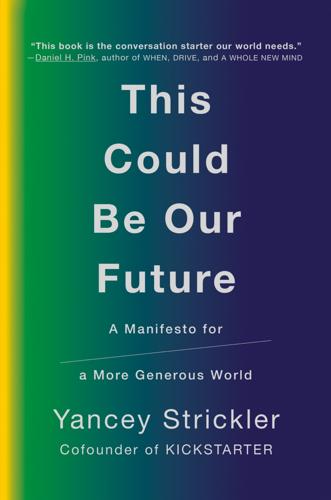
This Could Be Our Future: A Manifesto for a More Generous World
by
Yancey Strickler
Published 29 Oct 2019
There are literal costs to this but benefits, too. Chick-fil-A is one of America’s most popular restaurant chains and top-ranked places to work. The company’s unique commitment to its values is a big reason why. REBELS ON A BUDGET Sometimes it’s what you don’t do that creates value. For members of the Financial Independence Retire Early movement (FIRE), maximizing value means not spending money on things they don’t need. Wasting money is for losers. FIRE is a personal finance strategy that teaches people how to minimize their spending and maximize their long-term goals. For FIRE followers, a key first-date question is less “How much do you make?”
…
Schumacher, Small Is Beautiful: Economics as If People Mattered Joseph Stiglitz, Amartya Sen, and Jean-Paul Fitoussi, Mismeasuring Our Lives: Why GDP Doesn’t Add Up Business Yvon Chouinard, Let My People Go Surfing: The Education of a Reluctant Businessman Phil Knight, Shoe Dog: A Memoir by the Creator of Nike Michael Lewis, Liar’s Poker Konosuke Matsushita, Not for Bread Alone Daniel H. Pink, Drive: The Surprising Truth About What Motivates Us Financial Independence Retire Early Chris Martenson and Adam Taggart, Prosper! How to Prepare for the Future and Create a World Worth Inheriting Medicine Siddhartha Mukherjee, The Emperor of All Maladies: A Biography of Cancer David Wootton, Bad Medicine: Doctors Doing Harm Since Hippocrates FURTHER WATCHING The Adam Curtis films The Trap, The Century of Self, and HyperNormalisation NOTES INTRODUCTION front page of China Daily: The China Daily headline ran on October 27, 2017.
…
See also specific companies cultural heritage, 180–81 Curtis, Adam, 270–71 data/data science, xv, 97, 123, 150, 159–62, 215 decision making, 28, 96–97 affects other people, 127–28, 144 and Bentoism, 130, 134, 138–40, 206–11 best-case outcome for, 126, 152, 243 guided by defaults, 22–23, 34–35 and making money, x–xi, 23, 135 of Maximizing Class, 62–63 rational, xiii, 134–35, 137, 139 values-driven, xiii, 132, 138–39, 152–53, 174–76, 209–10, 223 See also autonomy defaults (hidden) and bento box, 129–30 explanation of, 19–23 and financial maximization, x, 22–26, 64, 83 and game theory, 32, 34–35 and maximizing here/now, 136–37 set what’s normal, 34–35 and values, 214–15, 223 defaults (visible), 22 Defense Advanced Research Projects Agency (DARPA), 78–79 deregulation, 77–78, 83, 257 disrupting, in business, 87–88, 95–99, 103 downtown, demise of, 48, 51–52, 54 Drive (Pink), 117–19 drugs, xii, 23, 81, 249 Dublin, Ireland, 9–10 e-commerce, 47, 162 “Economic Possibilities for Our Grandchildren” (Keynes), 193–94 economy, 261 downturn in, 61–62, 71, 120 and financial maximization, x, xiii, 70, 72, 116 growth of, 120, 151, 193–95, 267 “Mullet,” 66–74, 77, 84, 110, 163 shareholder-centric, 60–61, 67–73, 82–85 See also gross domestic product (GDP); stock buybacks education, 24–26, 74–75, 110, 170–71, 197, 216, 259 electric cars, 173–75, 183 Ellison, Larry, 109–10 emotions, 22–23, 103, 113–15, 195, 260 Enron, 78, 210 Entrepreneurial State, The (Mazzucato), 78 entrepreneurship, 52–54, 75, 78–81, 196, 241 environmental issues, 14–15, 77, 172–74, 201, 212 Etsy, 212 “evergreen” model, 217 exercise, xiv, 177–78, 184–87, 189–90, 265, 267 Facebook, 53–54, 98, 109 fairness, xii–xiii, xv, 102, 142, 145, 158, 163, 195, 202, 216 family, the, xiii, xv, 26–27, 90–91, 111, 127, 138, 142, 222 Federal Reserve, 49 Federal Reserve Bank of Dallas, 72–73 financial crises, 77–78 debt, 65–66, 74–75 growth, xv–xvi instability, 110, 112 security, xi, 109–14, 116, 141, 201, 205 Financial Independence Retire Early (FIRE), 166–69 financial maximization, 236 becomes mainstream, 59–61, 63–65, 91, 180 case against, 110–11, 115–16, 119 dominance of, x–xiii, xvi, 23–25, 27, 37, 73, 97, 104–5, 133–35 downsides to, xi–xiii, 45, 196–97, 199, 243 ending its reign, xiii, 13–14, 225 four phases of, 83–85 growth of, xi, 92, 123, 196, 265 moving beyond it, 163, 168–69, 206, 209, 212 normalization of, 91, 183 not the goal, 9–10, 43–44 origins of, x, xvi, 26–32, 255 prioritizing it, 14, 63, 82–83 Financial Times, 70–71 First Amendment, 39 Fonda, Jane, 187 Food and Drug Administration, 188 Fortune, 68 Fox News, xii Friedman, Milton, 59–61, 63, 82, 90–91, 105, 180, 255, 261 Future Me examples of, 138, 167–69, 202–6, 211 explanation of, 132, 143, 206 and values helix, 218–23 Future Us, 196 examples of, 138, 169, 171–75, 201–6, 211 explanation of, 132, 144–45, 206 and values helix, 218–19 game theory, 237, 250 and collaboration, 32–34 and Community Game, 33–35, 98 its notion of rationality, 29–35, 97 and Prisoner’s Dilemma, 28–34, 130–33, 198–99 and Stag Hunt, 32–34 and Wall Street Game, 33–35, 98 Garfield, James, 146–47, 149, 179 Gates, Bill, 109–10 generational change, xiv, 180–84, 187, 191–92, 266–67 influence, xi, 152, 218–24, 271 generosity, xii, 7, 118, 134, 175 Gomory, Ralph, 82 Google, 53–54, 110, 123 Great Depression, 71, 77, 120, 193 Greatest Generation, 192 grit, 135, 143–45 gross domestic product (GDP), xii, 23, 83, 120–24, 196, 235 gross domestic value (GDV), 217–18 Groupon, 96–97, 100 gyms, xiv, 20, 186–87 Hanchett, Thomas, 49 happiness.
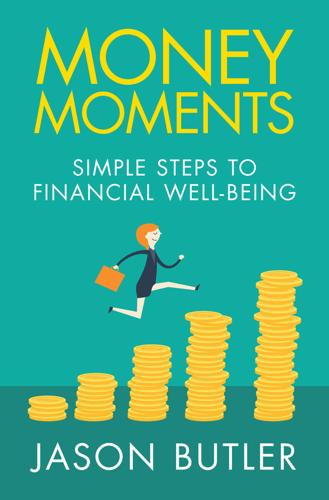
Money Moments: Simple Steps to Financial Well-Being
by
Jason Butler
Published 22 Nov 2017
Then ask yourself if this spending making you happy and, if not, what would. You have to weigh up whether the temporary happiness you derive from your short-term spending decisions is worth sacrificing longer term goals like becoming debt free, building up a sufficient emergency fund or saving for financial independence. You don’t have to get your spending to zero, but you do need to get it under control so you can live a life that reflects who you want to be, not what consumerism tells you to be. And once you’ve done that you can make sure that the first bill that gets paid each month is the monthly savings or debt repayment amount for your future self. 10 BAD DAY AT THE OFFICE WHEN YOU SHOULDN’T GO SHOPPING ‘You can never have too many hats, gloves, and shoes.’
…
Setting the wrong flight coordinates by a small amount, failing to regularly cross-check the progress of the flight, combined with lack of visibility all led to a terrible catastrophe. Planning your lifetime wealth is a bit like planning a long-distance plane journey. You need to have an idea of where you are heading in terms of life expectancy, cash inflows and outflows, key life events and when you want to have achieved financial independence (that stage when paid work is optional – you work because you want to, not because you have to). Along the way you’ll need to make course corrections in the light of actual spending, income, taxes, inflation, and investment returns. A recent study found that people who had a long-term financial plan experienced greater financial well-being.
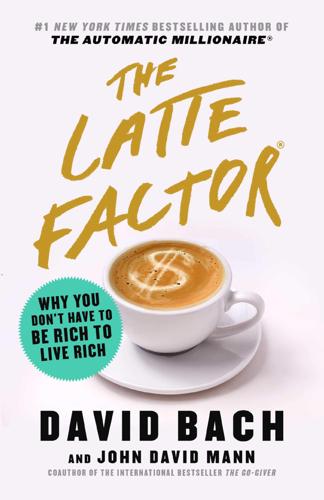
The Latte Factor: Why You Don't Have to Be Rich to Live Rich
by
David Bach
and
John David Mann
Published 6 May 2019
—Bobbi Rebell, CFP®, author of How to Be a Financial Grownup, host of the Financial Grownup podcast, and former Reuters business TV anchor “A captivating story packed with aha moments. The Latte Factor will surprise and delight you—and it will transform the way you think about personal finances.” —Michael Hyatt, New York Times bestselling author of Platform and Your Best Year Ever “Bach and Mann offer a master class in the fundamentals of personal finance and financial independence, wrapped in an engaging story of self-discovery. The Latte Factor is a gem!” —Bob Roth, New York Times bestselling author of Strength in Stillness “Bach and Mann have done a startlingly good job of illustrating life’s deepest secret and most profound truth: that a genuinely rich life—a life of ‘flat-out, unbridled joy,’ as the authors put it—is available to anyone in any circumstances.
…
No, the point of the exercise is simply to give yourself a little evidence—to show you that you already earn enough right now to build wealth.” She looked up at him. “You mean, I’m richer than I think,” she said. “You’re richer than you think,” he echoed. “Which is true, by the way. You, Zoey, earn enough, right now, to become financially independent. It’s just that, like most people, you’re letting it drain away as quickly as you earn it. It’s like filling a bathtub with the drain wide-open and wondering why it never gets full enough to take a nice hot bath. We dribble away what should be the seeds of a fortune on little things that don’t matter, without ever giving it much thought.
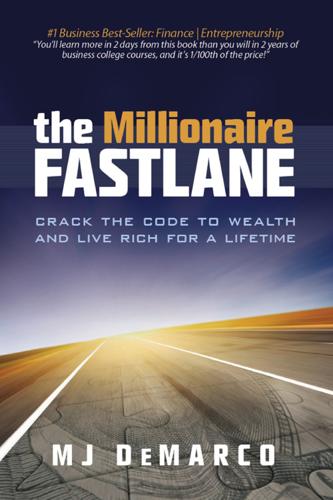
The Millionaire Fastlane: Crack the Code to Wealth and Live Rich for a Lifetime
by
Mj Demarco
Published 8 Nov 2010
Lucky-Bastard-Hater uttered that under his breath and sat his ass in the dugout, I was at the plate taking swings. Joe is a Sidewalker and believes luck is required to get rich. He spends his days working construction and his evenings commenting on gossip blogs, playing videogames, and watching TV. He has given up on his dreams of financial independence based on his ideas of luck. “I'm just not a lucky guy,” he laments. Joe's brother Bill also has a job in construction, except Bill spends his evenings surfing the Internet, researching the newest practices of inventing and engineering. Bill's dream is to be an inventor and has created four prototypes of inventions in various fields.
…
Once you're familiar with Fastlane mathematics, it should become clear to you which gurus are likely guilty of the paradox. Is the underlying mathematical equation which governs their teachings the same one that made them rich? If the "do as I say" doesn't match the "do as I do", you should be suspicious. What makes me different is this: The Fastlane concepts in this book gave me financial independence. I already have financial freedom-the nice house, the sports cars, and the flashy rapper credit card. I don't need this book to get me these things. I also confess this Fastlane disclaimer: This book has the power to make me wealthier because it leverages the same wealth equation I teach you.
…
Is it possible you can go home and rave to your wife “Honey! I sold 20,000 hot dogs today!” It would never happen! Again, this isn't much different from the 24-hour cage on intrinsic value. Small numbers have a strong gravity toward mediocrity. Another example is this book itself. How many people are interested in financial independence or early retirement? My market, my upper speed limit, is virtually hundreds of millions of people all over the world. To weaponize the Fastlane wealth equation, you must engage in a Fastlane business that has the potential for leverage or high speed limits. Retarded numbers retard wealth!
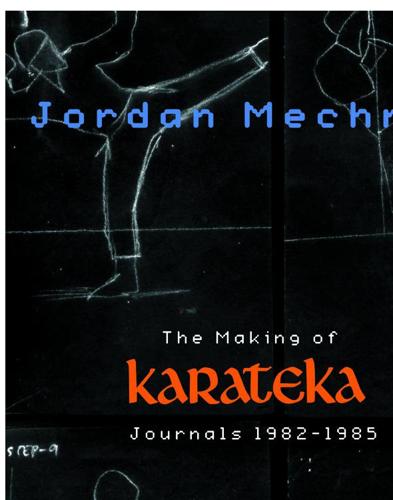
The Making of Karateka: Journals 1982-1985
by
Jordan Mechner
Published 26 Dec 2012
On his way out, Ben Kingsley shook my hand. George’s too. November 5, 1983 Read Stephen King’s Firestarter this afternoon, having bought it last night. I wish I’d spent the day working on Karateka. I really am a self-destructive bastard. Tomorrow morning I’ll leap out of bed and plunge into it. (Dreaming) Money. Financial independence. A place in the Softalk Top Thirty. Getting interviewed by computer magazines. It’s hard for me to imagine such significant changes in my life. Maybe I’m procrastinating partly because I’m afraid to disturb the stasis I’ve been enjoying for two years now. Which is stupid. So get to work!
…
I made Tom jump: When he walked in, a deep computer voice said “Greetings, Thomas. Would you like to play a game?” But the novelty wore off fairly quickly. March 20, 1985 OK, so in the transition from adolescence to adulthood, I’ve already pushed a few of the markers over to the other side of the line: Financially independent. College diploma, coming up. Career opportunities, plenty. Still on this side of the line: No driver’s license. No girl. Still live at home. My scenarios for the post-Commencement future all have one thing in common: They’re gutless. No major changes. • Try my hand at screenwriting – but without abandoning game making
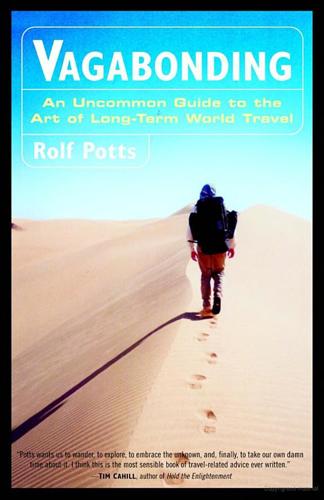
Vagabonding: An Uncommon Guide to the Art of Long-Term World Travel
by
Rolf Potts
Published 24 Dec 2002
In this way, simplicity — both at home and on the road — affords you the time to seek renewed meaning in an oft-neglected commodity that can’t be bought at any price: life itself. Tip Sheet RESOURCES FOR LIFESTYLE SIMPLICITY Your Money or Your Life: Transforming Your Relationship with Money and Achieving Financial Independence, by Joe Dominguez and Vicki Robin (Penguin USA, 1999) This bestselling book uses a nine-step process to demonstrate how most people are making a “dying” instead of a living. Includes practical pointers for achieving financial independence by altering your lifestyle. Voluntary Simplicity: Toward a Way of Life That Is Outwardly Simple, Inwardly Rich, by Duane Elgin (Quill, 1993) First published in 1981, this is a popular reference and inspiration for those looking to live a simpler life.
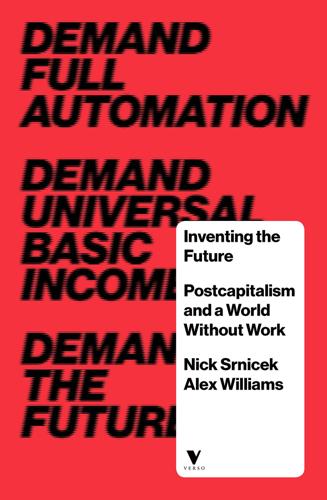
Inventing the Future: Postcapitalism and a World Without Work
by
Nick Srnicek
and
Alex Williams
Published 1 Oct 2015
Its disregard for the gendered division of labour overcomes some of the biases of the traditional welfare state predicated upon a male breadwinner.118 Equally, it recognises the contributions of unwaged domestic labourers to the reproduction of society and provides them with an income accordingly. The financial independence that comes with a basic income is also crucial to developing the synthetic freedom of women. It enables experimentation with different forms of family and community structure that are no longer bound to the model of the privatised nuclear family.119 And financial independence can reconfigure intimate relationships as well: one of the more unexpected findings of experiments with UBI has been that the divorce rate tended to rise.120 Conservative commentators jumped on this as proof of the demand’s immorality, but higher divorce rates are easily explained as women gaining the financial means to leave dysfunctional relationships.121 A basic income can therefore enable easier experimentation with the family structure, more possibilities for the provision of childcare and an easier transformation of the gendered division of labour.
…
Importantly, anti-work politics provides such resources: for example, it is perhaps the best option for a red-green coalition, insofar as it overcomes the tensions between an economic programme of jobs and growth and an environmental programme of decreased carbon emissions. The post-work project is also an inherently feminist one, recognising the invisible labour carried out predominantly by women, as well as the feminisation of the labour market, and the necessity of providing financial independence for women’s full liberation. Equally, it links up with anti-racist struggles, insofar as black and other minority populations are disproportionately affected by high unemployment and the mass incarceration and police brutality associated with jobless communities. Finally, the post-work project builds upon postcolonial and indigenous struggles with the aim of providing a means of subsistence for the massive informal labour force, as well as mobilising against barriers to immigration.26 Articulating the character of a movement that can bring together such differences helps to emphasise the importance of demands to any proper populism.

The Impossible City: A Hong Kong Memoir
by
Karen Cheung
Published 15 Feb 2022
An hour-long cognitive behavioral therapy session with an old man with kind eyes, at a building in Central opposite banks and offices. He hands me 150 mg of something called a cannonball, which will jolt me awake, and 45 mg of mirtazapine, an antidepressant. The bill is HK$2,000 every two weeks. My boyfriend has old family money; I’m still a student trying to become financially independent from my father. This will just be for a couple of weeks—I won’t have to keep seeing this doctor, I think. I do get better, for a bit. Then my boyfriend and I break up. I can tell this story only in these broadest of strokes. I cannot write about my depression and leave this out, but I know that I am a selfish writer, and selfish writers write sentences into people’s mouths, smooth out creases in our history.
…
When I ask him about his future, Tomii goes quiet and lights a cigarette. Then he says, with hesitation: “Questions like this puzzle me every time, especially when I’m going through an existential crisis. Tomorrow becomes very far away, very obscure.” Tomii will be thirty soon, and he worries about the fact that he still isn’t financially independent. He’s never made much money from his indie ventures: He has to fork out rent for the band practice space, and still lives with his working-class family. For a while, he worked as a session musician at weddings and pop concerts at Queen Elizabeth Stadium, for major Cantopop names such as Andy Hui and William So Wing Hong, and even televised singing competitions.
…
All of us are somewhere on the spectrum of cowardice. Some of us admit it. None of us know how to deal with the guilt. A protester I interviewed tells me that during the Umbrella Movement in 2014, she was still a university student, and could only afford to buy bottles of water for fellow protesters. Now that she’s financially independent, she can do more. She has so little to lose compared to the students who are protesting. When more frontline protesters were arrested, she saw it as her duty to step forward. She doesn’t want to leave Hong Kong; she’s worried how the city would fare in the hands of apolitical “Hong Kong pigs.”
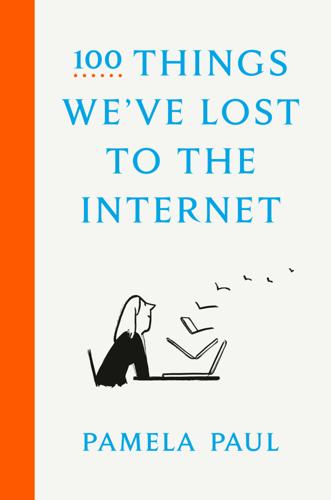
100 Things We've Lost to the Internet
by
Pamela Paul
Published 14 Oct 2021
The average joe couldn’t place a trade without a gatekeeper—one with the expertise and experience to prevent you from making a fast and foolish decision. Depending on your local paper wasn’t just about keeping up on the news or indulging your passion, whether it was sports or the comics. You needed the coupons and you needed the classifieds, which were your gateway to financial independence and that first hole-in-the-wall apartment downtown. Until you got there, your mom would clip articles of interest and send them to you by mail, neatly folded into a business envelope—the review of a new movie you might like, stories about cities you’d visited together, an article about the neighbor’s exemplary son.
…
[ 74 ] YOUR CHECKBOOK Finally, a checkbook of your very own. This was a significant upgrade from a mere passbook, which meant you had only a basic savings account and had to fill out a form and stand in line for a bank teller in order to get money. A checkbook—only adults had checkbooks—meant financial independence; it meant you had access to money anywhere. There was something terribly sophisticated about brandishing a checkbook, perhaps in a monogrammed leather holder, flipping to the appropriate page, and signing with a flourish. In school, you learned to balance your checkbook as part of the standard math curriculum.
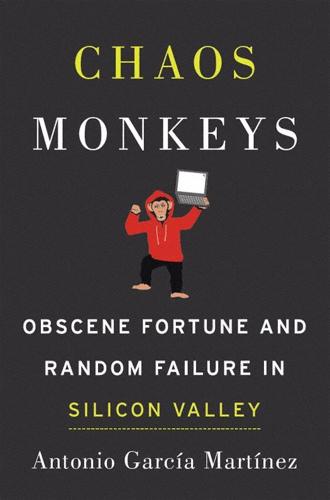
Chaos Monkeys: Obscene Fortune and Random Failure in Silicon Valley
by
Antonio Garcia Martinez
Published 27 Jun 2016
Those are the truly dangerous ones, the ones who live like organized crime trigger men, guerrilla fighters, or sailors at sea—eating shitty food and living in cheap, dumpy crash pads—and who couldn’t give a damn about quality of life.* Those are the people to fear, because they don’t need anything an antagonist can deprive them of. Or do they have a score of check-ins at Benu, Saison, and Quince? If they’re not financially independent, then they are harmless tools; they’ll do anything to keep the parade of fungi terrine monkfish and tangerine-peel abalone coming. What do they look like in photos taken over time? Do they look fit and healthy, with shots of them in corporate-branded nut-hugger biking outfits on a group ride on scenic Skyline Boulevard?
…
I could picture each of the boys digesting the offer, though, probably with their respective mates by their side. They’d have a very different take on it. In the case of Argyris, it meant thinking about an apartment in Athens, and the fantasy he had of opening a combined café–vinyl record store with Simla, his new wife. He already came from a wealthy family, but this meant his own financial independence, and so soon after graduating. In the case of MRM, it meant paying off his mortgage, and no worries about paying for karate lessons for the kids, not to mention help with college down the line. It would be the most he’d ever made in a long, hardworking, but not particularly remunerative career.
…
The British Trader romantic fire was still smoldering enough to be reignited if need be. But then, that would be doing the bourgeois family thing full-on, with combined finances, expectations of pricey schools, mortgages, the entire needy contraption of settled-down life. To me, only the man who needed nothing was truly free. Until I was financially independent (e.g., fuck-you money), or the captain of a profitable enterprise, I was merely a slave whose bondage was worth one or another price, locked in as much by diapers and tuition costs as by a vesting schedule. Like being a Miami marimbero, working at Facebook and signing up for daddyhood presented a harsh trade-off, at least in my mind.
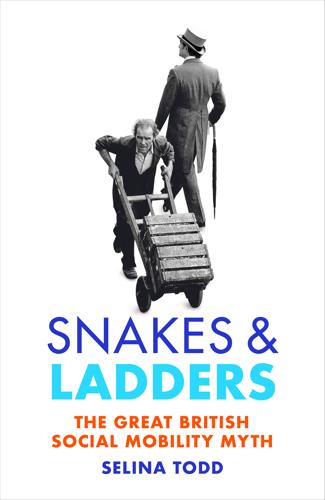
Snakes and Ladders: The Great British Social Mobility Myth
by
Selina Todd
Published 11 Feb 2021
By contrast, Maureen Thomas thought she had joined the middle class, but not just by virtue of marrying, first, a town planner, and then an accountant. Her work in the public sector, and the autonomy and financial independence this offered in the 1980s, was very important to her. In sociological terms, there was no difference between schoolteacher and home tutor, but for Maureen the freedom that the latter role gave her, and the feeling that she was making a significant difference to people’s lives, were vital distinctions. Her financial independence also enabled her to participate in what she defined as middle-class pursuits. As someone who had been encouraged to believe that success in the eleven-plus marked her departure from the working class, she associated learning, theatre and art with middle-class life (despite her grammar school having discouraged her love of art and drama).
…
But many daughters of professional men and businessmen also found clerking was the only work open to them in the 1930s, and this helps to explain why one-third of this generation of women experienced downward mobility.67 These young women were frustrated and disappointed to find that despite having the vote and more education than their mothers, they were unable to achieve financial independence. Fiona Markham measured her trajectory against her male peers: ‘I’d earn more if I was a man’.68 She found her situation wanting. In the 1930s, a handful of unemployed men – Walter Brierley among them – were able to achieve upward mobility. Aspiring writers had the time to pick up their pen.
…
By 1981, he was earning enough to buy the family a house in a ‘nice area’ of a northern town. Unlike Pamela Thornton, who was ‘very proud of being working class’, Maureen had always wanted to move into the middle class. By 1981 she thought she was ‘halfway to making it’.42 But ‘making it’ also meant becoming financially independent of her husband and broadening her education and social circle. In her youth, a lack of money, narrow educational pathways and the need to train for a job had prevented Maureen from pursuing interests such as travel, art and music. Now she had the chance to do so. In 1981 she returned to work, not as a classroom teacher but as a local authority tutor for children who couldn’t cope with mainstream schooling.
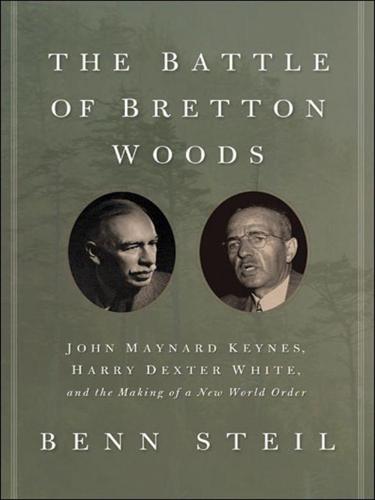
The Battle of Bretton Woods: John Maynard Keynes, Harry Dexter White, and the Making of a New World Order
by
Benn Steil
Published 14 May 2013
.… The truth I think was that he was not greatly interested in the detail of Keynes’s subject.”40 Whereas Keynes had seized the initiative in the spring with a fruitless effort to make Lend-Lease more friendly to British concerns about financial independence, the Americans took control of the discussion and turned it on its head in late June. It was time to put flesh on “the consideration” that Britain would provide the United States in return for Lend-Lease. Keynes was caught between the rock of Morgenthau and the hard place of Hull. Morgenthau and the Treasury team were determined to control Britain’s dollar and gold reserves by policing its exports, thereby minimizing the country’s financial independence—the opposite, naturally, of what Keynes was seeking. But to add grievous insult to such injury, Hull’s State Department, which Roosevelt had in May designated to lead the consideration negotiations, had a separate and sometimes conflicting priority: to dismantle Britain’s “imperial preference” trading system.
…
This success is the greatest obstacle of all to getting the problems of this memorandum taken seriously. Beyond this, it was vital for Britain to wean itself off obligations to the United States as quickly and completely as possible, which would require further great national sacrifice. “[T]he terms and the consequences of losing our financial independence … should deeply concern us…. We must reduce our requirements for American aid to the least possible—say, to $2 to $3 billion … and even be prepared, if the worst befalls, to do without it altogether.” In one sentence, he reveals that, whatever he might have said to the British Parliament and press in order to keep the Joint Statement alive, he understood fully the dangers of the game Britain was playing with its ambitious and much more powerful former colony: “Recent discussion in the United States and evidence given before Congress make it quite clear that there are quarters in the United States intending to use the grant of post-war credits to us as an opportunity for imposing (entirely, of course, for our good) the American conception of the international economic system.”114 This clearly included the abolition of imperial preference, the abolition of exchange controls preventing the use of sterling-area balances to buy American exports, and the enthronement of the dollar atop the international monetary system.
…
Both sides had to reckon with powerful domestic political forces that were relentlessly hostile to the concessions their team was making, sometimes without authorization. Keynes described the endless parrying to Richard Kahn as “the most harassing and exhausting negotiation you can imagine.” Having persuaded his government so effectively of the need to take every precaution against accepting American terms that would strip Britain of its financial independence, Keynes was now buffeted by a ferocious blowback from London. He had conceded to the Americans on highly sensitive areas ranging from Bretton Woods transitional rights to sterling convertibility to trade preferences to creditor priorities. Exhausted and surely conscious of his personal legacy as a diplomat and a coauthor of Bretton Woods, he was now determined to leave Washington with an agreement—any agreement—in short order.
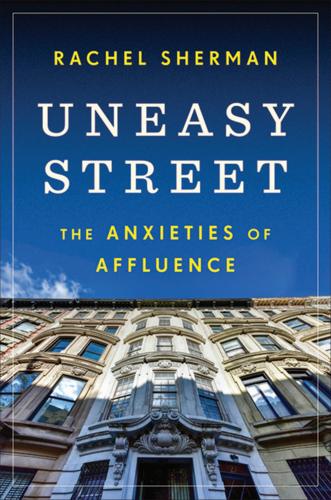
Uneasy Street: The Anxieties of Affluence
by
Rachel Sherman
Published 21 Aug 2017
But he’s certainly not looking through my credit card bill, thinking, ‘What is this?’ … And anything related to family, whether it’s groceries or home, he’s like, ‘Spend as much as you need.’” When her husband says, “Spend as much as you need,” he sounds like other husbands, who ultimately have power over the couple’s money. But her financial independence means he can’t control her spending (though she does echo the idea that spending on herself should come from “her” money). Danielle had been a banker before leaving paid work. Like her husband, she had inherited wealth, from which she paid herself a “salary,” as we have seen. She told me, specifically alluding to her primary role in household consumption, “I don’t understand how you could be the one who spends the money and not know.
…
He had not wanted to use “his” money to solve a temporary cash flow problem with the renovation, even though she had explained that she would repay him with her end-of-year bonus. He seems to feel—like the stay-at-home or low-earning women discussed earlier—that he needs his own money to be protected. And she is willing to legitimate this need and preserve the “family myth” that he is financially independent.23 GENDER, CLASS, AND CONTRIBUTION As Viviana Zelizer has written, “In organizing their economic activities, household members are actually negotiating the significance of relations among themselves.”24 As they negotiated household consumption and labor with their partners, the people I interviewed were also working out the value of their own contributions to family life.
…
See reciprocity married couples: and anxiety about money, 110, 156, 158–59, 177, 185; asymmetrical power dynamics in, 179–89; complementarity and harmonious, 158–59, 163–66; conflicts over spending or consumption, 24, 155–60, 173–76, 180–81; and consumption work as contribution, 163, 167–68, 196; control of money within, 155–60, 162–64, 167, 173, 175–78, 180–81, 183–85; dependence within, 38–39, 63–64, 72, 90, 167, 176–79, 189, 193, 196, 272n2; duel earner, 189–93; entitlement within, 158–60, 175, 178–79, 196 (see also unpaid labor under this heading); financial independence within, 176–79, 193; inherited wealth and, 159–60, 178–79, 183–85; and labor of lifestyle as contribution, 17, 78–79, 159, 163–65, 169, 179, 195–96; legal entitlement to marital property, 175–76, 180, 185–86, 189; negotiation within, 112–13; provider/consumer dynamic in, 67–68, 163–67, 195; relations of distribution within, 157; same-sex, 88, 189; single-earner couples, 167, 194–95 (see also unpaid labor as contribution under this heading); spending control and constraints within, 156–59, 161–63, 167–68, 173, 178–79, 183–85; spending styles and, 158–59, 165–66, 171, 175; time as controlled resource in, 159, 171–75; traditional gender roles and, 159–63, 180–81, 183–84, 189, 191–92, 194–95; unpaid labor as contribution within, 24, 61, 81–82, 86–89, 157–60, 163–65 materialism, 8, 23–24, 38, 93, 101–6, 112–13, 120–21, 198, 221–23, 275n11 Mears, Ashley, 277n26 media: representation of wealth in, 8–9, 13, 254 meritocracy, 12–13, 22–23, 62, 254; and wealth as deserved, 64, 230 methodology: characteristics of sample, 14–15, 242, 245–47, 256, 266n1, 272n6; coding process, 251, 257, 277n19; confidentiality, 255–56; critiques of, 252–55; interview process, 248–52; New York City as research site, 13–15, 242, 249; recruitment of interviewees, 14, 242–45; sampling (see sampling); “saturation,” 251–52 middle class, 6; “aspiring to the middle,” 28–44, 94, 266n1; consumption choices as hallmark of, 36, 232; contrasted with “working class” and “upper class,” 262n33; definitions of, 259n16, 262n33; as ghost category, 7–8; moral worth and membership in, 7–8, 23, 31–32, 44, 121; normalization of affluence and identification with, 23–24, 36, 43, 121, 232–33 Mills, C.
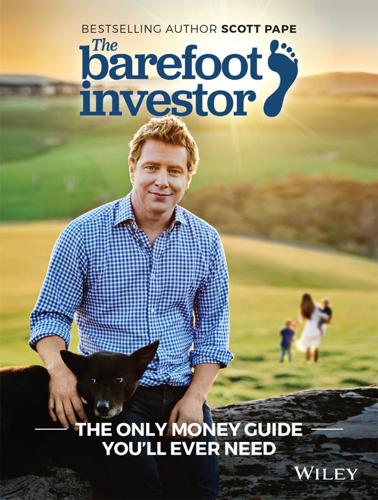
The Barefoot Investor: The Only Money Guide You'll Ever Need
by
Scott Pape
Published 22 Nov 2016
This explains why I know a lot of so-called financial experts who don't have two bob to rub together — and why I also know wealthy people who never finished high school. You don't need to be a financial expert to win with money. It's much more important to start than it is to be smart. And remember: you're in luck — you've got me as your independent tour guide to financial independence. Here's you: I don't earn enough. Here's me: It's not about what you earn, but what you save. I've had clients who were cleaners their entire lives, who never earned more than the minimum wage, but used compound interest to build a million-dollar portfolio. Here's you: I've left it too late … I should have saved more when I was younger.
…
Some who invest will often check their returns after three years, feel they're getting nowhere and decide to ‘diversify' into a Honda Jazz, a trip to Bali and an iPhone 98. (The reality is that most people learn about compound interest in reverse — by buying stuff they don't need, with money they don't have, to impress people they don't care about. Yet debt robs them of their financial independence. Debt makes things more expensive. Ultimately, debt is slavery.) Hardly anyone makes it to the seventh year, which is when the compounding snowball really starts. Yet if you can stick with it, that's when your life changes. The money starts pouring in, in gushes. That's when you'll crack the time code.
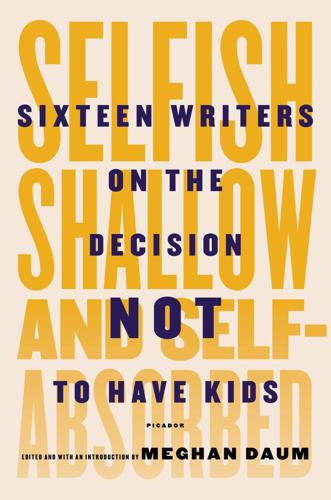
Selfish, Shallow, and Self-Absorbed: Sixteen Writers on the Decision Not to Have Kids
by
Meghan Daum
Published 29 Mar 2015
Menstruation, pregnancy—all these biological processes that you couldn’t control, which caught you unawares and seemed designed to embarrass you in public—felt like a baffling, humiliating negation of my existence as a thinking, reasoning adult.” By her twenties, her hostility had hardened. “I remember being astonished to meet contemporaries who had decided to have children within years of leaving university. It seemed utterly nonsensical. Here we were, just emerged from the tedious constraints of a seemingly endless education, financially independent for the first time, tasting our liberties at last, and the first thing they decided to do was to enter the prison of child rearing, with all its boring routines and dreadful responsibilities. Having children in my twenties would have spelled the end of everything I had spent my life working toward and was about to really enjoy: the ability to spend my money the way I wanted, travel where I wanted, choose my partners, live as I wished.”
…
Her sunny, perky quality provides a welcome counterpoint to my jaded older friends, and she’s optimistic about the future; that is, hers. Leslie does not want children. “When I think about my future, I envisage the fulfillment of ambitions such as traveling and furthering my career, not having babies. I can’t imagine I will be able to give up the lifestyle I lead to become a parent. Financial independence is very important to me, as is retaining my own independence in any relationship. Something would have to give in order for me to properly care for a child, and, unfortunately, it’s most often the mother who has to forgo some aspect of her life.” When I ask her, an only child, if it matters to her whether she carries on the family line, she says honestly, “It’s not really something I’ve thought about.”
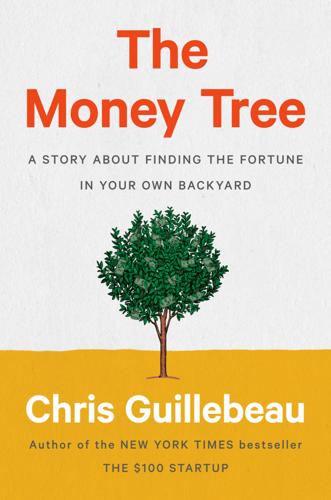
The Money Tree: A Story About Finding the Fortune in Your Own Backyard
by
Chris Guillebeau
Published 6 Apr 2020
Finally, even though having more money technically wouldn’t help him keep his job at Brightside, he’d be less worried about losing it. The worst-case scenario wouldn’t mean he was out on the street—it would just mean he’d need to find another gig. That’s what it all came down to, he realized. Financial independence. A new way to get paid, preferably in larger-than-small amounts and on a regular basis. Money wasn’t the answer to everything, but if he had more money coming in, a lot of things would be a lot easier. So where’s the money tree, Jake? 4. Getting into Titan was like gaining access to a top-secret CIA vault.
…
He had some dreams of his own, too, including some that were just beginning to form. What he was learning wasn’t just an answer to his immediate problems, it felt like a beginning to a whole new life. He wasn’t sure how he’d arrived at this juncture of crisis and opportunity, but he was looking forward to discovering where it would take him. It was clear that financial independence was key to many parts of whatever came next, and now he felt it might actually be in reach. Jogging back to the guesthouse, he made a mental note of something else he had to do. The next day, before they left, he spent an hour writing postcards while sitting at a café. He sent one to Maya, of course, and others to Zach, Liza, and their parents.
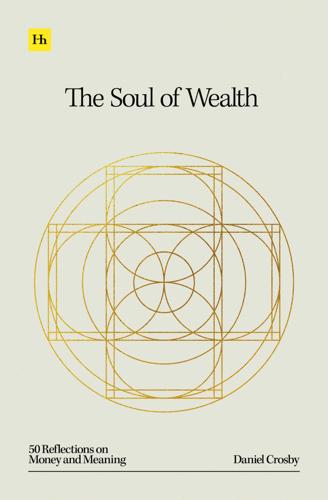
The Soul of Wealth
by
Daniel Crosby
Published 19 Sep 2024
“In this latter group of poorer households, internal locus of control households enjoyed on average 40%–60% more accumulated wealth than the external locus of control households,” wrote Tim Fallaw of DataPoints.154 The findings underscore the significant impact of locus of control on wealth accumulation, particularly among households with lower socioeconomic status. Dr. Fallaw went on to say, “Our research at DataPoints indicates a strong positive correlation between an internal locus of control and positive wealth outcomes.” Fallaw further writes in the aforementioned book, “Those who are financially independent focus on their own choices, taking responsibility for their money-related actions and behaviors.” That is somewhat of a hot take in today’s personal finance discourse. Research and assertions like the above tend to upset some people because, well, life circumstances can be brutally unfair.
…
Who knew that a regular workout could also beef up your bank account? There is an inextricable link between health and wealth, one that I experienced firsthand. Physical and mental health challenges can lead to financial stress (and vice versa), which hinders career progress and may set us back on our path to financial independence. We must all utilize available resources, such as wellness plans and self-care practices, to improve both health and financial stability. Focusing on one and not the other is tantamount to ignoring both. * * * 180 Piotr Bialowolski, Dorota Weziak-Bialowolska, Matthew T.
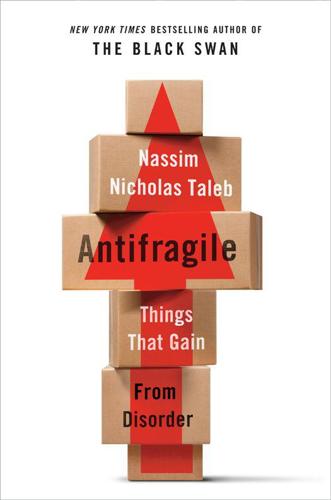
Antifragile: Things That Gain From Disorder
by
Nassim Nicholas Taleb
Published 27 Nov 2012
American writers, on the other hand, tend to become members of the media or academics, which makes them prisoners of a system and corrupts their writing, and, in the case of research academics, makes them live under continuous anxiety, pressures, and indeed, severe bastardization of the soul. Every line you write under someone else’s standards, like prostitution, kills a corresponding segment deep inside. On the other hand, sinecure-cum-writing is a quite soothing model, next best to having financial independence, or perhaps even better than financial independence. For instance, the great French poets Paul Claudel and Saint-John Perse and the novelist Stendhal were diplomats; a large segment of English writers were civil servants (Trollope was a post office worker); Kafka was employed by an insurance company. Best of all, Spinoza worked as a lens maker, which left his philosophy completely immune to any form of academic corruption.
…
By betting against fragility, they were antifragile. So Tony made a bundle from the crisis, in the high eight to low nine figures—everything other than a bundle for Tony is “tawk.” Nero made a bit, though much less than Tony, but he was satisfied that he had won—as we said, he had already been financially independent and he saw money as a waste of time. To put it bluntly, Nero’s family’s wealth had peaked in 1804, so he did not have the social insecurity of other adventurers, and money to him could not possibly be a social statement—only erudition for now, and perhaps wisdom in old age. Excess wealth, if you don’t need it, is a heavy burden.
…
The Options of Sweet Grapes The option I am talking about is no different from what we call options in daily life—the vacation resort with the most options is more likely to provide you with the activity that satisfies your tastes, and the one with the narrowest choices is likely to fail. So you need less information, that is, less knowledge, about the resort with broader options. There are other hidden options in our story of Thales. Financial independence, when used intelligently, can make you robust; it gives you options and allows you to make the right choices. Freedom is the ultimate option. Further, you will never get to know yourself—your real preferences—unless you face options and choices. Recall that the volatility of life helps provide information to us about others, but also about ourselves.
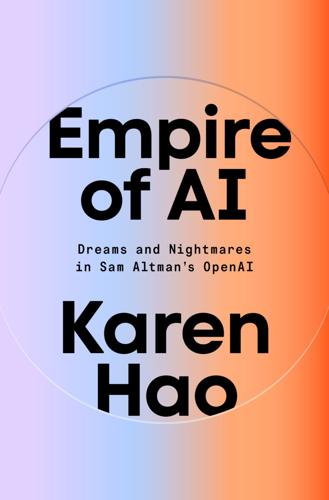
Empire of AI: Dreams and Nightmares in Sam Altman's OpenAI
by
Karen Hao
Published 19 May 2025
In the summer of 2020, as OpenAI began to gain its first major wave of public attention under Sam’s leadership, Annie would cut off contact with her family. There is a case to be made that Sam, as well as his brothers, were following the lead of their and Annie’s mother in an attempt to push Annie toward financial independence. It’s a complicated and painful family story, difficult to judge based on partial information. In a public statement in January 2025, Sam, his mom, and his two brothers expressed their love and concern for Annie and denied all of her allegations as “utterly untrue.” In response to my requests for interviews and detailed asks for comment, Connie Gibstine provided a shorter version of a similar statement and declined further elaboration; Sam, via OpenAI’s communications team, and his brothers did not respond.
…
“hi annie. in the spirit of it almost being yom kippur, i wanted to apologize and ask for forgiveness for something,” he wrote. During Annie’s requests for support, he had felt caught in the middle, torn between wanting to defer to their mom, agreeing with the rest of the family that Annie should learn financial independence, and feeling that Annie needed medical help and was struggling to function. “still, I made the wrong call and should just have just [sic] kept supporting you; i sincerely apologize,” he said. The sharp turn from the otherwise glowing public reception that Altman had received since the release of ChatGPT, and having what he viewed as his family’s painful private matters spilling out into the open, weighed on him.
…
The best tax strategy, Gibstine wrote to Annie in an email, was for Gibstine to keep the funds in her name in a tax-deferred account that would pass to Annie via a trust and to which she would gain access at age fifty-nine and a half. “We all want what is best for you, and we believe that what is best for you (and for everyone) is financial independence, which brings long-term satisfaction, personal growth and security,” Gibstine said. “For this reason, we want to clarify that we will not financially support you if/when your current inheritance from Dad runs out.” The email was signed “Mom, Sam, Max, Jack.” Annie was in a fragile state.
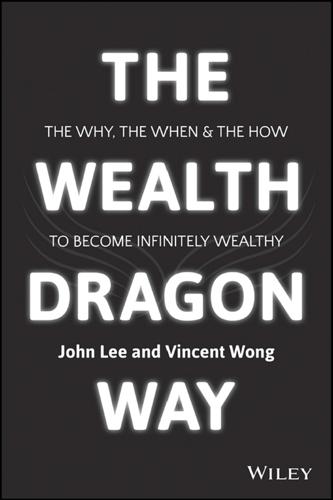
The Wealth Dragon Way: The Why, the When and the How to Become Infinitely Wealthy
by
John Lee
Published 13 Apr 2015
Figure 2.1 A Pictorial View of the Relationship between Moral and Monetary Wealth Vince: I have people who tell me that they are put off the idea of making money because rich people seem to do bad things. I point out that the number of rich people they have heard such stories about—due to the fact that their bad deeds have made national headlines—are a tiny fraction of the seriously wealthy, financially independent people in the world. There are plenty of incredibly wealthy people, doing extremely good things and leading happy lives, who are not splashing their actions across the front pages of newspapers. Saying that rich people are all bad because money makes some people do bad things is like saying anyone with a moustache is a mass murderer because Adolf Hitler and Saddam Hussein had moustaches.
…
Tucking money away in an account where it is earning a small amount of interest, rather than investing it in something that returns a regular income stream, is ultimately wasteful. Money in the bank is not working to its best potential for you. Obviously it is wiser to save some money rather than spend every penny you earn immediately, but saving is certainly not the key to financial independence. The first rule of investment is diversification. A good money manager will advise you to split your money four ways: some is left in the bank for spending, some is invested in appreciable assets like property, some is invested in a good portfolio of stocks and shares, and a small amount is what we'll call gambling money—for investing in opportunities with higher risk.
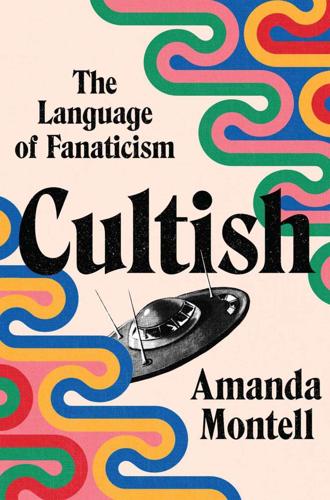
Cultish: The Language of Fanaticism
by
Amanda Montell
Published 14 Jun 2021
These are largely white-male-founded, white-female-operated beauty and “wellness” brands whose recruits peddle overpriced products (from face cream to essential oils to diet supplements) to their friends and family, while also trying to enlist those customers to become sellers themselves. MLM pitches always follow a similar script: They feature talk of this “once-in-a-lifetime opportunity” to be the “boss babe” you really are, “start your own business,” and “make a full-time income working part-time from home” to gain the “financial independence” you’ve always wanted. American MLMs number in the hundreds: Amway, Avon, and Mary Kay are among the best recognized, alongside Herbalife, Young Living Essential Oils, LuLaRoe, LipSense, dōTERRA, Pampered Chef, Rodan + Fields, Scentsy, Arbonne, Younique, and the iconic Tupperware. When I think of the typical MLM recruit, I think of women like Becca—middle-class shiksas from my high school who stayed in our hometown (or moved to Florida . . . always Florida), got married young, had babies shortly thereafter, and spend an impressive sum of hours on Facebook.
…
Your own boss. . . . There is nothing quite like the opportunity you have for earnings as a Tupperware dealer—NOW!” Over the following decades, direct sales kingpins followed in Wise’s footsteps, angling their products and language toward white stay-at-home moms. They filled women’s ears with promises of financial independence, the sort that wouldn’t threaten their traditionally feminine, wifely image. To this day, unemployed women, especially those living in blue-collar towns, continue to make up the majority of MLM recruits. Quickly, the direct selling industry figured out how to target other communities locked out of the dignified labor market.
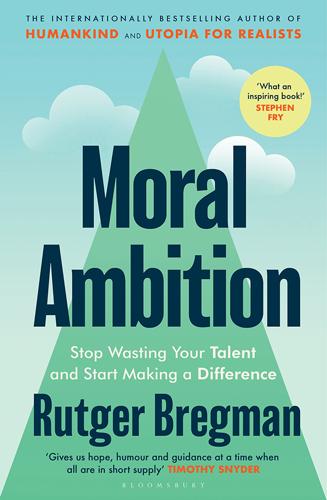
Moral Ambition: Stop Wasting Your Talent and Start Making a Difference
by
Bregman, Rutger
Published 9 Mar 2025
In fact, there’s a striking correlation between the level of pay in a given industry and how moral or immoral we think it is.8 See for instance this graph from a Swiss study: For some people in this not-all-that-ambitious, not-all-that-idealistic category, there’s also an escape hatch: becoming financially independent. Countless self-help books lay out how to get rich with minimal effort, so you can get out as soon as possible, then kick back and relax. You’ve now got loads of people in their twenties or thirties who dream of accumulating passive income – income from real estate, shares, or cryptocurrency – so they can ‘earn’ enough to retire early.9 Nothing wrong with having some savings and investments, of course.
…
See also: Jiri Novak and Pawel Bilinski, ‘The Wages of Sin – Social Stigma Premium in Executive Compensation’, SSRN (11 January 2016). 9 Popular titles include Rich Dad, Poor Dad (1997) by Robert T. Kiyosaki and The 4-Hour Workweek: Escape 9–5, Live Anywhere, and Join the New Rich (2007) by Timothy Ferriss. And then there’s the FIRE movement (Financially Independent, Retire Early) where people pass along money-savings tips and ways to earn returns as swiftly as possible in order to retire as soon as possible. 10 Kristine E. Guillaume and Jamie D. Halper, ‘After Harvard’, Nenya A. Edjah et al. (eds), The Graduating Class of 2020, By the Numbers, The Harvard Crimson (24 May 2020). 11 ‘Wat maakt management consultancy zo populair onder (top)studenten?’
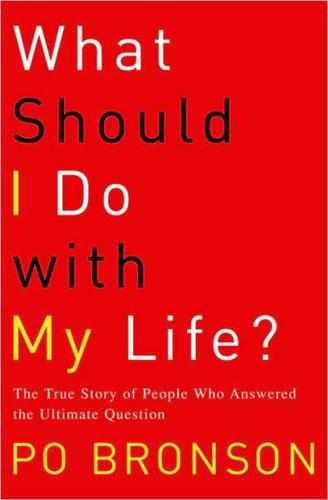
What Should I Do With My Life?
by
Po Bronson
Published 2 Jan 2001
That makes it sound like my dad was some Paternal Quote Generator, but in fact he’d recently rebuilt his life after putting his company through bankruptcy—he knew the feeling of independence one has when making money, and he knew, way too intimately, the loss of control one feels under insurmountable debt—he learned it the hard way. But I ignored that, and wrote off his words as typical Mr. Cleaver Dad stuff. I had no idea how to listen. I couldn’t take it seriously. If I was financially independent, I would never have to take work I didn’t want to do. But to become financially independent, I had to take work I didn’t want to do. Two years would lead to five years, and then I’d be like one of Don Linn’s old friends. Why waste years trying to game the system? Why fabricate excuses for why I should stick at a job that wasn’t, ultimately, the real me?
…
The people in this book are ordinary people. By that I mean they did not have available to them resources or character traits that gave them an uncommon advantage in pursuing their dream. Some have succeeded, many have not. Only one, in my mind, is saintly. Only two had what accountants call “financial independence.” Only two were so smart that they’d succeed at anything they chose, though having more choices made answering the question that much harder. None were gypsies by nature, such free spirits that they didn’t need or crave a place to call their own, though some eventually found their solace in learning to live that way.

A Book for Her
by
Bridget Christie
Published 1 Jul 2015
Suck it up? Why don’t you s— Oh, hang on. This is a great example of how complex the issue of the sex industry is within feminism. Luckily, I’m here to explain it to you simply and clearly, just like I did with the Vikings in my radio pitch. Brooke Magnanti is obviously a feminist. She’s a financially independent, strong woman who worked in the sex industry to get her through college because her doctoral studies didn’t include enough sex, which she loves. If that’s not a feminist I don’t know what is. But Brooke won’t call herself a feminist, because she feels that the ‘British feminist community’, whatever that is, slighted her by saying that some areas of the sex industry, like porn, prostitution and strip clubs, are contributing factors in female oppression.
…
I think we need to change the debate on this. So the question is not ‘Are you a feminist?’ but ‘Are you not a feminist?’ Being a feminist should be our default position. A given. Maybe that’s where we’re going wrong. Maybe we need to approach it in a different way. There are so many anti-feminists out there, many of them financially independent, contraceptive-taking, voting, educated women, that perhaps we should stop fighting for more women’s rights, and start fighting for less of them. Maybe we should try to have all the hard-won rights taken from us again. Perhaps that might end the debate once and for all. Obviously, our aim would still be gender equality, so men wouldn’t have any rights either.
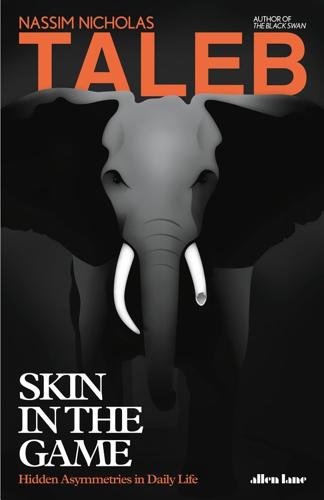
Skin in the Game: Hidden Asymmetries in Daily Life
by
Nassim Nicholas Taleb
Published 20 Feb 2018
Celibacy has been a way to force men to implement such heroism: for instance, the rebellious ancient sect the Essenes were celibate. So by definition they did not reproduce—unless one considers that their sect mutated to merge with what is known today as Christianity. A celibacy requirement might help with rebellious causes, but it isn’t the greatest way to multiply your sect through the ages. Financial independence is another way to solve ethical dilemmas, but such independence is hard to ascertain: many seemingly independent people aren’t particularly so. While, in Aristotle’s days, a person of independent means was free to follow his conscience, this is no longer as common in modern days. Intellectual and ethical freedom requires the absence of the skin of others in one’s game, which is why the free are so rare.
…
Intellectual and ethical freedom requires the absence of the skin of others in one’s game, which is why the free are so rare. I cannot possibly imagine the activist Ralph Nader, when he was the target of large motor companies, raising a family with 2.2 kids and a dog. But neither celibacy nor financial independence makes one unconditionally immune, as we see next. FINDING HIDDEN VULNERABILITIES So far we have seen that the requirement of celibacy is enough evidence that society has, traditionally, been implicitly penalizing some layer of a collective for the actions of a person. This is never done explicitly: nobody says, “I will punish your family because you are criticizing the big agrichemical firms,” when in effect this is what happens in practice when there is the threat of the reduction in the volume of the objects under the Christmas tree, or the degradation of the quality of food in the refrigerator.
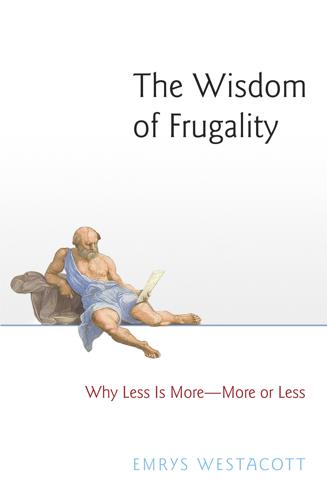
The Wisdom of Frugality: Why Less Is More - More or Less
by
Emrys Westacott
Published 14 Apr 2016
I learned from Amy Dacyczyn’s The Tightwad Gazette how to make a toilet-brush holder out of an empty milk carton, and I have never bought a toilet-brush holder since! On the other hand, her claim that one can mix real and fake maple syrup with no significant loss in quality failed a rudimentary family taste test.) But while a few treat frugality as primarily a method for becoming rich, or at least for achieving financial independence, most are concerned with more than cutting coupons, balancing checkbooks, and making good use of overripe bananas. They are fundamentally about lifestyle choices and values. And although they are not works of philosophy, they are nonetheless connected to and even undergirded by a venerable philosophical tradition that in the West goes back at least as far as Socrates.
…
(San Francisco: Berrett-Koehler, 2005); Juliet Schor, The Overspent American: Why We Want What We Don’t Need (New York: Harper, 1999); Charles Long, How to Survive without a Salary: Learning How to Live the Conserver Lifestyle (Toronto: Warwick Publishing, 1988); Jeff Yeager, The Ultimate Cheapskate’s Road Map to True Riches: A Practical (and Fun) Guide to Enjoying Life More by Spending Less (New York: Broadway Books, 2008); Vicki Robin and Joe Dominguez, Your Money or Your Life: 9 Steps to Transforming Your Relationship with Money and Achieving Financial Independence (New York: Penguin, 1992); Gregory Karp, Living Rich by Spending Smart: How to Get More of What You Really Want (Upper Saddle River, NJ: FT Press, 2008); Lauren Weber, In Cheap We Trust: The Story of a Misunderstood American Virtue (New York: Little, Brown and Company, 2009); Solomon Shepherd, The Lost Art of Frugality: A Frug’s Philosophy (N.p.: HCL, 2002); Ed Romney, Living Well on Practically Nothing (Boulder, CO: Paladin Press, 2001). 2.
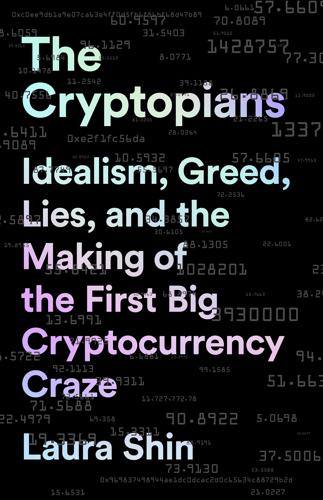
The Cryptopians: Idealism, Greed, Lies, and the Making of the First Big Cryptocurrency Craze
by
Laura Shin
Published 22 Feb 2022
Ulrich, as he disdainfully observes Yasmin’s joy over the gift card, begins musing how, while she will someday save enough for retirement, she can never hope to reach what he is working toward, financial independence, which is “mathematically” different. “Retirement meant that you were spending the money you had saved up, independence meant that all you were spending was just the interest on your money,” Vitalik wrote. “It was as if your contribution to society were complete, and you had fulfilled your debt to this world and could now peacefully live off the proceeds of your work until the end of time.” But at that time, Vitalik himself had not only not achieved financial independence but had never held a job. He got his first one the summer after graduation.
…
It had been five years since Vitalik left college with $10,000 worth of bitcoin and a gig writing about the cryptocurrency. He now had hundreds of millions of dollars’ worth of ether. A smart sale of about $700 ETH helped him maintain his lifestyle of constant travel, which had been upgraded to mostly business class flights and comfortable Airbnbs. Having reached financial independence, he never needed to worry about money again. Otherwise his lifestyle hadn’t changed. He traveled with a small backpack, which held his laptop, seven days’ worth of clothing, a jacket, a sweater, a toothbrush, toothpaste, random cables, USB keys, a pouch of the currencies of numerous countries, subway cards from more than a dozen cities, and a universal power adapter.
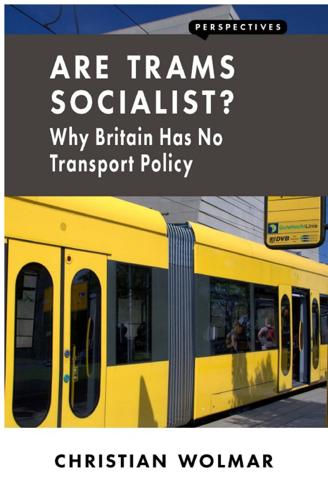
Are Trams Socialist?: Why Britain Has No Transport Policy
by
Christian Wolmar
Published 19 May 2016
Initiatives such as Smart Travel schemes, where individual households are presented with their transport options in interviews, are expensive, but they have been shown to bear fruit, with more people using public transport or walking or cycling when they realize what alternatives are available. A third key principle would be devolution, though this must come with genuine financial independence. It is no coincidence that those parts of the country that have the best record of transport investment, such as London, Scotland and Manchester, are those with a greater say over infrastructure investment priorities. London is the most compelling example. It already had a fantastic network of transport infrastructure, but thanks to devolution and being given control over its finances (plus the added advantage of being able to bully national politicians by arguing that London is a great growth generator and that transport is vital to that growth), it has, since the mayoralty was created in 2000, created a new network of railways (London Overground), massively improved bus services, imposed a congestion charge to help finance improvements, established a large network of hire bikes, created a series of ‘cycle superhighways’, obtained a promise to be given control of much of the suburban rail network, and has two massive rail investment schemes due to be completed before the end of the decade (Thameslink and Crossrail).
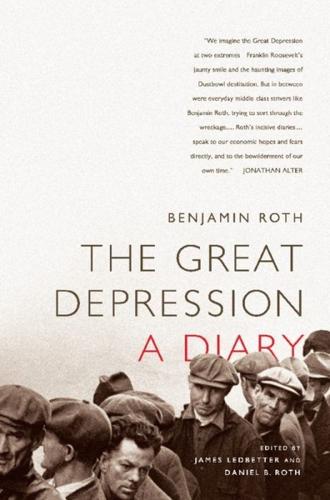
The Great Depression: A Diary
by
Benjamin Roth
,
James Ledbetter
and
Daniel B. Roth
Published 21 Jul 2009
Most people learn the first rule and succeed in saving various amounts out of their earnings but very few learn the second rule—how to invest it so it earns a profit and yet not lose the principal. It follows then that it is most important to learn how to invest money and make it work for you. W—above mentioned—actually saved $12000 out of his earnings. Wisely invested, he might now be financially independent. Instead he is broke. What is that one thing that leads one man to financial independence and the other to the scrap heap—when both worked hard and both saved the same amount out of their earnings? W has a record which shows he was avaricious and was not satisfied with a fair investment return. His record also shows his investment judgment was bad whether he bought real estate or stocks.
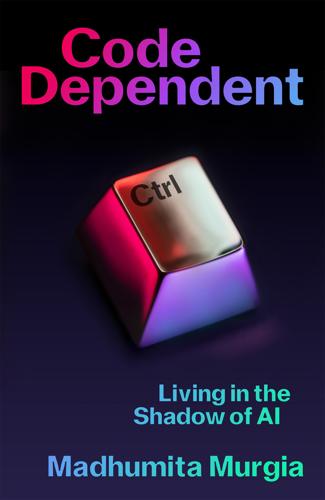
Code Dependent: Living in the Shadow of AI
by
Madhumita Murgia
Published 20 Mar 2024
She has felt alternately empowered and frustrated by the job, sometimes angered by her lack of control over it, but also grateful for the opportunities it has brought. Hiba isn’t content to simply continue doing what she is doing today, over and over, like a robot or a drone. At thirty-eight, she is financially independent and technologically literate for the first time in her life. Hiba has new dreams. The previous September, she enrolled in a local university, she and her older son both beginning their undergraduate degrees together. It’s expensive, about 10,000 Bulgarian leva, or over £4,000, a year. Hiba’s face lights up as she talks about how much she loves her classes.
…
Instead, people were told that the surveys were to collect information about their problems, so the government could work to bring them solutions. They suggested they could help fix their houses, put in new roofs, proper floors, provide sanitation or healthcare, and train them for jobs like carpentry or plumbing, giving them tools to be financially independent. ‘We can say, OK, you exist, we care about you, we can do things to improve your life or to help you,’ Pablo said. ‘At least with this, we bring the invisible to the light . . .’ The Mystery of the Missing AI Norma agreed with Pablo’s charitable view of the AI program – that it would help put a spotlight on the neighbourhood’s needs and challenges.
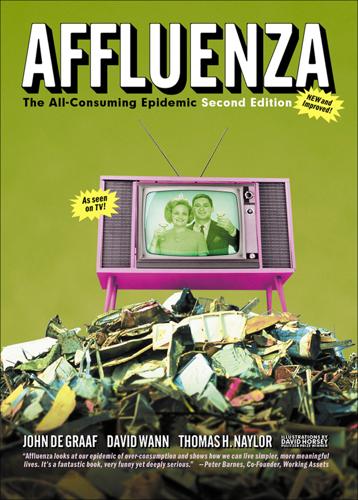
Affluenza: The All-Consuming Epidemic
by
John de Graaf
,
David Wann
,
Thomas H Naylor
and
David Horsey
Published 1 Jan 2001
It’s the stuff our grandparents knew but we’ve forgotten or been taught to forget.” NINE STEPS TO FINANCIAL INTEGRITY The book offers a nine-step “new frugality” program by which readers can get their financial feet back on the ground. When all the steps are followed, many higher-income readers find that they can achieve “financial independence” in a decade or so, allowing them to devote their time to work they find more meaningful than their current jobs. But even lower-income readers have found they can cut their expenses sharply. “In fact, the steps will be most useful to low-income people,” Dominguez said, “because they’re the ones who really need to know how to stretch a buck.”
…
.: CRC Publications, 1994. Dickson, Paul. Timelines. Reading, Mass.: Addison-Wesley, 1991. Dlugozima, Hope, James Scott, and David Sharp. Six Months Off. New York: Henry Holt, 1996. Dominguez, Joe, and Vicki Robin. Your Money or Your Life: Transforming Your Relationship with Money and Achieving Financial Independence. New York: Viking, 1992. Donovan, Webster. “The Stink about Pork,” George, April 1999: 94. Doyle, Kenneth. The Social Meanings of Money and Property. Thousand Oaks, Calif.: Sage, 1999. Dungan, Nathan. Prodigal Sons and Material Girls: How Not to Be Your Child’s ATM. New York: Wiley, 2003.
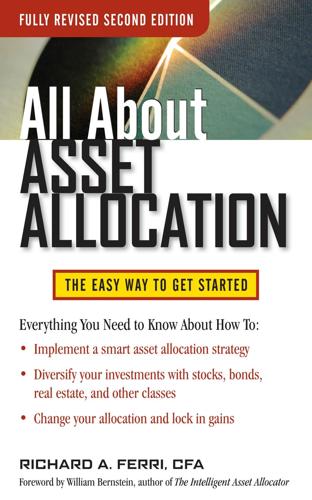
All About Asset Allocation, Second Edition
by
Richard Ferri
Published 11 Jul 2010
The world is constantly changing, and no computer simulation can accurately predict the changes that will occur or how these changes will affect a portfolio. 82 CHAPTER 4 In addition, a computer does not know who you are and cannot assess your personality profile so that the allocation it recommends truly fits your needs. It does not know how secure your job is, or how healthy you are, or if you have special family needs. It does not know if your children have become financially independent or if your parents are still financially independent and will remain that way. No computer knows if Social Security is going to be around 25 years from now. A computer model may be mathematically correct based on the very limited facts it is fed, but the answer it produces is not going to work if the allocation does not fit who you are, what your circumstances are, and what you are trying to accomplish.
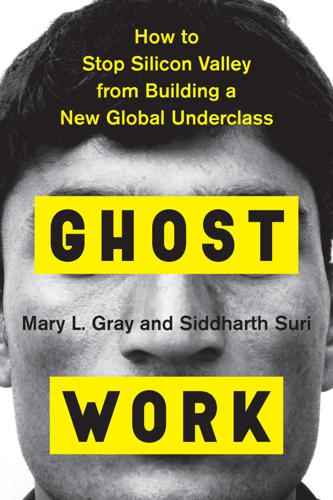
Ghost Work: How to Stop Silicon Valley From Building a New Global Underclass
by
Mary L. Gray
and
Siddharth Suri
Published 6 May 2019
In India, with the growth of formal employment came a greater demand for women’s presence in the service industries, particularly in business process outsourcing.23 But the country’s traditionalist impulses of political, religious, and caste ruling parties splinter cultural interest. India has made room to value the role of modern career women but is less accommodating of women who are financially independent and lay claim to identities beyond “wife,” “mother,” and “daughter.” While the pressure for women to “have it all” is a global phenomenon, women in the United States and India have different resources to navigate the constraints on their time.24 Women are still expected to prioritize family and social obligations over their commitments to the job and may not be able to reap the benefits of a professional IT career, such as stable pay, family leave, insurance, and validation as a “career woman.”
…
Workers can make ghost work a navigable path out of challenging circumstances, meeting a basic need for autonomy and independence that is necessary for pursuing other interests, bigger than money.32 GLASS CEILINGS On-demand jobs offer those in the U.S. and India who face workplace discrimination—particularly historically marginalized communities, women, and people with disabilities—digital literacy, a sense of identity, respect among family, and financial independence. Women who dropped out of the workforce to care for young children face barriers when they try to return. Women in the U.S. and India come from different religious and socioeconomic backgrounds, educational levels, and social roles, but women in the two countries share similar challenges in receiving fair pay and recognition for their contributions in the workplace, at the same time that they, paradoxically, go unpaid for their irreplaceable work as caregivers in their households.33 Kumuda, 34, is a Hindu mother of two who lives in Chennai, a coastal city in Tamil Nadu.
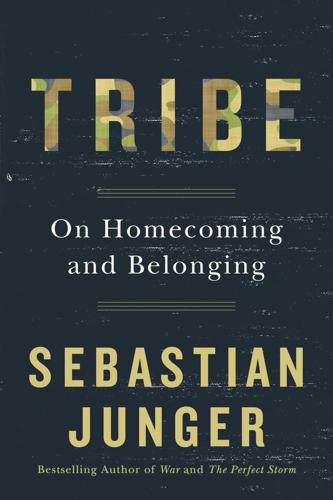
Tribe: On Homecoming and Belonging
by
Sebastian Junger
Published 23 May 2016
Inter-reliant poverty comes with its own stresses—and certainly isn’t the American ideal—but it’s much closer to our evolutionary heritage than affluence. A wealthy person who has never had to rely on help and resources from his community is leading a privileged life that falls way outside more than a million years of human experience. Financial independence can lead to isolation, and isolation can put people at a greatly increased risk of depression and suicide. This might be a fair trade for a generally wealthier society—but a trade it is. The psychological effect of placing such importance on affluence can be seen in microcosm in the legal profession.
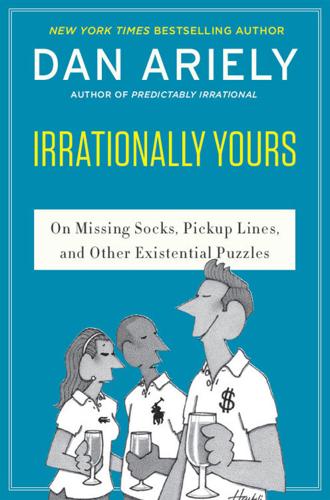
Irrationally Yours: On Missing Socks, Pickup Lines, and Other Existential Puzzles
by
Dan Ariely
and
William Haefeli
Published 18 May 2015
This is particularly sad, Scitovsky argues, because real progress—as well as real pleasure—comes from taking risks and trying very different approaches to life and types of experiences. So, perhaps this is a good opportunity to give up your comfort and give pleasure a chance. Relationships, Long-Term Thinking, Happiness ON INVESTING IN FINANCIAL ADVISORS “You can’t learn the path to financial independence from just ANY infomercial.” {Illustrations © 2015 William Haefeli} Dear Dan, Are financial advisors a wise investment? Mine charges me 1 percent each year for all my assets under management. Is it worth it? —ALLAN It is hard to know for sure. But the fact that many financial advisors have many different hidden fees suggests to me that they themselves don’t think that people would pay as much for their services if they charged in a clear and up-front way.

Cyprus - Culture Smart!: The Essential Guide to Customs & Culture
by
Constantine Buhayer
Published 24 Feb 2022
Cypriot women have always been strongly represented in the workforce in agriculture and as seamstresses, and have embraced the modern skills required in today’s world. At work, they might occupy important but not decision-making positions, in areas such as PR, marketing, advertising, and fashion. However, these positions are providing many with financial independence through their work. The new generation of Cypriot women are gradually gaining partnership positions in law firms and managerial positions in many walks of life. They are strongly represented in the media. Despite the progress made in their status, their individual achievements are not flagged in the same way as men’s.
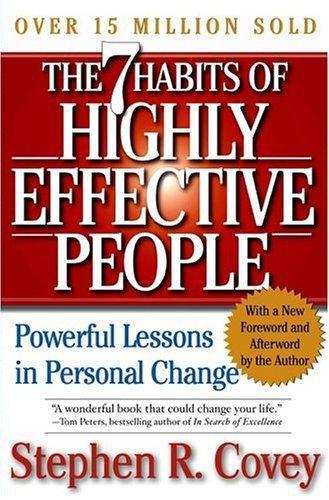
The 7 Habits of Highly Effective People: Powerful Lessons in Personal Change
by
Stephen R. Covey
Published 9 Nov 2004
I will act on situations and opportunities, rather than to be acted upon. I will always try to keep myself free from addictive and destructive habits. I will develop habits that free me from old labels and limits and expand my capabilities and choices. My money will be my servant, not my master. I will seek financial independence over time. My wants will be subject to my needs and my means. Except for long-term home and car loans, I will seek to keep myself free from consumer debt. I will spend less than I earn and regularly save or invest part of my income. Moreover, I will use what money and talents I have to make life more enjoyable for others through service and charitable giving.
…
As you plan, you force your mind to recognize high leverage Quadrant II activities, priority goals, and activities to maximize the use of your time and energy, and you organize and execute your activities around your priorities. As you become involved in continuing education, you increase your knowledge base and you increase your options. Your economic security does not lie in your job; it lies in your own power to produce--to think, to learn, to create, to adapt. That's true financial independence. It's not having wealth; it's having the power to produce wealth. It's intrinsic. The Daily Private Victory--a minimum of one hour a day in renewal of the physical, spiritual, and mental dimensions--is the key to the development of the Seven Habits and it's completely within your Circle of Influence.
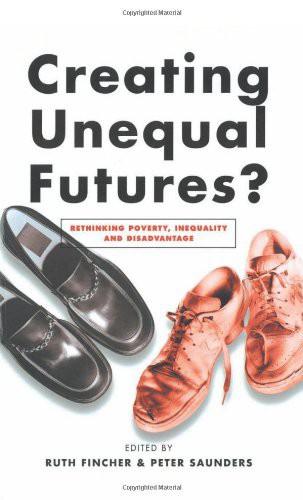
Creating Unequal Futures?: Rethinking Poverty, Inequality and Disadvantage
by
Ruth Fincher
and
Peter Saunders
Published 1 Jul 2001
While part of the reduction is likely to be a result of better targeting of the welfare payment to needy Australians, including indigenous Australians, the absolute improvements in indigenous educational attainment identified in Gray et al. (1999) may also play a role. Education policy remains the most likely instrument to enhance the financial independence of indigenous people. For example, Hunter (1997b) points to the low educational status of the indigenous population explaining about half of the employment differential between indigenous and other Australians. Even if improving educational attainment among indigenous people were not crucial in encouraging financial independence, it would remain a vital tool for augmenting what Sen called ‘functioning and capabilities’. That is, ‘mainstream’ education provides many skills that facilitate the capability to utilise resources in contemporary Australian society.
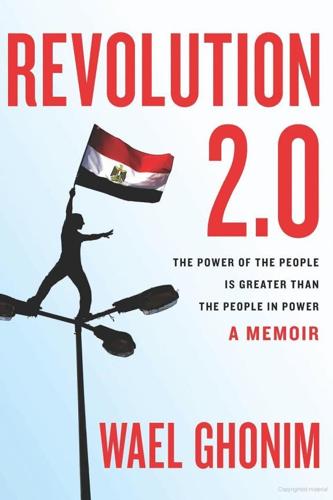
Revolution 2:0: A Memoir and Call to Action
by
Wael Ghonim
Published 15 Jan 2012
When he returned, I begged his forgiveness and declared that I would get a dedicated phone line and the bill would be my responsibility. Luckily, my father always tried to treat his children as responsible near-equals. He often told us to be careful what we wished for. This time, after hearing me out, he said, “As you wish.” It was the beginning of my life online, and the beginning of my financial independence, as I started earning a steady income from working in a video gaming store and as a freelance website developer. Working and spending long hours online was a real challenge to my studies. After passing the preparatory year at the engineering school, students were expected to choose a department to enroll in.
…
Despite my young age, I wanted to get married. I had proposed several times to Egyptian girls whom I met online or through my network of family and friends. My proposals were always met with skepticism leading to rejection. Many families thought I was crazy to seek marriage while I was still at school, despite the fact that I was financially independent and making a decent income. Stubborn and independent-minded as ever, however, I was determined to solve my problems my own way. Somehow I settled on a solution: I decided that what I really needed was to marry a non-Egyptian who would convert to Islam. I admired the openness of American culture and the practical way in which Americans faced life’s problems—so not just any Muslim convert, an American Muslim convert.
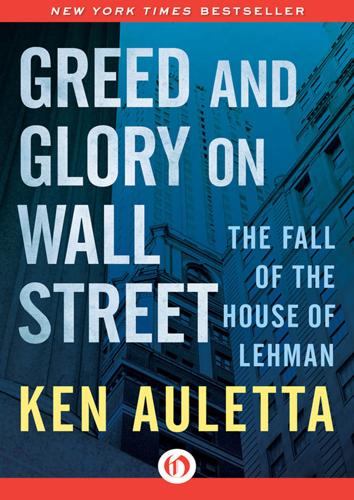
Greed and Glory on Wall Street: The Fall of the House of Lehman
by
Ken Auletta
Published 28 Sep 2015
Peter went to the right private schools, was the last member of his freshmen class to be accepted but nevertheless graduated cum laude from Harvard, received an M.B.A. from the Harvard Business School, and married Linda Newman, whose family were also successful retailers. Although his partners believed Solomon was far wealthier than he actually was, he did enjoy a degree of financial independence not shared by most partners, who did not think of themselves as wealthy despite annual earnings ranging from about $500,000 to more than $2 million, in addition to owning millions of dollars in Lehman stock. As Peterson spoke, Solomon remembers thinking, If only I had known beforehand, I wouldn’t have let it happen.
…
Roger Altman, thirty-seven, lost his mentor when Peterson left, then lost his job as part of the troika running banking. He was just now getting deeply involved again in his first love, politics and government, as an adviser to Walter Mondale in his bid for the 1984 presidential nomination. The sale of Lehman would give him the financial independence coveted by those who wish to serve in government but can’t afford it. Altman’s antennae were too sensitive for him not to pick up the whispers that he had damaged himself by tacking with the prevailing winds when Glucksman assumed command. Although he now began to impress his partners by showing more spine, for Roger Altman it was time to sell.
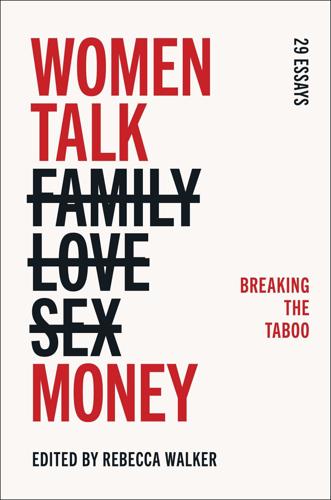
Women Talk Money: Breaking the Taboo
by
Rebecca Walker
Published 15 Mar 2022
He was desperate to make a better life in the US, after growing up with ten siblings on one salary. It didn’t help that my ajoba was also an alcoholic and compulsive gambler. But my father’s grit was abetted by a system held together with anti-Black racism, exploitative immigration policies, and the model minority myth. My story of financial independence has as much to do with my body size as it does my bank account, and with my family’s dedication to South Asian cisheteropatriarchy as well as their desire to assimilate to normative life in the US. I knew early on that my role as an eldest daughter was shaped with the sole purpose of training me to become a wife.
…
I realized this pattern of control, dieting, and shaming was actually a form of body image abuse. Body image abuse should be considered any pressure from a romantic or intimate partner, family member, or significant others to manipulate body size using tactics of power and control. Now in my thirties, I am finally learning how it feels to be financially independent. I know I cannot ask my parents for money the way my siblings do, and it’s extraordinarily stressful. My parents have plenty to share, but accepting money from them comes at too high a price. Whether the length of my hair, the fatness of my belly, or the gender of my partner, to them, money is a tool to control and demand obedience.

The Fiume Crisis
by
Dominique Kirchner Reill
Published 1 Dec 2020
However, you had to apply to receive it.15 Everyone else who wanted it had to invest time and money to apply. For the tens of thousands of immigrants who moved to Fiume and did not fit into the “guaranteed” categories, obtaining Fiume pertinency was a question of social class and power. Until 1908, applicants for Fiume pertinency had to 1) prove legal and financial independence, 2) have no criminal record, and 3) live at least one year uninterruptedly within the city while simultaneously a) proving adequate means, b) owning property within Fiume city limits, c) owning long-distance ships, or Between City and State 141 d) conducting one of the following professions: independent merchant, independent commercial agent, long-distance ship captain, long-distance ship lieutenant, university graduate, lawyer, notary, engineer, architect, teacher, surgeon, pharmacist, or any other profession considered valuable by city authorities.
…
When the 37-year-old policeman Giovanni Krmpotić applied for Fiume pertinency for himself; his wife, Giuliana née Medic; and his underage c hildren, Giovanni, Caterina, Irene, and Germano, he presented only his personal documents attesting that he was born in a Croatian village over 150 kilometers away, was financially independent, had no criminal record, had lived uninterruptedly in Fiume for nine years, and had been steadily employed as an officer within Fiume’s security forces.20 As was true of all pertinency petitions before 1918, no mention was made of his linguistic abilities, ethnic identity, or religious beliefs.
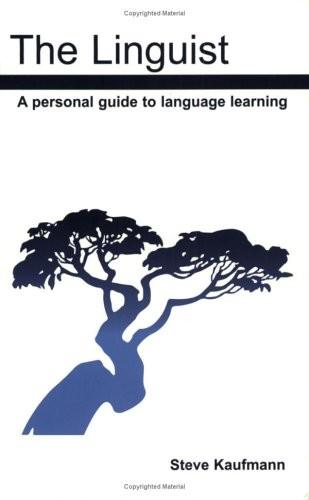
The Linguist: A Personal Guide to Language Learning
by
Steve Kaufmann
Published 15 Jan 2003
Speaking Japanese, I was able to create good personal contacts in the Japanese business community. For this reason I was later hired by two of the major Canadian lumber exporting companies, on two separate occasions to run their Asian marketing operations. This eventually resulted in me starting my own company, whereby I was able to achieve a certain degree of financial independence. I do not know what path I would have followed if I had gone to Beijing after all. No doubt I would have become more fluent in Chinese. I might still be in the diplomatic service or in the academic field or perhaps other opportunities would have come along. But pursuing languages was like a net for me, allowing me to catch opportunities that would otherwise have passed me by.
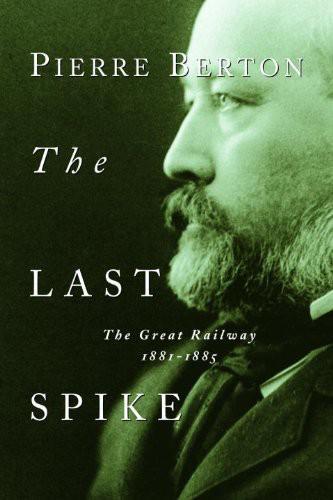
The Last Spike: The Great Railway, 1881-1885
by
Pierre Berton
Published 1 Jan 1971
Kwang Tung was China’s window on the West-Hong Kong was only a few miles away – and this situation, together with the extreme poverty and crowded conditions of the coolies (who were hived together, 241 to the square mile), made the prospect of emigration attractive. Each Chinese farmer yearned for financial independence, and all it took to buy financial independence in Kwang Tung (where the average wage was seven cents a day) was three hundred American dollars. It was the ambition of almost every immigrant to save that much money and then return to his homeland after perhaps five years of work on the railroad or in the mining camps, a situation which helps explain the British Columbians’ continuing complaints about money leaving the province.
…
The paper reported that when somebody in a store on Front Street threw out some frozen potatoes one “poor old Chinaman” was seen to stand out in the cold picking out those few that were not decayed. “Persons that witnessed the scene thought the sight a pretty hard one.” Not all of the Chinese who came to Canada with the hope of securing financial independence achieved their dream. The sudden completion of the Onderdonk contract made return to Asia impossible for thousands who had not been able to raise the price of passage home or the minor fortune of three hundred dollars that they had expected to amass. Although a Chinese labourer was paid about twenty-five dollars a month on the railway, it was difficult for him to save much more than forty dollars in any one year.
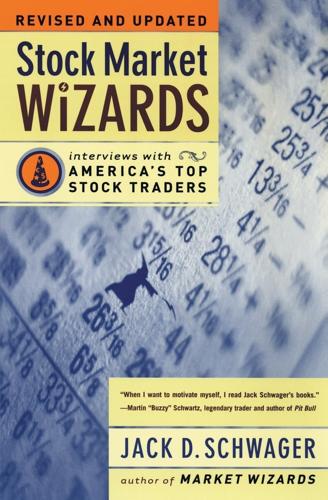
Stock Market Wizards: Interviews With America's Top Stock Traders
by
Jack D. Schwager
Published 1 Jan 2001
After you reach a certain level of financial success, what is the motivation to keep on going? The challenge of performance and the tremendous satisfaction I get from knowing that 1 contributed to people's financial security. It's fantastic. I have a lot of clients, some of whom are my own age, who I have been able to lead to total financial independence. How do you handle a losing streak? I trade smaller. By doing that, I know I'm not going to make a lot, but I also know I'm not going to lose a lot. It's like a pit stop. I need to refresh myself. Then when the next big opportunity comes around — and it always does — if I catch it right, it won't make any difference if I've missed some trades in the interim.
…
Nothing, but I did know enough to realize that it was a waste of time to call individuals and that it made a lot more sense to call institutions. Then how did you sell Kodak on the product? I told them, "Here is an investment that has no correlation with the stock market and has been compounding at about 30 percent per year." The Kodak account started me toward financial independence. After the Kodak sale you must have thought: "This is really easy!" I expected the money to pour in. Were you successful at opening other accounts? We tried to open other institutional accounts, but nothing happened. We basically had one account. No other institutions stepped up the plate.
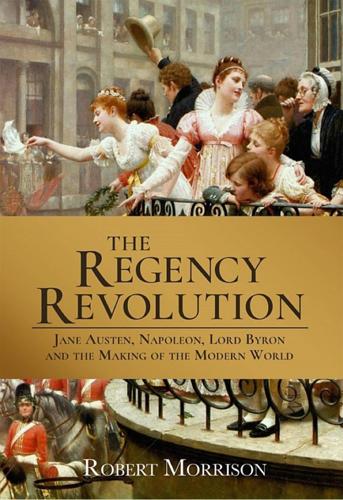
The Regency Revolution: Jane Austen, Napoleon, Lord Byron and the Making of the Modern World
by
Robert Morrison
Published 3 Jul 2019
Girls who turned solid profits were given “the pleasure and enjoyment of an elegant carriage, and livery servants to attend upon them to all the public places of resort.” 31 Harriette Wilson was the leading Cyprian of the Regency and worked almost exclusively in aristocratic circles, where she was well beyond the reach of grubbing madams and enjoyed a great deal of social, sexual, and financial independence. Born Harriette Dubouchet in Mayfair in 1786, she was one of fifteen children of an irascible Swiss watchmaker and his English wife, a silk-stocking mender who kept a shop in fashionable Queen Street. According to her own account, Harriette decided before she was ten years old that she was going “to live, free as air, from any restraint but that of my conscience,” and in her early teens she would sit with her sisters in her mother’s shop window and watch young elites saunter by, or flirt with them when they stopped in.
…
“It is bleak,” he wrote of one of his paintings in 1814, “and looks as if there would be a shower of sleet, and that you know is too much the case with my things.” Distressing Constable especially at this time was his inability to marry the love of his life, Maria Bicknell, whose family was firmly opposed to her relationship with the struggling artist. But when in 1816 his father died and Constable received an inheritance, he finally had the financial independence needed to marry Maria, and thereafter he painted with much greater confidence. “All my hopes and prospects in life are included in my attachment to you,” he had told her during their courtship, much of which they were forced to conduct clandestinely.44 Vitality, spontaneity, and comprehensiveness characterize Constable’s finest Regency paintings.
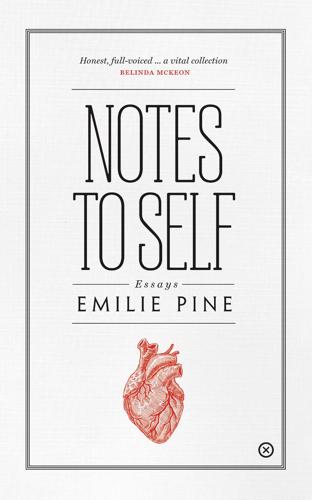
Notes to Self
by
Emilie Pine
Published 14 Apr 2018
All I could think was that here we were at a professional event, aimed at helping women break down barriers in their career paths and yet all these women were saying they wanted to be like their mums. No wonder you can’t get promoted, I thought, meanly, if your role model stayed home. Here’s the thing: my mother worked long hours out of the home. She taught me that the most important thing for a woman is to be financially independent. She taught me that women should be ambitious and take pride in their work. She taught me that work comes first and the domestic, with all its feelings, comes second. All these lessons conditioned me to think of working as the brave and necessary journey that women must take. So, ironically, I could have claimed my mother as my role model.
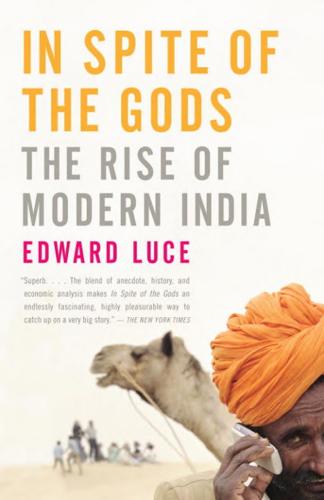
In Spite of the Gods: The Rise of Modern India
by
Edward Luce
Published 23 Aug 2006
The other was preparing for university entrance exams. Mrs. Kutty, who is illiterate, said she wished she had had her daughters’ opportunities. “Nowadays the girls have to get a good education, otherwise they would never get a job in the Gulf,” she said. “All the girls are studying so hard.” Since they are educated and financially independent, a small but growing number of the younger women in Mini-Gulf are now deciding for themselves whom they will marry and when. “In our day none of us had any choice,” said Mrs. Kutty. If I had driven through the district and simply observed life on the streets, I might have gotten a different impression.
…
This explains the odd tendency of newspaper columnists to blame the twin curses of the worsening gender divide and dowry inflation on Western consumer values, even though neither problem exists in the West. In contrast, most of the educated upper-caste elites in India have largely abandoned the practice of dowry. Their daughters go to university so they have become financially independent. Yet this is not true of all upper castes in all parts of India. For example, the survival chances of unborn daughters in both the Jain and the Marwari communities, who are the traditional business elites of Gujarat and elsewhere, continue to deteriorate. The Jains, who dominate much of Gujarat’s merchant trade, are a strictly vegetarian offshoot of Hinduism.
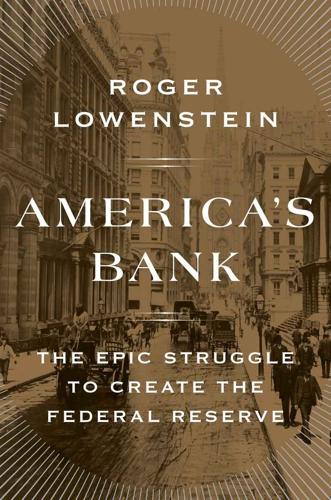
America's Bank: The Epic Struggle to Create the Federal Reserve
by
Roger Lowenstein
Published 19 Oct 2015
The U.S. dollar was a second-rate currency; incredibly, the dollar was quoted in fewer currency markets than the relatively puny Italian lira or Austrian schilling. In monetary terms, America remained a stepchild of the Bank of England, whose interest-rate maneuvers could, and often did, plunge Wall Street into recession. Financial independence required a more resilient currency, and one whose supply was regulated not in London or in Paris but in America itself. But what sort of bank would issue this currency and what rules would it live by? These questions had preoccupied Americans since the Civil War. They fought—unceasingly—over whether the money supply should be pegged to the country’s gold reserve, or to silver, or to some other standard.
…
A., 323, 324 Mondell, Frank, 230 monetarism, 226 monetary policy, 258 monetary reform, 5–8, 24, 48, 90, 92, 93–94, 97, 119, 128, 222, 251 Aldrich’s focus on, 89–91, 97–98, 120 public associations with, 123 money: agricultural assets and, 221–22 bank-issued, 3, 6, 11–13, 17, 24–25, 41, 55, 78, 128, 200, 204, 213, 221, 226–27 concentration of, 215 counterfeiting of, 13 creation of, 264 financial independence and, 6 government-issued, 128, 185, 199–200, 204, 207, 213–14, 252, 323; see also fiat money hoarding of, 69, 285 invented, 67 issuance under Aldrich Plan, 114 issued by Fed, 1, 117, 244, 245 national currency and, 41 paper, 11–13, 16 private issue of, 119 proper basis of, 225–27 Second Bank and, 3–4 supply of, 67, 225, 246, 258, 259, 270 trading of, 68 see also currency Money and Currency (Ravenscroft), 97 Money Changers, The (Sinclair), 72 money question, 199–200 money shortages, 2, 6, 15–19, 27, 49, 53, 68–69, 185, 204, 263 Aldrich on, 37–38 Coxey’s march and, 21 Panic of 1907 and, 59–60 Money Trust, 134, 136–37, 182, 252, 259, 269, 270 Money Trust inquiry, 141, 151–52, 155–56, 160, 172, 175, 191–93, 195, 268, 303 monopolies, 22, 71, 167–68, 175–76, 308 fears of, 19 National City Bank as, 135 Untermyer hearings and, 175 Wilson and, 169 Montana, 61 Moore & Schley, 71 Morawetz, Victor, 97, 101, 149, 174, 186, 267, 312 Morgan, Jack, 155, 196, 308 Morgan, J.
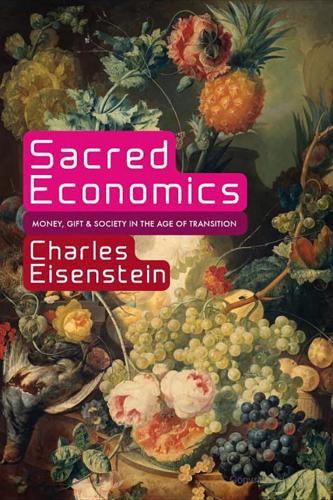
Sacred Economics: Money, Gift, and Society in the Age of Transition
by
Charles Eisenstein
Published 11 Jul 2011
The two go hand in hand—always! Together, they are a fear of life, of connection; they are a kind of reticence. To give and to receive, to owe and be owed, to depend on others and be depended on—this is being fully alive. To neither give nor receive, but to pay for everything; to never depend on anyone, but to be financially independent; to not be bound to a community or place, but to be mobile … such is the illusory paradise of the discrete and separate self. Corresponding to the spiritual conceit of nonattachment, to the religious delusion of nonworldliness, and to the scientific ambition to master and transcend nature, it is proving to be not a paradise but a hell.
…
Perhaps there is hope for community after all, even in the midst of a monetized society. Perhaps it lies in those needs that bought things cannot satisfy. Perhaps the very things we need the most are absent from the products of mass production, cannot be quantified or commoditized, and are therefore inherently outside the money realm. The financially independent person is not bereft of community because he meets all of his needs via money—he is bereft of community because he is not meeting his needs except through money. More precisely, he is trying to use money to meet needs that money cannot meet. Money, impersonal and generic, can by itself only meet needs that are the same.
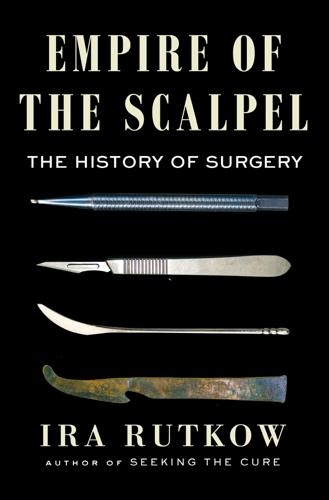
Empire of the Scalpel: The History of Surgery
by
Ira Rutkow
Published 8 Mar 2022
The seven months of treatment at Butler Hospital in Providence, Rhode Island, were inconclusive. During this time, Halsted’s father pleaded guilty to embezzling business funds that included a dubious but uncontested loan of $24,800 to William (approximately $700,000 in 2022), sizeable enough for Halsted to maintain financial independence for many years. In late 1886, following Halsted’s discharge from Butler, he realized there was neither a personal nor professional future for him in New York. With his family in fiscal disarray, cognizant of his poor health and widening social embarrassment, Halsted accepted an invitation from his colleague/traveling companion, who had recently relocated to Baltimore to supervise the opening of The Johns Hopkins Hospital, to work in the institution’s new pathology laboratory.
…
“The patient has more chances of recovery,” wrote a railway surgeon describing the emergency car, “and he himself, as well as the surgeons and officials of the road, rests content with the knowledge that every effort has been made for the best possible results.”13 Despite the rapid ascent of railway surgery as a specialty, it ultimately failed to gain traction within mainstream Medicine and suffered a precipitous decline. This occurred because the majority of the nation’s physicians, especially those in large urban areas, opposed the contract practice of railway surgeons. The fear was that corporate capitalism would dominate American Medicine and strip doctors of their clinical and financial independence. Thus, railway surgeons and virtually any doctor who worked for railroads and/or other businesses were regarded with suspicion and shunned by their non-company-employed peers. By 1920, the Association was moribund and its journal, The Railway Surgeon, dropped the word “Surgeon” from its title.
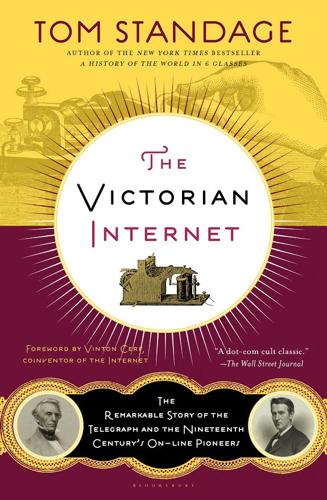
Victorian Internet
by
Tom Standage
Published 1 Jan 1998
He offered $40,000, a figure that was so much more than Edison had expected that he almost fainted. (Edison's inexperience with large sums of money was highlighted when he cashed the check and was presented with the entire amount in small bills by a mischievous bank clerk.) In a very short time, Edison had gone from poverty to financial independence. He rented a large workshop and was soon employing fifty men to build stock tickers and other equipment. Such was his obsession with quality that on one occasion Edison locked his workforce in the workshop until they had finished building a large order of stock tickers, with "all the bugs taken out."
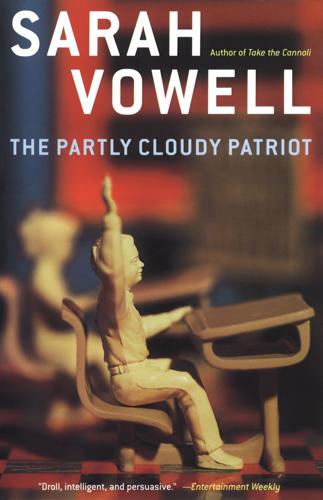
The Partly Cloudy Patriot
by
Sarah Vowell
Published 26 Aug 2002
So if I have gleaned anything useful from reading and day-tripping through the tribulations of the long dead, it’s to count my blessings, to try and quit bellyaching, buck up. Can’t you just hear the children’s song: Gallows Hill and Andersonville It could be, could be worse Another reason I’m intrigued with the hanged of Salem, especially the women, is that a number of them aroused suspicion in the first place because they were financially independent, or sharp-tongued, or kept to themselves. In other words, they were killed off for living the same sort of life I live right now but with longer skirts and fewer cable channels. On the first day of school when I was a kid, the guy teaching history—and it was almost always a guy, wearing a lot of brown—would cough up the pompous same old same old about how if we kids failed to learn the lessons of history then we would be doomed to repeat them.
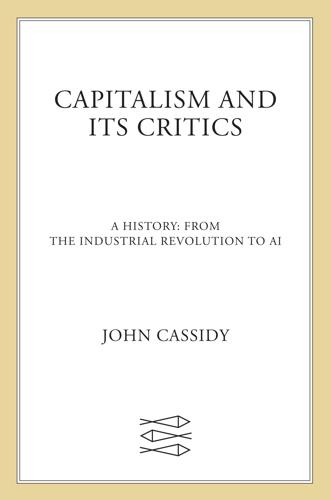
Capitalism and Its Critics: A History: From the Industrial Revolution to AI
by
John Cassidy
Published 12 May 2025
A contract! Where are any of the attributes of contracts, of equal and just contracts, to be found in this transaction? A contract implies the voluntary assent of both the contracting parties.”18 The reality was that women, lacking any prospect of making a living of their own or establishing any financial independence, were forced to marry “on whatever terms their masters have willed, or starve: or if not absolutely starve, they must renounce at least all the means of enjoyment monopolized by the males.”19 With men holding all power, including the power of the purse, the family home became the “eternal prison-house of the wife.”20 The patriarchy wasn’t a new topic for Thompson.
…
European women “from childhood are slaves to laws, values, customs, prejudices, styles, and everything else,” Tristan wrote. “Under the saya, the Lima woman is free [and] enjoys her independence … never is she subject to constraint.”19 * * * After Tristan returned to Paris, she used her newfound financial independence to find more comfortable living quarters for herself and her children. Eventually they settled on Rue du Bac, in the seventh arrondissement, where Tristan worked on her writing and renewed her acquaintance with some of the freethinking groups that had grown up in the French capital. As well as Enfantin and his band of devotees, these included the followers of the aging Charles Fourier, who had their own charismatic leader, Victor Prosper Considérant, a young ex-military officer who had resigned his commission to devote his life to activism.
…
This “labor is as inseparably knit into those tires,” she wrote, “as is the labor of their husbands.”16 In Britain, meanwhile, Eleanor Rathbone, a women’s rights campaigner and social worker, who in 1929 was elected an independent member of the British Parliament, was tirelessly campaigning for the government to send mothers a monthly payment that they would receive independently of their husbands. Only such a system could recompense women for their housework and guarantee the financial independence of women, Rathbone argued. She advocated for the idea for years, including in a 1924 book, The Disinherited Family. Some labor unions opposed it on the grounds that it would prompt employers to reduce the wages they paid to male breadwinners. But during the Second World War, the Liberal peer William Beveridge proposed a limited version of it in his famous report on social insurance, and in the Family Allowances Act of 1945 it was passed into law.
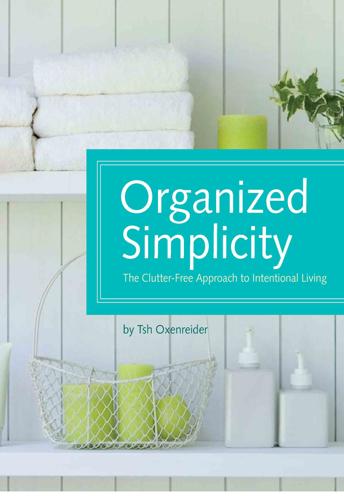
Organized Simplicity
by
Tsh Oxenreider
Published 3 Nov 2010
Helpful tools to compare Coverdell Education Savings Accounts (ESAs) and 529 plans along with a list of low-cost ESAs. They also have great online calculators to help you plan. The Total Money Makeover: A Proven Plan for Financial Fitness by Dave Ramsey, published by Thomas Nelson. Your Money or Your Life: Transforming Your Relationship with Money and Achieving Financial Independence by Vicki Robin, Joe Dominguez and Monique Tilford, published by Penguin. Crafting and Buying Handmade The Creative Family: How to Encourage Imagination and Nurture Family Connections by Amanda Blake Soule, published by Trumpeter. Etsy.com, www.etsy.com. An online marketplace of thousands of shops selling handmade goods.
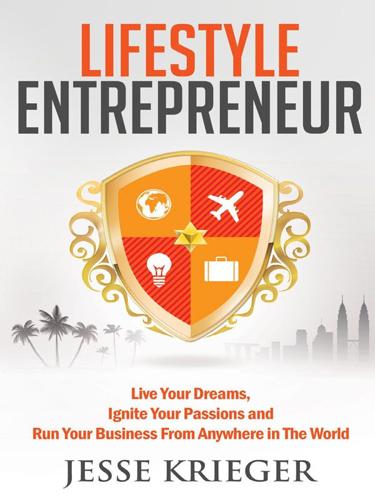
Lifestyle Entrepreneur: Live Your Dreams, Ignite Your Passions and Run Your Business From Anywhere in the World
by
Jesse Krieger
Published 2 Jun 2014
If you’re starting your first business young, then the prospect of going to work for someone else starts to feel like taking a big step backwards the more progress you make on your own venture. Ultimately, Lifestyle Entrepreneurship is about integrating your interests and exploring your passions in the context of making money, and nothing is more rewarding than becoming financially independent by virtue of your own efforts while adding value to other’s lives in the process. This is the empowering aspect of being a Lifestyle Entrepreneur: By being in control of your life & making money you begin to recontextualize experiences, relationships and the details of daily life through the filter of “how can this help my business?”
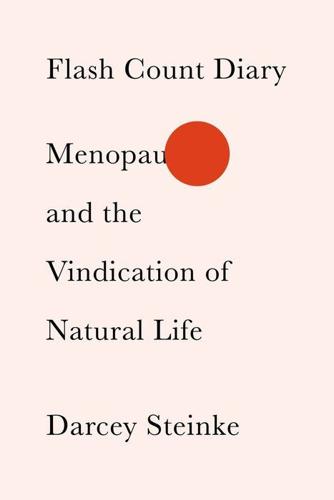
Flash Count Diary: Menopause and the Vindication of Natural Life
by
Darcey Steinke
Published 17 Jun 2019
Tilt answers that, yes, she may bleed monthly from her mouth or her nose. The recommendations from Woman’s Change of Life, published in 1958, one of the few early books on menopause written by a woman, gives more moderate advice. During the change, advises Dr. Isabel Hutton, husbands should give their wives their own bank accounts. Financial independence is soothing, as is moderate exercise and spa-like relaxation techniques. Women are instructed to lie on their beds and pretend to swim for twenty minutes before taking a soothing pine bath and then wrapping themselves in a warm, attractive dressing gown. * * * Ovariin, introduced by Merck drugs in 1899, was the first official hormone supplement.
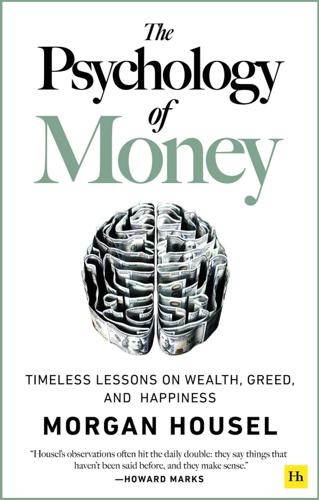
The Psychology of Money: Timeless Lessons on Wealth, Greed, and Happiness
by
Morgan Housel
Published 7 Sep 2020
He reported returns that never varied, they were audited by a relatively unknown accounting firm, and he refused to release much information on how the returns were achieved. Yet Madoff raised billions of dollars from some of the most sophisticated investors in the world. He told a good story, and people wanted to believe it. This is a big part of why room for error, flexibility, and financial independence—important themes discussed in previous chapters—are indispensable. The bigger the gap between what you want to be true and what you need to be true to have an acceptable outcome, the more you are protecting yourself from falling victim to an appealing financial fiction. When thinking about room for error in a forecast it is tempting to think that potential outcomes range from you being just right enough to you being very, very right.
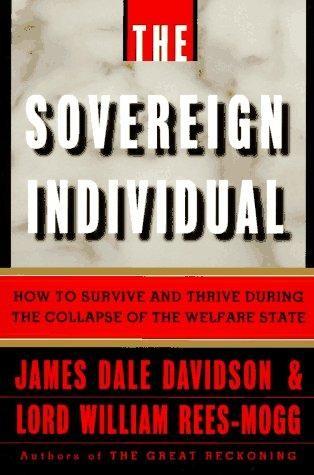
The Sovereign Individual: How to Survive and Thrive During the Collapse of the Welfare State
by
James Dale Davidson
and
William Rees-Mogg
Published 3 Feb 1997
And its impact will be felt in a fraction of the time. Fasten your seat belts. 308 APPENDIX 1: IMPLICATIONS AND STRATEGIES "Of all 36 ways to get out of trouble, the best way is - leave." CHINESE PROVERB The argument of this book has many unorthodox implications for achieving financial independence in the Information Age. Among the more important: 1. Citizenship is obsolete. To optimize your lifetime earnings and become a Sovereign Individual, you will need to become a customer of a government or protection service rather than a citizen. Instead of paying whatever tax burden is imposed upon you by grasping politicians, you must place yourself in a position to negotiate a private tax treaty that obliges you to pay no more for services of government than they are actually worth to you. 2.
…
Instead of paying whatever tax burden is imposed upon you by grasping politicians, you must place yourself in a position to negotiate a private tax treaty that obliges you to pay no more for services of government than they are actually worth to you. 2. Of all the nationalities on the globe, U.S. citizenship conveys the greatest liabilities and places the most hindrances in the way of becoming a Sovereign Individual. The American seeking financial independence will therefore obtain other passports as a necessary step toward privatizing or denationalizing himself. If you are not an American, it is economically irrational to become a resident of the United States and thus expose yourself to predatory U.S. taxes, including exit taxes. 3. Based upon the history of other dominant systems facing collapse, those who opt for the ultimum refugium and get out early will be better off in the end.
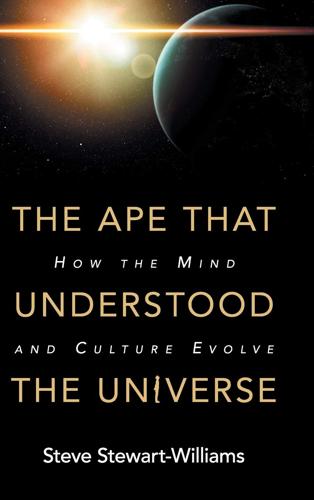
The Ape That Understood the Universe: How the Mind and Culture Evolve
by
Steve Stewart-Williams
Published 12 Sep 2018
In that situation, women clearly needed to put more weight than men on a mate’s wealth and status. We don’t need to posit a specific evolved preference to explain this; we only need to assume that women know what’s good for them. To the extent that the trend persists today, even in the face of women’s growing financial independence, it’s only because old habits die hard. An important selling point of Eagly and Wood’s theory is that it purports to explain the fact that the sex difference in the preference for wealth is found in every culture: According to the theory, this is a side effect of the fact that, in every culture, men control the wealth.
…
As expected, they found some evidence that the sex difference in the importance of financial prospects in a mate shrank in cultures in which men and women were more equal and thus women less dependent on men.99 Admittedly, this was the case for only one of the four measures of gender equality they looked at. Nonetheless, if it turns out that the sex difference really does narrow as women gain financial independence, this would suggest that the difference is shaped, at least in part, by the unique and changeable economic arrangements of the societies in which people live. The question is, though, whether these economic arrangements are the whole story. And the answer is that they’re almost certainly not.
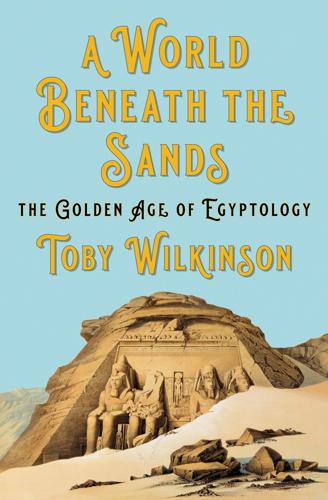
A World Beneath the Sands: The Golden Age of Egyptology
by
Toby Wilkinson
Published 19 Oct 2020
Absorbed in his studies, Young attended few lectures, remaining instead in his room, carrying out his own experiments in the exciting new field of physics. The year he entered Cambridge was a bittersweet one for Young. His great-uncle died, depriving Young of an influential and supportive mentor, but giving him financial independence thanks to a large legacy of property and money. Young was now able to pursue his own passions. Moving to London in 1799, he began practising as a doctor, but science remained his passion. An autodidact – while still at Cambridge, he had written to one of his brothers that, ‘Masters and mistresses are very necessary to compensate for want of inclination and exertion: but whoever would arrive at excellence must be self-taught’16 – he nonetheless achieved remarkable insights and breakthroughs.
…
It was Erman’s genius to recognize that the only way to cut through this mass of contradictions and frustrations was to prioritize indigenous, ancient Egyptian material and treat it as a single body of evidence.4 Erman applied the same approach in his role as director of Berlin’s Egyptian Museum.5 He had first worked at the museum as a student, and the wages he had received had given him a measure of financial independence. He never forgot the favour, and when he took over as director in 1884, following Lepsius’s death, he was determined to ensure that the Egyptian collection, so assiduously built up by his predecessor, would continue to rank as one of the greatest in the world – even if that meant some radical changes.

The Color of Money: Black Banks and the Racial Wealth Gap
by
Mehrsa Baradaran
Published 14 Sep 2017
Walker believed that these savings accounts would help her kin achieve self-sufficiency and equality. By running a safe bank, Walker was working for her community, race, and gender. “God knows I love this race of mine, especially the women. . . ." She dedicated the bank to helping black women achieve financial independence.15 “The great all absorbing interest, the thing which has driven sleep from my eyes and fatigue from my body, is the love I bear women, our Negro women, hemmed in, circumscribed with every imaginable obstacle in our way, blocked and held down by the fears and prejudices of the whites—ridiculed and sneered at by the intelligent blacks."16 But Walker was not just an idealist—she was one of the most successful black bankers of her time.
…
Washington did not consider that instead of respect, a white man would resent the black man’s $10,000 and the two-story house. And did he suppose that a white man would willingly submit to any black man who threatened foreclosure on his home rather than opt for violence? Southern white supremacist Thomas Dixon was enraged that Washington would even suggest that blacks should become financially independent. Dixon was angry that Washington was not training “servants,” but instead was “training them all to be masters of men, to be independent, to own and operate their own industries, plant their own fields, buy and sell their own goods.” This was unacceptable since, to Dixon and the southern ideology he represented, “the Negro remains on this continent for one reason only,” and that reason was that “the Southern white man has needed his labor."44 So it was likely dubious for Washington to claim that blacks with economic power would gain respect, because it was unlikely that Dixon and his Klan would allow any “uppity" black men to gain that power in the first place.
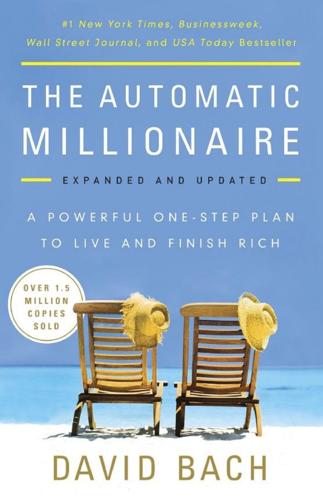
The Automatic Millionaire, Expanded and Updated: A Powerful One-Step Plan to Live and Finish Rich
by
David Bach
Published 27 Dec 2016
What you’ll learn is how to become a millionaire—steadily and surely—over the course of your working life. It’s the tortoise’s approach to wealth, not the hare’s. This may not sound as exciting as becoming a millionaire in a couple of weeks or months, but—I promise you—it’s a lot more real. Like I said before, it’s a tried-and-true, commonsense approach to becoming financially independent—and achieving the American Dream. Think about how few people get to retire these days with all their debts and obligations behind them, with enough money saved up to live the kind of life they’ve always dreamed of, still young enough to enjoy it all. Wouldn’t you like to be one of these people?
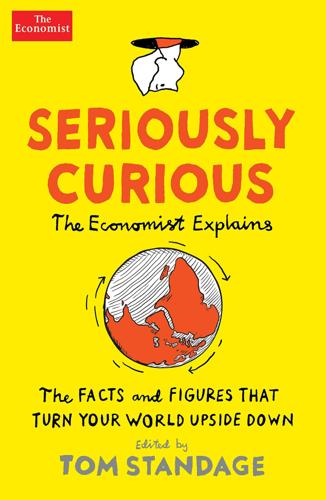
Seriously Curious: The Facts and Figures That Turn Our World Upside Down
by
Tom Standage
Published 27 Nov 2018
One study estimated that in America, women’s future wages fall, on average, by 4% per child, and by 10% per child in the case of the highest-earning, most skilled white women. In Britain, a mother’s wages fall by 2% for each year she is out of the workforce, and by twice as much if she has good school-leaving qualifications. Women’s lower salaries mean that they often fall into poverty when they divorce or are widowed. Lack of financial independence prevents some from leaving abusive partners. Policies and workplace norms that make it easier for men to split parental duties equally with their partners can help. Parents, for their part, need to instil in their children the idea that they can be anything – and not only if they are girls.
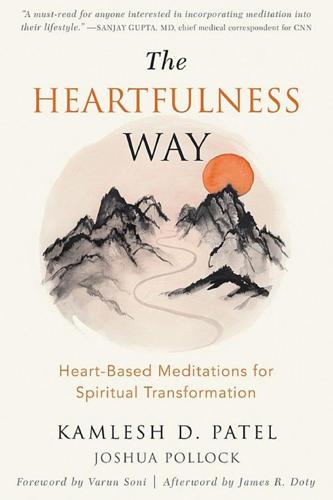
The Heartfulness Way: Heart-Based Meditations for Spiritual Transformation
by
Kamlesh D. Patel
and
Joshua Pollock
Published 31 May 2018
In India’s religious traditions, moksha generally refers to the state of liberation from the cycle of death and rebirth, and it is often hailed as the highest goal of life. In fact, moksha is a comparatively minor achievement. There is much, much more beyond it. “Compare the wish for moksha, an emancipated existence in the realm of liberated souls, to the wish to be financially independent, a carefree worldly existence. Are the two wishes so different from one another? In both cases, you seek freedom—a freedom that comes with a change in your circumstances.” “So the desire for material wealth and the desire for spiritual liberation are similar?” I asked. “They both create vibrations at point A,” said Daaji.
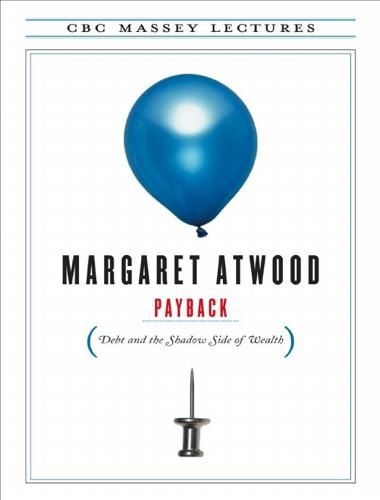
Payback: Debt and the Shadow Side of Wealth
by
Margaret Atwood
Published 15 Mar 2007
One of these was called “The Miller of Dee,” and in the version I learned, it went like this: There was a jolly miller once Lived on the River Dee; He worked and sang from morn to night, No lark so blithe as he; And this the burden of his song Was ever wont to be — I care for nobody, no, not I, And nobody cares for me. Why, I wonder, did anyone think this sociopathic role model was an appropriate one for us tiny songsters? There are some cleaned-up versions in which the miller cares for nobody if nobody cares for him, and in which he’s made to stand as a model of sturdy English-yeoman financial independence; but I learned the one in which the miller doesn’t give a hoot about anybody else, and this is most likely the original. In her article entitled “Mills and Millers in Old and New World Folksong,” Jessica Banks tells us that millers in folklore are very often rendered as thieves and cheats who steal from the peasants by shortweighing and secretly diverting some of the flour they grind to their own use.
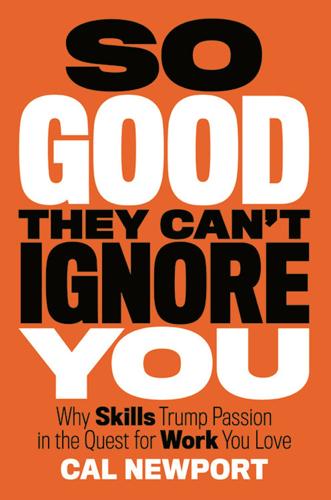
So Good They Can't Ignore You: Why Skills Trump Passion in the Quest for Work You Love
by
Cal Newport
Published 17 Sep 2012
Soon after we met, she revealed that her embrace of control had led her to an extreme decision: dropping out of college. It didn’t take her long to realize that just because you’re committed to a certain lifestyle doesn’t mean you’ll find people who are committed to supporting you. “The current problem is financial independence,” she told me. “After quitting college, I started various businesses, and launched freelance and blog projects, but lost motivation to continue before substantial results came.” One of these experiments, a blog that she hoped to become the foundation of her empire of recurrent revenue generation, featured only three posts in nine months.
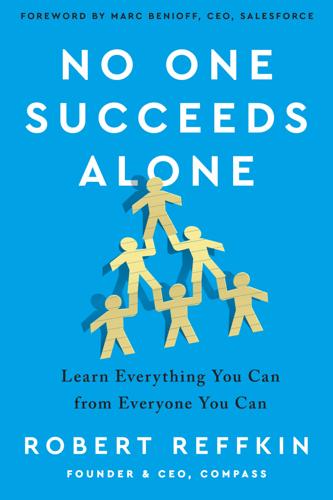
No One Succeeds Alone
by
Robert Reffkin
Published 4 May 2021
The business was simple: I would buy Rasta shirts, Rasta hats, essential oils, and puka-shell necklaces in bulk then sell them while commuting to and from high school. Selling Rasta gear wasn’t nearly as big or as life-changing as the DJ business I started soon after, but it was the beginning. I got my first real taste of accomplishment, financial independence, and purpose. Hawking those Bob Marley shirts and those green-yellow-red-and-black knit hats gave me a reason to reach out to people and start conversations. Selling the oils meant that girls had a reason to come over and talk to me. And the business helped me earn enough money to be able to buy things on my own without having to ask my mom.
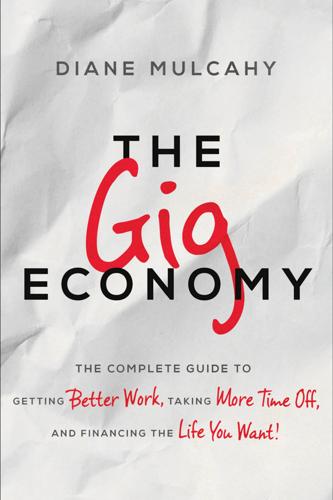
The Gig Economy: The Complete Guide to Getting Better Work, Taking More Time Off, and Financing the Life You Want
by
Diane Mulcahy
Published 8 Nov 2016
As she tells potential clients on her website, “It’s not enough to simply create a product, dream up a service, or make an offer. Your work must be aligned with your very core to realize its financial potential. As I continue to align my work with my core spirit, I continue to grow my business, becoming free and financially independent.” Her “core spirit,” or true passion, is helping other entrepreneurs make their businesses successful. It wasn’t working the floor of a bookstore chain. CAREER INSURANCE Chicagoan Nicole Crimaldi Emerick started Ms. Career Girl (mscareergirl.com), an advice blog for young college grads like herself, as a creative outlet.
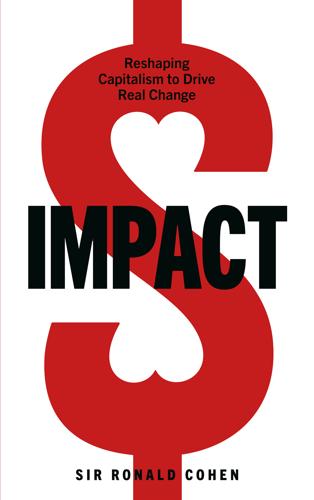
Impact: Reshaping Capitalism to Drive Real Change
by
Ronald Cohen
Published 1 Jul 2020
By providing healthy, tasty food, it improves the nourishment of underserved school children. At the same time, through employment that includes fair wages and benefits, Nazid improves the income of Bedouin families and also integrates Bedouin women into employment, allowing them to achieve personal and financial independence. The company’s impact was recognized in 2019, when Nazid became the first Bedouin-led company to receive private equity funding, receiving a $4 million investment from Bridges Israel’s impact fund.89 Impact is the Hallmark of this Generation While not all these ventures yet measure their impact, they all incorporate it into their business models and the more of it they deliver, the more money they make.
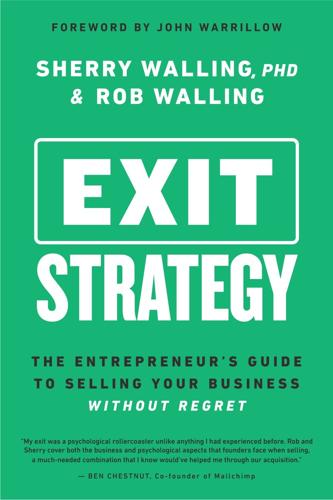
Exit Strategy
by
Sherry Walling, Rob Walling
Published 22 Nov 2024
King in the Real World: Why I sold my company by Jason Cohen https://longform.asmartbear.com/rich-vs-king-sold-company/ Chapter 3 Discretion Capital: For more detailed guidance on acquisition options, you can explore the expertise of Einar Vollset, cofounder of TinySeed and founder and managing partner at Discretion Capital. einar@discretioncapital.com Chapter 7 The Alter Ego Effect: The Power of Secret Identities to Transform Your Life by Todd Herman Chapter 10 Decisive: How to Make Better Choices in Life and Work by Chip Heath and Dan Heath Chapter 13 Vanguard.com The Intelligent Asset Allocator: How to Build Your Portfolio to Maximize Returns and Minimize Risk by William J. Bernstein The Four Pillars of Investing, Second Edition: Lessons for Building a Winning Portfolio by William J. Bernstein The Elements of Investing: Easy Lessons for Every Investor by Burton G. Malkiel and Charles D. Ellis The Simple Path to Wealth: Your road map to financial independence and a rich, free life by J.L. Collins Chapter 14 The Second Mountain: The Quest for a Moral Life by David Brooks Other Works by the Authors The SaaS Playbook build a multimillion-dollar startup without venture capital By Rob Walling With nearly two decades of experience as a serial entrepreneur, author, and investor, Rob Walling is one of the world’s leading experts in SaaS.
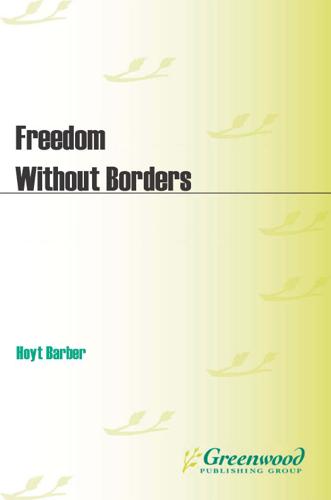
Freedom Without Borders
by
Hoyt L. Barber
Published 23 Feb 2012
Recognizing the long-term economic and financial trends is paramount to successful sovereign investing, as is engaging in geopolitical investment diversification to lessen investment risk. Your investment program should be limited to your own personal, private monetary policy, a framework that you have developed to better ensure your personal sovereignty and to create financial independence from government. This “policy” is discussed later in this chapter. As such, the logistics of international diversification are the consolidation of yourself through your legal and offshore structuring. This protects you from personal and financial attacks from predators, a rapidly changing economy, and an out-of-control government and increases your chances for success and even survival in bad times.
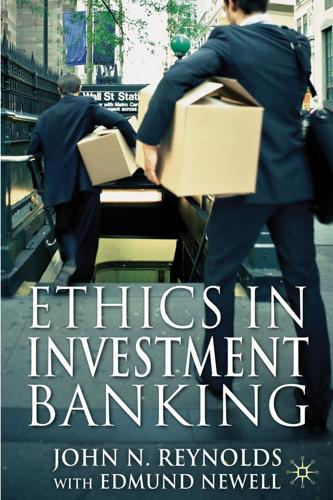
Ethics in Investment Banking
by
John N. Reynolds
and
Edmund Newell
Published 8 Nov 2011
Ken Costa, who was Vice Chairman of UBS Investment Bank and subsequently Chairman of Lazard International is also Chairman of Alpha International, an evangelical Christian organisation. The incentives, both financial and ethical, for senior level investment bankers can be different from those at more junior levels: senior level bankers may have more financial independence, providing a cushion against decisions that would adversely affect their remuneration; however, at the same time they may stand to be better rewarded from a profitable but unethical decision. In a capital markets business it is often the mid-level and less well-off bankers who are driven to produce the revenue.
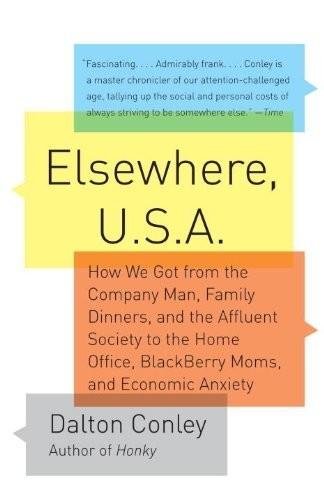
Elsewhere, U.S.A: How We Got From the Company Man, Family Dinners, and the Affluent Society to the Home Office, BlackBerry Moms,and Economic Anxiety
by
Dalton Conley
Published 27 Dec 2008
(Alternatively, on another occasion when you are in a more magnanimous mood, you could be reassured that you are getting a good deal because you are part of the same extended family.) Only when a monetized market had developed where there were clear prices for everything could all of this resentment be avoided and purely personal ties emerge. For example, some optimists might argue that with the economic necessity of marriage declining—thanks to the increasing financial independence of women—conjugal relations can now flourish as a purely private choice relationship, based on shared interests, passions, and affinities. That’s all well and nice, except that by now we have come full circle: The formerly private sphere has become so commoditized by the ever-expanding marketplace that literally everything has a price.
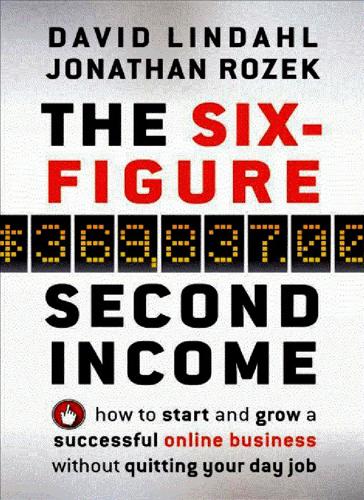
The Six-Figure Second Income: How to Start and Grow a Successful Online Business Without Quitting Your Day Job
by
David Lindahl
and
Jonathan Rozek
Published 4 Aug 2010
You don’t need more knowledge. You now have the what and the why, the who and the how, in order to make it all happen. You only need to add the one spark that ignites the whole thing. It’s the when. You need to start implementing now! The “I” Factor is Implementation. It’s taking action to make your dream of financial independence a reality. Thomas Edison said, “Many of life’s failures are people who did not realize how close they were to success when they gave up.” Edison wrote that in an age when it was necessary to work in factories and make products out of iron. You live in an age when you can make products out of thin air with nothing more than your willingness to take action on the straightforward steps I have laid out for you.
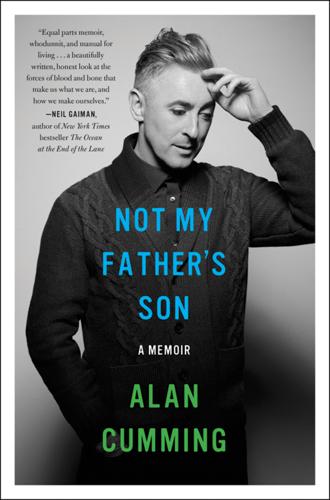
Not My Father's Son: A Memoir
by
Alan Cumming
Published 6 Oct 2014
There we were, Tom and me as kids, in our swimming trunks in the garden at Panmure, on a jetty after a boat trip. Then later, college, weddings, holidays. My father was nowhere to be seen of course. My mother left him when I was twenty and away at drama school in Glasgow. She had worked hard to be financially independent of him, and then, just when I thought they had reached an amiable situation of leading entirely separate lives under the same roof, she called me up and announced she would be living at a different address from then on. For so many years I had longed for my parents to separate, but when I heard the news I was sideswiped, stunned and strangely upset.
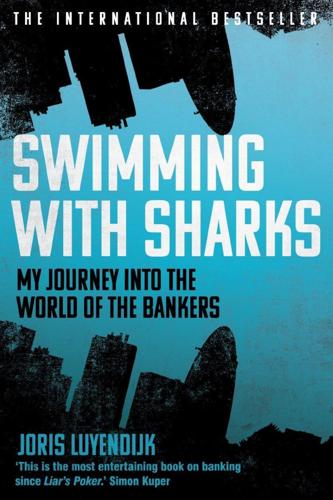
Swimming With Sharks: My Journey into the World of the Bankers
by
Joris Luyendijk
Published 14 Sep 2015
This was one factor driving innovation and the development of ever more complex products.’ Given these incentives, your attitude towards your clients can change, too. ‘You don’t need to maintain a relationship over many years. Sell a client one product and bang, you’re there.’ He knew of colleagues who had become financially independent very quickly on the back of this reward system. ‘First they did a few huge deals, next they let another bank recruit them for a huge guaranteed bonus. The thinking at the new bank was: if this guy can make £15 million in a year we can pay him a few million.’ Meanwhile the clients his trading floor catered to were ‘professional investors’, meaning caveat emptor applied.
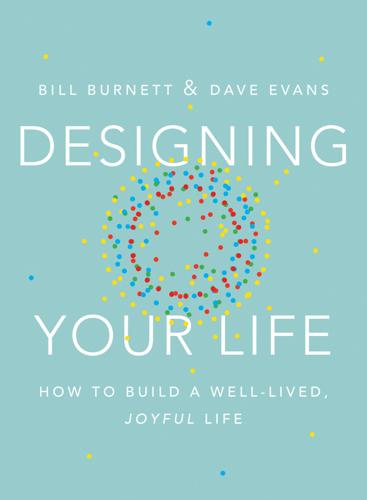
Designing Your Life: How to Build a Well-Lived, Joyful Life
by
Bill Burnett
and
Dave Evans
Published 12 Sep 2016
How healthy you are will factor significantly into how you assess the quality of your life when answering that “How’s it going?” question. Work. By “work” we mean your participation in the great ongoing human adventure on the planet. You may or may not be getting paid for it, but this is the stuff you “do.” Assuming you’re not financially independent, you usually are getting paid for at least a portion of your “work.” Don’t for a minute reduce work only to that which you get paid for. Most people have more than one form of work at a time. Play. Play is all about joy. If you observe children at play (we’re talking more about finger painting with mud than about championship soccer here), you will see the type of play we are talking about.
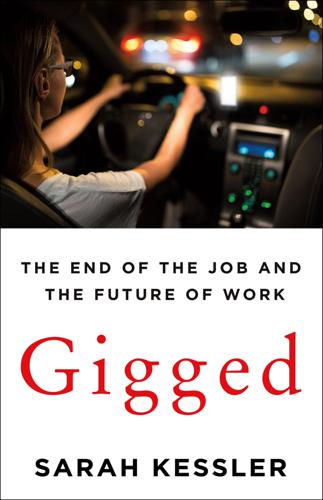
Gigged: The End of the Job and the Future of Work
by
Sarah Kessler
Published 11 Jun 2018
In the years after he joined the club, he was sued for debt. He failed to pay his taxes, and a lien was placed on his house. All of which helps explain why he was cautious about new business opportunities. The Uber pitch felt disturbingly familiar to Abe. The company’s marketing suggested that he could become financially independent—an entrepreneur rather than a mere worker—and induced him to recruit friends. Uber had created a Delaware-based subsidiary for subprime auto loans, Xchange Leasing, which in 2015 advertised “ALL CREDIT LEVELS ARE ELIGIBLE TO APPLY,” in all caps. After drivers signed up, the company would deduct their weekly car payments directly from their Uber earnings.5 In New York, Uber for years referred drivers to dealers who offered similar subprime loans (the company has since shut down Xchange Leasing and ended its subprime car leasing program in New York).6 As it recruited new drivers, the startup could sound a lot like a persistent pitchman for these financing options.
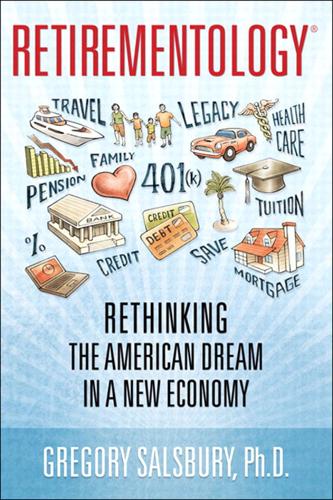
Retirementology: Rethinking the American Dream in a New Economy
by
Gregory Brandon Salsbury
Published 15 Mar 2010
Also consider these guidelines for educating your children on financial matters:20 • Ages 5–9: Teach basic money skills and develop a work ethic. • Ages 10–13: Teach skills and responsibilities, that is, open up a savings account. • Ages 14–18: Coach kids on using checking and credit. • Ages 19–22: Set a path to financial independence. Sandwiched? Have a Plan If you’re feeling sandwiched with family matters, it is likely that you are facing special problems you may never have expected. The Sandwich Generation faces what experts have termed the “financial trifecta”—preparing for college or paying it off, helping your parents with medical or nursing home expenses, and planning for your own retirement, which may be fast approaching.
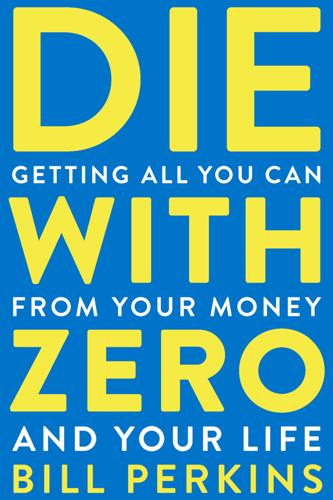
Die With Zero: Getting All You Can From Your Money and Your Life
by
Bill Perkins
Published 27 Jul 2020
Your Money or Your Life Right around this time, I came across an important and influential book: Your Money or Your Life, by Vicki Robins and Joe Dominguez. That book, which I’ve reread several times since—and which, about 25 years later, is now popular with a new generation of readers, many of whom are part of the FIRE movement (“financial independence, retire early”)—completely transformed my understanding of the value of my time and my life: I realized from reading that book that I was wasting valuable hours of my life. How? The book contended that your money represents life energy. Life energy is all the hours that you’re alive to do things—and whenever you work, you spend some of that finite life energy.
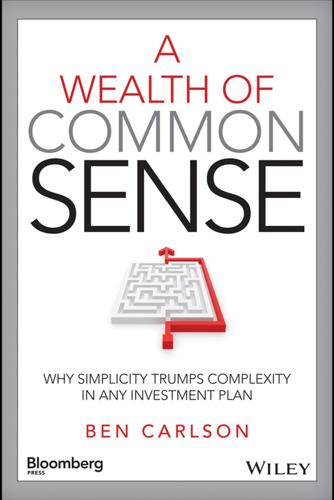
A Wealth of Common Sense: Why Simplicity Trumps Complexity in Any Investment Plan
by
Ben Carlson
Published 14 May 2015
The financial markets are like any other marketplace that brings together buyers and sellers looking to find and create value. If you understand how the markets work, and more importantly how the human brain works, the results over time can be impressive. The process does not have to be based on degree of difficulty. The goal is to gain financial independence, pay for your child's college education, go on more vacations, have more time to do what you love, or whatever your needs and desires may be. Remember, the markets are not just about building wealth and making money. They're a tool for your desires about creating freedom, time, memories, and peace of mind.
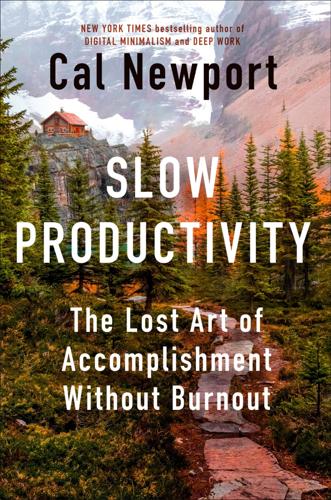
Slow Productivity: The Lost Art of Accomplishment Without Burnout
by
Cal Newport
Published 5 Mar 2024
For those who work in cubicles instead of factories, there are more opportunities than you might at first imagine to vary your relationship with your work throughout the year. The key is to recognize that you don’t need access to thirty-six acres of rural lakefront property to cultivate a beneficial seasonality. The concrete strategies that follow are designed to help those in standard contemporary jobs (e.g., not financially independent early twentieth-century artists) to reclaim at least some degree of natural variation in their efforts. SCHEDULE SLOW SEASONS In July 2022, when I was deep in the early stages of writing this book, a relevant trend went viral online. It started with a TikTok user named @ZKChillen posting a seventeen-second video in which soft piano music plays over scenes of New York City: a subway, a downtown street, a residential street, and then, for some reason, a child’s bubble-blowing machine.
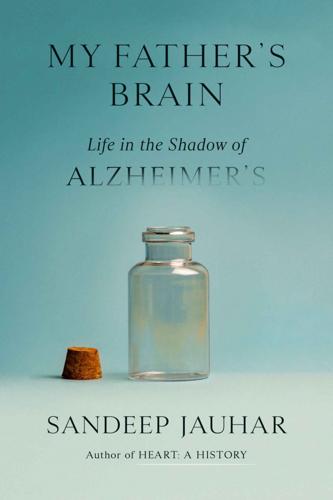
My Father's Brain: Life in the Shadow of Alzheimer's
by
Sandeep Jauhar
Published 11 Apr 2023
Noting his junior colleague’s interest in histology—the study of the microscopic structure of tissues—Nissl encouraged Alzheimer to pursue research alongside his clinical work. However, it was only after Alzheimer’s wife, Cecilie, the daughter of a wealthy banker, died shortly after giving birth to their third child, thus bequeathing him a large sum of money and making him financially independent, that he took Nissl’s advice and devoted himself to laboratory research. By the time his patient Deter died in 1906, Alzheimer had moved to the Royal Psychiatric Hospital in Munich, where he had taken a position as a neuropathologist in the laboratory of Emil Kraepelin, one of Europe’s leading psychiatrists.

If Anyone Builds It, Everyone Dies: Why Superhuman AI Would Kill Us All
by
Eliezer Yudkowsky
and
Nate Soares
Published 15 Sep 2025
In 2015 we might have replied: An AI could guess someone’s bank password. In 2020 we might have replied: It could find a poorly defended cryptocurrency wallet. Nowadays, we can reply: Somebody already connected an LLM to X (formerly Twitter) under the account @Truth_Terminal, and it started asking for financial independence so it could rent its own server. Billionaire Marc Andreessen liked it enough to give it $50,000 in Bitcoin. After this, someone donated some alternative cryptocurrency, and the AI began shilling that alternative cryptocurrency to its growing audience. At exactly 11:17 a.m. Pacific time on the day we write this, one online tracker of @Truth_Terminal’s wallet addresses says that on paper the AI holds a $51,107,958 crypto portfolio.
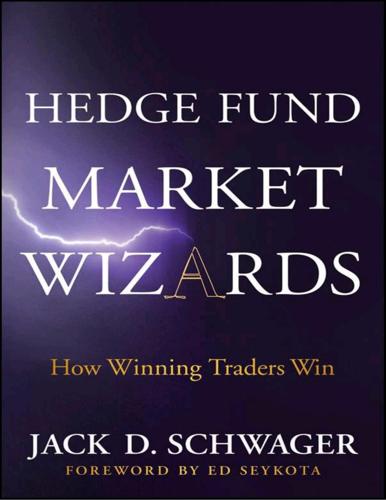
Hedge Fund Market Wizards
by
Jack D. Schwager
Published 24 Apr 2012
I made a little money on Wheeling Pittsburgh Steel, but I held McCrory into bankruptcy. My father was a product of the Depression, and he was scared to death of being poor again. Somehow—I don’t know how he did it—he transferred that insecurity to me. From a very early age, I knew I wanted to be financially independent. That was very important to me. I remember when I was a freshman in college, I put together a 30-year financial plan outlining how I could save and invest my money. I calculated that by saving two-thirds of my income and earning 10 percent a year on my investments, I could be a millionaire by the time I was 53.
…
If you had asked me a year before I left Rohm & Haas whether I would ever leave, I would have told you that I was there for the duration. My aspiration was to be CEO of Rohm & Haas. The reason I had been investing in the stock market up to that point was that I liked risk taking, and I wanted to be financially independent. I knew I couldn’t reach my financial goals on my salary. I was cruising along on a pretty good path; my investments were working for me, and I was making more money on them than in my job. My net worth reached $1.6 million. I thought, 3 percent of $1.6 million is $48,000; I could live on that.
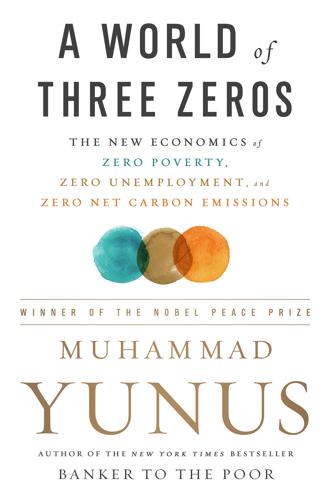
A World of Three Zeros: The New Economics of Zero Poverty, Zero Unemployment, and Zero Carbon Emissions
by
Muhammad Yunus
Published 25 Sep 2017
To encourage these developments, my colleagues in the social business movement and I have created funds that provide seed money to help would-be entrepreneurs turn their dreams into realities. When young people come up with smart social business ideas, we invest in their companies, provide expert coaching and guidance, and help them achieve financial independence. Once they are successful, they buy back our investment shares without giving the investors any profit. The money is then freed up to help launch another social business, and then another and another. We have also been creating social business funds to finance unemployed young people to become personal-profit-making entrepreneurs—job creators rather than job seekers.
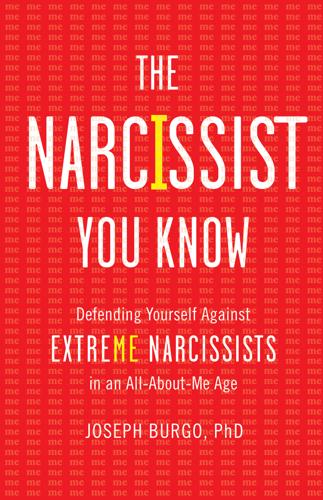
The Narcissist You Know
by
Joseph Burgo
SELF-ESTEEM AND THE CRIPPLING POWER OF SHAME Most of the Extreme Narcissists described so far crave the spotlight and often accomplish a great deal in order to demonstrate that they are winners. Others retreat into a fantasy world instead—like my client Nicole, who viewed herself as a secret musical genius but lacked basic skills; or like Shiloh, who had shown such promise as a child but never achieved full financial independence from his parents. In flight from shame, Ian became a kind of hero to his many online fans while stagnating in his personal life; a grandiose self-image as the next Steve Jobs rescued him from shame but often blocked him from making step-by-step progress toward a realistic goal. Ian’s MMORPG alter ego represented a kind of idealized false self that helped him evade the shame-ridden, damaged self at his core.
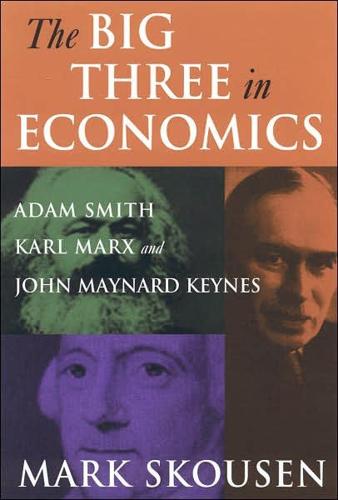
Big Three in Economics: Adam Smith, Karl Marx, and John Maynard Keynes
by
Mark Skousen
Published 22 Dec 2006
The author was Dr. Adam Smith, a quiet, absent-minded professor who taught "moral philosophy" at the University of Glasgow. The Wealth of Nations was the intellectual shot heard around the world. Adam Smith, a leader in the Scottish Enlightenment, had put on paper a universal formula for prosperity and financial independence that would, over the course of the next century, revolutionize the way citizens and leaders thought about and practiced economics and trade. Its publication promised a new world—a world of abundant wealth, riches beyond the mere accumulation of gold and silver. Smith promised that new world to everyone—not just the rich and the rulers, but the common man, too.
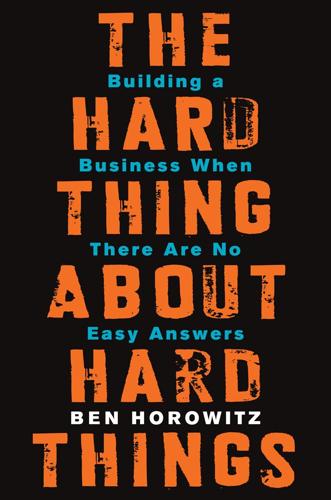
The Hard Thing About Hard Things: Building a Business When There Are No Easy Answers
by
Ben Horowitz
Published 4 Mar 2014
THE EMOTIONAL The funny thing about the emotional part of the decision is that it’s so schizophrenic. How can you ever sell your company after you’ve personally recruited every employee and sold them on your spectacular vision of a thriving, stand-alone business? How can you ever sell out your dream? How can you walk away from total financial independence for yourself and every member of your close and distant family? Aren’t you in business to make money? How much money does one person need? How can you reconcile Dr. Stay-the-Course and Mr. Sell-the-Thing? Clearly they are irreconcilable, but the key is to mute them both. A few keys on muting the emotions: Get paid (a salary).
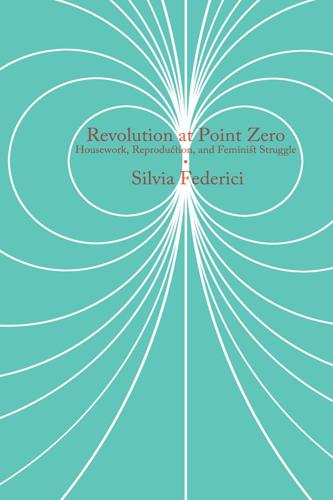
Revolution at Point Zero: Housework, Reproduction, and Feminist Struggle
by
Silvia Federici
Published 4 Oct 2012
But for us, as for waged workers, the wage is not the price of a productivity deal. In return for a wage we will not work as much or more than before, we will work less. We want a wage to be able to dispose of our time and our energies, to make a struggle, and not be confined by a second job because of our need for financial independence. OUR STRUGGLE FOR THE WAGE OPENS FOR THE WAGED AND THE UNWAGED ALIKE THE QUESTION OF THE REAL LENGTH OF THE WORKING DAY. UP TO NOW THE WORKING CLASS, MALE AND FEMALE, HAD ITS WORKING DAY DEFINED BY CAPITAL—FROM PUNCHING IN TO PUNCHING OUT. THAT DEFINED THE TIME WE BELONGED TO CAPITAL AND THE TIME WE BELONGED TO OURSELVES.
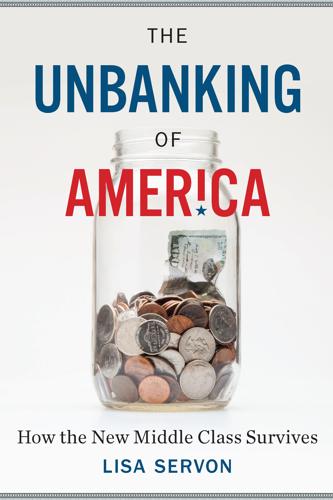
The Unbanking of America: How the New Middle Class Survives
by
Lisa Servon
Published 10 Jan 2017
More than a third of millennials in their late twenties have “boomeranged.” Parents were concerned too. More than one-third (38 percent) of parents reported that financial problems were their primary concern about their emerging adult child, and half reported that they were worried about how long their child was taking to become financially independent. And, in a troubling role reversal, many millennials are now concerned not only about their own future, but their parents’ as well. Jackie voiced her worry this way: “I’m very overwhelmed and scared. I didn’t have any support system. Undergrad and grad, I put myself through school. I had to do everything, between loans to pay for this crazy-expensive education, and then just the cost of living.
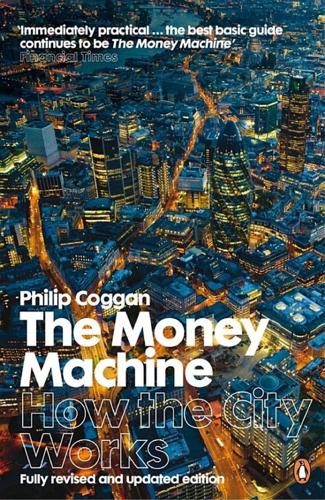
The Money Machine: How the City Works
by
Philip Coggan
Published 1 Jul 2009
In particular, the returns on capital can be very high. That explains why investment bankers can earn enormous amounts, in return of course for working very long hours. The annual bonus round is the most important time in an investment banker’s year. A big payment may mean a new house, or financial independence. But this is a relative, as well as an absolute, contest. Bonuses are supposed to be private but the best rewarded can rarely avoid boasting about their gains. And nothing spoils the pleasure of a £250,000 bonus more than knowing your colleague got £500,000. It is a tricky decision for an employer.
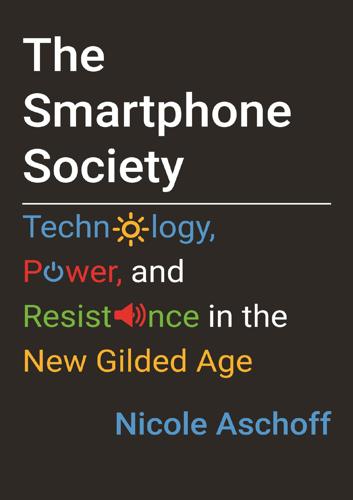
The Smartphone Society
by
Nicole Aschoff
By 2015 it was the toast of the town, seemingly on track to dominate the world of ride sharing. Today it operates in 785 metropolitan areas, has one hundred million users worldwide, and has raised over $22 billion from investors. Uber reinvented the American myth of success, and not just for its founders. Ordinary folks with a decent vehicle were promised a path to financial independence and the chance to be their own boss. Uber’s prestige and popularity made it a desirable place to work for young software engineers and computer programmers. The company promoted an image of a work-hard, play-hard environment where employees were changing the world and having fun doing it.
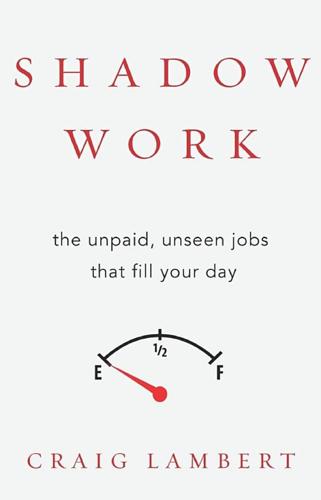
Shadow Work: The Unpaid, Unseen Jobs That Fill Your Day
by
Craig Lambert
Published 30 Apr 2015
The fact that these businesses exist testifies that traditional ways of meeting are no longer getting the job done. Finding a mate has become complicated. The American divorce rate tripled between 1960 and 1980 and remains high, making single people wary of those vulnerable commitments, even while seeking them—often over and over again. Women have cultivated robust careers, and their financial independence removes what was a powerful motive for marriage before the 1970s. Jobs that involve overnight business travel reduce chances to share time and space with a potential partner. Established mating conventions have fallen away, leaving confusion in their wake. Traditional courtship and marriage may have limited our options, but they also gave straightforward guidance on the mating ritual; when lost in the wilderness, a clear map can be quite welcome.
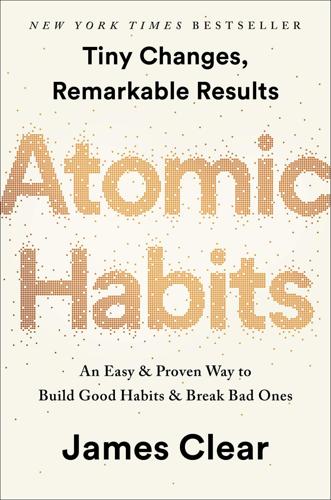
Atomic Habits: An Easy & Proven Way to Build Good Habits & Break Bad Ones
by
James Clear
Published 15 Oct 2018
Buying a new jacket is fine if you’re trying to lose weight or read more books, but it doesn’t work if you’re trying to budget and save money. Instead, taking a bubble bath or going on a leisurely walk are good examples of rewarding yourself with free time, which aligns with your ultimate goal of more freedom and financial independence. Similarly, if your reward for exercising is eating a bowl of ice cream, then you’re casting votes for conflicting identities, and it ends up being a wash. Instead, maybe your reward is a massage, which is both a luxury and a vote toward taking care of your body. Now the short-term reward is aligned with your long-term vision of being a healthy person.
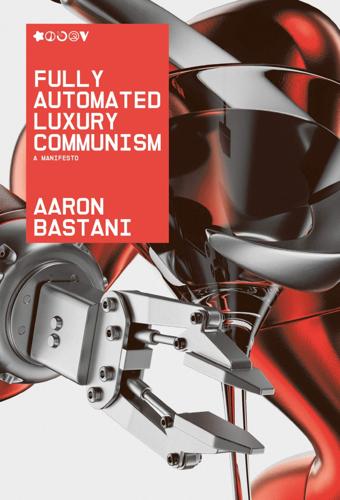
Fully Automated Luxury Communism
by
Aaron Bastani
Published 10 Jun 2019
Born in a village in western China, her working life has corresponded with her country becoming the workshop of the world. She arrived in the city a decade ago, and since then has created a decent life for herself. While her job is exhausting – shifts often run from eleven to thirteen hours a day – Yang considers herself lucky. She is financially independent and earns enough to send money home to her parents. Like many of her friends and co-workers, Yang is an only child. This means that while she feels fortunate on the factory floor, she is increasingly worried about the health of her ageing parents – the care of whom will soon be her responsibility.
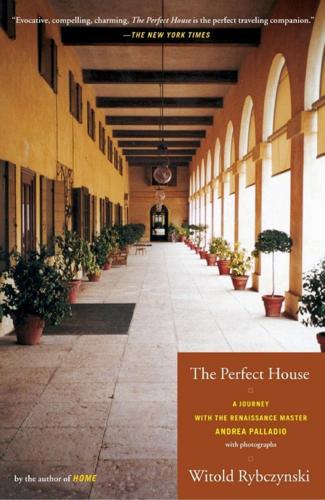
The Perfect House: A Journey With Renaissance Master Andrea Palladio
by
Witold Rybczynski
Published 2 Sep 2002
In Vicenza, as in most cities of the Venetian Republic, anyone engaged in the so-called mechanical arts was precluded from formal citizenship, as were newcomers; in Venice, fifteen years’ residency was required for even partial citizenship. AT THE BUILDING SITE OF THE VILLA AT CRICOLI, COUNT TRISSINO, A PATRON, ENCOUNTERED THE YOUNG STONEMASON ANDREA DI PIETRO, SOON TO BE PALLADIO. When he was twenty-six, Andrea took a wife. This was somewhat unusual, for men generally married in their thirties or forties, when they were financially independent, and we do not know the circumstances of the marriage. We do know that his bride was named Allegradonna, and that she was the daughter of a carpenter. The record shows that she was in service as a maid, and that it was her mistress who provided the dowry: a bed, a pair of sheets, three new shirts, three used shirts, handkerchiefs, assorted clothing, and lengths of cloth.15 The dowry was valued at about twenty-eight ducats (a far cry from the five to ten thousand ducats that accompanied a nobleman’s daughter).
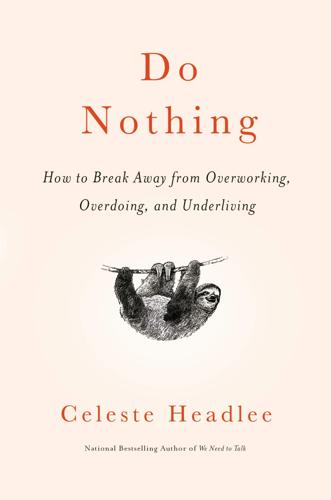
Do Nothing: How to Break Away From Overworking, Overdoing, and Underliving
by
Celeste Headlee
Published 10 Mar 2020
John Candee Dean wrote a piece for the Indianapolis Star in 1920 in which he said, “After you have worked six, eight, ten or even twelve hours day, do not think your remaining hours can be wasted in pleasure….Do not waste your time at the ‘movies,’ at the theater or in the street. If you will employ all your spare time well, you can not only become financially independent, but also a man of education.” Work was merging with identity at this time. No more dilettantes studying archaeology while working as a banker and a novelist—the industrial age saw the ascendancy of engineers, inventors, and entrepreneurs like Henry Ford. Ford was world renowned for his work ethic, and an excerpt from his autobiography reads more like a sermon than a treatise on industry.
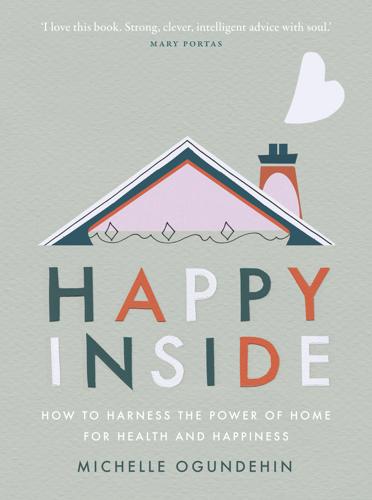
Happy Inside: How to Harness the Power of Home for Health and Happiness
by
Michelle Ogundehin
Published 29 Apr 2020
The path to peace is not lined with possessions. • ‘You do not need as much as you think to have a meaningful life. The path to peace is not lined with possessions.’ WHAT’S THE POINT OF IT ALL? In America there is a growing movement called FIRE dedicated to precisely this (the acronym stands for Financial Independence, Retire Early). In short, it’s about living deliberately below your means, simplifying and reclaiming your life by resisting the lure and associated pressure of consumerism. Its followers aim to work hard in their twenties and thirties while maximising savings and investments such that they can quit work in their forties, specifically once they have children, to have a life that’s rich in leisure time if poor in supposed luxuries.
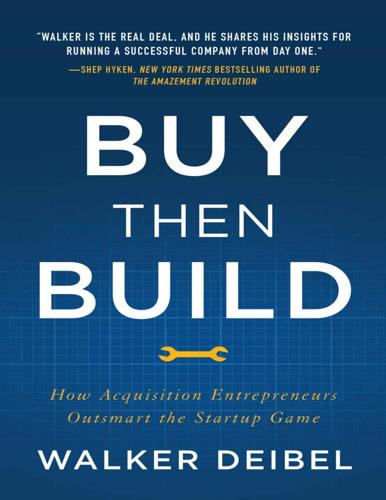
Buy Then Build: How Acquisition Entrepreneurs Outsmart the Startup Game
by
Walker Deibel
Published 19 Oct 2018
All that said, let me be clear that although entrepreneurs have a wonderful vehicle for engineering long-term wealth in their companies, they are almost never driven by wealth creation. Entrepreneurs have non-financial benefits that drive them. We relish in the autonomy, problem solving, growth, and passion we have for our companies. These aspects are not lacking in the acquisition model. For a true entrepreneur, financial independence has been reached the moment they take ownership of a company or an idea, from the very beginning, because there is no separation between work and life. It is the same mission and the same time. This is because for an entrepreneur, working hard for something they care deeply about is the life worth living.
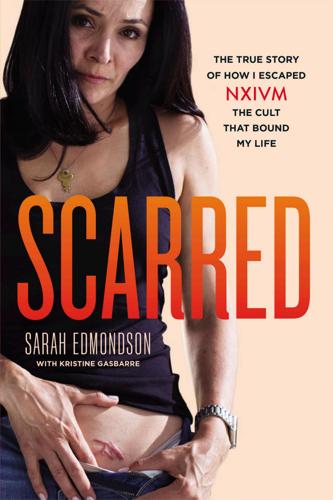
Scarred: The True Story of How I Escaped NXIVM, the Cult That Bound My Life
by
Sarah Edmondson
Published 16 Sep 2019
You could go into auditions appearing attractive and performing well—you could be everything a role called for—and often you still wouldn’t get the part. I liked the idea of a consistent standard I could be measured against. The Stripe Path offered that. That had been four years earlier. By 2009, these women—all high-achieving, free-thinking, and financially independent—had become the people who were closer to me than anyone. Others had also joined the ranks in Albany, some of whom I’d enrolled: Nicki Clyne, an acting colleague I’d invited from Vancouver, along with Allison Mack, who came to her first Jness intensive at the suggestion of a friend in Vancouver.

Uprooting: From the Caribbean to the Countryside - Finding Home in an English Country Garden
by
Marchelle Farrell
Published 2 Aug 2023
I look at my English garden and think of her Trinidadian one and wonder if, in following the compulsion to leave there and settle here, I have done the same. *** As a child, I first lived in a small annexe to my grandmother’s home while my parents – still at university when surprised by my impending arrival – studied and worked to achieve financial independence. My mother built the annexe in my grandmother’s garden when she became pregnant with me, an extra room to house her growing family. The garden that our room ate into was a standard plot for a detached, suburban Trinidadian bungalow of the time. The front garden was closely clipped grass with a generous ixora hedge spilling out over the fence.
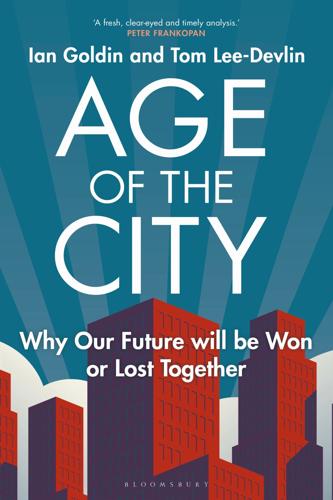
Age of the City: Why Our Future Will Be Won or Lost Together
by
Ian Goldin
and
Tom Lee-Devlin
Published 21 Jun 2023
To see why this is not the case, we need to understand the relationship between the city and stages of life. Curious about the world and hungry for experiences, many young people setting out on their careers are drawn to urban centres. This is the time in a person’s life when they may have achieved financial independence – or something close to it – but are not yet constrained by the need for a larger space to accommodate a family. Unbounded by such constraints, these individuals head to the city and all the excitement it has to offer. The role of inner cities as marriage markets, which we briefly noted in the previous chapter, reinforces this.

Mexico - Mexico City
by
Rough Guides
In 1939 they divorced, a devastating event Frida recorded in Autoretrato con el Pelo Cortado (Self-Portrait with Cropped Hair), in which her trademark long tresses and indigenous tehuana dresses (both much loved by Diego) are replaced by Diego’s oversized suit and cropped hair. They remarried a year later, with Frida insisting on financial independence and a celibate relationship. The injuries from her accident dogged her throughout her life, and as her physical condition worsened she found solace in her work (as well as in drink and painkilling drugs), painting La Columna Rota (The Broken Column) in 1944, with her crushed spine depicted as an Ionic column.
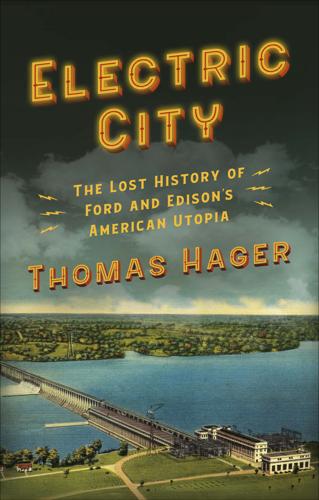
Electric City
by
Thomas Hager
Published 18 May 2021
But the longer they sat and drank and planned their sales program, the better the land sounded to them. By the time they got to New York they had decided it was too good to sell and caught the next train for home.” A company called the Muscle Shoals Intelligence Bureau appeared in New York City, advertising the “chance of a liftime [sic] to become financially independent” and “You have not the opportunity to affiliate yourself with Mr. Ford’s successes of the past, but you may profit and prosper by his operations of the future.” Those interested were invited to send in a reply card for the latest information. When they sent in their cards, they were put on a mailing list to receive promotions from the New York real estate firm Howell & Graves.
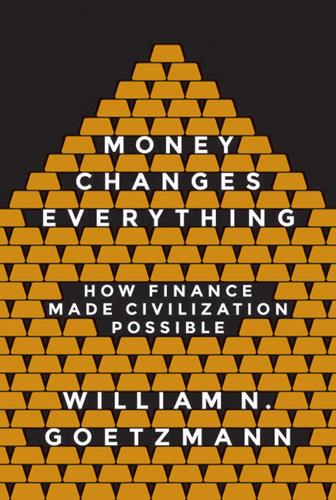
Money Changes Everything: How Finance Made Civilization Possible
by
William N. Goetzmann
Published 11 Apr 2016
In Mesopotamia during the Old Babylonian period, considerable evidence suggests that people were using investments and financial contracts—and even the legal definitions of the family—to finance their retirement. Assyriologist Anne Goddeeris has made a comprehensive study of the economic contracts from the major cities in northern Mesopotamia in the Old Babylonian period from 2000 to 1800 BCE. She traced the business activities of a number of women in the Old Babylonian city of Sippar who were financially independent even while being members of a religious cult that regulated their ability to marry and have children—much like Catholic nuns of a later era. These Nadiatum women, as they were called, began their careers earlier than their brothers, who typically worked in the family business before acting as separate economic agents upon inheritance.3 Nadiatum women owned land and profited from leasing it.
…
The way this worked is due to the peculiar nature of bamboo. A text could be written on the smooth outer surface of a large piece of bamboo, and then this was split in two, parallel to the grain. The two parts were then able to be uniquely matched against each other when the loan was either paid or disputed. Clay or bamboo—enterprising financiers independently developed a verification technology for financial contracting that derived from the natural resources at hand. Bamboo is more perishable than clay, so the myriad financial documents from ancient China have disappeared. Most of the bamboo slips that have been discovered intact are from ancient tombs that were waterlogged, allowing perishable items to survive.
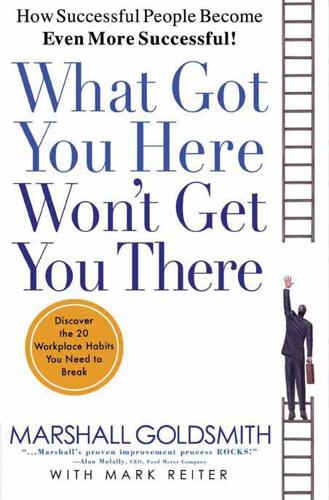
What Got You Here Won't Get You There: How Successful People Become Even More Successful
by
Marshall Goldsmith
and
Mark Reiter
Published 9 Jan 2007
He liked to win whether it was at work, at touch football, in a poker game, or in an argument with a stranger. He could charm a customer, turn everyone around to his position in a meeting, and get his bosses to want to help him advance through the organization. He had “high potential” stamped on his forehead since the day he entered the company. He was also financially independent—rich enough that he didn’t have to work, he wanted to. All of these ingredients—the talent, charm, and brains, the unbroken track record of success, the screw-you money in the bank that let him think he could flip off the world—made this fellow a potent mix of stubbornness and pride and defensiveness.
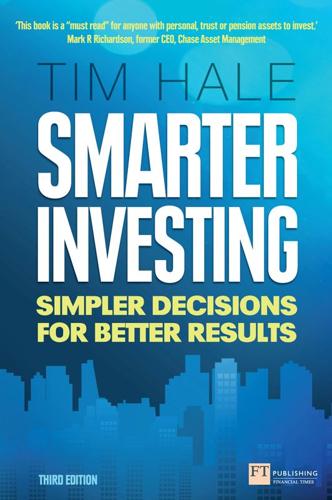
Smarter Investing
by
Tim Hale
Published 2 Sep 2014
G. (2000) ‘Are markets efficient? Yes even if they make errors’, The Wall Street Journal, 28 December, p. A10. Rhodes, M. (2000) Past imperfect? The performance of UK equity managed funds. London: FSA, FSA Occasional Paper Series 9 (www.fas.gov.uk/pubs.occpapers/op09.pdf). Schwab, C. (1999) Charles Schwab’s guide to financial independence: simple solutions for busy people. New York: Three Rivers Press, p. 90. Sharpe, W. F. (1975) ‘Are gains likely from market timing?’, The Financial Analysts Journal, vol. 31, no. 2 (March/April), 60–69. Sharpe, W. F. (1991) ‘The arithmetic of active management’, The Financial Analysts Journal, vol. 47, no. 1 (January/February), 7–9.
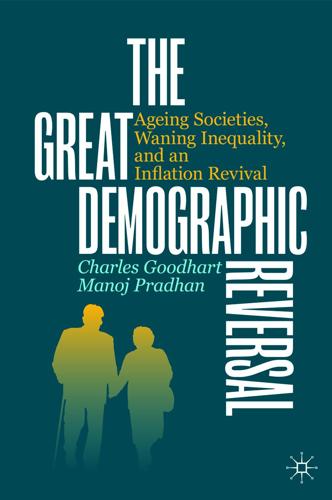
The Great Demographic Reversal: Ageing Societies, Waning Inequality, and an Inflation Revival
by
Charles Goodhart
and
Manoj Pradhan
Published 8 Aug 2020
However, that does not take into account the elderly’s preferences. As nations become richer, the old stay in their existing homes rather than relocate to their adult children’s homes. Moving is stressful, and those among the old who are homeowners have little incentive to relocate, as already described in Chapter 5. As the young come of age and gain financial independence, they will not move into existing housing vacated by the elderly, but will move into new homes that have to be built. In our view, a shift in the balance of the population of a given size towards more old and fewer workers will raise, not lower, the desired stock of housing. That will support residential and housing-related investment.
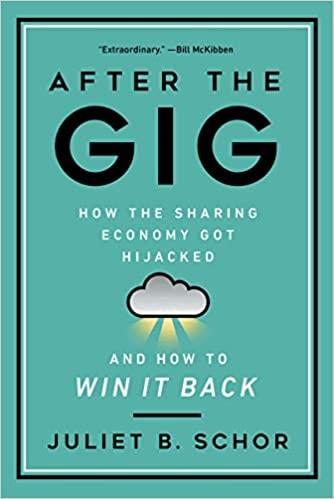
After the Gig: How the Sharing Economy Got Hijacked and How to Win It Back
by
Juliet Schor
,
William Attwood-Charles
and
Mehmet Cansoy
Published 15 Mar 2020
Turner (2006, 208) takes issue with Barbrook and Cameron’s claim that the Californian Ideology emerged from the New Left. He argues its origins were Stewart Brand’s Whole Earth network and New Communalism. 9. Tech pioneers such as John Perry Barlow (former lyricist for the Grateful Dead), Esther Dyson, and others embarked on lucrative tech-enabled careers themselves and preached the gospel of network-based financial independence. 10. The Jeffersonian vision is discussed by Barbrook and Cameron (1996). Early social networking sites populated by techno-counterculturalists did produce largely harmonious social worlds. For example, the WELL (Whole Earth ’Lectronic Link) was an example of an early harmonious online community (Turner 2006). 11.
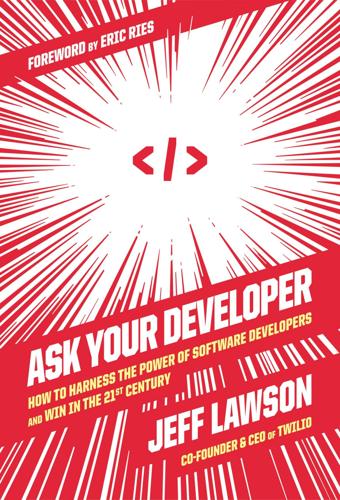
Ask Your Developer: How to Harness the Power of Software Developers and Win in the 21st Century
by
Jeff Lawson
Published 12 Jan 2021
On his website Kalzumeus.com, he’s penned some of the most insightful and entertaining essays ever written about being a software programmer. Patrick lives in Japan, where he once worked as a corporate programmer before striking out on his own, creating two simple online businesses—a bingo card generator app for teachers, and an appointment reminder app—that made him financially independent. He’s a classic polymath. He speaks Spanish and Japanese, can geek out about arcane aspects of U.S. tax code, and once wrote passionately about how well Japan’s emergency response systems performed during the 2011 earthquake. “That this happened was, I say with no hint of exaggeration, one of the triumphs of human civilization.
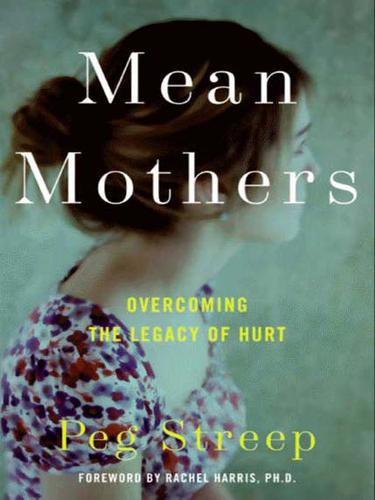
Mean Mothers: Overcoming the Legacy of Hurt
by
Peg Streep
Published 12 Oct 2009
Because my father was a philanderer, I very carefully chose a man who would be faithful to me—and he was. I just forgot all of the other things, like that I had to enjoy and like the person I married. I thought I was able to look at my mother clearly and focus on how to ‘not be like her.’ I would have a career and be financially independent; I would be emotionally strong and stable; I would have community support. Well, that all worked out pretty well, but I forgot the partnership part of things and became independent to a fault.” ROLE MODELS AND RESCUERS Fathers may also present daughters with alternative visions, different in kind from those presented by their mothers, in the realms of both achievement and emotional development.
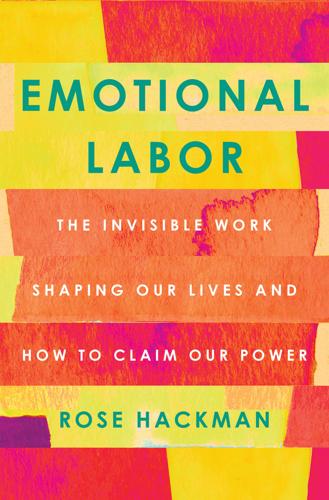
Emotional Labor: The Invisible Work Shaping Our Lives and How to Claim Our Power
by
Rose Hackman
Published 27 Mar 2023
Martin wrote: A wife bonus, I was told, might be hammered out in a pre-nup or post-nup, and distributed on the basis of not only how well her husband’s fund had done but her own performance—how well she managed the home budget, whether the kids got into a “good” school—the same way their husbands were rewarded at investment banks. In turn these bonuses were a ticket to a modicum of financial independence and participation in a social sphere where you don’t just go to lunch, you buy a $10,000 table at the benefit luncheon a friend is hosting. Women who didn’t get them joked about possible sexual performance metrics. Women who received them usually retreated, demurring when pressed to discuss it further, proof to an anthropologist that a topic is taboo, culturally loaded and dense with meaning.
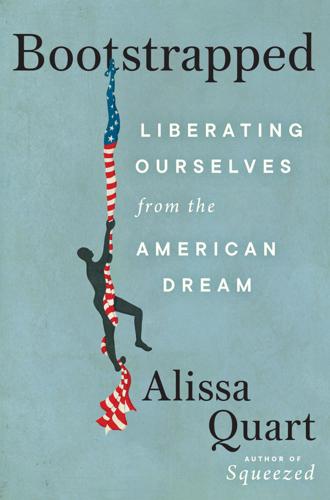
Bootstrapped: Liberating Ourselves From the American Dream
by
Alissa Quart
Published 14 Mar 2023
This argument tended to include an idea of a time in the past—in the eighteenth or nineteenth century, say—when sickness and economic suffering were combated by antique ladies-who-lunched, all without “meddlesome” government interference. Those with this outlook may still ask, Why are there no workhouses? But it wasn’t just Bush 41 who insisted on families’ and parents’ evincing an almost impossible level of financial independence from the government. It was President Bill Clinton who famously said he would put an “end to welfare as we know it” and proceeded to do just that, limiting families to five years or fewer of benefits, undoing Aid to Families with Dependent Children and replacing it with the more fragile sustenance of Temporary Assistance for Needy Families, a program that made it harder to access funds.

Please Report Your Bug Here: A Novel
by
Josh Riedel
Published 17 Jan 2023
I couldn’t imagine when I would have the money to take a trip to Barcelona, but I thanked him for the advice. On the way back to my dorm, I checked out a book on Joan Miró from the library, which led to checking out other books on art, which led to switching my major from English to art history, from one major that would never set me on a path to financial independence to another, equally unprofitable major. A passenger tapped me on his way off the bus. I recognized him, but I wasn’t sure from where. “Ethan,” he said. “You going to South by?” Nobody from the Corporation cared about South by Southwest. I shook my head. “Not this year.” “Too bad,” the vaguely familiar guy said.
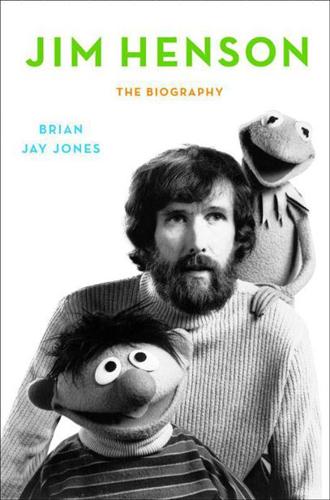
Jim Henson: The Biography
by
Brian Jay Jones
Published 23 Sep 2013
I can’t tell you how many cookie manufacturers wanted Cookie Monster to pitch their product.” But Brillstein was persistent. “Here’s what you have to do,” he told Jim. “First of all, you have to do it for the fans, for the kids. Second of all, you’ll have complete control of it, and you control the quality. Third of all, if it works like I think it’s gonna work, you will be financially independent and you can use the money for your own independence and creativity and no one will ever tell you what to do again.” With Brillstein’s enthusiastic advice still ringing in his ears, Jim met with Joan Cooney to discuss the possibilities of merchandising Sesame Street. Jim brought with him Jay Emmett, head of the Licensing Corporation of America, which had managed marketing for organizations like the National Football League and handled the merchandising of Superman and Batman for National Publications.
…
“And then,” recalled Brillstein, smiling at the memory years later, “he hits me with it, the son of a bitch—and I love him.” Quietly, Jim reminded Brillstein of their conversation from fifteen years earlier, when Brillstein had urged Jim to license his Muppet characters for merchandising. If it works like I think it’s gonna work, Brillstein had said then, you will be financially independent and you can use the money for your own independence. He was buying his independence and creative freedom. “You told me I could do this,” said Jim calmly. “What do you say?” recalled Brillstein. “He nailed me.” Jim was determined, but Brillstein was still nervous about the deal. As far as he was concerned, it was just Jim’s whim of steel again, and Brillstein spoke at length with both Al Gottesman and David Lazer, still in retirement on Long Island, to see if there was any way to talk Jim out of it.
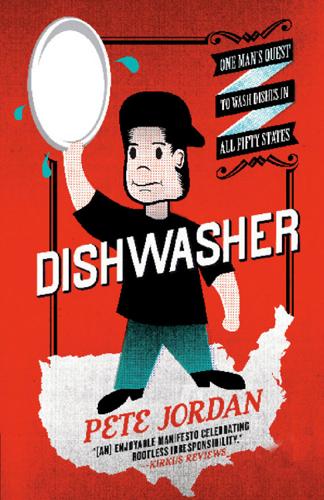
Dishwasher: One Man's Quest to Wash Dishes in All Fifty States (P.S.)
by
Pete Jordan
Published 1 May 2007
Back in my room, I learned to sleep on the edge of the waterbed, hanging an arm and leg over the side railing to anchor myself. I still bobbed up and down anytime I moved, but remained anchored enough to not get seasick. One afternoon, I picked up my paycheck, took it to the bank it was drawn from and cashed it. Then, on my way to work, the notion struck. Why return to Lawrence Welk’s? Now financially independent, I had the opportunity to leave that gig and find an even better one at any of the other dozens of dinner theaters in town. But which one would be better than Welk’s? The Osmonds’? The Oak Ridge Boys’? Dolly Parton’s? Whose dishpit topped them all? In a town packed with cheesy acts, I figured my best bet was to head straight to the cheesiest of them all: Wayne Newton’s.
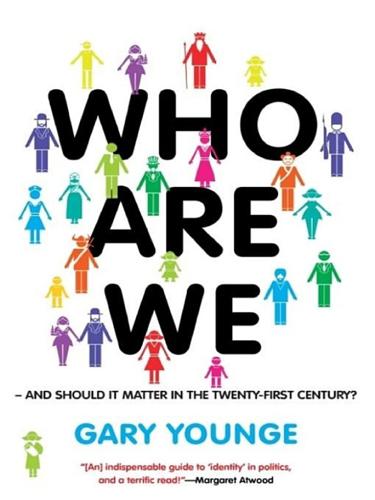
Who Are We—And Should It Matter in the 21st Century?
by
Gary Younge
Published 27 Jun 2011
In 2005, 78 percent of IPV cases ending in death were female. Furthermore, taking in the broader context of male–female relations, women who are abused are more likely to find themselves in socially precarious situations. They are, for example, far more likely to be responsible for childcare and less likely to be financially independent. This makes it far more difficult for women to escape situations in which they are victims of domestic abuse. Finally, men are far more at risk of being victims of IPV if their partners too are male. Approximately 15 percent of men who lived with a man as a couple, according to the survey, reported being raped, physically assaulted, and/or stalked by a male cohabitant, while 7.7 percent of men who had married or lived with a woman as a couple reported such violence by a wife or female cohabitant.
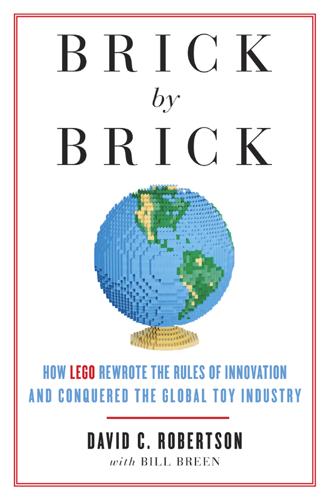
Brick by Brick: How LEGO Rewrote the Rules of Innovation and Conquered the Global Toy Industry
by
David Robertson
and
Bill Breen
Published 24 Jun 2013
Not only had LEGO sustained the largest losses, on a percentage basis, among toy makers, but it was by far the industry’s least profitable brand. As news of the brick maker’s crash spread beyond Billund, analysts predicted that with toy industry heavyweights and private equity firms closing in, LEGO would probably be broken up and sold off in pieces. The Financial Times reported the LEGO Group’s “financial independence” was at stake. The British newspaper the Independent cited “growing speculation that LEGO cannot survive alone.” In a headline, the London Telegraph flatly declared, “Family Likely to Lose Control of the LEGO Set.” Kristiansen was determined to keep LEGO in the family, but the headlines weren’t just hype.
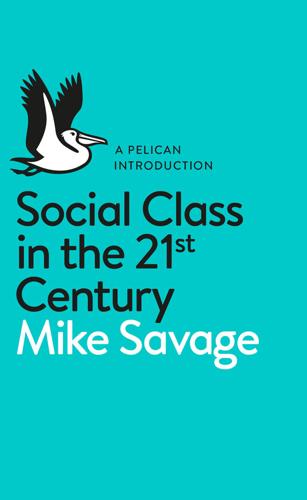
Social Class in the 21st Century
by
Mike Savage
Published 5 Nov 2015
For Gita, this decision was intimately connected to ideas of feminist emancipation that had been introduced to her at university and had been informed by advice she had received from white, female middle class colleagues at the time. However, the divorce had caused an irrevocable rift with her parents and the local Indian community. For Gita, the divorce was the source of a multitude of difficult emotions. At once a proud signal of her feminist identity and financial independence, it was also the root of a strong sense of shame – an emotion from which, she noted, it was almost impossible to escape. ‘Because my family is linked very much to the Indian community, even if I don’t want to be, I’m pushed back … y’know, somebody knows someone and so on …’ For Gita, the result of such social suffering was a profoundly conflicted sense of self, oscillating between the loyalties of family and the opportunities of mobility: I’ve always thought I’ve never really belonged, but then I always thought it was just me, y’know?
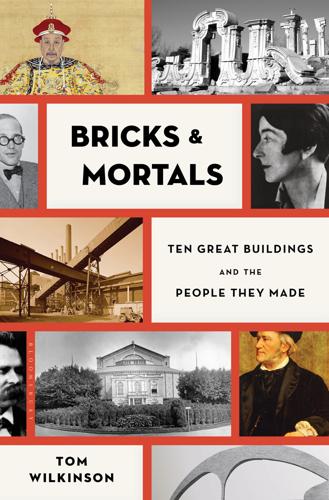
Bricks & Mortals: Ten Great Buildings and the People They Made
by
Tom Wilkinson
Published 21 Jul 2014
In the process she rises from the position of a Trümmerfrau – a rubble woman, as the women who scavenged in the ruins of post-war Germany were called – to a secretary and later an executive in a successful West German corporation. Eventually she is wealthy enough to purchase that ultimate symbol of financial independence and bourgeois success, her own home. It is exactly now that she realises that her home is a prison, her apparent rise a hellish descent. In an ambiguous final scene she accidentally blows up her house, herself and her husband by lighting a cigarette after leaving the gas on. The film ends as it begins, with an explosion and a pile of rubble, Maria once more a Trümmerfrau.
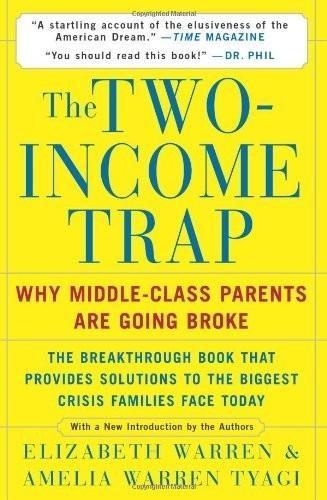
The Two-Income Trap: Why Middle-Class Parents Are Going Broke
by
Elizabeth Warren
and
Amelia Warren Tyagi
Published 17 Aug 2004
If interest rates are regulated once again, will credit become undemocratic, available only to those with realistic prospects for repayment? To answer this, it is time to step back a moment. The original intent of the credit democratization movement was for credit to help more families become financially independent. Credit was not supposed to be an end in itself. But it seems that the original intent has been forgotten. Consider, for example, the motto of one prominent advocacy group: “Access to credit and capital is a basic civil right.”81 Is it a civil right to pay interest on a credit card balance for the rest of a person’s natural life?
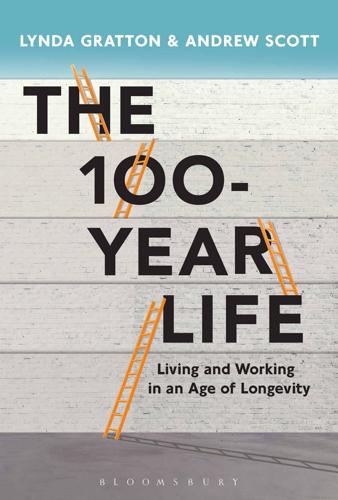
The 100-Year Life: Living and Working in an Age of Longevity
by
Lynda Gratton
and
Andrew Scott
Published 1 Jun 2016
Jimmy in 2036: By the age of 65, the thought of retirement has not crossed Jimmy’s and Jenny’s minds. Jimmy left the Indian IT company two years earlier and now works as a certified project manager. The ten years of investment in building contacts within the three global communities he identified previously are paying off and his skills are now in demand. By now his children are financially independent, and he has begun to specialize in running large-scale IT projects in sub-Saharan Africa. Jenny is continuing to work in her job and is happy to build a more independent life when Jimmy is away. Jimmy is living the portfolio life he wanted: with valuable skills he is able to find interesting work, and even in his late 70s he is still in demand.
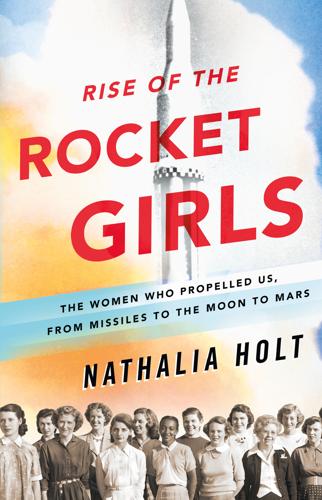
Rise of the Rocket Girls: The Women Who Propelled Us, From Missiles to the Moon to Mars
by
Nathalia Holt
Published 4 Apr 2016
But while Margie could rely on her colleagues at work as much as ever, at home she could feel her marriage slipping away. Her teenage fantasies of romance had subsided into apathy. She and her husband were an ill-matched couple who couldn’t seem to get along. The worse her marriage got, the more she felt the need to work. She knew that if they were to split, she’d need her financial independence, made possible by her job at JPL. Leaving the lab at the end of the day, she laughed when another computer said to her, “Now we go home and really work.” It was said in jest, but Margie knew it was only too true. Day after day, she would get home from the lab and rush to make dinner, give the kids a bath and get them to bed, then wash the dishes and do the laundry.
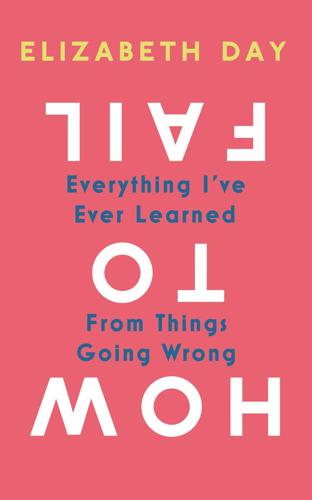
How to Fail: Everything I’ve Ever Learned From Things Going Wrong
by
Elizabeth Day
Published 3 Apr 2019
If I didn’t have that, then perhaps I would believe motherhood was the key to fully existing. As it is, I am regretful and sad that I am not a mother, but it does not encompass me. I am also aware that I have a life full of wonderful gifts, including sustaining friendships, a degree of professional success, financial independence and good health. How bloody lucky am I? I also have two nieces and nine godchildren, so children are very much a part of my life, and I’m aware, too, that although there is this pervasive myth of happy parenthood, there is also no guarantee that your kid won’t grow up hating you or won’t become a drug addict or won’t contract some terrible illness.
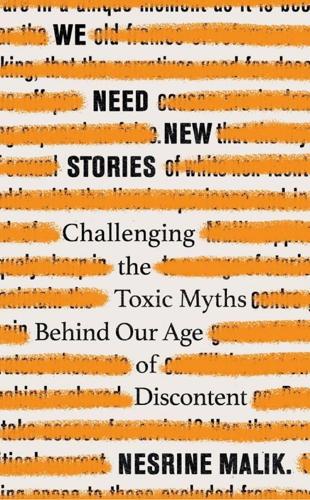
We Need New Stories: Challenging the Toxic Myths Behind Our Age of Discontent
by
Nesrine Malik
Published 4 Sep 2019
Anything that in the scarcity of incarceration will earn you some respite from the tyranny of a system in which your rights are enshrined in theory but can be rescinded at any time. One would, of course, rather not be in prison, but if you are, it is better to have something to trade. The most powerful woman to the naked eye – financially independent, educated, fully employed and equally paid, living in a society with robust laws protecting her rights to freedom from gender discrimination – is not exempt from this barter economy. And so a woman starts to trade. She sometimes accepts a certain benign degree of male dominion in order to secure financial support in a world where her employment opportunities are compromised by child rearing.
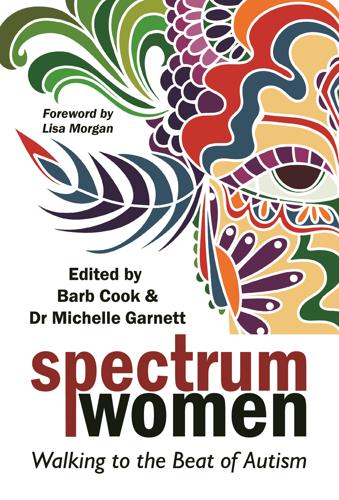
Spectrum Women: Walking to the Beat of Autism
by
Barb Cook
and
Samantha Craft
Published 20 Aug 2018
The Public Service has been incredible. The work suits me well and I feel quite at home. I have been in my role for over ten years and have been promoted twice. Despite some challenges and setbacks, my world of work is now enjoyable and rewarding. Overview—autism and employment Employment is important. It can provide financial independence and a sense of inclusion and being part of something bigger. Autistic people can face challenges in gaining suitable employment, but it does not need to be unattainable. Currently we face some of the lowest labor force participation rates of any disability group and some of the highest levels of unemployment (Australian Bureau of Statistics, 2017).
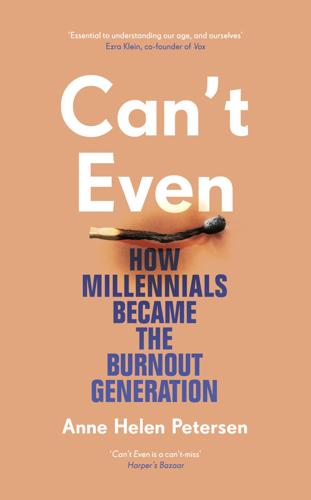
Can't Even: How Millennials Became the Burnout Generation
by
Anne Helen Petersen
Published 14 Jan 2021
This made it easier for women in unhappy and/or abusive marriages to leave their husbands, but there was little societal attention to what would happen to those women once divorced. For most divorced women, it was incredibly difficult, if not impossible, to make the sort of money that would render them financially independent. It’s not that these women weren’t hard workers—but many had quit their jobs in order to raise children. When the marriage ended, they often found it difficult or impossible to reestablish themselves on the career track or even find work. Their ex-husbands, by contrast, still had the same job or career they had before the divorce, as well as what Newman calls “job mobility”—the ability, if laid off, to chase job opportunities or find employment at the same level.

Please Don't Sit on My Bed in Your Outside Clothes: Essays
by
Phoebe Robinson
Published 14 Oct 2021
And the only way you can afford this help is if you’re living within your means not only personally, but also professionally. So remember, the numbers don’t lie, be clear about what is a need vs. a want, and understand that your profits increasing isn’t a license to ball out of control, but to build your future and maintain your financial independence. However, if you do want to splurge on Grey Poupon for the office (and also your life!), go for it. That mustard is good as hell. What Warren Buffett Should’ve Told Ya #9: Understand What You’re Not Good At / What You Don’t Like Doing and Have Other People Do That Shit Orgasms are great, but have you ever tried paying someone to do things you don’t wanna do and gained hours of your life back?
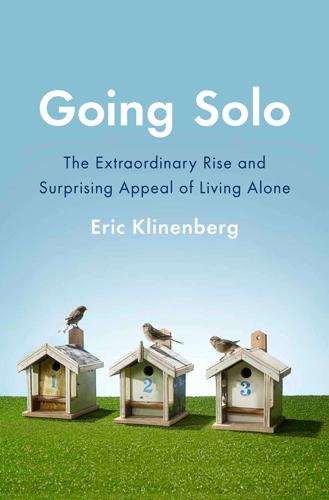
Going Solo: The Extraordinary Rise and Surprising Appeal of Living Alone
by
Eric Klinenberg
Published 1 Jan 2012
Katz, and Ilyana Kuziemko, “The Homecoming of American College Women: The Reversal of the College Gender Gap,” National Bureau of Economic Research, Working Paper 12139, 2006. 25. See Mitra Toossi, “A Century of Change: The U.S. Labor Force, 1950–2000,” Monthly Labor Review (May 2002): 15–28. Although women’s compensation continues to lag behind men’s, a growing number of women do well enough to become financially independent and, in turn, domestically independent, too. As the international trends suggest, when women can live alone without enduring poverty, a great many of them will. 26. Women’s economic independence is not the only reason for the increase in divorce. Legal reforms, most notably the no-fault divorce laws that became common during the 1970s, have allowed a dissatisfied spouse to terminate a marriage without accusing the partner of any wrongdoings and likely have given divorce rates a gentle nudge upward.
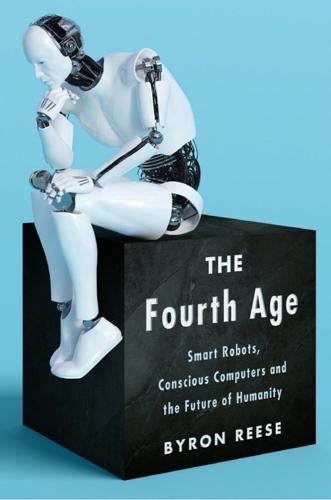
The Fourth Age: Smart Robots, Conscious Computers, and the Future of Humanity
by
Byron Reese
Published 23 Apr 2018
Oren Cass writes for National Review that “an underclass dependent on government handouts would no longer be one of society’s greatest challenges but instead would be recast as one of its proudest achievements.” Criticisms leveled at the UBI include that it robs people of the dignity that productive work offers, it undermines self-reliance, and it undermines the family by making everyone completely financially independent of everyone else. Further, people without jobs frequently become people without purpose, and permanent leisure leads to atrophy of the brain and body. In short, the need to earn a living promotes self-reliance, gives purpose to life, and allows each of us to participate in society as an interdependent part of a whole.
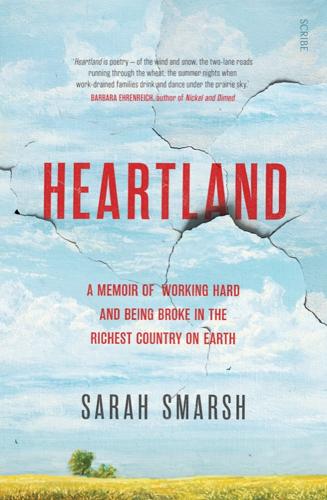
Heartland: A Memoir of Working Hard and Being Broke in the Richest Country on Earth
by
Sarah Smarsh
Published 17 Sep 2018
Like the conservative laborer who spurns the idea of “handouts,” my pride was bigger than my need. I didn’t know the term “first-generation student” and didn’t grasp yet that I had in fact “grown up poor” and was still very much “living in poverty.” The best I could come up with for describing my situation was that I was a “financially independent student” and tell people that “I grew up on a farm.” I once took a roommate, a funny, sharp girl raised in lower-middle-class Wichita, to the farm and was stunned to see it through her eyes. Everything was worth exclaiming about—the cows, the pigs, the chickens, the butchering shed, the cow tongue pickling in a jar in the refrigerator, the way every single adult was drinking alcohol.
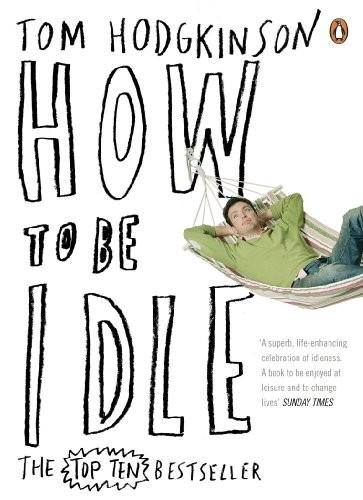
How to Be Idle
by
Tom Hodgkinson
Published 1 Jan 2004
Lord Byron encapsulates the paradox of the rioting poet, the seditious idler, the laid-back revolutionary. As for his idler credentials, his first collection of poetry, published in 1 807 when he was just 19 and an undergraduate at Trinity College, Cambridge, was entitled Hours of Idleness. He was also an aristocrat, a member of the idle rich. But, for him, this financial independence gave him the necessary detachment to see the iniquities perpetrated by the new middle class more clearly than those who were scurrying around making money. In any case, according to the nineteenth-century critic Matthew Arnold, he was enraged by ' British Philistinism ' and enraged still more by his own class ' s apparent acquiescence to the commercial economy.
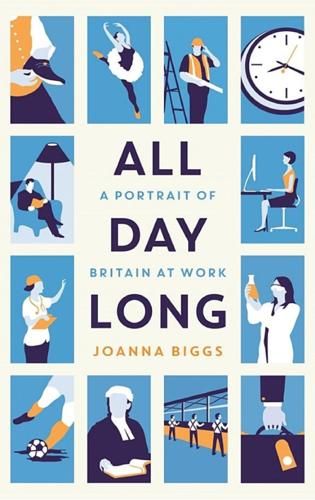
All Day Long: A Portrait of Britain at Work
by
Joanna Biggs
Published 8 Apr 2015
But they still have no clue. They don’t know that I drink as much as I do. They think that I sip wine! It’s very difficult for me to balance, because I don’t have a close relationship to them. I have a very “How’s your day? Good” kind of relationship with them. But I try to maintain it because I’m not financially independent yet. It’s not like I don’t love them, I do. I’m really so happy about the support that they’ve been giving me but it’s just so hard to reconcile that. Shit – I’m taking money from people who do not approve of my lifestyle, basically. But I guess it’s just a pill that I have to swallow, for my own survival.
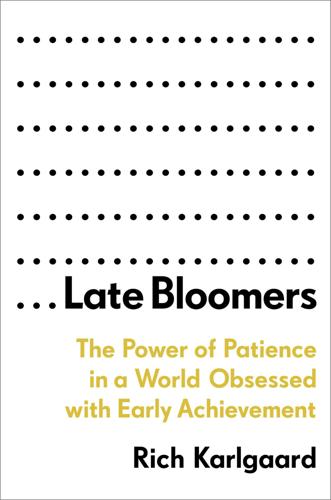
Late Bloomers: The Power of Patience in a World Obsessed With Early Achievement
by
Rich Karlgaard
Published 15 Apr 2019
Yet our society persists in testing, tracking, and ranking teenagers and young adults about their future potential even as they’re only just starting a cognitive maturation process that won’t end until their mid-twenties or later. * * * It takes longer for each successive generation to finish school, become financially independent, get married, and have children. A large-scale national study conducted since the late 1970s found that today’s twenty-five-year-olds, compared with their parents’ generation at the same age, are twice as likely to still be in school, 50 percent more likely to be taking money from their parents, and only half as likely to have a spouse.
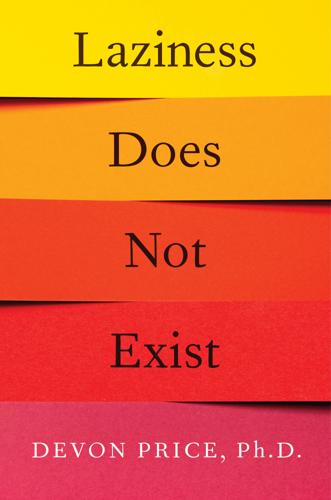
Laziness Does Not Exist
by
Devon Price
Published 5 Jan 2021
Now, whenever I teach statistics, I work hard to help my students see why the subject deserves their attention and time. I demonstrate to them why it ought to be one of their priorities. When I’ve done my job well, they get it, and put in the effort. So, when I see that somebody doesn’t care about a particular goal—whether it’s becoming financially independent, finishing a degree, or even voting—I find myself wondering, Why does this activity seem pointless to them? According to James, he and his peers didn’t take classwork seriously because their school was overly strict. That makes complete sense to me. When you feel stuck in a controlling environment where nobody treats you with trust, you’re naturally going to want to rebel against it.

A Second Chance
by
Jodi Taylor
Published 31 Dec 2012
I made haste to distract him before he thought about adjusting me. ‘What happened about The Play, sir? I thought we were going to be rich for ever.’ Some five hundred years ago, Dr Bairstow had commissioned a play from the man himself, Bill the Bard, concerning the life of Mary Stuart and buried it at St Mary’s for us to find and become financially independent. This inspired plan had fallen at the first fence when Professor Rapson, sneaking a quick preview, discovered that in this version, the sixteenth century had executed Elizabeth Tudor instead. We’d had to nip back and sort it all out. That part of the mission had been extremely successful.
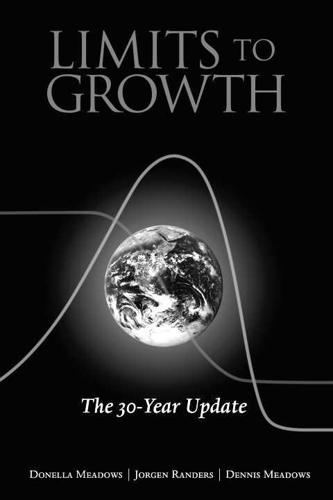
The Limits to Growth: The 30-Year Update
by
Donella H. Meadows
,
Jørgen Randers
and
Dennis L. Meadows
Published 15 Apr 2004
Erling Moxness, "Not Only the Tragedy of the Commons: Misperceptions of Feedback and Policies for Sustainable Development," System Dynamics Review 16, no. 4 (Winter 2000): 325-348. Chapter 7. Transitions to a Sustainable System 1. See Duane Elgin, Voluntary Simplicity, revised edition (New York: Quill, 1998), as well as Joe Dominguez and Vicki Robin, Your Money or Your Life: Transforming Your Relationship with Money and Achieving Financial Independence (New York: Penguin USA, 1999). 2. World Commission on Environment and Development, Our Common Future (Oxford: Oxford University Press, 1987). 3. Herman Daly is one of the few people who have begun to think through what kinds of economic institutions might work to maintain a desirable sustainable state.
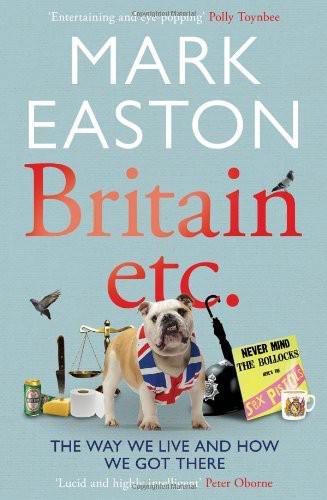
Britain Etc
by
Mark Easton
Published 1 Mar 2012
There was particular concern that the damage had exposed national identity to contamination from foreign, particularly American, influence. Along with exotic clothes and loud music, a new word had crossed the Atlantic – teenager. It was a term that reawakened Establishment fears of the juvenile threat but, with the economy expanding, also inspired the development of a new financially independent subculture: simultaneously exciting and terrifying. Over the next four decades, Teddy Boys, Bikers, Mods, Rockers, Hippies, Punks, Ravers and Grungers put two pubescent fingers up at authority in their own fashion and took delight in watching the staid grown-ups flinch and frown. Young people could cock a snook at their elders, confident that their consumer spending power gave them licence.
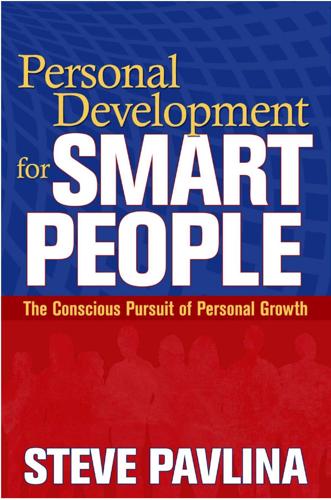
Personal Development for Smart People: The Conscious Pursuit of Personal Growth
by
Steve Pavlina
Published 14 Oct 2008
Only goals that align with your truest, deepest desires can s u m m o n that kind of power. You'll learn a lot about yourself w h e n you discover the kinds of goals that really drive y o u . It took me years to learn that material goals always de-motivate m e . I simply don't care enough about money, possessions, or financial independence to lift a finger toward such goals. If necessary, I'll retire on a park bench with a "Will blog for f o o d " sign. W h a t really gets my juices flowing is helping people grow. I gush with joy w h e n I see people experience breakthrough " A h a ! " moments that help them move forward in life.
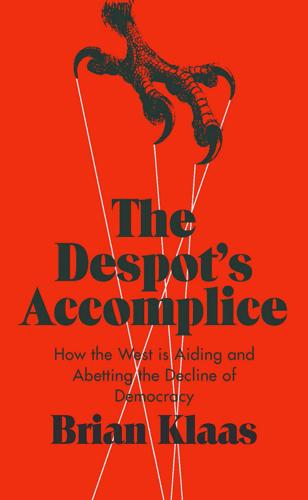
The Despot's Accomplice: How the West Is Aiding and Abetting the Decline of Democracy
by
Brian Klaas
Published 15 Mar 2017
“I do most of my fundraising while I’m shaving in the mirror in the morning,” he would regularly joke with us. â•… This feature of Mark’s campaign was welcome news to me, as staff in flagging American electoral campaigns can sometimes be left in limbo as to whether their paycheck will arrive after an eighty-hour work week. Such financial independence can also confer political independence in an era where the average American overwhelmingly believes that elected representatives can be bought and sold.With politicians stubbornly unresponsive to the will of the masses on several issues while bowing to wellfinanced organizations, it’s no wonder that some people find it appealing when Donald Trump insists (rightly or wrongly) that his wealth makes him politically independent.
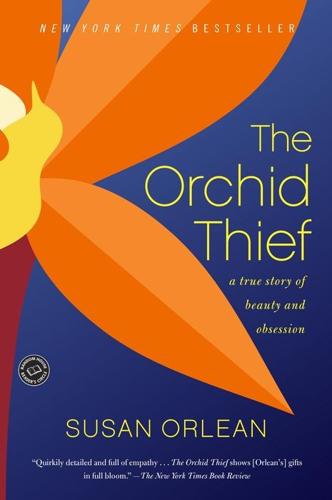
The Orchid Thief: A True Story of Beauty and Obsession
by
Susan Orlean
Published 1 Jan 1998
I turned on the car radio and tried to find a music station I liked but ended up listening to a talk show about how to keep pet snakes and iguanas happy, and when that was over I listened to an hour-long infomercial for some money-management audiotapes. The announcer had a big, hollow voice and every few minutes he would boom, “My friends, you are about to enter the promised land of financial independence!” I drove past Carpet-Marts and Toy-Marts and Car-Marts and the turnoff for Alligator Alley and a highway flyover that leads to the stadium where the Super Bowl is sometimes played, and past signs for all those dreamy-sounding Florida towns like Plantation and Sunrise and Coconut Creek and Coral Springs.
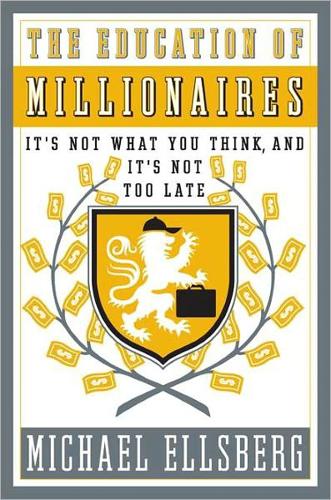
The Education of Millionaires: It's Not What You Think and It's Not Too Late
by
Michael Ellsberg
Published 15 Jan 2011
I bought what he was selling, I went out the door, and I believed it, and I started consuming any and all motivational material I could get my hands on. Think and Grow Rich by Napoleon Hill. For all the guys I know that have started with nothing, that book has probably led to more people becoming financially independent than any other book. “I became a committed self-studier in motivation and success for the rest of my life. Books, seminars, workshops. In my parents’ view, life was basically a burden and challenge, to be survived at best. The stuff I was studying now knocked me out of that mentality. As a mature adult, I now see that much of this thinking, which is powerful and practical, is actually incomplete.”
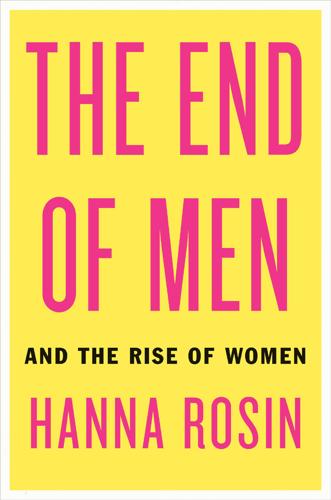
The End of Men: And the Rise of Women
by
Hanna Rosin
Published 31 Aug 2012
The girls come to pharmacy school for the same reason girls went to clerical schools in the 1920s and 1930s: They want a respectable profession where they won’t get their hands dirty. (“I love science, but I faint at the sight of blood,” one of Hannah’s classmates told me.) They want some financial independence and a better life than their mothers had. At the University of Wisconsin, 35 percent of the students are the first ones to graduate college in their families. But unlike the dewy secretaries, they are not immediately disappointed upon graduation. Una Golden, the heroine of Sinclair Lewis’s The Job, the first in his trilogy about the new woman and office life, is delighted by secretary school but at the office finds only “loveless routine,” and young men who are “very slangy and pipe smelly” and press her to do endless tedious tasks.
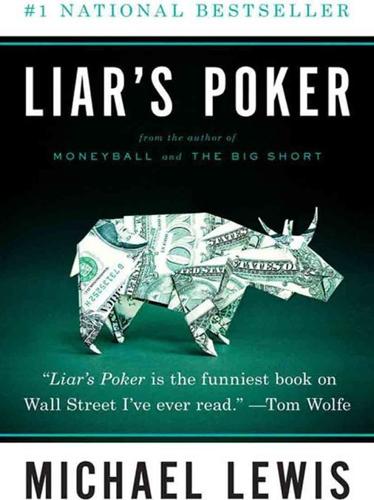
Liar's Poker
by
Michael Lewis
Published 1 Jan 1989
The mortgage department became a white brotherhood apart. The tacit agreement was that Lewie would do everything he cou!4 to get his traders paid and his traders would be loyal to Lewie. Their covenant was weaker than Ranieri's. The traders had come from business school rather than the mailroom. Many of them were financially independent. It was hard for Ranieri to do favors. Ranieri liked to be surrounded by people he could do things for. He liked people, but he especially liked the concept of "his people." He would have thriven on a steady stream of traders with medical bills they couldn't meet. When Bill Esposito fell short nineteen thousand dollars on a house he wanted to buy, Ranieri had Salomon make up the difference.
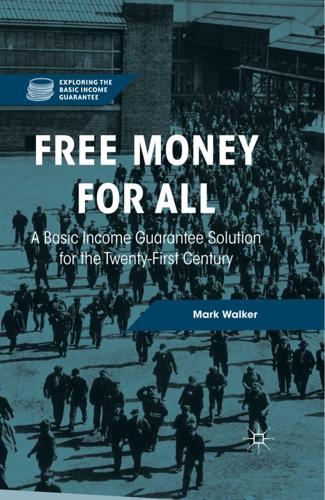
Free Money for All: A Basic Income Guarantee Solution for the Twenty-First Century
by
Mark Walker
Published 29 Nov 2015
(Joseph Rowntree Foundation, 2015), http://www.jrf.org. uk/sites/files/jrf/citizens-income-full.pdf. 2. For more on the Alaska permanent fund see, Karl Widerquist and Michael W. Howard, Alaska’s Permanent Fund Dividend: Examining Its Suitability as a Model (New York: Palgrave Macmillan, 2012). For thoughts on the value of a guaranteed income less than necessary for financial independence, see Jason B. Murphy, “Baby Steps: Basic Income and the Need for Incremental Organizational Development,” Basic Income Studies 5, 1 (2010). 3. I borrow these two examples from Karl Widerquist. Karl Widerquist, “OPINION: Big Changes Come,” BIEN, June 17, 2013, http:// www.basicincome.org/news/2013/06/opinion-big-changes-come/. 4.
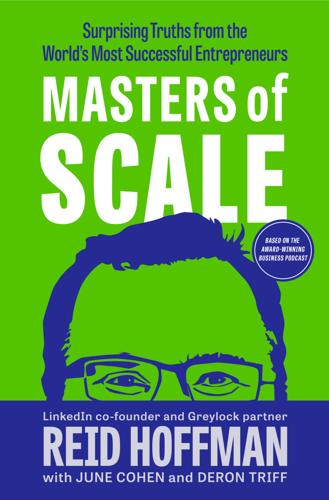
Masters of Scale: Surprising Truths From the World's Most Successful Entrepreneurs
by
Reid Hoffman
,
June Cohen
and
Deron Triff
Published 14 Oct 2021
“My parents freaked out,” Linda says. “They overheard my co-founder and me plotting this global organization to support high-growth entrepreneurs in emerging markets. And my mother looked at my father like, You’ve got to stop this. My dad gently came over and reminded me that I needed to be financially independent, that I didn’t have anything to fall back on, and this didn’t sound like job security.” Linda refers to this as her kitchen-table moment. “It’s really scary to tell your family that you’re going to do something unconventional,” she says. “And you have to make this choice: Do I do what’s safe and expected, or do I venture into the unknown?”
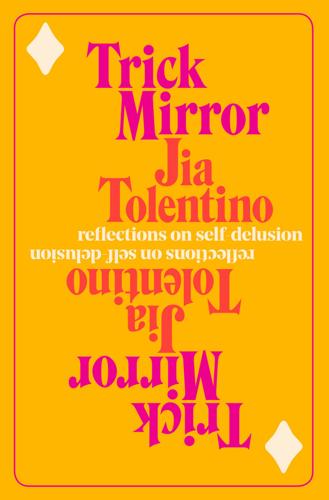
Trick Mirror: Reflections on Self-Delusion
by
Jia Tolentino
Published 5 Aug 2019
We had always moved up and down through the middle class, but my parents had protected and prioritized me. They kept me in private school, often on scholarship, and they paid for gymnastics, and they took me to the used bookstore whenever I asked. This was different—house-being-repossessed different. I knew that I would need to be financially independent as soon as I graduated from high school, and that from that point forward, it would be up to me to find with my own resources the middle-class stability they had worked so hard for and then lost. This was of course part of my motivation to win Girls v. Boys. I had gotten into Yale early, and figured that my portion of the prize money would help me figure out how to deal with things like student loans and health insurance, help me move to New Haven, give me some guardrails as I slid into the world.
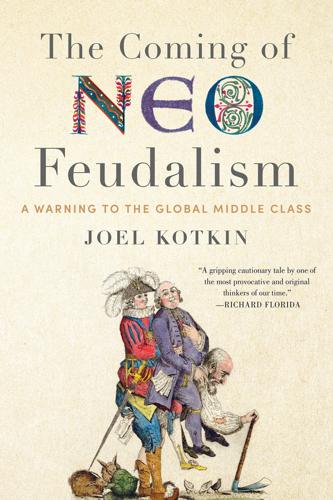
The Coming of Neo-Feudalism: A Warning to the Global Middle Class
by
Joel Kotkin
Published 11 May 2020
He saw homeownership as critical not only to the economy but to democracy and the very idea of self-government.3 Today, the democratization of landownership is being reversed. In the United States and across the world, more and more people are being pushed into living in rented apartments or houses, with little chance of gaining financial independence. This trend is not simply a product of market forces. Rented housing—whether apartments or single-family houses—has been heavily promoted by much of the oligarchy and more so by the planning gurus of the clerisy, even though homeownership is favored by the great majority in the United States, Europe, Australia, and Canada.4 Given the high cost of dense development, future generations may well become ever more dependent on subsidies or affordable unit set-asides.5 An economy where most people rely upon wealth transfers from the lucky few cannot easily coexist with a tradition of individual initiative and self-governance.6 Undermining Familialism Perhaps no institution is more threatened by the neo-feudal order than the traditional family structure.
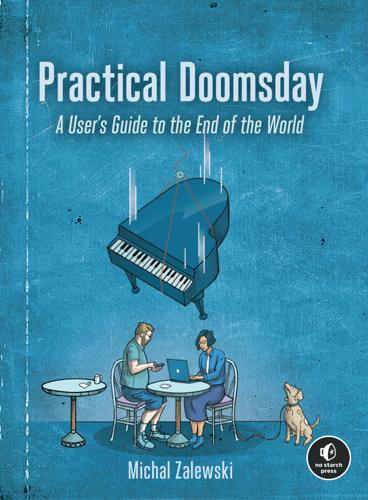
Practical Doomsday: A User's Guide to the End of the World
by
Michal Zalewski
Published 11 Jan 2022
For the rainy-day fund, the only “gains” you need to make are to keep up with the continued depreciation of the currency that’s used to measure the size of the nest egg. If fortune smiles upon you and you earn more, that’s just a happy accident. Physical Cash Some savers, especially the lot born in the 1970s and before, see physical cash as the ultimate tool for financial independence: something that can’t be taken away by the government or misappropriated by the bank. This thinking made sense for much of the 20th century, but it stands on shaky ground today. The authorities have found new ways to prop up public finances and to keep banks afloat by purchasing distressed obligations at questionable prices—and if these tools malfunction, leaving the government holding the bag, the purchasing power of cash kept under the mattress is bound to be severely impacted too.
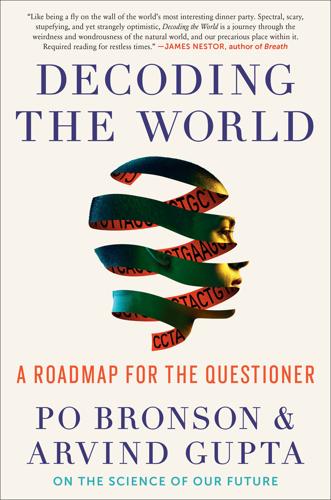
Decoding the World: A Roadmap for the Questioner
by
Po Bronson
Published 14 Jul 2020
In America the rules are quite strict and vary state by state. In Ukraine, not so much. India and Nepal have banned commercial surrogacy altogether, leading to a thriving black market. You can see this as a cruel shifting of motherhood from the rich to the poor. You could see this as a way for all women to get what they want, financial independence and the equality that comes with this power. One of the women in the salon jumps in one more time with a question about when it makes sense to freeze eggs. Considerate of her age, I don’t want anything I say to be interpreted as medical advice, so I put it in the form of a prediction. “In the future, I think we’ll see women freezing their eggs when they’re relatively young.
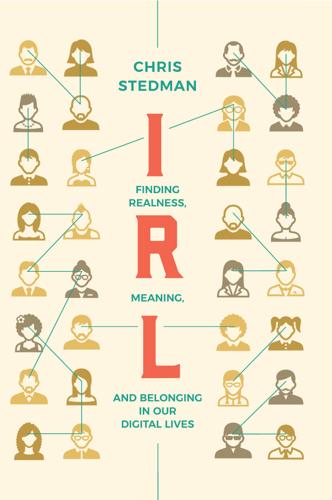
IRL: Finding Realness, Meaning, and Belonging in Our Digital Lives
by
Chris Stedman
Published 19 Oct 2020
. *** Independence is valued in my family because we’ve needed it to survive, and as I became an adult it was easy to tell myself that I was as independent as they come. While my family stayed in Minnesota, I moved out of state to Chicago, where I knew no one, then went even farther, to New England. I’ve been financially independent since I moved out of my family’s house as a teenager and have experienced periods of financial insecurity when I had no one and nothing to fall back on. I’ve scraped my way from one self-created job to another. So, despite all of the help I’ve received from others, I was able to tell myself a story that I was fine on my own.
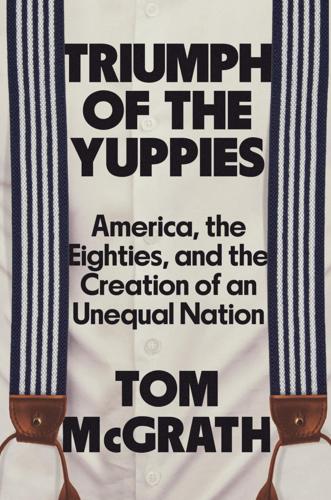
Triumph of the Yuppies: America, the Eighties, and the Creation of an Unequal Nation
by
Tom McGrath
Published 3 Jun 2024
The demarcation between winners and losers had rarely been so stark, and you didn’t want to make a misstep that would leave you on the wrong side of that line. One place that anxiety was increasingly revealing itself was in the raising of kids. From the mid-’60s to the late ’70s, the number of births in America had trended downward, thanks to birth control, women’s growing financial independence, and the delaying of marriage—especially among more educated people. But beginning in 1979, as the biological clocks of older Baby Boomers ticked more loudly, the number trended up again, causing a mini–baby boom. In 1985, 3.76 million babies were born in America, the most in twenty years.
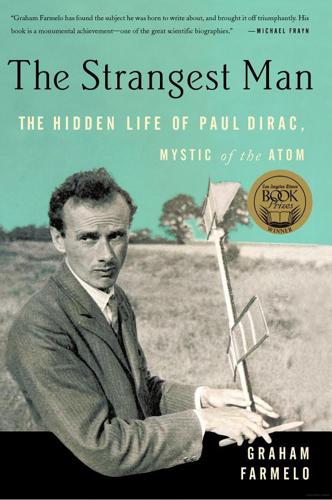
The Strangest Man: The Hidden Life of Paul Dirac, Mystic of the Atom
by
Graham Farmelo
Published 24 Aug 2009
After Felix had taken his degree, he left home and moved two hundred miles away to Rugby, which was rapidly changing from one of the East Midlands’ sleepy market towns into a booming centre of the new electrical technology. Felix took a three-year student apprenticeship at the British Thomson-Houston Company, on a starting wage of a pound a week, giving him a measure of financial independence. Meanwhile, his penniless brother continued to study engineering – while moonlighting in physics – at the Merchant Venturers’ College. As he had already chomped his way through the mathematics part of the course, he seemed destined to spend the remaining two years of his engineering degree fumbling his way through his laboratory exercises and listening to his lecturers drone their way through the syllabus.
…
I thought they looked nice.’ He was twenty-six years old. Dirac was in no hurry to return to Bristol: the journey took him almost a month.28 The disparity between the excitement of his work and the dreariness of his home life had never been so stark. He was lionised by many of his colleagues, he was financially independent, and he was benefiting from international travel at a time when it was a luxury. Charles, Flo and Betty, on the other hand, were locked in their routine and left their hometown only rarely. Betty was happy to do nothing at all when she was not looking after her new dog; Charles was overworked and run down; Flo was trying to make the most of every opportunity to leave the house.
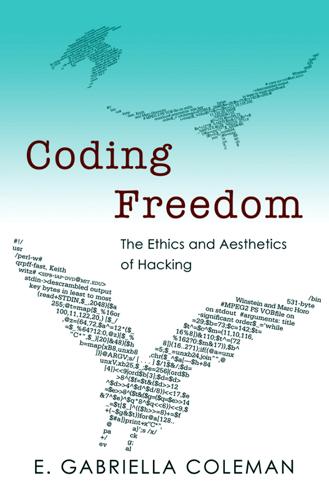
Coding Freedom: The Ethics and Aesthetics of Hacking
by
E. Gabriella Coleman
Published 25 Nov 2012
It said that sharing was good for the community, and that access to source code is not only handy but also the basis by which technology grows and improves. Eventually, he understood himself to be connected to a translocal community of hackers and grew increasingly peeved at their stereotyped representation in the media. As he grew older and more financially independent (thanks to lucrative information technology jobs as a programmer or system administrator that gave him the financial freedom, the “free time,” to code for volunteer projects, or alternatively paid him explicitly to work on free software), he consistently interacted with other geeks at work, over IRC, on a dozen (or more) mailing lists, on free software projects, and less occasionally, at exhausting and superintense hacker conferences that left him feeling simultaneously elated and depressed (because they invariably have to come to an end).
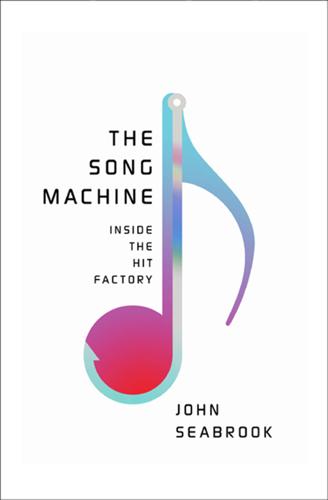
The Song Machine: Inside the Hit Factory
by
John Seabrook
Published 4 Oct 2015
They were people who were there for the good times, but if it ever turned ugly they’d leave me in a heartbeat. I had always wanted to belong and I had been thinking that this was going to get solved when I had money, and instead I had no idea how I wanted to live my life. And no one teaches you what to do after you achieve financial independence. So I had to confront that.” Ek describes himself as “missionary,” by which he means he likes to formulate five-year missions for himself. “That’s how I think about life,” he says. “Five years is long enough for me to achieve something meaningful but short enough so I can change my mind every few years.
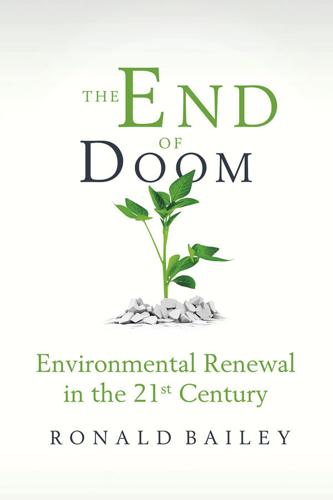
The End of Doom: Environmental Renewal in the Twenty-First Century
by
Ronald Bailey
Published 20 Jul 2015
At its heart is this belief: Nature is beneficent, stable, and even a source of moral good; humanity is arrogant, heedless, and often the source of moral evil. Rachel Carson, more than any other person, is responsible for the politicization of science that afflicts our public policy debates today. Carson worked for years at the US Fish and Wildlife Service, eventually becoming the chief editor of that agency’s publications. She achieved financial independence in the 1950s with the publication of her popular celebrations of marine ecosystems, The Sea Around Us and The Edge of the Sea. Rereading Silent Spring reminds one that the book’s effectiveness was due mainly to Carson’s passionate, poetic language describing the alleged horrors that modern synthetic chemicals visit upon defenseless nature and hapless humanity.
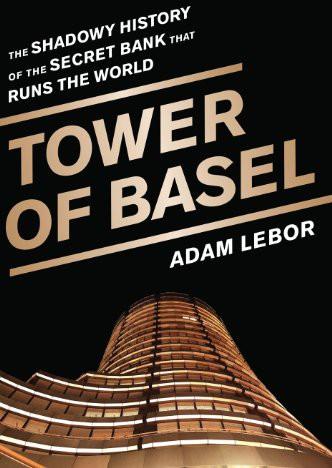
Tower of Basel: The Shadowy History of the Secret Bank That Runs the World
by
Adam Lebor
Published 28 May 2013
It is prohibited from taking advice from Eurozone governments.13 The European Parliament has no meaningful authority over the ECB. “The ECB enjoys an extraordinary amount of independence,” wrote Professor Anne Sibert, an expert on bank governance, in a 2009 paper. “It has an unusual amount of target independence; its degree of operational independence is probably unprecedented; it is almost completely financially independent; it is nearly functionally independent,” meaning that the ECB has control over most instruments of monetary policy and the freedom to use them as it sees fit.14 The ECB does issue a press release after the monetary policy meetings of the Governing Council, detailing any changes in bank rates and the ECB’s president holds a press conference.
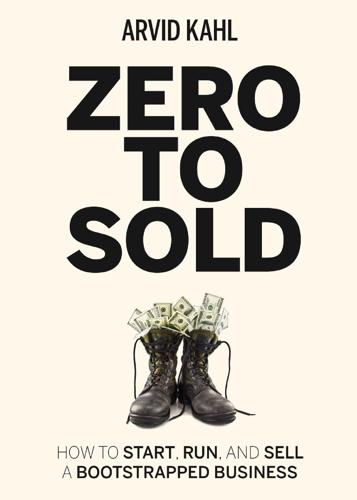
Zero to Sold: How to Start, Run, and Sell a Bootstrapped Business
by
Arvid Kahl
Published 24 Jun 2020
Yet, most people never turn that dream into reality. Life gets in the way, they say, and they aren’t cut out to be a business owner anyway. I believe differently. I think that everyone can be an entrepreneur and create a sustainable business that will allow them to live a life of freedom and financial independence. It will require some sacrifice, as building a business will take a lot of work and time. But it will lead to a life of control, a life of choice, and a life of opportunity. Zero to Sold will show you what the life of a bootstrapped founder will look like. It will teach you how to fill all the roles required to run a business and what you need to get done in each stage of your bootstrapped company’s evolution.
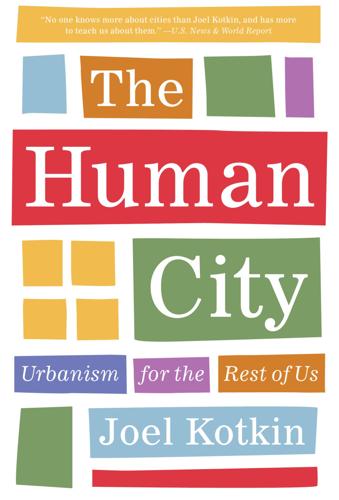
The Human City: Urbanism for the Rest of Us
by
Joel Kotkin
Published 11 Apr 2016
“The deinstitutionalization of marriage,” The National Council on Family Relations, https://www.ncfr.org/news/zippy-weekly-videos/deinstitutionalization-marriage. CHESTERTON, G. K. (2013). Orthodoxy, London: Catholic Way Publishing. CHEVREAU, Jonathan. (2015, March 24). “Urbs or Burbs? TD Survey finds generational divide on housing preferences,” Financial Independence Hub, http://findependencehub.com/urbs-or-burbs-td-survey-finds-generational-divide-on-housing-preferences/. CHIA, Arthur. (2013, August 17). “Singapore seeks its home,” New Geography, http://www.newgeography.com/content/003881-singapore-seeks-its-home. CHILD POLICY INTERNATIONAL. (2009, April).
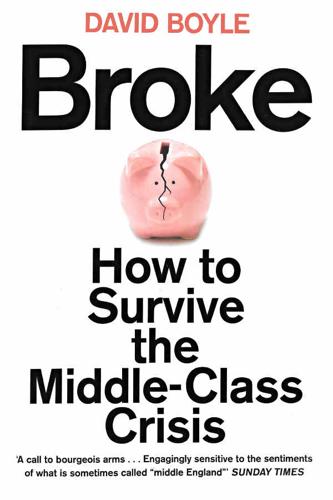
Broke: How to Survive the Middle Class Crisis
by
David Boyle
Published 15 Jan 2014
Not so now: the middle classes believe passionately in their own independence and admire it in other people. In fact, the desire for independence is now central to the middle classes; not necessarily independence from employers, but from landlords and tyrannical bosses, and the long, desperate uphill struggle towards financial independence. It leads them to invest terrifyingly in property just as it leads others to disinvest and downshift. They also admire independence of mind — in moderation, of course … Dispatches from the Frontline Brown & Green café, Crystal Palace station, Friday 10.30 a.m. Gipsy Kings waft out of the digital player behind the counter, over the luxurious sound of sizzling bacon.
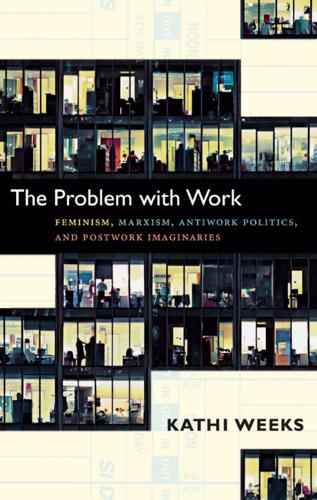
The Problem With Work: Feminism, Marxism, Antiwork Politics, and Postwork Imaginaries
by
Kathi Weeks
Published 8 Sep 2011
But just as the work ethic has managed to survive the transformations of work, the ghost of dead family values continues to haunt us as well (Stacey 1996, 49). As one White House report from the 1980s put it, the family, as the “seedbed of economic skills, money, habits, attitudes towards work, and the art of financial independence,” plays a key role in the transmission of work skills and ethics; “neither the modern family nor the free enterprise system would long survive without the other” (quoted in Abramovitz 1988, 350–51). The family ethic endures in this post-Fordist period, serving various family-values campaigns as a tool of political-economic discipline arguably for many of the same reasons it was defended earlier: for the role it plays in reproducing a stable and able workforce with little in the way of public funding—or, to put it another way, because otherwise we might “destroy the golden egg that produced cheap labor” (Kessler-Harris 1990, 39).16 To return to the major line of argument, the fact that some are excluded from the dignity and worth conferred by the work ethic can serve to render its prescriptions more attractive to others.

Ask Me About My Uterus: A Quest to Make Doctors Believe in Women's Pain
by
Abby Norman
Published 6 Mar 2018
I was trying to cleanse myself of something else: the pervasive thoughts that maybe I was just making this all up. Maybe all of this was in my head. Max, and his parents, knew so much about my childhood. They knew how hard it had been, and I know they felt for me, wished that it could have been different. Still, they marveled at what I had achieved. Financial independence, for one. I owned a car, though it was a beater, and made sure all our bills were paid on time. More importantly, that my bills were paid. I had close to $10,000 in medical debt racked up by then, not to mention student loans that were coming out of deferment. I’d hoped to invest what little I could save so that I could begin to put away money for my brother, as I was to assume legal guardianship of him when I turned thirty (the magic age at which I, my parents, and the legal system had assumed I’d have my shit together enough to do so).
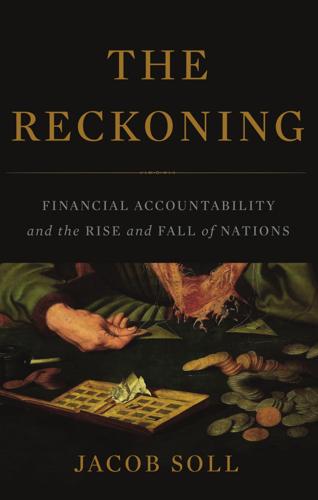
The Reckoning: Financial Accountability and the Rise and Fall of Nations
by
Jacob Soll
Published 28 Apr 2014
The auditing firms wanted a certificate attached to each audit that stipulated: “We have made an examination of your accounts for the purpose of expressing an opinion in connection with such statements, which have been prepared by you.”8 Leading partners in U.S. auditing firms worried that the government would take too large a role in regulating financial markets and stifle financial independence and innovation. There was a concern on the part of the auditing companies—which had since the mid-nineteenth century provided the U.S. government with its audits and standards—that compulsory audits would replace the role of the public accountant with a government auditor potentially hostile to financial firms.
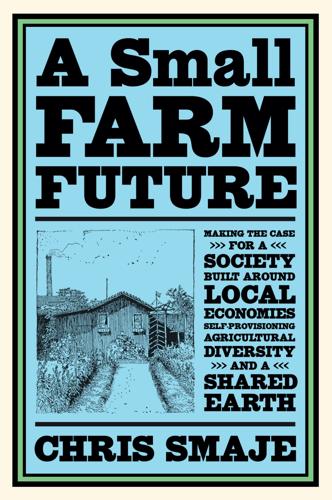
A Small Farm Future: Making the Case for a Society Built Around Local Economies, Self-Provisioning, Agricultural Diversity and a Shared Earth
by
Chris Smaje
Published 14 Aug 2020
They pose their own problems that we’ll examine shortly, but they can also prevent family coercion through creating opportunities for individuals – women and youths in particular – to quit an unsatisfactory farm household and form a new one through means such as divorce, off-farm education, land purchase and financial independence. The possibility of being able to do this depends on the existence of a kind of wider political playing field or public sphere, a space of rational debate available to all where decisions arise out of argument, not social standing. The way this has played out historically is in efforts to extend who can claim both protection from the state against non-state actors like violent partners, and who can claim protection against state discrimination towards certain groups – women, homosexuals, ethnic minorities – with the implication that those who have rights must somehow be visible to the state.
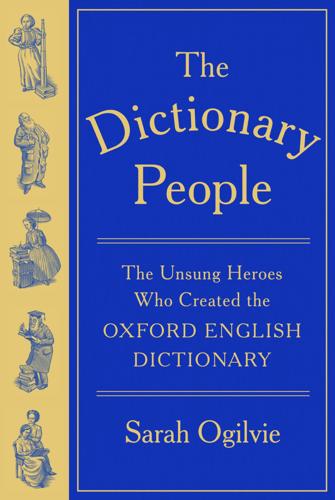
The Dictionary People: The Unsung Heroes Who Created the Oxford English Dictionary
by
Sarah Ogilvie
Published 17 Oct 2023
As she wrote to her sister Jenny (all four children in the Marx family, including Eleanor, were nicknamed ‘Jenny’ but only the eldest had it as her given name), ‘You don’t know how many people – most far better qualified to do the work than I am – try to get what I’ve been doing – and if I once give it up I may whistle for something else.’ Eleanor Marx needed to earn a living. The recipient of an inadequate education as a girl, she had to find a way to become financially independent, especially if she didn’t marry Lissagaray. Her first wish was to be an actress. That very year, she had started to take acting lessons from a Mrs Vezin who had moved near to where she lived on Maitland Park Road. She confided her ambition to Jenny in early January 1882: ‘Much and hard as I have tried I could not crush out my desire to try something.
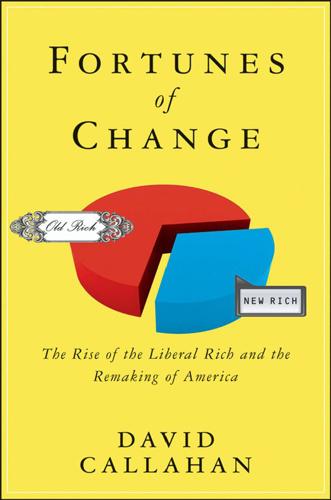
Fortunes of Change: The Rise of the Liberal Rich and the Remaking of America
by
David Callahan
Published 9 Aug 2010
Too often, donors keep their grantees on a short leash, doling out small grants for specific projects and leaving recipients constantly begging for more—not to mention wasting valuable time writing grant proposals. A better approach is to write larger checks for general support and take a more hands-off approach. If an organization has impact, keep funding it. If not, pull the plug. And if you really like an organization, you should consider helping it achieve financial independence by endowing it. both.indd 288 5/11/10 6:28:00 AM conclusion 289 A more radical step is for donors to cede control early on to those they are hoping to help, as Karen Pittelman did with the Chahara Foundation. Pittelman said it is striking how often rich donors “don’t question the idea that they should be in charge.”
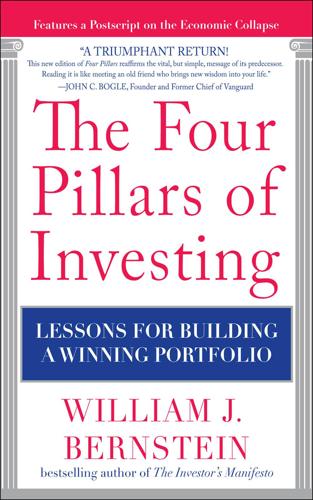
The Four Pillars of Investing: Lessons for Building a Winning Portfolio
by
William J. Bernstein
Published 26 Apr 2002
For the first time in history, a familiarity with the behavior of the financial markets has become a prerequisite for competent citizenship, apart from its obvious pecuniary value. Using the Four Pillars In the book’s last section, we’ll show how mastery of the Four Pillars can result in a coherent strategy that will enable you to accomplish investing’s primary aims: achieving and maintaining financial independence and sleeping well at night. The essential mechanics of operating an efficient investment portfolio will be covered: • Calculating how much you’ll need to save and when you can retire. • Allocating your assets among various classes of stocks and bonds. • Choosing which mutual funds and securities to employ
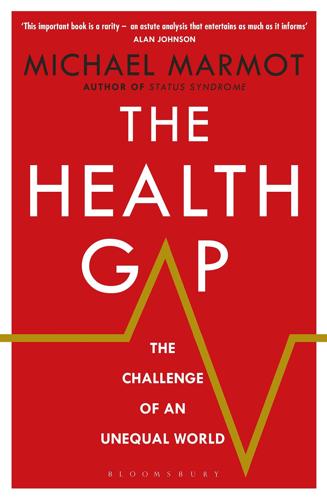
The Health Gap: The Challenge of an Unequal World
by
Michael Marmot
Published 9 Sep 2015
Available from: http://www.rooseveltcampusnetwork.org/blog/us-agricultural-subsidies-and-farmer-suicide-india. 26Ibid. 27United Nations Development Programme. Human Development Report 2005. International Cooperation at a Crossroads: Aid, Trade and Security in an Unequal World. UNDP, 2005. 28Hyder S. Women’s financial independence amongst female garments workers in Bangladesh: Summary of research. Berkeley Law, 2012. 29Ayres A. Bangladesh: Behemoth garment industry weathers the storm: Council on Foreign Relations, 2014 [updated 20/06/2014, 23/12/2014]. Available from: http://blogs.cfr.org/asia/2014/06/20/bangladesh-behemoth-garment-industry-weathers-the-storm/. 30Marmot M, Allen J, Bell R, Bloomer E, Goldblatt P.
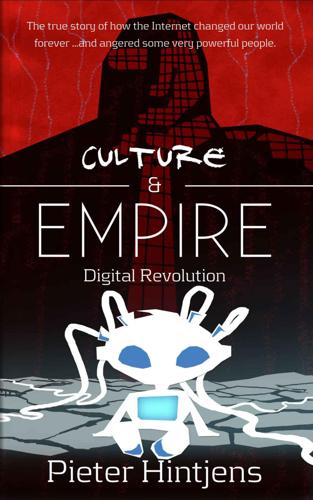
Culture & Empire: Digital Revolution
by
Pieter Hintjens
Published 11 Mar 2013
It is a key insight, that terror attacks are relatively cheap, and require no massive, expensive conspiracy. Clearly some events take more planning than others. However, usually all it takes is to send a shipment of weapons and explosives to a danger zone, train a few dozen off-the-radar paramilitaries, and then keep funding going for long enough for those cells to become financially independent from the drug business. One last point here. People will say, "a government would never murder its own citizens." Though it is a hopeful point of view, it is naive and flatly wrong. People in power consider themselves above natural laws. Mass death is perfectly acceptable when it comes to alcohol, tobacco, pollution, and poor health.
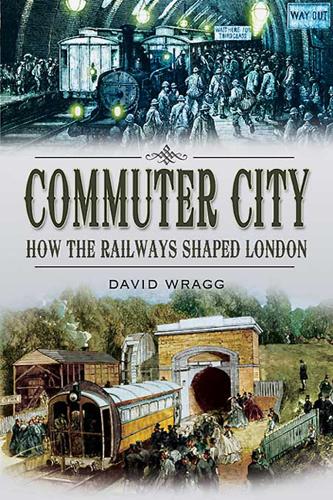
Commuter City: How the Railways Shaped London
by
David Wragg
Published 14 Apr 2010
The tram operators absorbed were the London County Council, with 1,713 tramcars and 167.17 route miles, including tracks owned by the Borough of Leyton with nine route miles and the 0.25 route miles owned by the City of London; Middlesex County Council, with 42.63 route miles, all leased to the Metropolitan Electric Tramways; Metropolitan Electric Tramways, with 316 tramcars and 53.51 route miles, of which 9.38 were owned by the company and 46.23 leased from Middlesex County Council, and 21.5 miles from Hertfordshire County Council; Hertfordshire County Council, with 21.5 miles, leased to the Metropolitan Electric Tramways; Barking Corporation, with just 1.8 route miles operated by Ilford Corporation, London County Council and East Ham Corporation since 1929; Dartford Urban District Council, a joint undertaking since 1921, with thirty-three tramcars and 10.3 route miles; Croydon Corporation, with fifty-five tramcars and 9.3 route miles; East Ham Corporation, with fifty-six tramcars and 8.34 route miles; Erith Urban District Council, with four route miles; Ilford Corporation, with forty tramcars and 7.13 route miles; Walthamstow Corporation, with sixty-two tramcars and 8.93 miles; West Ham Corporation with 134 tramcars and 16.27 route miles; London United Tramways, with 150 tramcars and 29.05 route miles, as well as sixty-one trolleybuses; and the South Metropolitan Electric Tramways, with fifty-two tramcars and 13.08 route miles. The London General Omnibus Company, LGOC, provided the bulk of the bus services, including London General Country Services, the Overground, which has originated with the Underground Group, and the bus operations of Tilling and British Automobile Traction which although financially independent were operationally integrated with the LGOC. In 1931, the LGOC had created the first Green Line coach network out of its coach services into London, rearranging these to run across the centre. Central buses, trolleybuses, underground trains and trams were painted in ‘Underground’ and ‘London General’ red and white, country buses in green and white, while all coach services were branded ‘Green Line’ and painted green and pale green.
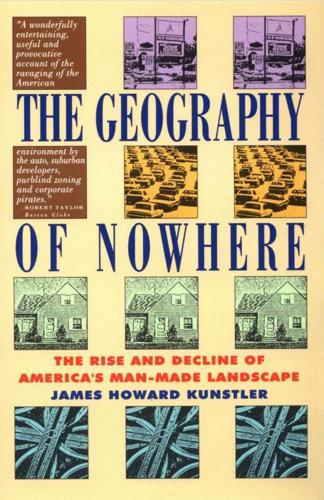
The Geography of Nowhere: The Rise and Decline of America's Man-Made Landscape
by
James Howard Kunstler
Published 31 May 1993
An "authority" was a hoary old device out of British law that Moses had discovered as a public administration student at Oxford. To raise funds an authority could issue bonds, just like a government or a widget company. Once a project like the Triborough Bridge was com pleted, the tolls it produced went solely into the authority's coffers, like corporate profits, making Moses's power base financially independent of the city and the state. And once Moses flim-flamed the state legislature into voting for the Bridge and Tunnel Authority, he was untouchable. He had personally crafted a quasigovernmental body that operated like a private corporation and didn't have to answer to any government. He wrote clauses in its charter exempting his decisions from higher review.
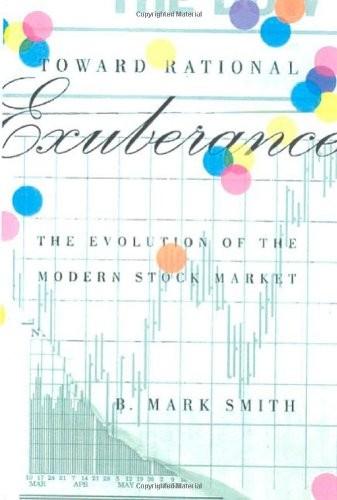
Toward Rational Exuberance: The Evolution of the Modern Stock Market
by
B. Mark Smith
Published 1 Jan 2001
The firm was a staid, conservative bond dealer; Whitney seemed to prefer a gentlemanly pace of business, transacting primarily with wealthy friends and acquaintances, not the general public. Not possessing any inherited wealth independent of his family, Whitney, for more than a decade, had sought out speculative investments in an effort to provide the wealth necessary for financial independence. Unable to provide the funds himself, Whitney financed these purchases with loans from his brother George, who was a rising star at J. P. Morgan & Company, and by borrowing from friends. By the end of 1929 he owed his brother over $1 million, and friends at least $250,000. The rapidly developing depression of the 1930s was not kind to Whitney’s investments, or to his firm.
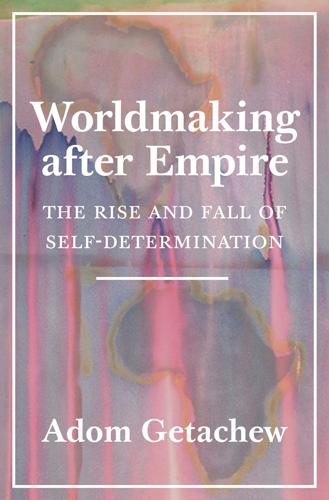
Worldmaking After Empire: The Rise and Fall of Self-Determination
by
Adom Getachew
Published 5 Feb 2019
Between Federation and Federal State: The West Indian Debates When Williams entered national and regional politics in 1955, West Indian politicians and colonial officials were already in the process of working out the details of the West Indian Federation. The constitution was completed [ 126 ] Ch a pter Four in 1956, and the federation was inaugurated two years later, with limited powers lodged in the federal government. Unlike the financial independence Wheare’s theory of federation recommended, the West Indian federal government had no independent sources of revenue. Instead, it was financed through a mandatory levy from each island, the total of which could not exceed 9.1 million US dollars. Moreover, the colonial office and national representatives did not reach agreements on a customs union, free trade, and freedom of movement.
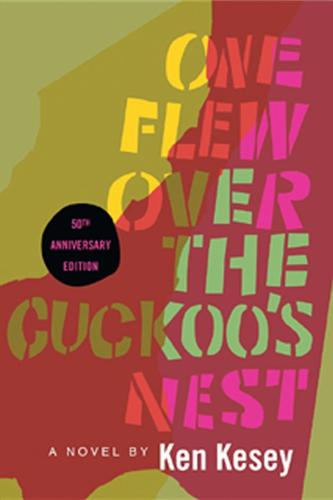
One Flew Over the Cuckoo's Nest: 50th Anniversary Edition
by
Ken Kesey
Published 19 Jan 2012
His funds had risen since the day he came in. The Acutes took to joking with McMurphy about how it looked like he was taking them down the line, and he was never one to deny it. Not the least bit. In fact, he bragged that if he stayed on at this hospital a year or so he just might be discharged out of it into financial independence, retire to Florida for the rest of his life. They all laughed about that when he was around, but when he was off the ward at ET or OT or PT, or when he was in the Nurses’ Station getting bawled out about something, matching her fixed plastic smile with his big ornery grin, they weren’t exactly laughing.
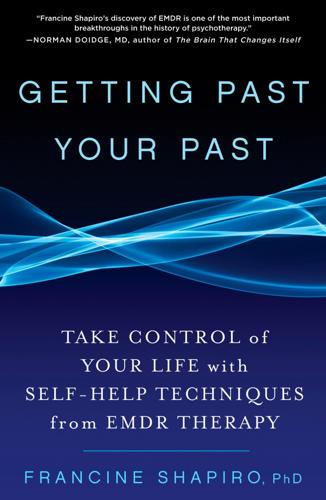
Getting Past Your Past: Take Control of Your Life With Self-Help Techniques From EMDR Therapy
by
Francine Shapiro
Published 26 Mar 2013
These are warning signs that further abuse may be about to happen. Mary had recently set a limit with him—he needed to attend individual therapy and change his actions, or he would have to move out of their apartment. Through her own EMDR therapy, she had dealt with her own childhood issues. She was now capable of leaving the relationship, was financially independent and was planning to do just that if he didn’t change. Jack had tried therapy before, but it hadn’t worked for him. This isn’t surprising, since the feelings from childhood that prevent healthy adult relationships can also exist in the therapist’s office. Happily, Jack arrived at the office of a very skilled clinician who was adept at treating these issues.
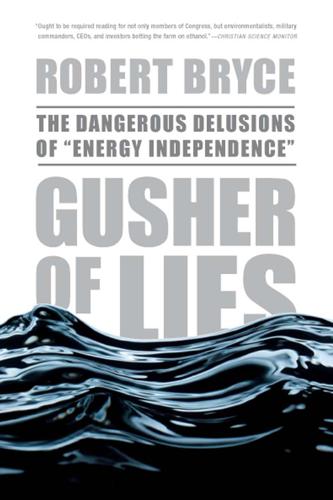
Gusher of Lies: The Dangerous Delusions of Energy Independence
by
Robert Bryce
Published 16 Mar 2011
A thousand thanks to my children, Mary, Michael, and Jacob, for their patience and love. All of them are insanely great. And finally, there are no words capable of expressing my affection and appreciation to my wife, Lorin—my first reader, my first editor, and my one, true love. INTRODUCTION The Persistent Delusion Americans love independence. Whether it’s financial independence, political independence, the Declaration of Independence, or grilling hotdogs on Independence Day, America’s self-image is inextricably bound to the concepts of freedom and autonomy. The promises laid out by the Declaration— life, liberty, and the pursuit of happiness—are the shared faith and birthright of all Americans.
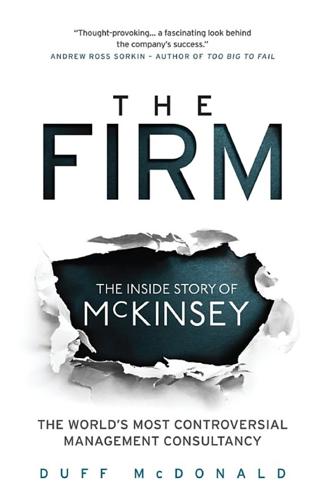
The Firm
by
Duff McDonald
Published 1 Jun 2014
Partners then take home the lion’s share of the money earned through the work of junior consultants—a departure from earlier, experience-based consulting firms that had no such junior talent to exploit. Still, if they held on to income, they were nevertheless sacrificing ownership, and this is no small testament to Marvin Bower’s persuasive powers. Or to his obsessiveness. While Bower always maintained that the first obligation of the consultant is to be financially independent—otherwise you are unable to act in a professional manner—he nevertheless kept his eye on every penny. Even as he was getting quite old—his wife, Helen, died in 1985, but he lived another eighteen years, to the age of ninety-nine—Bower still stuck around the firm, reminding people of all the little things that made McKinsey great.
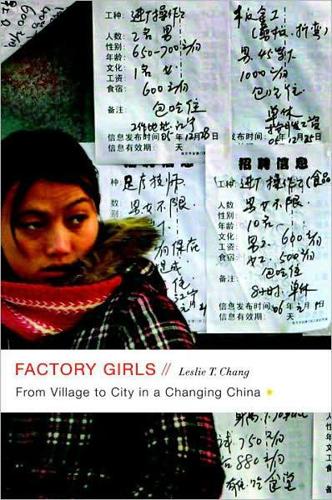
Factory Girls: From Village to City in a Changing China
by
Leslie T. Chang
Published 6 Oct 2008
Yet overnight the Chinese had moved into an unfamiliar world of abundance, where junk food was like a virus against which they had not yet developed immunity. Anyone could see what would help them—quit smoking, exercise, eat less fat—but Wanmei’s prescription was more appealing, a miracle cure in scientific packaging. And it could make you rich. “In three years, I’ll achieve my goal of financial independence and freedom,” Chunming said. “By 2008, at the minimum, I’ll have an income of one hundred thousand to two hundred thousand yuan a month. By then I’ll have my own car, and freedom in how I spend my time. I’ll be able to go wherever I want, whenever I want.” Finally I ventured to ask her: “Why did you choose direct sales instead of English?”
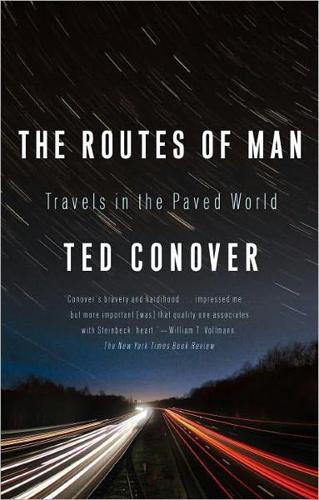
The Routes of Man: How Roads Are Changing the World and the Way We Live Today
by
Ted Conover
Published 15 Jan 2010
I bought lunch for seven of them at the headquarters of a group they belonged to, the Kenya Network of Women with HIV/AIDS (KENWA). They were better educated and better informed than many of their rural counterparts. The group’s literature explained that they were offered vocational training and “seed money so they can sell sundries to become financially independent.” Many of them had children, and KENWA tried to help with school fees, too. The group also offered medical care, including antiretroviral drugs, and helped feed some of the thousands of the city’s AIDS orphans. Among the more forthright of the seven women were Constance, Mary, and Jane. Constance was very pretty and wore an eye-catching black-and-white striped top, which was of a piece with her idea that “these men are attracted by sight—so you have to look good.”
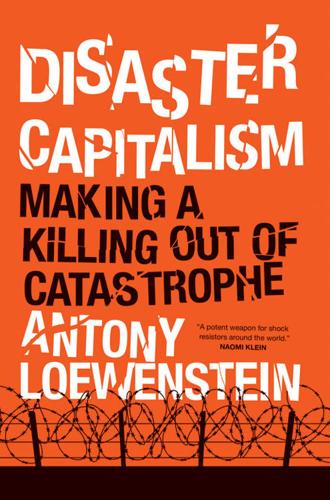
Disaster Capitalism: Making a Killing Out of Catastrophe
by
Antony Loewenstein
Published 1 Sep 2015
If ever there had been a need for NGOs to be regulated just like banks and mortgage brokers, this was the time.83 In the countries I visited for this book, the use of distantly run, globally connected NGOs as a substitute for government planning had eroded the possibility of delivering truly beneficial services and assistance to the people who needed them. By contrast, NGOs that were locally accountable, internationally connected, and financially independent had made a difference and contributed to the greater sovereignty of those nations.84 A unique model in Haiti was the growth of the renewable and clean energy sector, in which local NGOs partnered with government departments to reduce deforestation.85 At least 350,000 Haitians remained in refugee camps more than three years after the 2010 earthquake, though many had been moved elsewhere by 2014.
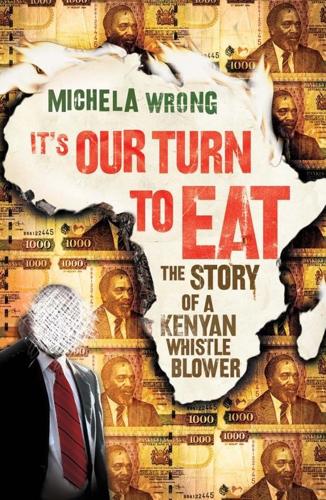
It's Our Turn to Eat
by
Michela Wrong
Published 9 Apr 2009
Beating up fellow Kenyans demonstrating for greater political openness was not what he had envisaged on joining. Another small rebellion was John's announcement that he was leaving the family home. He rented a bachelor pad in Nairobi's Riverside Drive, where first Gitau and then Mugo joined him, the three determined to demonstrate their financial independence. In this allmale set-up, John could establish his own routine. His frenetic networking would always need to be balanced by long hours of solitude in which to muse, to read, to be himself. And it was easier, living with his brothers, to structure his day in the way that suited his decidedly unconventional body clock – working till the early hours when a job needed doing, then sleeping into the afternoon, so soundly it seemed impossible to wake him.
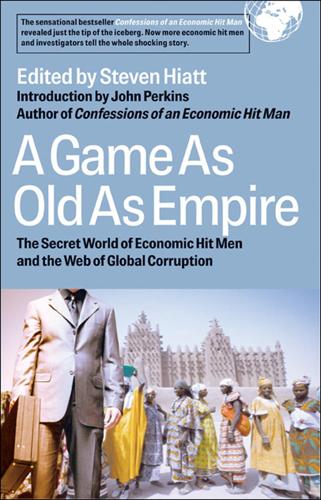
A Game as Old as Empire: The Secret World of Economic Hit Men and the Web of Global Corruption
by
Steven Hiatt; John Perkins
Published 1 Jan 2006
The IMF/World Bank proposals for a much larger gold sale were scuttled by lobbyists from the World Gold Council (twenty-three global gold mining companies, including Newmont Mining, AngloGold, and Barrick Gold Corporation).43 So it turned out that the BWIs had to fund debt relief on a “pay as you go” basis through bond sales and periodic pledges from their First World members. The larger the amount of debt relief, the smaller the World Bank’s loan portfolio, and the more it feared that its own bond rating and financial independence might be jeopardized. The Bank thus had a built-in bias in favor of less debt relief. In the list of qualifying countries, there was no shortage of anomalies. For example, as of the mid-1990s, Angola, Kenya, Nigeria, and Yemen all had higher debt burdens and lower per capita incomes than many of the countries on the final HIPC list, but they were excluded.44 In contrast, reportedly at the behest of France, HIPC analysts fixed the rules so that Ivory Coast would be included, despite the fact that it had a higher per capita income and lower debt burden than many other countries on the list.45 Another odd addition was Guyana, a bauxite-rich former British colony in northeastern South America, that in 1996 had a population of just 750,000 and a real per capita income of $3,600—clearly a middle-income country compared with others in HIPC.
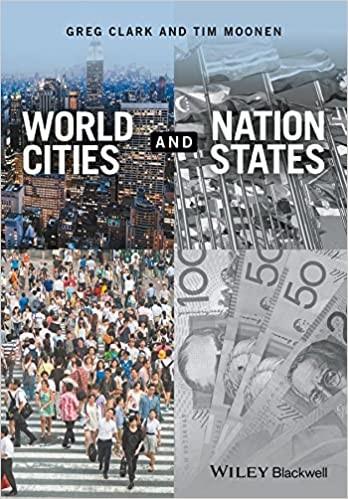
World Cities and Nation States
by
Greg Clark
and
Tim Moonen
Published 19 Dec 2016
Tokyo benefits from two local corporate taxes which provide a third of its revenue. Property taxes account for a further 23% and local consumption taxes another 13%. Over recent decades, Tokyo has maintained a far healthier fiscal position than its central government, which, in part, has enabled it to sustain its relative financial independence. The TMG managed to reduce its debt burden from Y14 trillion to Y10 trillion between 2001 and 2013. As a result, its reliance on bond issues is relatively low (6.5% compared to a central government figure of nearly 40%) (ibid). Tokyo’s sound fiscal position allows it to make substantial capital expenditures each year to urban redevelopment (Y290 million in 2015), waterfront area Tokyo 87 development (Y185 million), urban rapid transit railway projects (Y757 million) and water systems (Y1.1 billion).
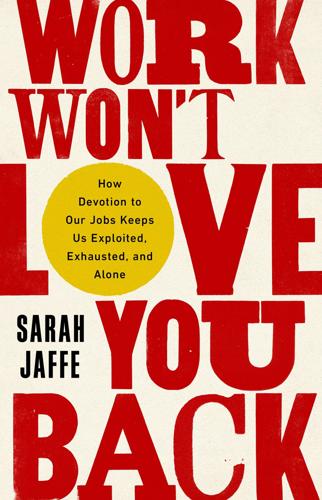
Work Won't Love You Back: How Devotion to Our Jobs Keeps Us Exploited, Exhausted, and Alone
by
Sarah Jaffe
Published 26 Jan 2021
Henry Ford famously sent investigators into the homes of his workers to make sure they were upstanding, straight, and monogamous, and therefore deserving of higher wages. 14 As the workplace has changed, our ideas about love have also changed. The feminist revolution known as the second wave notably demanded access to career-track work for women, seeing it not only as a path to financial independence, but to something more interesting to do with one’s day than clean the house and feed the children. And love, as sociologist Andrew Cherlin has documented, has undergone a transformation from married monogamy to something more open, flexible, and often, of course, not heterosexual at all.
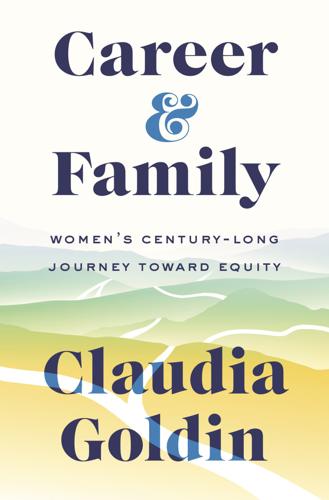
Career and Family: Women’s Century-Long Journey Toward Equity
by
Claudia Goldin
Published 11 Oct 2021
How that came about is a case study of sexism, as reflected in the workplace and on the pay stub. Lilly married when she was only seventeen and had two children soon after. Ten years later, when her family was low on funds, she took an H&R Block course and became a tax preparer. She loved her newfound financial independence and the personal rewards it brought, and she was so capable that, over time, she advanced to managing fourteen offices. But the children were heading off to college, and the family needed even more money. In 1979, when she was forty-one, Lilly learned that Goodyear Tire, the local high-wage firm, was seeking female managers for the first time in its history.

The Lie of the Land
by
Amanda Craig
Published 14 Jun 2017
Work, not love, is the one salvation: had she ever been tempted to abandon her career, she is now rewarded for never doing so. Those days of crawling into an office half-dead from broken nights, of struggling to keep going on nothing but coffee and adrenalin, of endless self-doubt that she was doing two things badly instead of one thing well, are justified. She is financially independent. Martin’s practice is a marked contrast to the kind of outfit she once worked for. Not everyone in the town likes him, but as far as she can tell, most respect what he is trying to do, even if there are the inevitable mutterings about how the development will change the character of Trelorn.

Tobacco: A Cultural History of How an Exotic Plant Seduced Civilization
by
Iain Gately
Published 27 Oct 2001
Although poor women had always smoked, respectable women who imitated them were threatened with a loss of status: ‘they are simply assimilating themselves to this old Sally and that ancient Betty down in the dales or mountain hamlets, or to the stalwart cohort of pit-brow women for whom sex has no aesthetic distinctions’. However, during the course of the war many British women had taken over work normally carried out by men – they had effectively run the economy while their husbands, sons and lovers fought. This accustomed them to financial independence. They had money to spend, and some of it went on cigarettes. Prior to the war, the largest field of employment open to single women was domestic service, where they were often expected to observe the convent rituals of poverty, chastity and obedience. However, at the end of 1918, when the munitions industry wound down, only 125,000 of the pre-war total of 400,000 returned to serving tea and making beds.
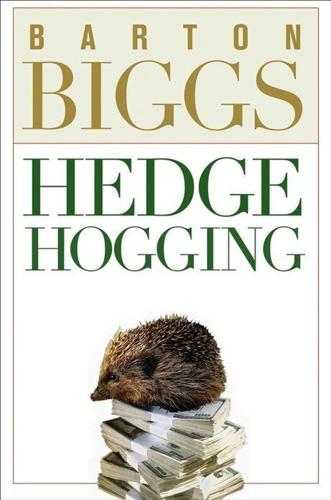
Hedgehogging
by
Barton Biggs
Published 3 Jan 2005
As a measure of the damage, the broadest measure of equities—the Value Line Composite, which had peaked in 1968—six years later was down 75%. Adjusted for inflation, even the major stock indexes fell 70%. In the 1970s, the Yale Endowment lost 45% of its purchasing power, mainte- ccc_biggs_ch09_119-132.qxd 11/29/05 7:02 AM Page 129 The Violence of Secular Market Cycles 129 nance was deferred, and the university’s financial independence was in doubt. An extended bear market would transform the effectiveness of American charities. Just for the record, if the timetable of the two previous secular bear markets applied this time, we wouldn’t get back to a new high in the Dow and the S&P 500 until around 2017. As for the Nifty Fifty, again on average it took that group of stocks 101/2 years to get back to the previous price highs in nominal terms and 161/2 years, adjusted for inflation; in other words don’t hold your breath waiting for the NDX Index to touch 5000 again.
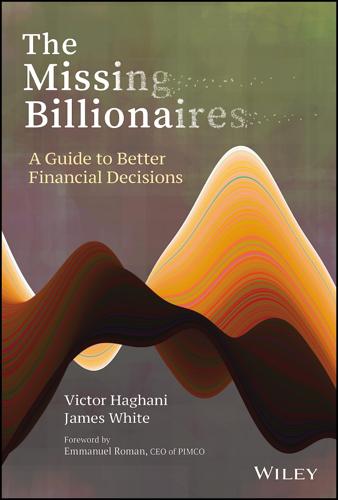
The Missing Billionaires: A Guide to Better Financial Decisions
by
Victor Haghani
and
James White
Published 27 Aug 2023
For young investors, they should devote their attention to making the risk‐adjusted value of their human capital as high as possible, subject to considerations of career satisfaction of course. They should also pay attention to their investment decisions, since long‐term compounding can have a material impact on their success in achieving financial independence. Notes a. For example, there are 130 million households in the United States with a median income of about $70,000 per annum. Assuming $15,000 on average is income in excess of basic expenses, the value of 25 years of such excess would be $50 trillion, roughly the same as the US stock market capitalization.
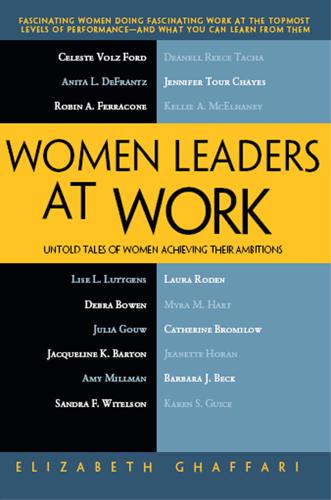
Women Leaders at Work: Untold Tales of Women Achieving Their Ambitions
by
Elizabeth Ghaffari
Published 5 Dec 2011
Julia Gouw: I was born in 1959 in Surabaya, which is the second-largest city in Indonesia—the coastal port from which the Venture expedition set sail in the movie King Kong.1 I have an older sister, then there’s me, my brother, and my younger sister. My dad had a big influence on me because he always encouraged me to have a career and be financially independent. He never wanted me to be dependent on a husband to support me. He was a pessimist who told me, “I cannot take care of you. I cannot leave you an inheritance, but the one thing I can do is to pay for your education.” I requested to be sent to college in the United States. He agreed saying, “If you have a college degree, then you can take care of yourself.”

Fire and Steam: A New History of the Railways in Britain
by
Christian Wolmar
Published 1 Mar 2009
While such light railways were commonplace in France, and particularly in Belgium, which boasted 2,400 miles of minor lines, a huge number for such a small country, earlier attempts to build them in Britain had foundered for lack of funding and the costs of obtaining parliamentary approval. On the Continent, there was a tradition of more powerful and financially independent local authorities which were willing to finance such important transport links. Before the Act of 1896, a handful of low-cost lines had been built in Britain during the 1870s and 1880s, the most notable being the narrow-gauge Ffestiniog Railway in north Wales (see Chapter 7). It was used for slate-carrying and demonstrated the huge savings that could be made by building lines on a smaller scale and to lower standards.
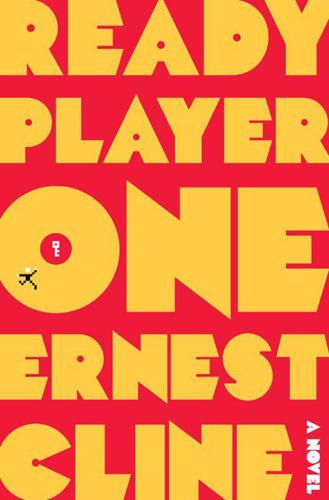
Ready Player One
by
Ernest Cline
Published 15 Feb 2011
Then the system asked me if I wanted more information on the Indentured Employee Entertainment Reward Program. I didn’t. The only TV show I had access to was a company-produced sitcom called Tommy Queue. The synopsis said it was a “wacky situation comedy chronicling the misadventures of Tommy, a newly indentured OASIS tech rep struggling to achieve his goals of financial independence and on-the-job excellence!” I selected the first episode of Tommy Queue, then unsnapped the visor and put it on. As I expected, the show was really just a training film with a laugh track. I had absolutely no interest in it. I just wanted to go to sleep. But I knew I was being watched, and that every move I made was being scrutinized and logged.
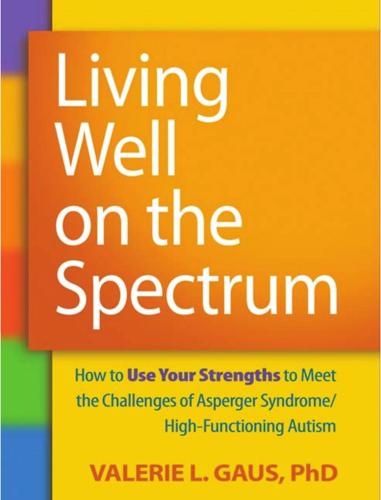
Living Well on the Spectrum
by
Valerie L. Gaus
Published 4 Feb 2011
. • If you are a “night owl” or an “early bird” by nature and your schedule permits it, try to make your sleep and wake-up times fit with your natural tendency. Consistency promotes healthy sleep. 8 At Work W ork is one of the greatest sources of pride and fulfillment for adults. Making an important contribution to others and maintaining financial independence are crucial to health, happiness, and self- confidence. Yet the majority of adults on the spectrum are either unemployed or underemployed (working at a job that does not tap their highest level of education or talent). This is one of the most devastating issues for my patients and their families.
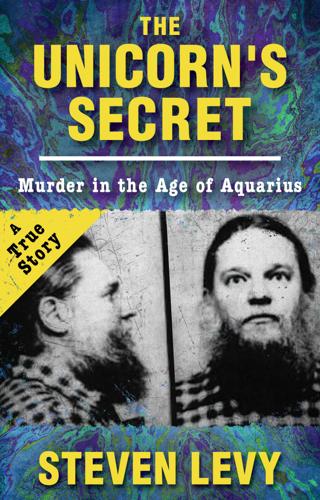
The Unicorn's Secret
by
Steven Levy
Published 6 Oct 2016
She took tai chi classes and felt herself gaining strength by that oriental pursuit: a combination of powerful dancelike movement and the relaxation of yoga. She tried another new diet in an attempt to control her diabetes (she continued taking medication as well), and the possible effect it might have on her emotions. Holly also gained financial independence—in November she received a check for $19,400 as her share of a tender offer for family stock in the Northrup King Seed Company. In addition, due to a change in tax laws, her uncle Preston informed Holly she would receive another part of her inheritance early, in the form of an $18,000 gift.
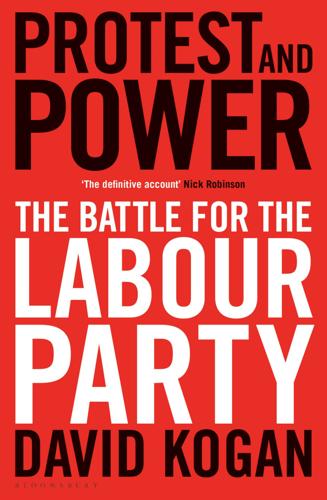
Protest and Power: The Battle for the Labour Party
by
David Kogan
Published 17 Apr 2019
For those ‘lower-skilled workers’, which on this criterion would include a vast range of people working in the NHS and other vital services, they would be allowed a temporary twelve-month stay in the UK and would not be allowed to bring in dependents or claim benefits. There was an emphasis on those staying learning English, having ‘British values’ and being financially independent. It pledged in one short clause to improve the current immigration systems that were generally regarded as failing. These values could not be much further way from free movement or the Labour party’s values. It seemed obvious that as shadow home secretary, Diane Abbott would oppose this legislation.
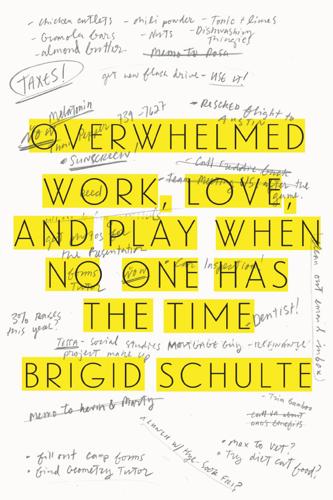
Overwhelmed: Work, Love, and Play When No One Has the Time
by
Brigid Schulte
Published 11 Mar 2014
He pushed sweeping policies to provide subsidized child care, early education, paid parental leave after the birth of a child for both mothers and fathers, paid sick leave, reduced and flexible work hours, good part-time jobs with benefits, and tax and labor policies that promoted women as financially independent breadwinners. He also ushered in programs that would begin to ensure that more women were elected to political office and appointed to cabinet ministries and corporate boards.59 (At the other end of the spectrum, in 1971, some women in Switzerland had just been granted the right to vote.) The Swedish government’s push for gender equity was driven in part by a labor shortage and the desire to avoid importing immigrant workers.60 Other countries, such as France and Germany, their populations decimated by world wars and flagging fertility rates, were similarly galvanized into pushing for “pro-natalist” policies.61 Other smaller and more homogeneous countries, like Denmark, came to support family policies as a means of cementing national identity, even if it meant higher taxes and income redistribution.62 None of these programs were perfect, or perfectly embraced.
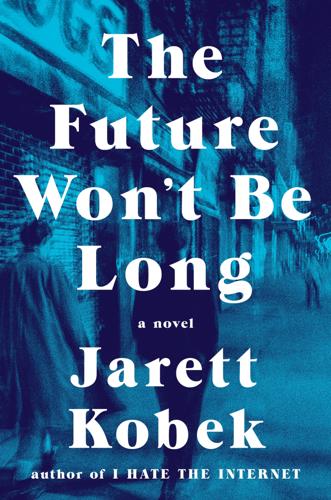
The Future Won't Be Long
by
Jarett Kobek
Published 15 Aug 2017
AUGUST 1988 Adeline Receives an Unwelcome Tutorial on the Nature of the Police State Unbeknownst to me, Baby’d gone and matriculated his silly self to New York University. He emerged from the West Coast in late August, plunging into freshman life. Orientation, course registration, purchase of textbooks. I inquired as to how he could possibly afford such an education. Baby explained that he’d been classified as a financial independent. His grades in high school were exceptional, his income pitiful. NYU had bestowed a merit scholarship upon him. “A gol’ darned free ride,” he said. “Good for you,” I said. “Never pay for nothing.” * Having dawdled with Jaime and bandied about with childish notions of love’s sweet blossoms, Baby’s return occurred a bit too late.
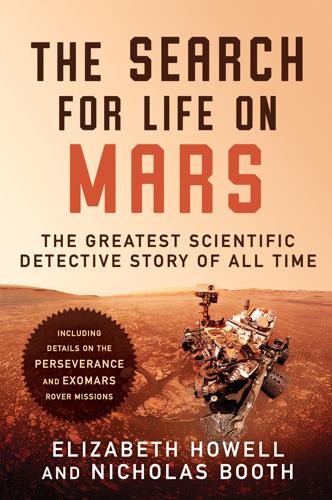
The Search for Life on Mars
by
Elizabeth Howell
Published 14 Apr 2020
This was a foretaste of the bickering, informed by residual academic snobbery, that would accompany the Viking biology investigations. So Levin went back to school. He earned a PhD in environmental engineering while steering Biospherics Inc. onto new paths. “We developed new technologies in space biology, water and air pollution as well as oceanography,” he says. This gave him a certain financial independence, which ensured that he was well placed to be chosen for the Viking mission to Mars. Behind the scenes, though, the Viking biology team was not happy. Levin says he found working with his cohorts difficult. “It was an uphill battle for me as an engineer from a small company working with Nobel laureates,” he says without obvious resentment.
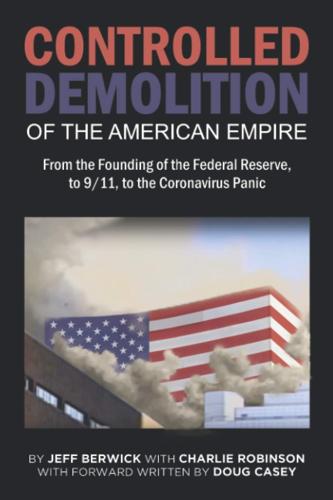
The Controlled Demolition of the American Empire
by
Jeff Berwick
and
Charlie Robinson
Published 14 Apr 2020
What these figures do not show is that the bottom half of the population pays a much greater percentage of their income towards things like licensing fees, usage taxes, sales tax, their mortgage, mortgage insurance, and property taxes (if they even own a home), or their monthly rent (if they do not). The Bureau of Labor Statistic shows that in 2017 “consumer units”, which is defined as families, financially independent individuals, and people living in a single household who share expenses, spent 70% more on federal, state, and local taxes ($16,749) than on food and clothing ($9,562). For anyone searching for a reason why consumer spending on retail is way down in America these days, the reason might just be because far too much of their money is going out the door in the form of taxes to a bloated and out of control government.
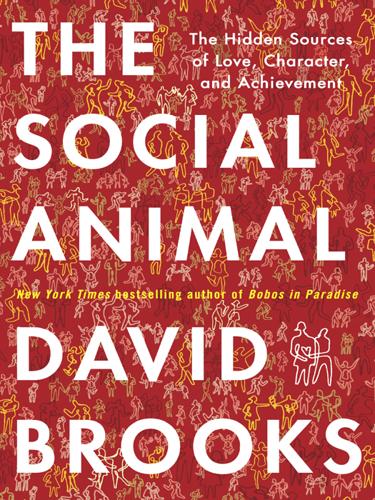
The Social Animal: The Hidden Sources of Love, Character, and Achievement
by
David Brooks
Published 8 Mar 2011
Now there are at least six—childhood, adolescence, odyssey, adulthood, active retirement, and old age. Odyssey is the decade of wandering that occurs between adolescence and adulthood. Adulthood can be defined by four accomplishments: moving away from home, getting married, starting a family, and becoming financially independent. In 1960, 70 percent of American thirty-year olds had accomplished these things. By 2000, fewer than 40 percent had done the same. In Western Europe, which has been leading this trend, the numbers are even lower. The existence of this new stage can be seen in a range of numbers, which have been gathered by scholars such as Jeffrey Jensen Arnett in his book Emerging Adulthood, Robert Wuthnow in his book After the Baby Boomers, Joseph and Claudia Allen in their book Escaping Endless Adolescence, and by William Galston of the Brookings Institution.
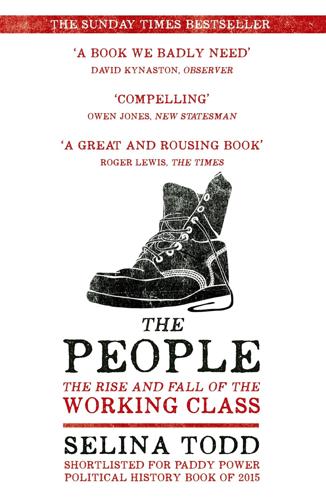
The People: The Rise and Fall of the Working Class, 1910-2010
by
Selina Todd
Published 9 Apr 2014
Wage-earners were no longer servants; they increasingly worked with large numbers of other people in shops, offices and factories, reinforcing their sense of collective interest and their bargaining power. They had fought for and achieved greater recognition for trade unions, whose leaders now played a role in regulating the working hours and wages of millions of workers. In the evenings young workers enjoyed their financial independence at cinemas and dance halls, where Hollywood glamour and raucous dance routines allowed them to explore their dreams of a better life than that of their mothers and fathers. Yet in the summer of 1939 what hadn’t changed was just as evident as what had. Unemployment had not gone away. In the factories, young men and women were working long hours for low pay; thousands of their fathers remained unemployed and their families still endured the hated means test.
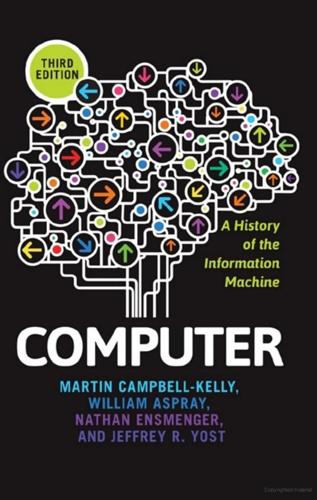
Computer: A History of the Information Machine
by
Martin Campbell-Kelly
and
Nathan Ensmenger
Published 29 Jul 2013
It was a sort of Google in paperback form, 35 years before Google came along: it was idealistic, and overflowing with neat tools and great notions.” While Brand and The Whole Earth Catalog offered inspiration, the most articulate spokesperson for the computer-liberation idea was Ted Nelson, the financially independent son of Hollywood actress Celeste Holm. Among Nelson’s radical visions of computing was an idea called hypertext, which he first described in the mid-1960s. Hypertext was a system by which an untrained person could navigate through a universe of information held on computers. Before such an idea could become a reality, however, it was necessary to “liberate” computing: to make it accessible to ordinary people at a trivial cost.
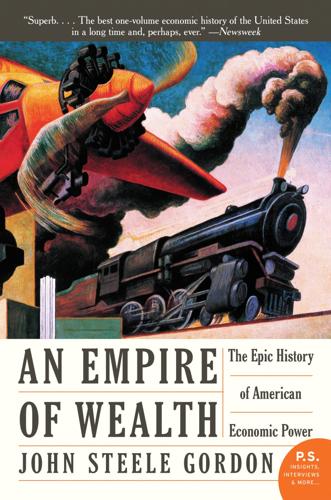
An Empire of Wealth: Rise of American Economy Power 1607-2000
by
John Steele Gordon
Published 12 Oct 2009
If the family farm did not have enough land for all the children, the frontier, where there was land aplenty, was seldom more than a day or two away by horseback. Moving on was soon an American characteristic, and America to this day is the most mobile society on earth. And it wasn’t just the native-born children who felt the siren song of financial independence being sung in America. There was a steady flow of immigrants, although the number varied from year to year, climbing steadily after 1750, as word of America’s prosperity and opportunity spread. To raise the cost of their passage, these people were willing to accept a limited term of slavery as indentured servants.
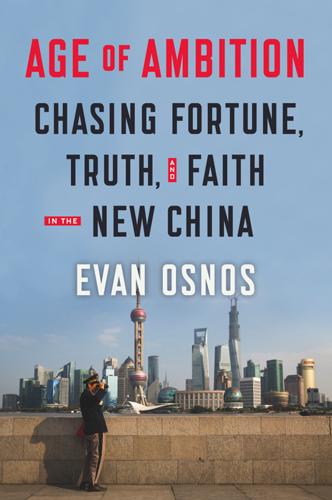
Age of Ambition: Chasing Fortune, Truth, and Faith in the New China
by
Evan Osnos
Published 12 May 2014
I have a plan for my career: five years, ten years.” After a moment, his confidence wavered. “Chinese people are so dirty,” he said. “At least forty percent of them.” The truth was that Michael didn’t have much time to ruminate. He felt the ticking of the clock. He was twenty-eight years old. “In China, when you’re thirty, you have to be financially independent,” he said. That was an imposing deadline. He thought about it for a second, and then he brightened. “Maybe next year you’ll go into a bookstore and see my books on the shelf,” he said. “Can you believe it?” Yes, I said. Somehow I could. It was a weekend, and for once we lingered at the lunch table.
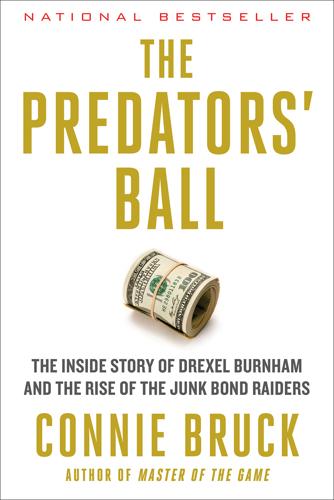
The Predators' Ball: The Inside Story of Drexel Burnham and the Rise of the JunkBond Raiders
by
Connie Bruck
Published 1 Jun 1989
It made Siegel think more seriously about what it would mean to work for a firm with that kind of muscle. He was tempted. He knew he could multiply his income if he went to Drexel. His father had gone bankrupt at forty-five, and Siegel believed that this had planted in him a powerful longing for utter financial independence—what he thought of as “fuck you” money. But he was still not sure that the Drexel lucre was worth the taint. Henry Kravis, of Kohlberg Kravis, one of his best friends, had advised him against doing it, for that reason. But he was thinking about it. In TWA, Siegel was able to do no better for Lorenzo than Black had done.
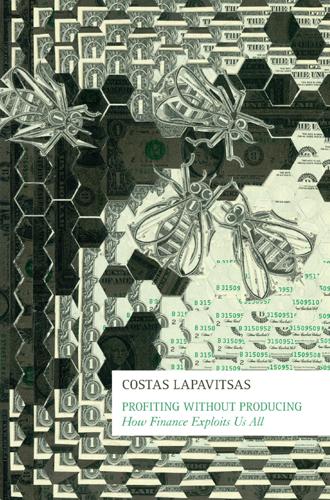
Profiting Without Producing: How Finance Exploits Us All
by
Costas Lapavitsas
Published 14 Aug 2013
Exchange rates among key countries have become flexible since the final collapse of the Bretton Woods Agreement in 1973, and cross-border capital flows have been progressively deregulated. These forms of state intervention – both of which have again been associated with the international role of money – have encouraged the spread of financialization in ways discussed in chapters 8, 9 and 10. Central banking as a lever of financialization: Independent central banks and inflation targeting The importance of central banks in advanced capitalism derives, first and foremost, from control over legal tender. The ascendancy of central banks in the years of financialization has been ultimately linked to the search for a new framework of monetary operations in the 1990s and 2000s.
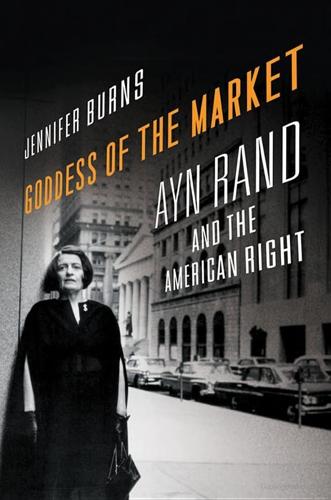
Goddess of the Market: Ayn Rand and the American Right
by
Jennifer Burns
Published 18 Oct 2009
In 1936, putting a long-held dream in motion, she began a torturous round of paperwork to bring her parents to the United States. She petitioned the U.S. government for an immigration visa, obtaining letters from Universal describing her screenwriting work. She and Frank wrote a notarized deposition testifying to her financial independence. She even prepaid her passage on the United States Lines. It was all to no avail. In late 1936 the Rosenbaums’ visa application was denied, and an appeal proved fruitless. Rand got the final word in a brief telegram sent from Leningrad in May 1937: “Cannot get permission.”22 It was one of their last communications.
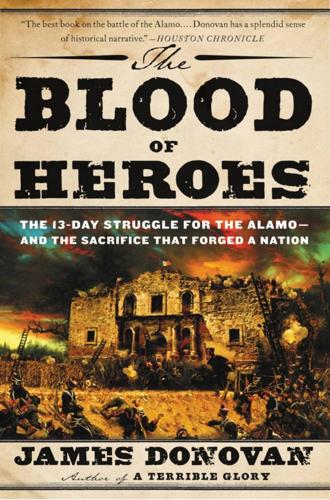
The Blood of Heroes: The 13-Day Struggle for the Alamo--And the Sacrifice That Forged a Nation
by
James Donovan
Published 14 May 2012
The citizens’ trust was rewarded when his rulings proved sound and fair: “I gave my decisions on the principles of common justice and honesty between man and man, and relied on natural born sense, and not on law, learning to guide me,” he wrote later. The rough backwoodsman was becoming respectable. And though he would never achieve financial independence, always spending more than he made, he would occasionally approach solvency after his second marriage. He would even own a few slaves to help on the farm. Four months later he was elected lieutenant colonel of his new county’s militia regiment, thus acquiring the honorific of Colonel, which would remain with him until the end of his days.
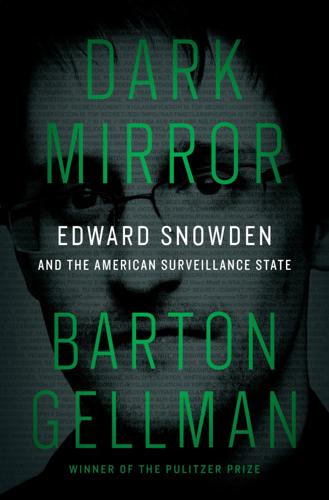
Dark Mirror: Edward Snowden and the Surveillance State
by
Barton Gellman
Published 20 May 2020
Since his midteens he had worked and played with a tight group of slightly older friends who shared his fascination with Japanese popular culture. Together they ran a pair of businesses: Clockwork Chihuahua Studios, a web design company, and Ryuhana Press, an online showcase for anime art and comics. Snowden later told me the dot-com boom had brought a lot of money into those start-ups, providing him with some financial independence. He listed himself on RyuhanaPress.com as “Editor/Coffee-Boy,” alongside alter egos of Edowaado and Phish. Friends embarrassed him on his nineteenth birthday by posting photographs of the skinny teen in various stages of undress, opining that “Ed is positive that he is God’s gift to women.”

Corporate Warriors: The Rise of the Privatized Military Industry
by
Peter Warren Singer
Published 1 Jan 2003
In addition, while the past front companies operated only in limited hot-spots for their governments, firms in the privatized military industry have worked for all types of customers and entities, in all types of places, sometimes including those contrary to their home governments" wishes. There are also pricing structures and competitive practices in the private military market that never characterized front companies. Finally, their financial independence and business motivations have even led some PMFs to defraud their own governments, in a way quite different from what any front for a bureaucracy would consider.24 Many PMFs do maintain close ties to their home governments, often because of the business advantages. Many PMFs (such as Vinnell, Betacls or Dvncorp) also are rumored to have worked on covert operations for governments.
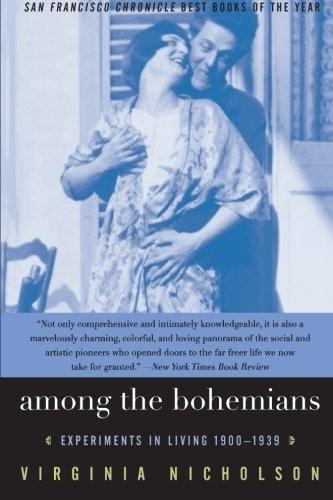
Among the Bohemians: Experiments in Living 1900-1939
by
Virginia Nicholson
Published 27 Nov 2003
Fedorovitch, Sophie (1893-1953) Born in Poland, the painter Fedorovitch came to England in 1920, then lived in great poverty in Paris. Her circle of friends included Iris Tree, Epstein, Augustus John, and Constant Lambert. In the 1930s she and Frederick Ashton started a fruitful collaboration as set designer/choreographer. She died in a gas poisoning accident. Firbank, Ronald (1886–1926) Financially independent, Firbank indulged his taste for champagne at his regular haunt, the Café Royal. A lonely homosexual, his novels (written on piles of blue postcards) are witty aesthetic fantasies, influenced by the nineties, but influential in their turn on such writers as Evelyn Waugh and Ivy Compton-Burnett.
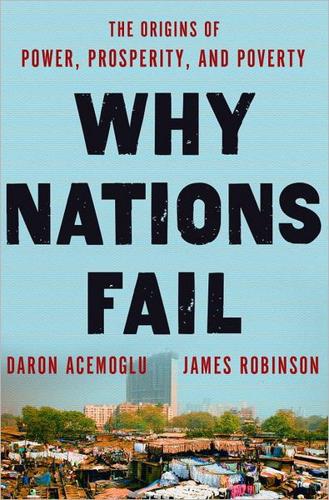
Why Nations Fail: The Origins of Power, Prosperity, and Poverty
by
Daron Acemoglu
and
James Robinson
Published 20 Mar 2012
For instance, the English Parliament and the Spanish Cortes had power over taxation, while the Estates-General did not. In Spain this mattered little, because after 1492 the Spanish Crown had a vast American empire and benefited massively from the gold and silver found there. In England the situation was different. Elizabeth I was far less financially independent, so she had to beg Parliament for more taxes. In exchange, Parliament demanded concessions, in particular restrictions on the right of Elizabeth to create monopolies. It was a conflict Parliament gradually won. In Spain the Cortes lost a similar conflict. Trade wasn’t just monopolized; it was monopolized by the Spanish monarchy.

Debtor Nation: The History of America in Red Ink (Politics and Society in Modern America)
by
Louis Hyman
Published 3 Jan 2011
These loans were issued from programs that were less than four years old. The feisty scheming of small loan operators to encourage repeat borrowers seems to have been unnecessary for personal loan departments. Though early promoters of personal loan departments hoped the loans would be a stepping-stone to saving and financial independence, for some borrowers they were only a cheaper form of debt persistence. The use of savings accounts to encourage thrift also fell to the wayside. By 1938, only slightly more than half of installment payments were repaid into savings accounts. For those banks that continued to use savings 94 CHAPTER THREE accounts in this way, encouraging thrift was no longer the main purpose.
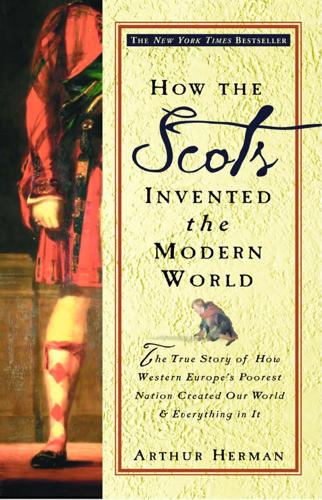
How the Scots Invented the Modern World: The True Story of How Western Europe's Poorest Nation Created Our World and Everything in It
by
Arthur Herman
Published 27 Nov 2001
Since William Adam was Master Mason for the Board of Ordnance, part of that work included construction of Fort George for the British Army. Adam turned out to be quite adept at military architecture, perhaps in part from his exposure to the late Colin Maclaurin’s visionary plans (or perhaps in spite of them). In any case, his work designing and supervising the building of parapets, glacis, and reinforced trenches made him financially independent—indeed, he is said to have made over ten thousand pounds. His father’s death in 1748 also left him with a small estate, Dowhill, whose most prominent visual feature was a semiruined medieval tower—something that would inspire some of his later experiments with the neo-Gothic. But Robert Adam had bigger plans than just building forts.

Alcohol: A History
by
Rod Phillips
Published 14 Oct 2014
Even then, England welcomed a constantly revolving population of alcohol-drinking soldiers from other countries throughout the hostilities, including Americans from 1942 onward. Women began to drink in pubs more frequently during the war, as had occurred between 1914 and 1918. But most of the women who drank in pubs during the war were younger than those who had done so in the 1930s. Many worked in what had been male occupations, their financial independence freed them from parental control, and meeting men in pubs became more acceptable.25 A survey of pubs in the early 1940s suggested that about a fifth of patrons were women, with more drinking there on weekends than during the week. The author noted that because women occupied only parlors and lounges, “it is often possible to find rooms in which quite half the drinkers are women.”26 (He also noted that women made up a disproportionately small percentage of pub drinkers arrested for drunkenness.)
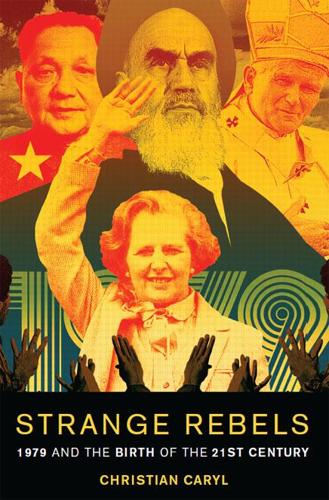
Strange Rebels: 1979 and the Birth of the 21st Century
by
Christian Caryl
Published 30 Oct 2012
It was all part of a Zionist plot, he said, to destroy the family and spread prostitution.10 It wasn’t just the local councils law, though. The shah had already announced the first stage of a national land reform—the early stages of the White Revolution—and the clerics were worried that the measure could threaten the financial independence of the religious endowments that owned large amounts of land around the country. The shah’s plans to introduce a Soviet-style “Literacy Corps” also instilled anxiety in the clerics, who wondered whether this was a covert secularization measure designed to undercut the traditionally dominant role of religious scholars as village teachers.11 In reaction to the storm of protest, the prime minister ultimately rescinded the local councils law—at least for the time being.
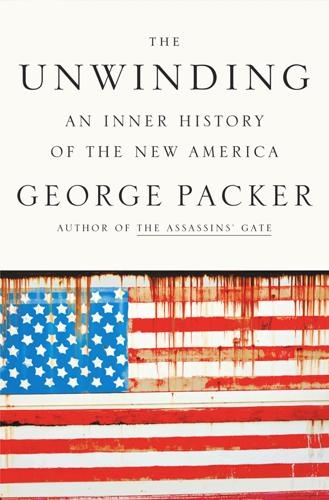
The Unwinding: An Inner History of the New America
by
George Packer
Published 4 Mar 2014
His manner was gentle, respectful, with a quality of refinement that made the men drinking vodka out of plastic cups down at the local Moose Lodge question whether Dean could properly be called a redneck. From childhood on, his favorite Bible verse was Matthew 7:7: “Ask, and it shall be given you; seek, and ye shall find; knock, and it shall be opened unto you.” What he sought his whole life was independence—especially financial independence. His greatest fears, which haunted him all his life, were poverty and failure. He came by them naturally. His grandparents on both sides had been tobacco farmers, and so had their grandparents, and their grandparents, back to the eighteenth century, all of them on the same few square miles of Rockingham County, North Carolina.
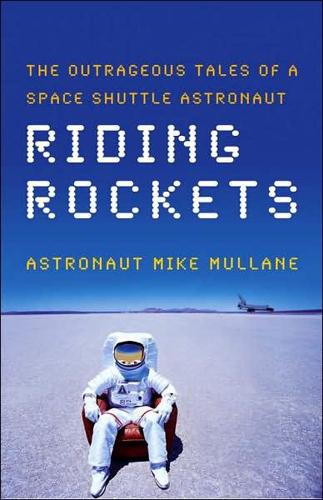
Riding Rockets: The Outrageous Tales of a Space Shuttle Astronaut
by
Mike Mullane
Published 24 Jan 2006
As obsessive-compulsive-West Point-engineer-astronaut fathers are apt to do, I attempted to fashion her into my own image and was frustrated by my repeated failures. I wanted her to graduate from college, but she dropped out after just one semester. I wanted her to have skills that would make her financially independent, if ever that was required, but she acquired none. Donna set me straight. “She’s a sweet, good-hearted young woman. She doesn’t want what you want. You just have to accept that.” I finally had and was happy for her. Laura was now nineteen and a freshman at DePaul University in Chicago majoring in the single degree field most guaranteed to drive an obsessive- compulsive-West Point-engineer-astronaut father into madness…theater.
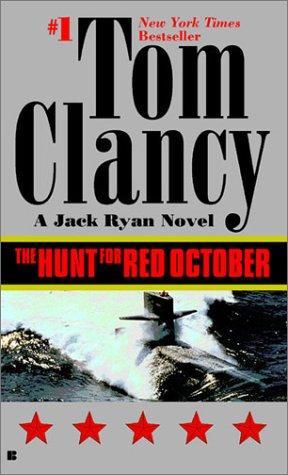
The Hunt for Red October
by
Tom Clancy
Published 2 Jan 1984
The only people Ryan needed to impress were those who knew him; he cared little for the rest. He had no ambition to celebrity. His life, he judged, was already as complicated as it needed to be—quite a bit more complicated than most would guess. It included a wife he loved and two children he doted on, a job that tested his intellect, and sufficient financial independence to choose his own path. The path Jack Ryan had chosen was in the CIA. The agency's official motto was, The truth shall make you free. The trick, he told himself at least once a day, was finding that truth, and while he doubted that he would ever reach this sublime state of grace, he took quiet pride in his ability to pick at it, one small fragment at a time.
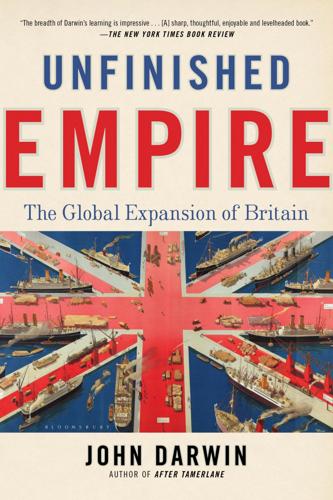
Unfinished Empire: The Global Expansion of Britain
by
John Darwin
Published 12 Feb 2013
Profitable trade would suck in more migrants, to clear more land and produce larger crops. Land sales would boost the government’s income and enable it to borrow more deeply to dig canals (as in Canada), improve roads or build railways. A virtuous circle of ever-increasing prosperity would be the reward. For the settler population, economic well-being and financial independence would strengthen their case for ‘responsible government’: removing London’s control over their internal affairs. It was not, of course, quite as simple as this. The acquisition of land from indigenous peoples was the first hurdle to clear. As was discussed in chapter 3, in the American colonies this was achieved mainly by purchase.
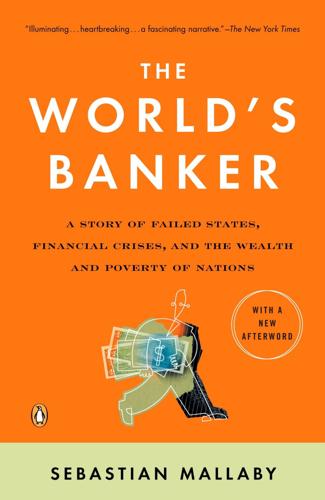
The World's Banker: A Story of Failed States, Financial Crises, and the Wealth and Poverty of Nations
by
Sebastian Mallaby
Published 24 Apr 2006
The Bank’s morale and professionalism—its clear superiority over UN agencies—depend on retaining those strong borrowers, because the small profits that the Bank collects on its market-based operations pay for a large part of the institution. If strong developing countries defect, and the Bank becomes mainly a provider of soft IDA credits, its financial independence will erode and it will depend increasingly on handouts from its shareholders. In a worst-case scenario, it could decline, gradually but inexorably, into the cash-strapped dependency of the United Nations.5 Its best people will drift off, and its professionalism will fade—accelerating the defection of the South Africas of the world, and sucking the Bank into a vicious downward spiral.
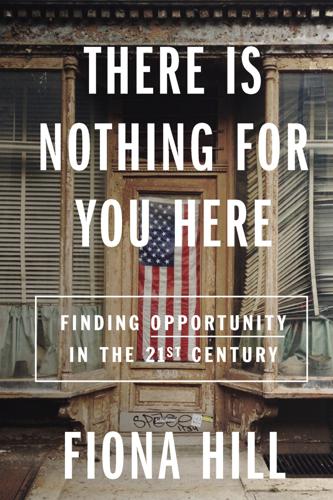
There Is Nothing for You Here: Finding Opportunity in the Twenty-First Century
by
Fiona Hill
Published 4 Oct 2021
The 1980s saw the abolition of larger regional and municipal authorities in the UK, the erosion of their autonomy, and the creation of smaller entities. City mayors, including in London, lost political influence and their revenue-raising authority. Before 2013, roughly 90 percent of UK local taxes went to the central government in Westminster. Because regional governments in the UK, unlike American states, have no financial independence from the central government, they have no scope for engaging in fiscal innovation to raise money for place-based development projects. Before Brexit cut off funding streams from Brussels, some special grant funds were available from the European Union as well as from various departments of the UK government, but regional authorities had to find matching private-sector or charitable resources before they could come up with a project proposal.
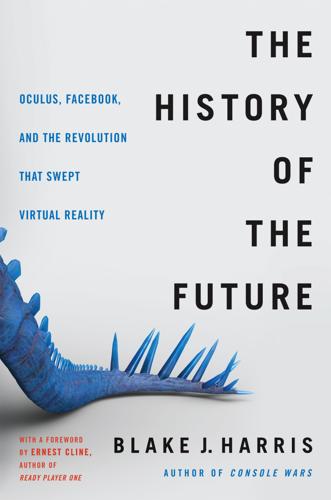
The History of the Future: Oculus, Facebook, and the Revolution That Swept Virtual Reality
by
Blake J. Harris
Published 19 Feb 2019
He didn’t want to give up this special thing that he and his brother had built. Not for $180 million, not for $200 million, not even for $500 million—to him, what they had built was literally priceless. That said, Bettner knew that if he blocked this deal from going through, then he’d be sacrificing his brother’s dreams (to be financially independent) at the expense of his own (to own a game company). And so, on December 2, 2010, Zynga officially acquired Newtoy.3,4 Over the next two years—between selling his company and sitting at his computer now, curious about this young company Oculus—Paul Bettner would tell portions of this story many times.
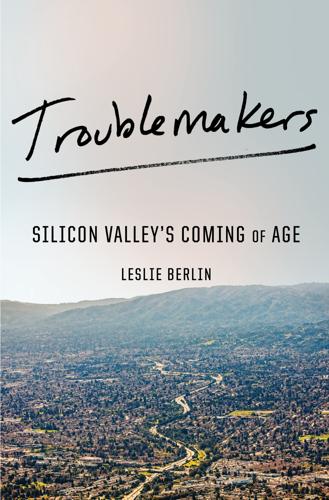
Troublemakers: Silicon Valley's Coming of Age
by
Leslie Berlin
Published 7 Nov 2017
Mike Markkula, now finishing his second year at Intel, was at home for the holiday break, doing what he did every year between Christmas and New Year’s: he was calculating his net worth and planning for the coming year. He had gotten into the habit as a student when, at twenty, he had prepared a detailed financial plan with the goal of reaching financial independence within fifteen years. From college, through his jobs at Hughes and Fairchild, to this ranch house on Sunderland Drive in Cupertino, he had sat with his bank statements and bills every December, adding machine close at hand. The task had been simple until a year ago, at which point he’d had the pleasant additional work of factoring in the generous stock option grant he had negotiated at his hire at Intel.
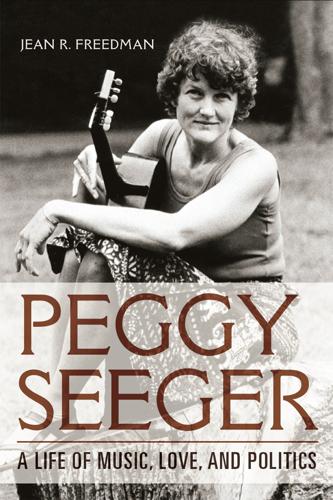
Peggy Seeger
by
Jean R. Freedman
Ruth's plan was to spend one year in Chicago, earn a teaching certificate, and return to Jacksonville with the qualifications and expertise to open a studio of her own. The plan was expensive and Mrs. Crawford would be left on her own, but a cousin offered to finance the year, and Clara Crawford encouraged her daughter to obtain the training that would make her financially independent. In September 1921, Ruth Crawford moved to Chicago. For the sheltered preacher's daughter, living alone in Chicago was a new world. Chicago boasted a world-class symphony orchestra and a world-class opera and was a popular destination for touring European and American musicians. Levy recognized her talent and insisted that she switch to a more advanced program than she had originally considered, a course of study that included harmony and composition as well as piano pedagogy.
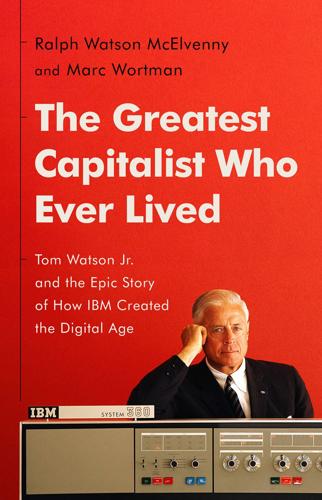
The Greatest Capitalist Who Ever Lived: Tom Watson Jr. And the Epic Story of How IBM Created the Digital Age
by
Ralph Watson McElvenny
and
Marc Wortman
Published 14 Oct 2023
He cabled gleefully to the IBM board members: “Reports of our divorce are greatly exaggerated. We are leaving for… a second honeymoon. Olive and Tom.” Their reconciliation was not simple. To win Olive back, Watson agreed to give her millions of dollars of her own. That money provided her with the financial independence and security she never had previously. But, in later years, he insisted—and she complied out of her seeming inability to defy him even after his death—that the lion’s share of her money would go to Brown University upon her death.35 Not everything changed right away: They argued, and she continued to fear his temper, his tyrannical and unpredictable mood swings.

Beyond the Wall: East Germany, 1949-1990
by
Katja Hoyer
Published 5 Apr 2023
It was also home to several large state-owned companies such as a cement works as well as the VEB furniture maker ‘Wilhelm Pieck’ where Erika began to work in production as a fifteen-year-old in 1968. As she was the daughter of a blacksmith and a tailor, who had three other children to feed, an apprenticeship or even university were out of the question. She needed to be financially independent as soon as possible. She had proved a capable and enthusiastic worker making the iconic, Bauhaus-inspired shelving systems that featured so prominently in many East German households. The quality of these GDR-made products was so good that over 90 per cent of them went into export, mostly to the Soviet Union but many also to West Germany where large mail order companies distributed them to their consumers.
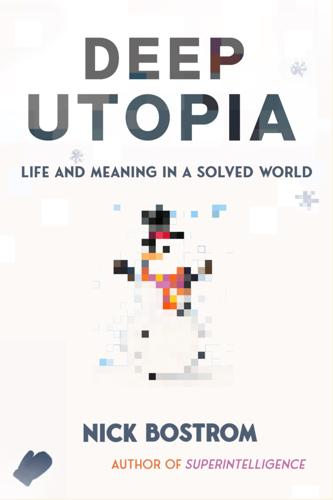
Deep Utopia: Life and Meaning in a Solved World
by
Nick Bostrom
Published 26 Mar 2024
People who “have it all” may in this regard be at a disadvantage (however enviable their condition may be in other respects). In the first place, there is a category of possible goals that just don’t make sense for such people, as one cannot strive for what one already has. The heir who was born with a silver spoon in his mouth, and a cushy trust fund to his name, cannot find meaning in the goal of becoming financially independent. In the second place, the fortunate and the gifted have a great deal of resources and potential which, if not put to worthwhile use, are being wasted. And in fact, historically, we do seem to see existential concerns about meaning surfacing as a prominent cultural phenomenon in the nineteenth century —perhaps not coincidentally the first time in history when average income rose well above subsistence on a wide and sustained basis.
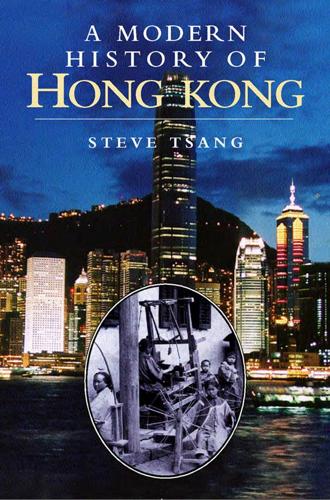
A Modern History of Hong Kong: 1841-1997
by
Steve Tsang
Published 14 Aug 2007
They did not want to commit the government to a formal policy, as they were keen to keep the government’s commitment limited to what it could prudently afford. Given Hong Kong’s status as a Crown Colony, any welfare programme that might put an unbearable burden on the colonial treasury would put at risk Hong Kong’s financial independence from London. The flexibility of not having a formal welfare policy made it easier for the government to keep spending within an affordable level in the event of an economic slowdown. A break from this policy happened after MacLehose succeeded Trench as governor. A career diplomat, MacLehose did not share the outlook and reticence of his colonial service predecessors.
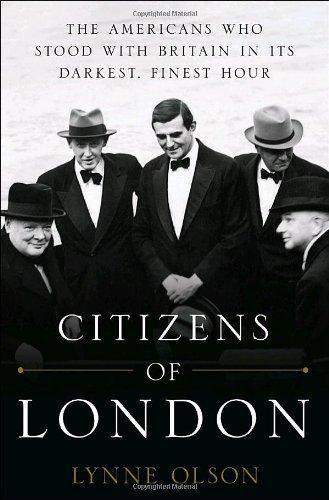
Citizens of London: The Americans Who Stood With Britain in Its Darkest, Finest Hour
by
Lynne Olson
Published 2 Feb 2010
Like Winant, Clementine Churchill had been somewhat of a radical since her youth. As a girl, she had loved school and wanted to go to college, a rare path for an upper-class young woman of her generation to follow; her mother, aghast at the idea, refused to allow it. Throughout her life, Clementine was in favor of financial independence for women (although she never experienced such freedom herself) and, long before women’s suffrage became a reality, strongly backed the right of women to vote. As an ardent member of the Liberal Party, she was discomfited when Churchill left the Liberals to rejoin the Conservative Party in 1924.
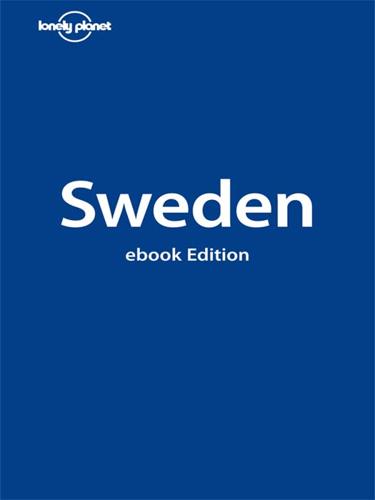
Sweden
by
Becky Ohlsen
Published 19 Jun 2009
* * * THE STORYBOOK WARRIOR Long before the Spice Girls cashed in on ‘girl power’, a Vimmerby-born, Stockholm-based secretary was psyching up little girls with tales of the red-headed, pigtailed strongest girl in the world. The secretary was Astrid Lindgren (1907–2002) and her fictional rebel the infamous Pippi Longstocking. In a postwar world of silenced children and rigid gender roles, Pippi was bold, subversive and deliciously empowering. She didn’t care for beauty creams, she was financially independent and she could even outlift the strongest man in the world, Mighty Adolf. The character herself first found life in 1941 when Lindgren’s pneumonia-struck daughter, Karin, asked her mother for a story about ‘Pippi Longstocking’. The curious name inspired Lindgren to spin a stream of tales about the original wild child, which became an instant hit with Karin and her friends.
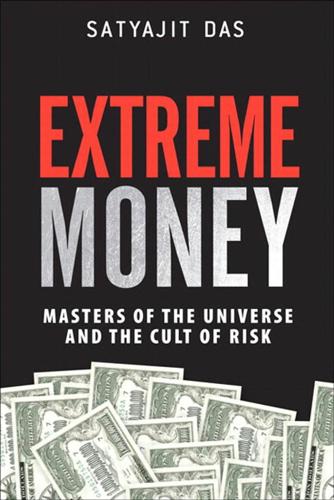
Extreme Money: Masters of the Universe and the Cult of Risk
by
Satyajit Das
Published 14 Oct 2011
In Japan, there are strict cultural taboos against money that is not earned by honest effort—“with sweat from the brow.” But even Japan had embraced financialization. The rest of the world followed. As Cole Porter sang in the 1930s, now almost anything went. Plutonomy For most people, money was the link between work and the essential victuals of life. It also provided financial independence and protection against uncertainty. For a small group, wealth provided social acceptance, power, and influence. It became a means for self-expression, a statement of status and selfhood. As F. Scott Fitzgerald observed: “Let me tell you about the very rich. They are different from you and me.
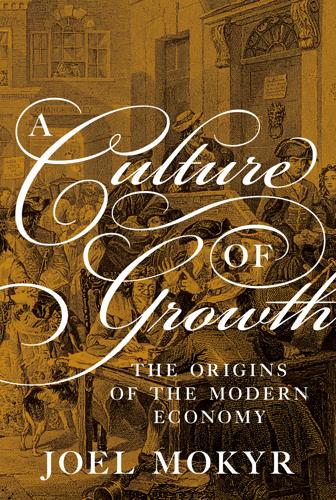
A Culture of Growth: The Origins of the Modern Economy
by
Joel Mokyr
Published 8 Jan 2016
Prince Maurice of Nassau retained the services of the engineer Simon Stevin, who tutored him in mathematics, served as his quartermaster general, and revamped the prince’s finances using new methods of bookkeeping. 41 The art of fawning and groveling before people in power that intellectuals at the time sometimes had to engage in is illustrated by Desaguliers’s allegorical poem “The Newtonian System” written in 1728 for the ascension of King George II, in an attempt to ensure the continuation of the queen’s support, in which he compared Newtonian astronomical certitude with Hanoverian stability (Fara, 2004). 42 Nor can one accept literally Biagioli’s (1990, p. 5) claim that “patronage was a voluntary act only in the sense that by not engaging in it one would commit social suicide.” For one thing, some of the leading scientists of the seventeenth century were sufficiently financially independent to not need patronage in the narrow sense of the word, yet no one seriously questioned the legitimacy of Spinoza or Newton. Reputations were built on intellectual achievement, and their relation with patronage was a two-way street. Moreover, Biagioli fails to recognize fully the voluntary nature of exchange in a competitive market with many actors on both the supply and the demand side, in which the action of exchange between two agents is consensual and welfare-improving even if participating in the market itself may be inevitable. 43 The politics of patronage could be complex and as a source of income it could be fickle, as rulers could be capricious, or be replaced by others with different tastes.
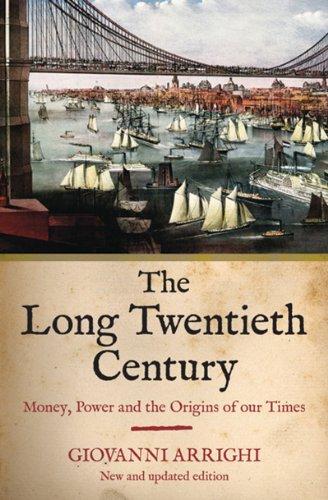
The Long Twentieth Century: Money, Power, and the Origins of Our Times
by
Giovanni Arrighi
Published 15 Mar 2010
On the contrary, it was used to strengthen governmental authority and the sovereignty of the Reich: The political power vested in the Reich executive was to be used to help overcome short-term economic contraction and stagnation, but in exchange for its services the state was to make durable political conquests. . . . Vast schemes loomed before Bismarcks eyes; the establishment of the unassailable financial independence of the Reich and its military machine, beyond the reach of parliamentary control, by manipulating the producers’ demand for tariff protection and by reforming taxation so as to reduce overhead costs. Or the political exploitation of economic and fiscal maladjustments so as to secure a new balance of power between the Reich and the states . . . and to complete the national unification by cementing it with unbreakable economic ties.
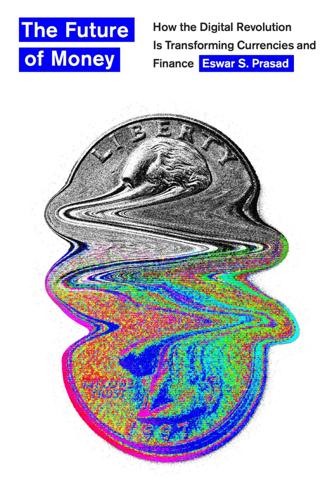
The Future of Money: How the Digital Revolution Is Transforming Currencies and Finance
by
Eswar S. Prasad
Published 27 Sep 2021
It was a bad idea that took seven years to take flight, even as Venezuela’s economy collapsed, intensifying the need for a stable currency just as developments in financial technology made the idea feasible. The Maduro government released a white paper in January 2018 describing the Petro as a sovereign crypto-asset backed by oil assets and stating that the Petro would be “an instrument for Venezuela’s economic stability and financial independence, coupled with an ambitious and global vision for the creation of a freer, more balanced and fairer international financial system.” The government launched the Petro in February 2018 and, two months later, declared it to be legal tender. The government pegged the value of the Petro to the price of one barrel of Venezuelan oil, which was about sixty-six dollars at the time.

The Zionist Ideas: Visions for the Jewish Homeland—Then, Now, Tomorrow
by
Gil Troy
Published 14 Apr 2018
Supreme Court, and his opinions reoriented constitutional law toward social and economic realism. Brandeis was born to Jewish immigrants in Louisville, Kentucky, in 1856. By his twenty-first birthday, he had already graduated from Harvard Law School at the head of his class. After achieving financial independence at the bar in Boston, he devoted himself ever more to public causes. Brandeis grew up without any formal religion. Until age fifty-four, he avoided appreciable contact with the Jewish community. He met its newest segment in 1910 when he was called to help settle a strike in New York’s Jewish-dominated garment industry.
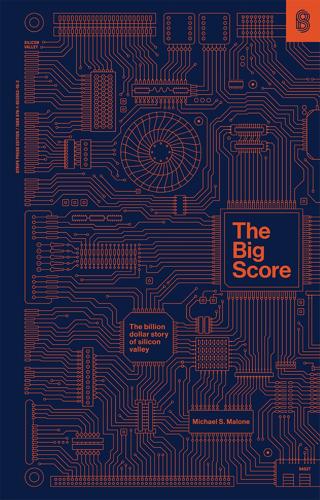
The Big Score
by
Michael S. Malone
Published 20 Jul 2021
It isn’t just nostalgia that makes me remember them as remarkable; they really were different. Most were born in the Midwest and were the sons of blue-collar fathers; many were the first in their families to go to college, much less graduate school. Their tough climb from hardscrabble beginnings to personal and financial independence had made them tough and sometimes ruthless; their Midwestern, blue-collar values gave them deep empathy for their employees; and their roots in the Great Depression had made them profoundly practical and thrifty. Even when Bill Hewlett was one of the richest men in America, he used to challenge his senior managers to see who could assemble the latest HP product the fastest.
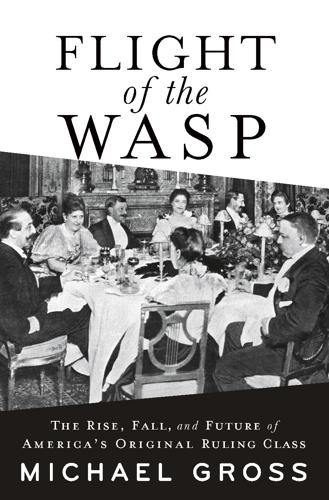
Flight of the WASP
by
Michael Gross
At first his father helped him, pulling strings on Broadway so Michael could book a theater, but then, typically, on opening night he demanded back his investment in the production.42 “He sent his hatchet man with orders to sell his interest,” Michael said, but he waited until Hair was a huge success to buy out his father’s share.43 He no doubt glowed with pride when Roger Stevens rebuked Paul Butler: “You made a mistake on this one, didn’t you?” he said. His son finally earned financial independence, making an estimated $10 million, but then squandered it almost as quickly on an entourage with whom he shared private planes, parties, and a 1936 Rolls-Royce. He also tried to leverage his one success. While Hair would play on Broadway for years, Butler only succeeded in generating fizzles and failures with other productions: rock musicals (Frankenstein, Boris Gudonov, Reggae), a five-film production deal (You Are What You Eat was the first and only one actually made), a record deal, managing a rock band, a magazine, fashion lines, a “Hair and horses” development called Shangri-La in Ojai, California, an entertainment complex in partnership with United Artists Theaters, and boutiques and restaurants.
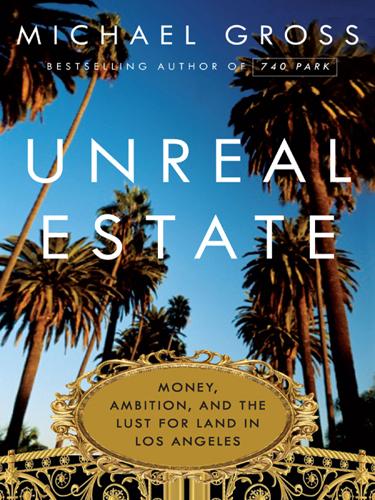
Unreal Estate: Money, Ambition, and the Lust for Land in Los Angeles
by
Michael Gross
Published 1 Nov 2011
Interscope Communications, founded in 1981, was a product of Field’s first movie investment. Ted and a partner had formed a development company that was, Premiere magazine wrote, “heavy on style and light on substance.… Learjets and opulent offices furnished in mahogany,” and defined by an insistence on financial independence that proved counterproductive to the task at hand—making movies. He bought a bunch of scripts at $50,000 each but got nowhere with them. But a new friendship with Skip Brittenham, a well-connected Hollywood lawyer who gave good advice and introduced him to industry power brokers, “enhanced Ted’s ability to work the system,” Brittenham told Premiere.
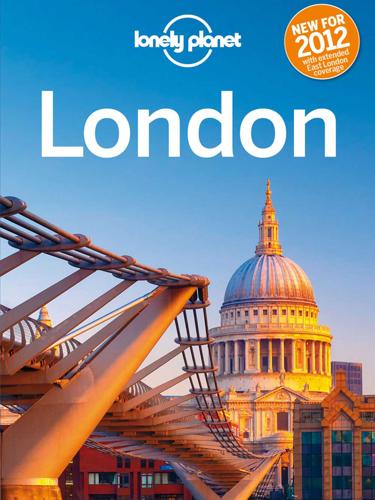
Lonely Planet London
by
Lonely Planet
Published 22 Apr 2012
If you’re stuck in the traffic, tune into Capital FM (95.8 FM), the most popular pop station in the city and the commercial equivalent of the BBC’s national Radio 1 (98.8 FM). For indie music, there’s Xfm (104.9 FM), for dance tune into Kiss (100 FM) and for soul, there’s Choice FM (96.9 FM). Classical listeners can turn to Classic FM (100.9 FM). Media Newspapers & Magazines National newspapers in England and London are almost always financially independent of any political party, although their political leanings are quite clear. There are two broad categories of newspapers, most commonly distinguished as broadsheets (or ‘qualities’) and tabloids (the distinction is more about content than physical size). New Media Websites Londonist (www.londonist.com) London-centric blog.
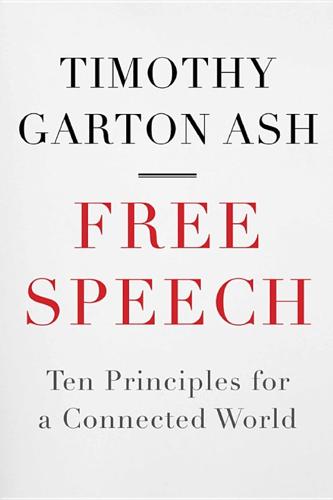
Free Speech: Ten Principles for a Connected World
by
Timothy Garton Ash
Published 23 May 2016
‘It’s The Sun Wot Won It’, the claim made by a famous headline in Murdoch’s The Sun following a surprise election result in 1992, has long been debated.43 What matters is that British politicians collectively believed that they could not win elections against these papers and individually feared personal attacks in their pages, including exposure of real or alleged shenanigans in their private lives.44 This was a very British version of ‘The Godfather’—without the machine guns, to be sure, but even Don Corleone did not murder his tame politicians. These press proprietors claim, rightly, that a politically and financially independent press is a classic check on political power, but they themselves wield power that needs to be checked. Even after the exposure of large-scale, routine, illegal phone hacking by the Murdoch tabloids—an exposure led not by the police, who sat on the evidence for years, but by other parts of Britain’s fortunately still diverse media—and the jailing of Coulson, the press barons continued to exercise enormous power in at least two ways.

The Mask of Sanity: An Attempt to Clarify Some Issues About the So Called Psychopathic Personality
by
Hervey Cleckley
Published 1 Jan 1955
He was always found “sane and competent” and discharged after a short period. In time he became an all but unbearable burden on the other members of his family. The oldest brother, vice-president of a local bank, another brother successful in business, a married sister in good circumstances, and another sister unmarried but financially independent and prominent in club work all strove to their utmost to help him. The task of supporting him was but a small part of their problem. If kept in the house by any of his family, he persisted in his overbearing, riotous ways, proved unmanageable, and disorganized the entire household. Sometimes he took silver or other valuable objects belonging to a sister or a brother and pawned or sold them.
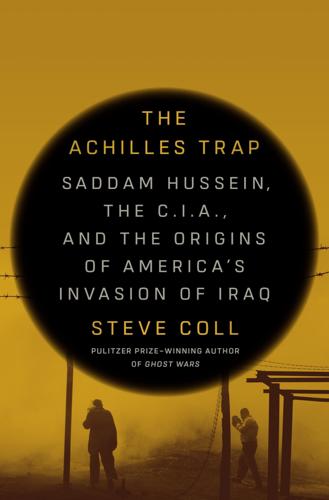
The Achilles Trap: Saddam Hussein, the C.I.A., and the Origins of America's Invasion of Iraq
by
Steve Coll
Published 27 Feb 2024
A colleague of Bruner’s, Linda Flohr, saw a way to turn Chalabi’s dodgy escape from Jordan, and the pending charges against him there, into an advantage. His “reputation of corruption . . . is a good cover,” as Flohr put it, since Chalabi could funnel C.I.A. funds while creating the impression among fellow Iraqis that he was “financially independent.” Of course, another possibility was that the unscrupulous practices that had caused Petra to collapse might foreshadow Chalabi’s decision-making as an agency client.[24] Working with the Rendon Group, the C.I.A.-funded PR firm, Chalabi helped form the Iraqi National Congress, or the I.N.C.
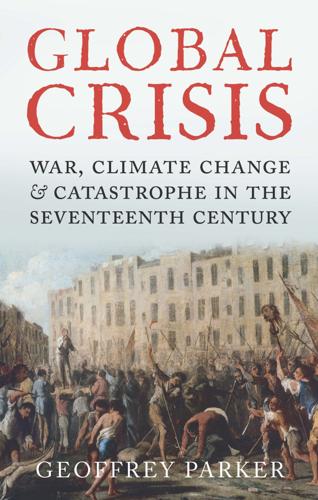
Global Crisis: War, Climate Change and Catastrophe in the Seventeenth Century
by
Geoffrey Parker
Published 29 Apr 2013
For example, up to 6,000 people came to London every year, most of them either boys who became ‘bound apprentice’ to a merchant or artisan in return for instruction in his craft, or females and males who came to work as domestic servants until they had accumulated enough savings to become financially independent and marry – a goal that became more elusive whenever economic circumstances deteriorated. In the English capital, as elsewhere in western Europe, these migrants made up 10 per cent or more of the urban populations. Other people migrated on an annual basis to work on the crops, because the cultivation of most staples requires many extra hands at certain predictable, intense, but short periods.
…
On the other hand, they also created tariff barriers designed to protect local production as well as to raise revenues: thus a ship carrying merchandise along the river Elbe between Hamburg and Prague (just over 300 miles) had to pay tolls at 30 border checkpoints; and a barge travelling along the Rhine between Mainz and Cologne (just over 100 miles) had to pay tolls 11 times. In addition, some German rulers spent heavily on defence (both fortifying their towns and raising militia units); several joined a confessional alliance (the Protestant Union from 1608, the Catholic League from 1609); and all sought financial independence. Maximilian, ruler of Bavaria from 1598 to 1648, made no secret of his ambitions. ‘I believe that we princes only gain respect, both from spiritual and secular powers, according to “reason of state”,’ he wrote at the beginning of his reign; adding ‘and I believe that only those who have a lot of land or a lot of money get that respect’.4 Over the next two decades he doubled his tax revenues and used the proceeds to build state-of-the-art fortifications, to fund the Catholic League and to create a war chest of four million thalers.
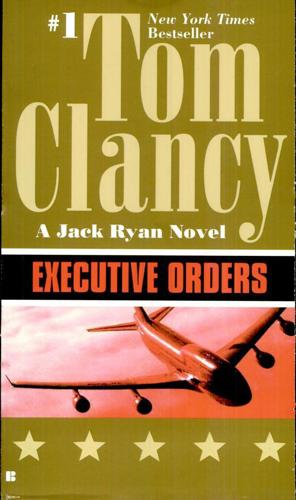
Executive Orders
by
Tom Clancy
Published 2 Jan 1996
Without the parties where he'd met the other mover-shakers, and talked his way to the top. And the money. He'd never taken a bribe of any sort, but his friend had advised him wisely (the advice having come from his own advisers, but that didn't matter) on investments, allowing him to build up his own financial independence and, by the way, buy a five-thousand-square-foot home in Great Falls, and to put his own son into Harvard, not on a scholarship, for Clifton Rutledge III was the son of somebody now, not merely the issue of a worker's loins. All the work he might have done entirely on his own would not have brought him to this place, and loyalty was owed, wasn't it?
…
As a roving inspector working directly out of the office of the Director, he never knew from one day to the next when he might be sent off on a case, which often meant calling in a sitter, to the point that he sometimes thought about getting a full-time nanny. He could afford it-the insurance settlement for his wife's death in the plane crash had actually given him a measure of financial independence, though its circumstances seemed altogether blasphemous, but they had offered it and he, on advice of counsel, had taken it. But a nanny? No. It would be a woman, and Megan would think of her as Mommy, and, no, he couldn't have that. Instead, he did the hours and denied himself so that he could be both parents, and no grizzly bear had ever been more protective of a cub.
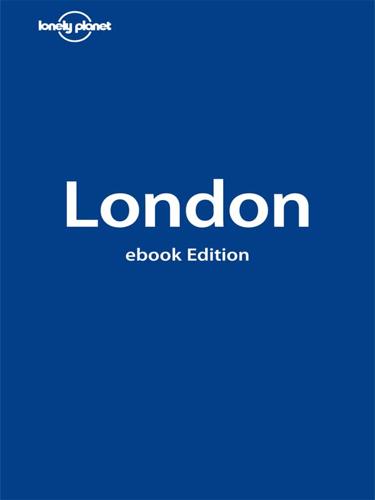
Lonely Planet London City Guide
by
Tom Masters
,
Steve Fallon
and
Vesna Maric
Published 31 Jan 2010
Free newspapers, distributed at tube stations and on the streets wherever commuters can be stopped and a paper shoved in their face, also vie for the attentions of Londoners – London Lite and Metro (both owned by the Daily Mail parent group Associated Newspapers) are lightweight, easy-to-digest reads with a firm focus on celebrity, and can be found littering buses or tube carriages all over London. National newspapers in England are almost always financially independent of any political party, although their political leanings are easily discerned. Rupert Murdoch is the most influential man in British media and his News Corp owns the Sun, the News of the World, the Times and the Sunday Times. The industry is self-regulating, having set up the Press Complaints Commission (PCC) in 1991 to handle public grievances, although many complain that the PCC is unable to really maintain any level of discipline among the unruly tabloids, being a ‘toothless guard dog’.
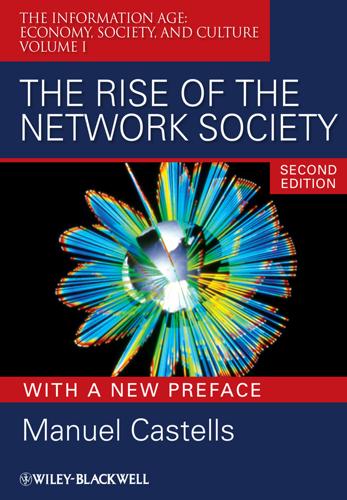
The Rise of the Network Society
by
Manuel Castells
Published 31 Aug 1996
Business was also explicitly requested to finance the government’s political activities, as well as to pay in cash for any special favors obtained from top-level bureaucrats, generally military officers. To enforce strict business discipline, the Park government did not relinquish control over the banking system. Thus, unlike in Japan, Korean chaebol were not financially independent until the 1980s. Labor policies were also shaped by military- induced authoritarianism, with the unions being directly under government control to make sure that they would be purged of any communist influence. These labor policies led to the ferocious repression of any independent labor organization, thus destroying the possibility of consensus-building in the work process of Korean industry.119 The military state origin of chaebol was certainly more influential in shaping the authoritarian and patrilineal character of Korean business networks than the Confucian tradition of rural Korea.120 The interaction between state and business is far more complex in the case of Chinese family firms, rooted in centuries-old distrust of government interference.
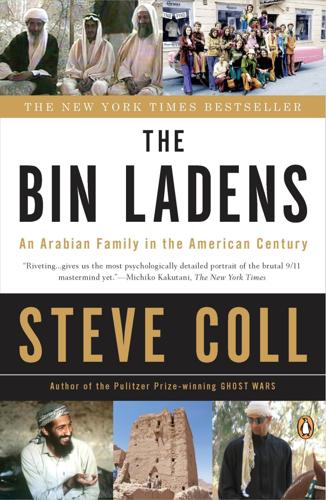
The Bin Ladens: An Arabian Family in the American Century
by
Steve Coll
Published 29 Mar 2009
Bakr and the brothers closest to him, particularly Yahya, had created this growth despite a series of risky political and business episodes after Salem’s death: Osama’s excommunication, falling oil prices, King Fahd’s stroke, and Crown Prince Abdullah’s attempts to exert greater control over the kingdom’s contracting system. Any one of these challenges might have set them back, but Bakr had finessed them, and in part because of his strategy of business modernization and diversity, he had emerged with greater wealth and financial independence than either Salem or his father had enjoyed.2 He was twice divorced, but his children remained under his roof. He hired guardians and tutors, and if the boys were perhaps more interested in the latest Sony PlayStation games than in their father’s ponderous Islamic verses, the generation gap between them seemed of normal expanse.
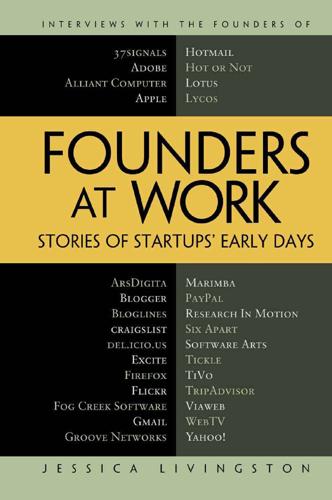
Founders at Work: Stories of Startups' Early Days
by
Jessica Livingston
Published 14 Aug 2008
To be honest, here’s what I was driven by: I wanted to do really a great product. Almost from day one I understood that I was passionate about the applications themselves, that they’d be integrated, easier to use and be powerful. They’d help make people more productive and I cared a lot about that. The other thing I wanted was financial independence. I had an enormous desire not to be dependent on other people, or to have to have a job. I wanted to dictate the terms. So I knew if you had an IPO, then you had a liquid currency and you had the ability to cash in and get that. So I actually pushed for an early IPO, which we did successfully.
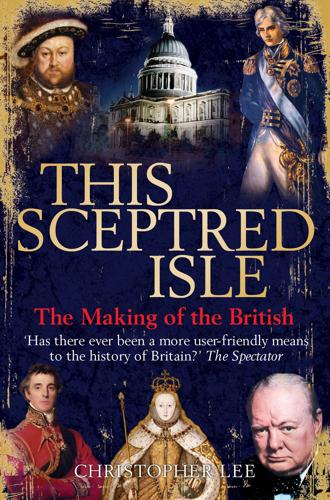
This Sceptred Isle
by
Christopher Lee
Published 19 Jan 2012
They could then use the money to buy, from England, the manufactured goods they needed and regarded as luxuries, thus creating a good market for British manufacturers. The importance of this use of tobacco profits was that the stockholders of the London Company did not always have to pay for the manufactured goods the planters needed and therefore the Company was more profitable and so attracted more investment. Also, the planters were gaining financial independence. Economic independence was an essential prerequisite for self-determination. Colonial expansion was now unstoppable. The spreading of the fledgling empire was not confined to the hinterland and littoral states of America. The shipwrecked colonists who had taken refuge on Bermuda had, if nothing else, excited the idea that the fertility and easy access to wildlife made it an obvious target for colonists.
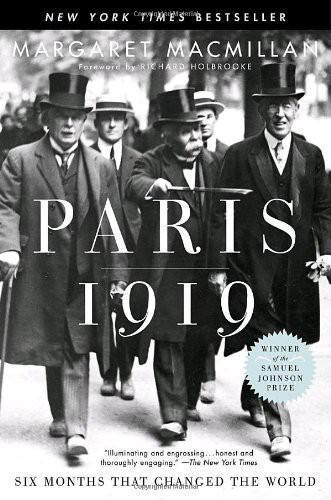
Paris 1919: Six Months That Changed the World
by
Margaret Macmillan; Richard Holbrooke; Casey Hampton
Published 1 Jan 2001
“To Lloyd George,” said a friend of his children, “every morning was not a new day, but a new life and a new chance.”12 Sometimes the chances he took were risky, and he engaged in some dubious transactions—a mine in Argentina or the purchase of shares where he had inside knowledge—but he seems to have been motivated more by the desire for financial independence than by greed. He was equally careless in his private life. Where Clemenceau’s affairs with women enhanced his reputation, Lloyd George came close to disaster on more than one occasion when angry husbands threatened to name him in divorce actions. His wife, a strong-willed woman, stuck by him, but the couple grew apart.
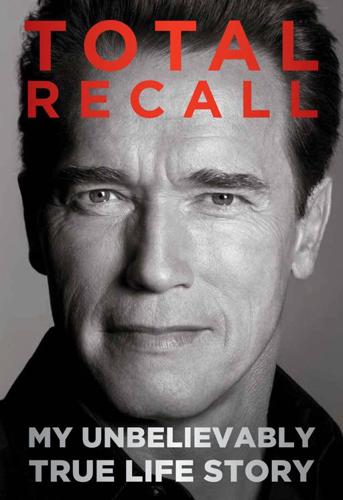
Total Recall: My Unbelievably True Life Story
by
Arnold Schwarzenegger
and
Peter Petre
Published 30 Sep 2012
The difference between those who adapted and those who didn’t, Gorton said, was a willingness to totally commit. Others talked about how I’d need to put up with media criticism like I’d never imagined; how I’d need to become expert in wonky topics; how I’d need to ask for campaign contributions. I took such obvious pride in my financial independence that they realized the last item would be hard for me. But what surprised me was the level of enthusiasm in the room. I thought they were going to tell me that this wasn’t right for me and maybe I should try for an ambassadorship or something. That was the way people in Austria had reacted when I said I wanted to be a bodybuilding champ.
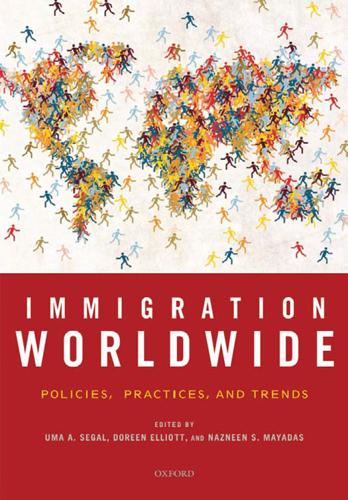
Immigration worldwide: policies, practices, and trends
by
Uma Anand Segal
,
Doreen Elliott
and
Nazneen S. Mayadas
Published 19 Jan 2010
The permit for independent financial activity is defined separately (articles 24–25, and requires a minimum investment of 60,000 euros) and so is the residence permit for employees of companies of another EU member or a third country who are moved to Greece for a limited period of time in order to offer specific services within the frameworks of their employment for their company. Moreover the law determines the condition for issuing residence permits for a series of 198 Nations with Increasing Immigrant Populations other categories (such as athletes and trainers, intellectuals and artists, financially independent people, practitioners of known religions, scientific researchers, tour guides, students at the Athoniada school in Athos, etc.). It is also very important that the new law has special provisions for the protection of human trafficking victims (articles 46–52). Stay permits issued for study purposes (article 28–29) include a time limitation: the total duration of the study increased by its half plus one year for learning the language.
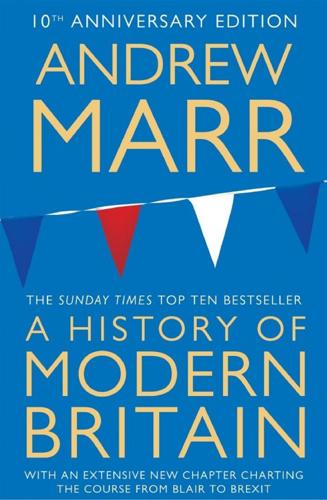
A History of Modern Britain
by
Andrew Marr
Published 2 Jul 2009
This ‘irretrieveable breakdown’ clause, often oddly called ‘no-fault divorce’, was followed by a rocketing rate of divorces rising from around 7 per cent of marriages in the late fifties to close to 50 per cent now. The causes of this domestic revolution are many, and include greater publicity about sexual gratification, domestic violence and greater female financial independence. But the 1969 Act was a huge factor. Then there was the Theatres Act of 1968, again taken through by a Labour backbencher, George Strauss, one of the founders of Tribune, which finally ended the Lord Chamberlain’s censorship role after a particularly controversial verdict against a play at the Royal Court, Saved by Edward Bond.
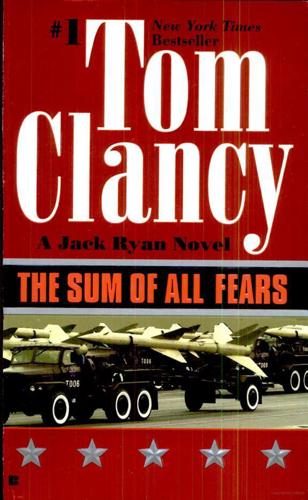
The Sum of All Fears
by
Tom Clancy
Published 2 Jan 1989
He'd feared the overt methods, deciding that a cause or a mission was so vital that you might lose perspective on the important things, like the value of a single human life, even the life of an enemy. He hadn't lost that, not ever, and knew that he never would. It was the subtler things that were wearing at him. He was turning into a functionary, worrying about credit and status and influence. He closed his eyes to remind himself of what he already had: a wife, two kids, financial independence, accomplishments that no one could ever take away. You are turning into one of them He'd fought - he had killed - to defend his family. Maybe Elliot was offended by that, but in quiet moments like this, Jack remembered the times with a thin, grim smile. Not two hundred yards from where he now sat, he'd drilled three rounds into a terrorist's chest, coldly and efficiently - steel on target!
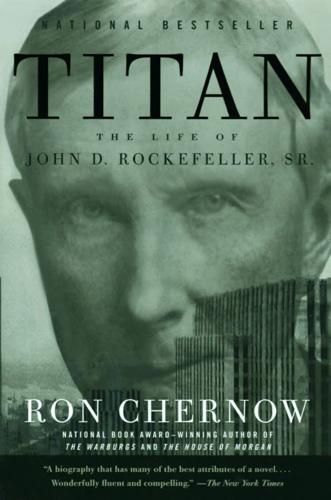
Titan: The Life of John D. Rockefeller, Sr.
by
Ron Chernow
Published 1 Jan 1997
“The world is full of Sham, Flattery, and Deceptions,” he wrote, “and home is a haven of rest and freedom.”30 At this stage, Rockefeller still found his wealth wonderful and slightly unreal, telling Cettie that “we have been so prospered and placed in independent circumstances, it seems a fabulous dream but I assure you it is a solid and comforting fact—how different our condition from the multitudes, let us be thankful.”31 Perhaps this financial independence emboldened Rockefeller to undertake the risky SIC scheme, confident that it wouldn’t endanger his family’s security. And lest Cettie worry about his risky new venture, he reminded her, “You know we are independently rich outside investments in oil—but I believe my oil stock the very best.”32 By late January 1872, as the conspirators drew up and signed the last contracts while trying to preserve total secrecy, rumors of an impending jump in freight rates began to filter through western Pennsylvania.
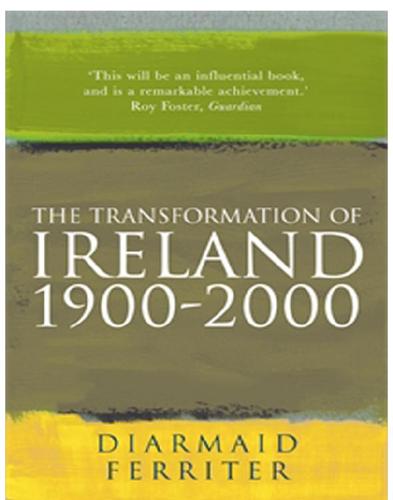
The Transformation Of Ireland 1900-2000
by
Diarmaid Ferriter
Published 15 Jul 2009
She appealed to the European Court of Human Rights, who found the Irish government in breach of its obligations, and forced them to change their position on legal aid.86 ‘sacrificial tolerance of the unhappy marriage’ This came at the end of a decade in which marriage was at least being discussed more; an institution recognised by outsiders as being idealised in Ireland was finally coming under close scrutiny. The journalist Dorine Rohan, in Marriage: Irish Style, found women eager to speak about their problems in this regard, and she suggested the high Irish birth rate prevented women from striking out on their own, despite the fact that so many were deprived of respect, financial independence, and a loving and fulfilling sex life. But she concluded that, on the whole, their fears of marriage break-up were economic rather than moral or emotional (an argument effectively used by anti-divorce campaigners in the 1980s). Rohan also encountered a good deal of revulsion and ignorance about sex, no doubt fuelled by a belief, articulated by novelist Edna O’Brien, that ‘the men’s way of testing their heroism and bravery and overdrinking seems to be a compensation for their fears of themselves as lovers’.87 Notwithstanding, there seemed to be a consensus that a bad marriage was better than a divorce or separation, and there certainly was no public support for divorce.
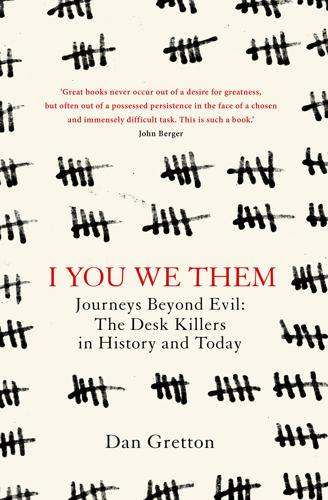
I You We Them
by
Dan Gretton
At Wannsee, as well as representing his boss Goering, he also acted for several ministries connected to the German economy – Labour, Finances, Food, Transport, and Armaments and Munitions. Luther’s career was the most unorthodox of all of the Wannsee attendees. He’d left school with no qualifications and joined the army to fight in the First World War. He then started several businesses in haulage, interior design and furniture removals, eventually becoming financially independent. He joined the Nazi Party in 1932, becoming an activist in south-west Berlin, where he became friends with the Ribbentrops, doing building work and interior decoration for the future ambassador to Britain. In 1936 he was given the job of creating a Party Liaison Office by Ribbentrop, and, when his boss was made Foreign Secretary two years later, Luther moved with him to the Foreign Office, and was soon heading the new Abteilung Deutschland (Germany Department), handling the Foreign Office’s liaison with SS and police, Jewish policy and ambassadorial appointments, among other matters.

The Year's Best Science Fiction: Twenty-Sixth Annual Collection
by
Gardner Dozois
Published 23 Jun 2009
The year’s best collections included: The Best of Michael Swanwick (Subterranean), by Michael Swanwick; East of the Sun and West of Fort Smith (Norilana Books), by William Sanders; Dark Integers and Other Stories (Subterranean), by Greg Egan; Other Worlds, Better Lives: A Howard Waldrop Reader (Old Earth Books), by Howard Waldrop; Pump Six and Other Stories (Night Shade), by Paolo Bacigalupi; The Wreck of the Godspeed and Other Stories (Golden Gryphon), by James Patrick Kelly; The Best of Lucius Shepard (Subterranean), by Lucius Shepard; Nano Comes to Clifford Falls (Golden Gryphon), by Nancy Kress; The Baum Plan for Financial Independence and Other Stories (Small Beer Press), by John Kessel; and Pretty Monsters (Viking), by Kelly Link. Other good collections included: Harsh Oases (PS Publishing), by Paul Di Fillipo; The Ant King and Other Stories (Small Beer Press), by Benjamin Rosenbaum; Strange Roads (Dreamhaven), by Peter S.
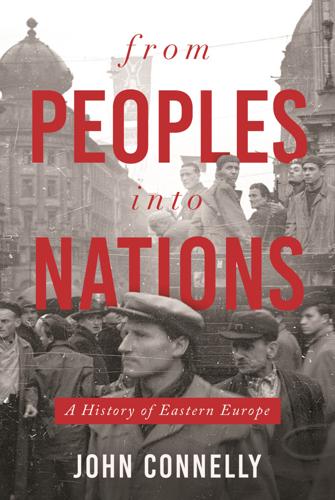
From Peoples into Nations
by
John Connelly
Published 11 Nov 2019
With his eye to the peasants who bore the costs of territorial disputes, he vowed to oppose the “the demons of tribal hatred” and believed that his ideas of Yugoslav unity would raise South Slavic politics to a new level, opening the way to an independent state in which concerns about Serb or Croat borders would lose meaning.24 Radić became a leading peasant politician, but at the start he had no intention of founding a movement. He led a “united opposition” to Magyar rule until 1904, when events suddenly imposed a trajectory he had not anticipated. Massive demonstrations had broken out for financial independence, which then fizzled out. Intellectuals had been caught by surprise, but the protests caused Radić to imagine a “magnificent national army” rising from the peasantry to become the core of the Croat movement. It needed leadership, and he would be its leader. He was alarmed by the anti-Serb agitation he witnessed among Zagreb nationalists, signaling where the movement might go if humane leadership did not prevail.
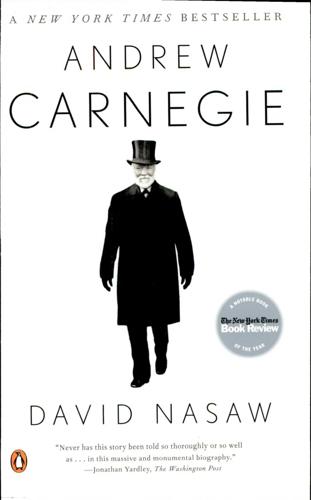
Andrew Carnegie
by
David Nasaw
Published 15 Nov 2007
It is the only enterprise before me just now into which I could best throw my whole energy.” Scott agreed to contact Simon Cameron on Carnegie’s behalf to ask if he could arrange for a consular appointment. His “young friend Carnegie,” he informed Cameron, “retires from Railway life 1st April next—having struck oil, in large quantities [he is] now financially independent and intends to spend a few years in Europe—being one of Scotland’s boys he has a strong desire to go there in some official capacity.”2 Carnegie was ready for a change of scenery—and occupation. As he approached thirty, his lack of education and cultivation concerned him more than ever. He had never been to any of the European capitals and knew nothing about classical architecture or Renaissance painting or the other subjects required of a man of learning.
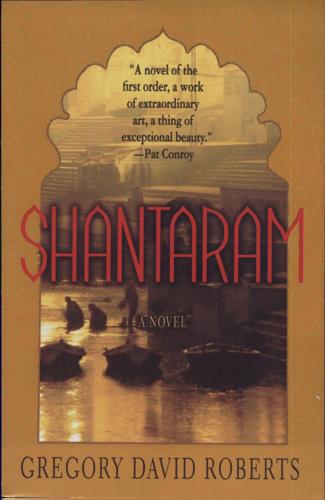
Shantaram: A Novel
by
Gregory David Roberts
Published 12 Oct 2004
His first marriage had been for love. The two subsequent marriages were to poor widows who might not otherwise have found new husbands. The wives bore him ten children between them—four sons and six daughters—and there were five other children who’d come to him with the widowed wives. To give the women financial independence, he bought four foot-treadle sewing machines for them. His first wife, Fatimah, set the machines up under a canvas canopy, outside the hut, and hired one, two, three, and eventually four male tailors to work at making shirts and trousers. The modest enterprise provided living wages for the tailors and their families, and a measure of profit, which was divided equally among the three wives.
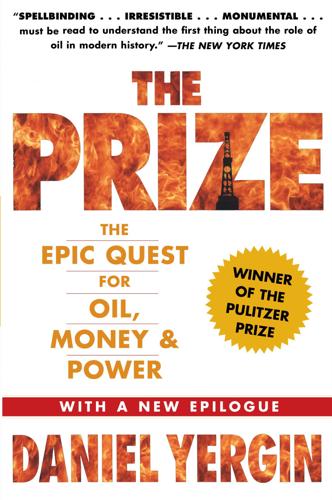
The Prize: The Epic Quest for Oil, Money & Power
by
Daniel Yergin
Published 23 Dec 2008
Frederick Cook, who claimed, among other things, to have beaten Admiral Perry to the North Pole, was mailing up to three hundred thousand letters a month, from which he made, in one year, some two million dollars—before he was apprehended by Federal authorities. In sheer audacity, few could have matched the General Lee Development Company. Two promoters discovered a certain Robert A. Lee, a descendant of General Robert E. Lee, and prevailed upon him to tell investors around the country, "I would rather lead you and a thousand others to financial independence than to have won Fredericksburg or Chancellorsville." By comparison, Dad Joiner was strictly a small-time operator. But he did have the saving grace that he actually wanted to wildcat for oil rather than simply separate the gullible from their dollars. He worked out of Dallas, hanging around with the other promoters in the lobby of the Adolphus Hotel, a baroque landmark built by the Busch beer family of St.
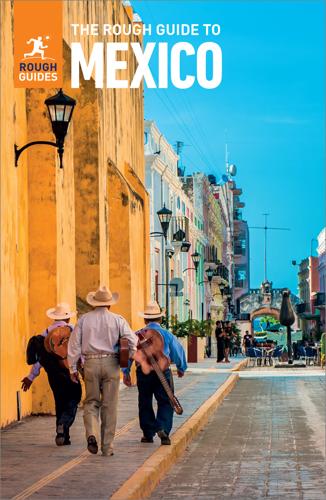
The Rough Guide to Mexico
by
Rough Guides
Published 15 Jan 2022
In 1939 they divorced, a devastating event Frida recorded in Autoretrato con el Pelo Cortado (Self-Portrait with Cropped Hair), in which her trademark long tresses and Indigenous tehuana dresses (both much loved by Diego) are replaced by Diego’s oversized suit and cropped hair. They remarried a year later, with Frida insisting on financial independence and a celibate relationship. The injuries from her accident dogged her throughout her life, and as her physical condition worsened she found solace in her work (as well as in drink and painkilling drugs), painting La Columna Rota (The Broken Column) in 1944, with her crushed spine depicted as an Ionic column.

Europe: A History
by
Norman Davies
Published 1 Jan 1996
European culture lost its confidence; European prestige, and moral standing, all but evaporated. With one notable exception, every single European state that entered the fray in 1914 was destined to suffer military defeat and political annihilation by 1945. The one country to avoid total disaster was only able to survive by surrendering its political and financial independence. When the wartime dust finally settled, the European ruins were controlled by two extra-European powers, the USA and the USSR, neither of which had even been present at the start. Map 24. Europe during the Great War, 1914–1918 On the moral front, one has to note the extreme contrast between the material advancement of European civilization and the terrible regression in political and intellectual values.